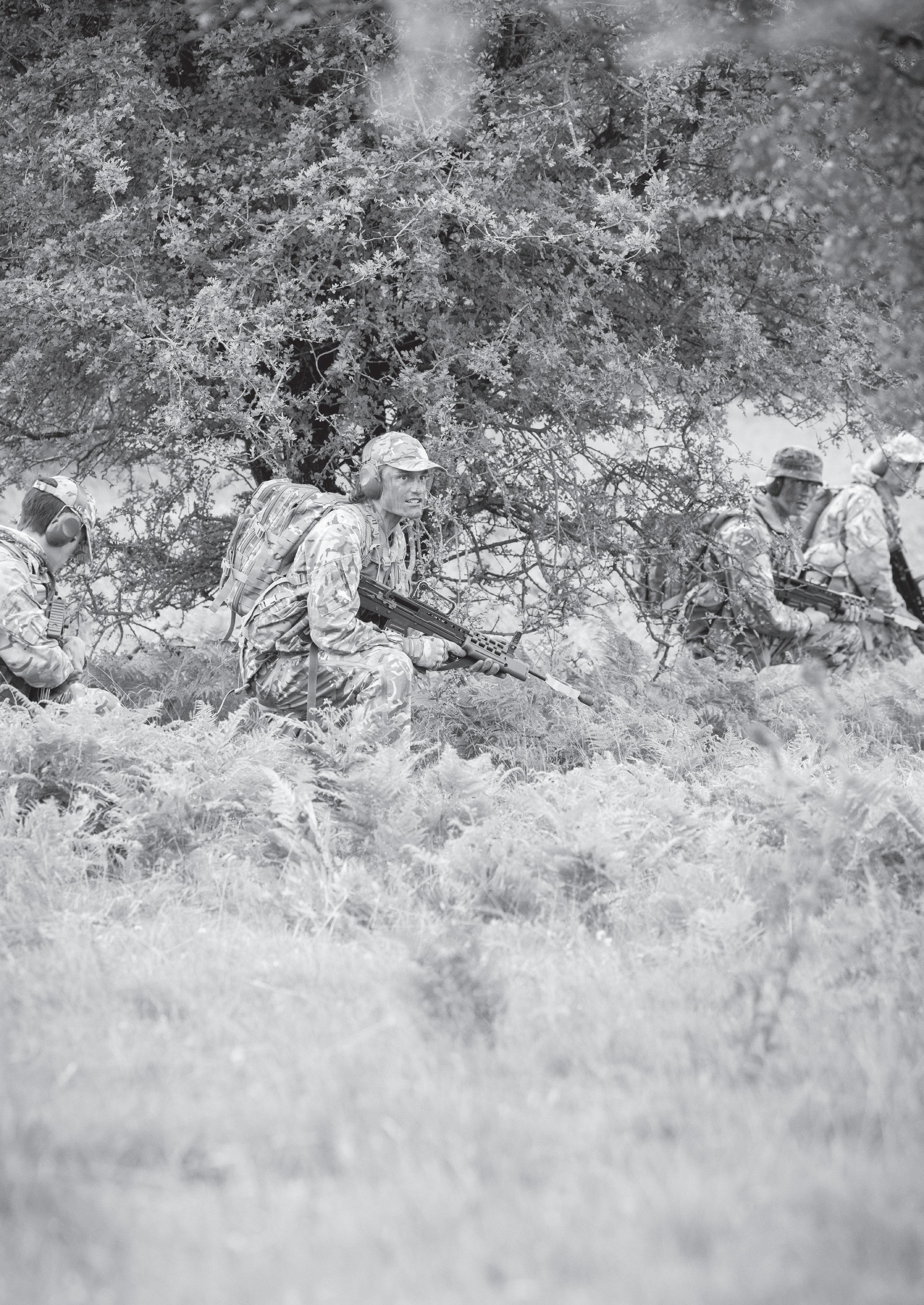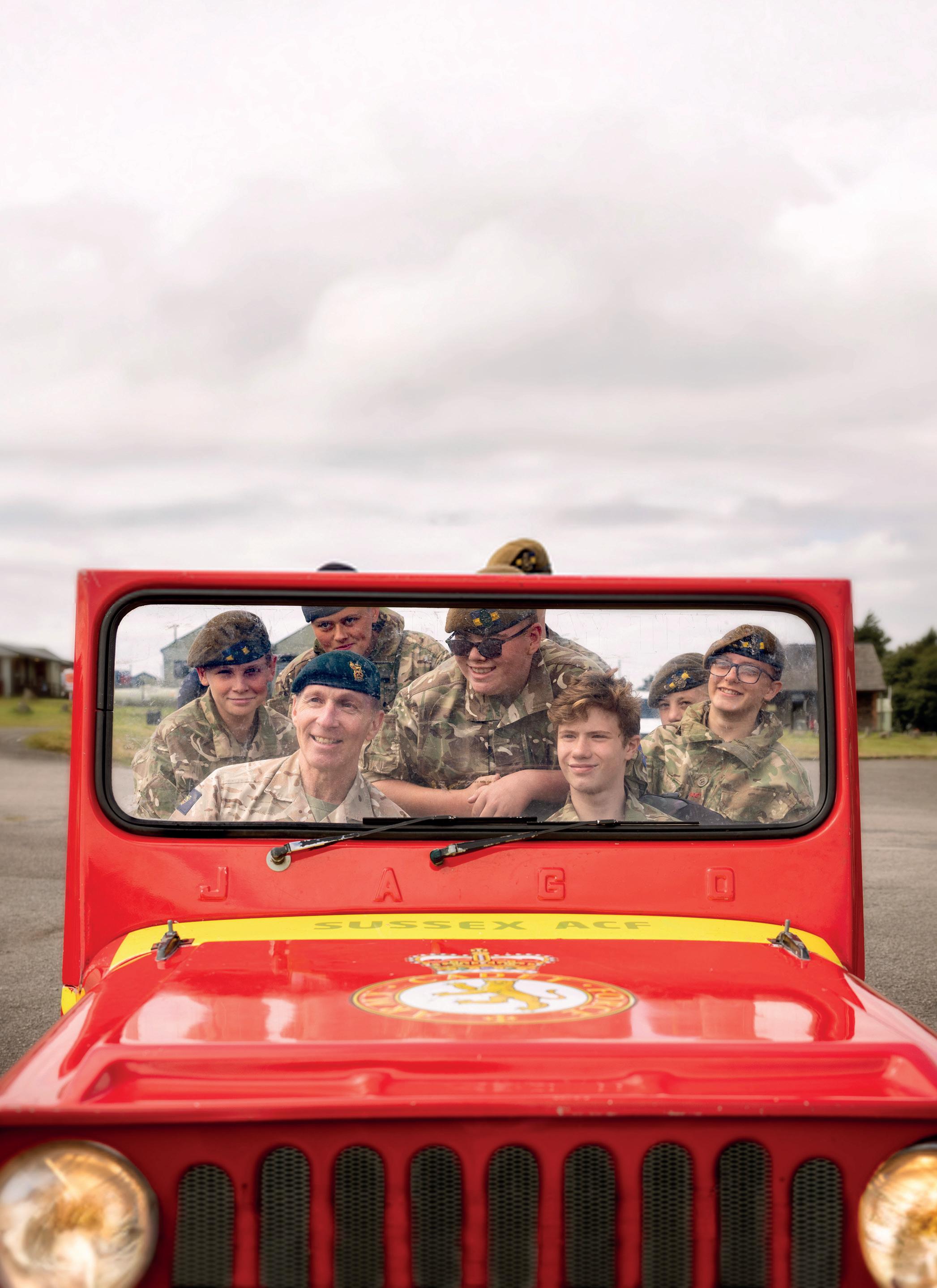
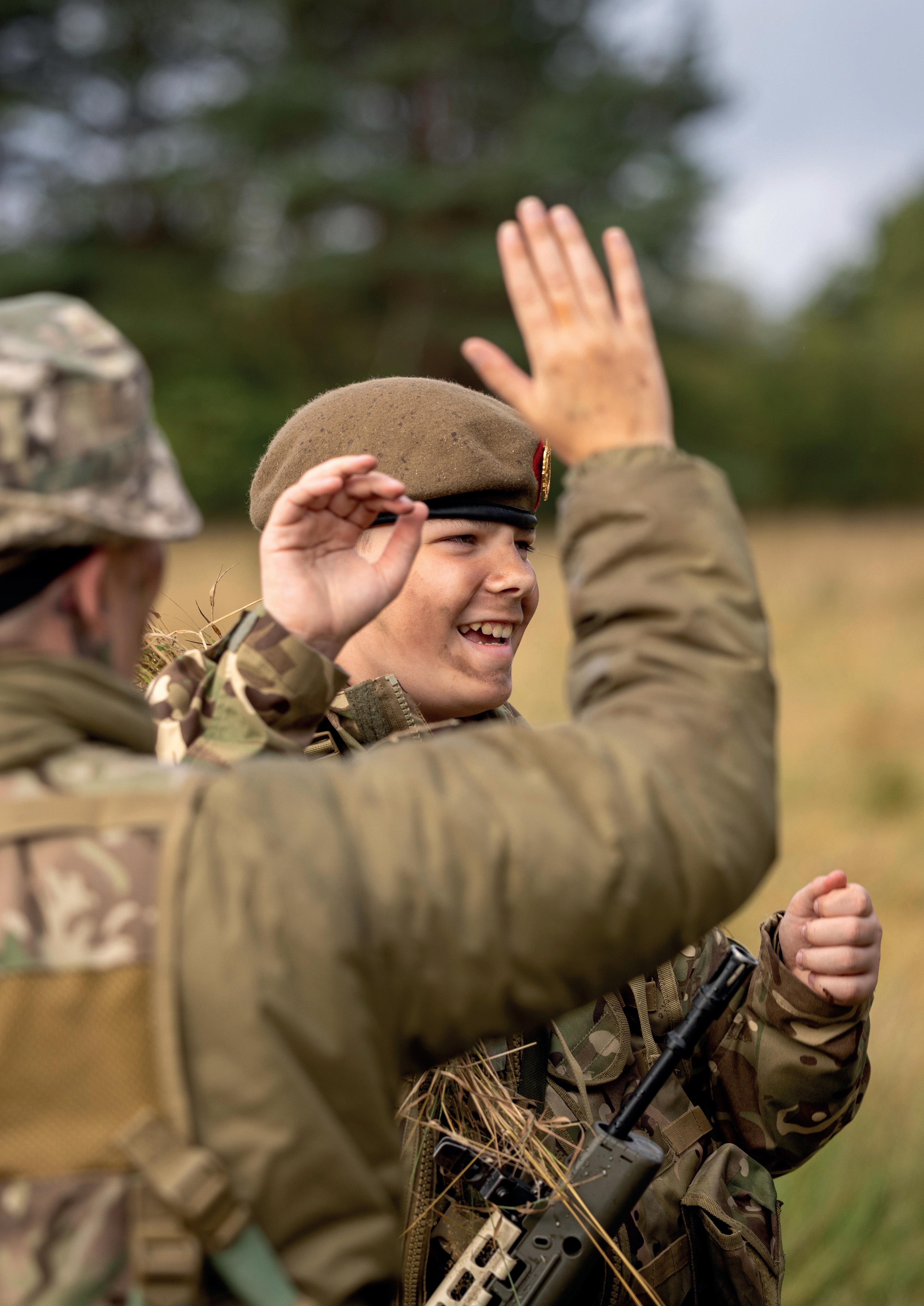



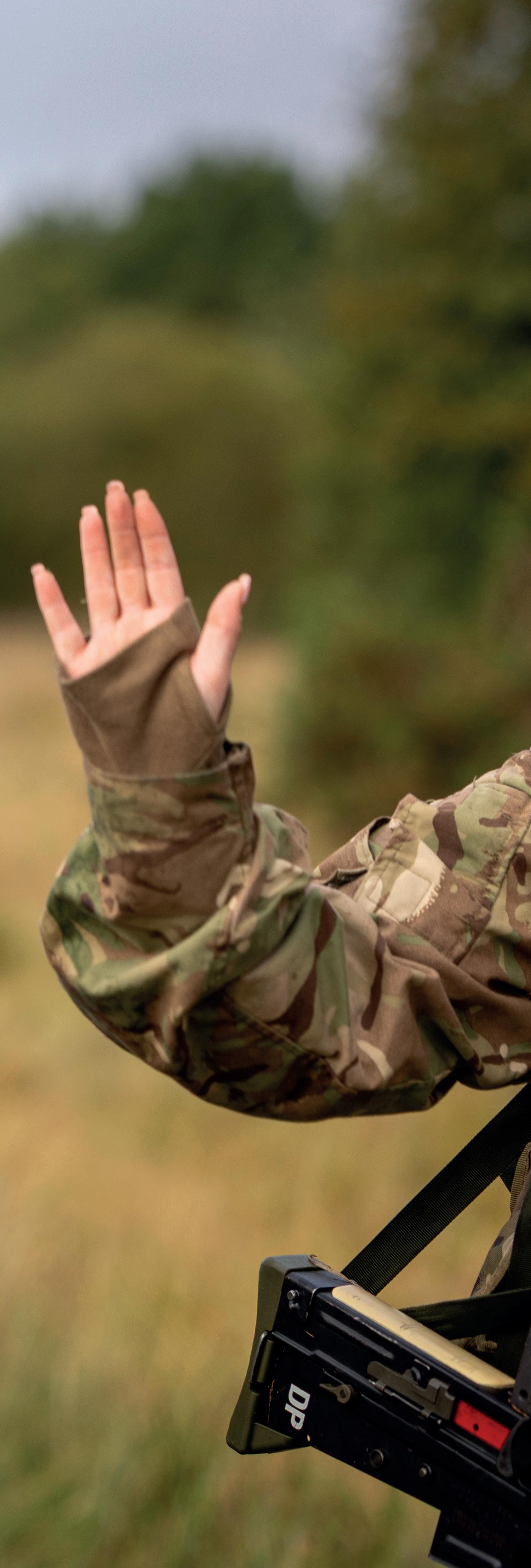

In 2025, our Army Cadets have demonstrated the very best of what this country’s young people can achieve when challenged and inspired. Over the past twelve months, cadets and adult volunteers alike have shown remarkable energy and commitment across a truly impressive range of activities – from fieldcraft and navigation to adventurous training, first aid and community engagement. Whether on the parade square, hilltop, or sports field, the Army Cadets spirit has shone brightly.
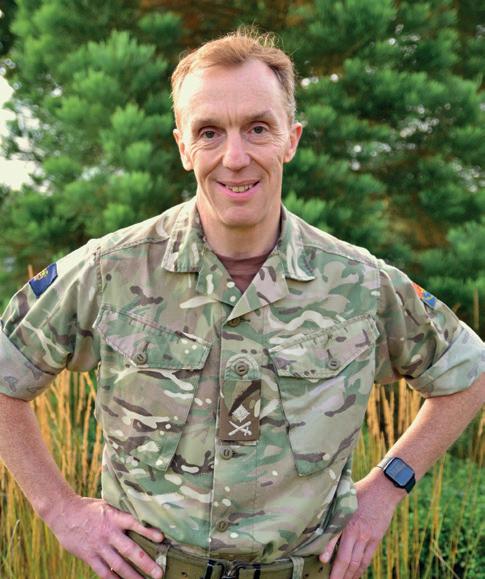
Cadets have taken part in challenging exercises across the UK and overseas, which has tested their endurance, teamwork and leadership skills. Many have earnt qualifications in expedition leadership, first aid and Duke of Edinburgh’s Awards, while others have built confidence and resilience through mountain biking, orienteering and water sports. Annual camps have once again provided unforgettable opportunities to live, learn and lead –experiences that build skill, friendship and self-belief.
‘This Year in Review captures the extraordinary diversity of the Army Cadets experience’
Our ceremonial and community work has continued with pride and professionalism. Cadets have represented their detachments at Remembrance services, civic events and charitable initiatives, embodying the values of selfless commitment and respect that define our Army Cadets.
Behind every achievement stand our dedicated adult volunteers, whose guidance, mentorship and sheer hard work enable our cadets to thrive. So it is my privilege, on behalf of all in the Army Cadets, to thank all the adult volunteers who make the magic happen.
This Year in Review captures the extraordinary diversity of the Army Cadets experience – the learning, laughter, challenge and achievement that makes it such a unique organisation. Enjoy!

Copyright The contents of this publication are fully protected by copyright and may not be reproduced without permission.
Disclaimer While every effort has been made to ensure that adverts, details and articles appear correctly, Year in Review magazine cannot accept responsibility for any loss or damage caused directly or indirectly by the contents of this publication. The views expressed in this publication are not necessarily those of its publisher or editor. Year in Review is produced by saltmedia.co.uk
6 Who we are
A snapshot of the Army Cadets.
8 Our values
Discover the values that run through everything we do.
10 What we do
From music and sport to adventurous training and 'the green stuff', our organisation is diverse in every respect.
Army
Take a walk through the history of the Army Cadets and discover key milestones on our journey.
18 2024/25 highlights
The Army Cadets took part in some exceptional events during the past year.
Find out where cadets travelled on expeditions, exchanges and adventurous training trips.
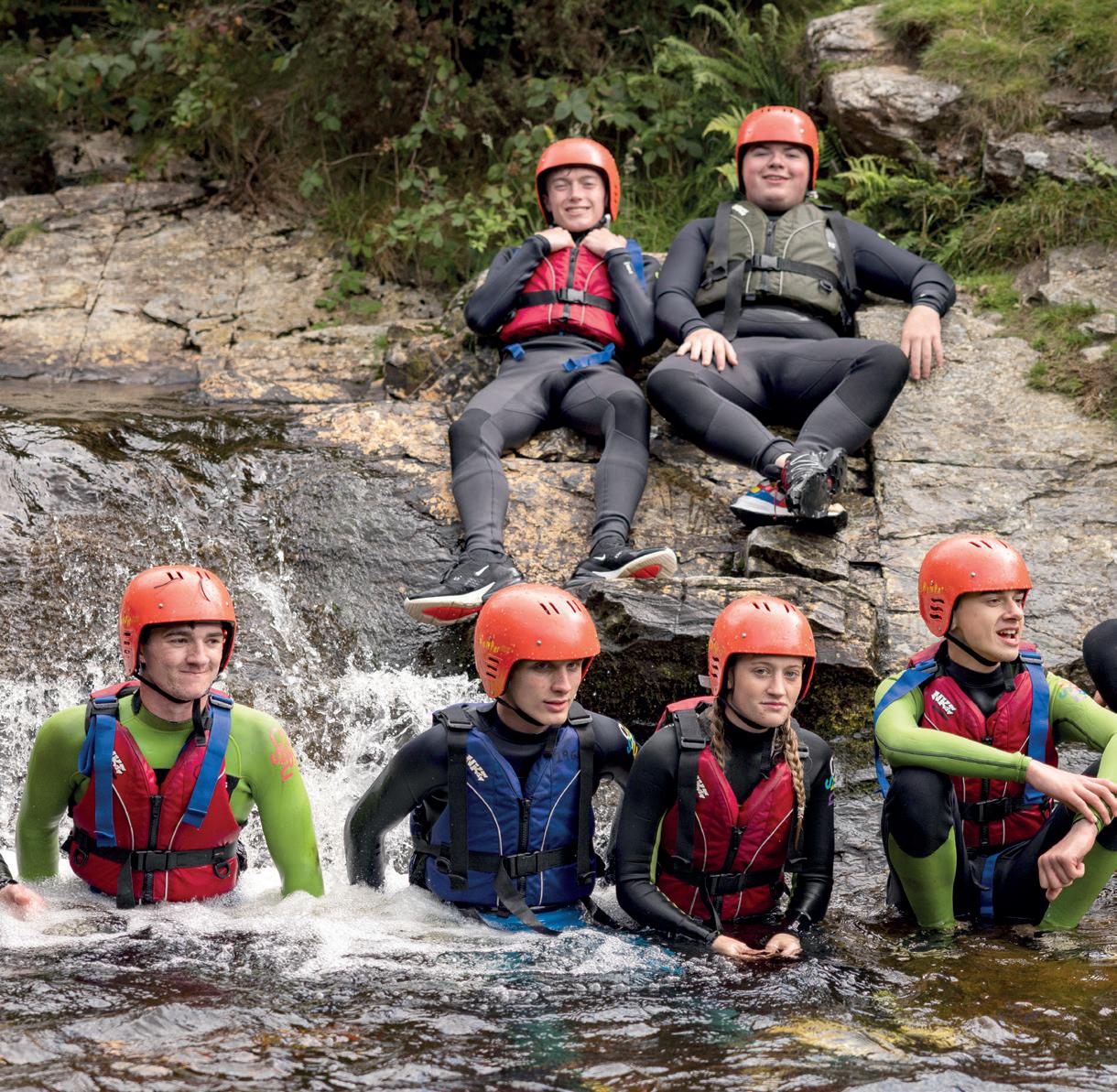
10
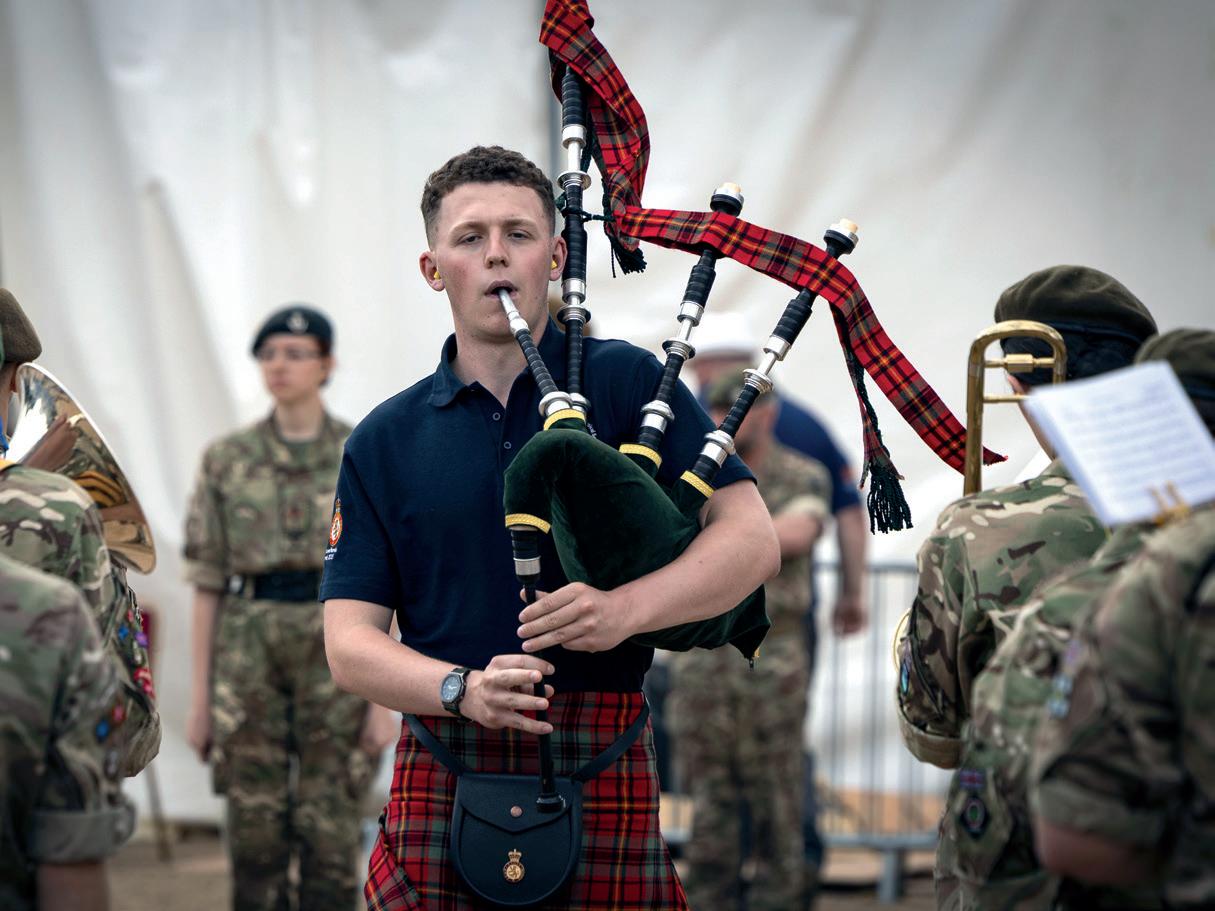
18

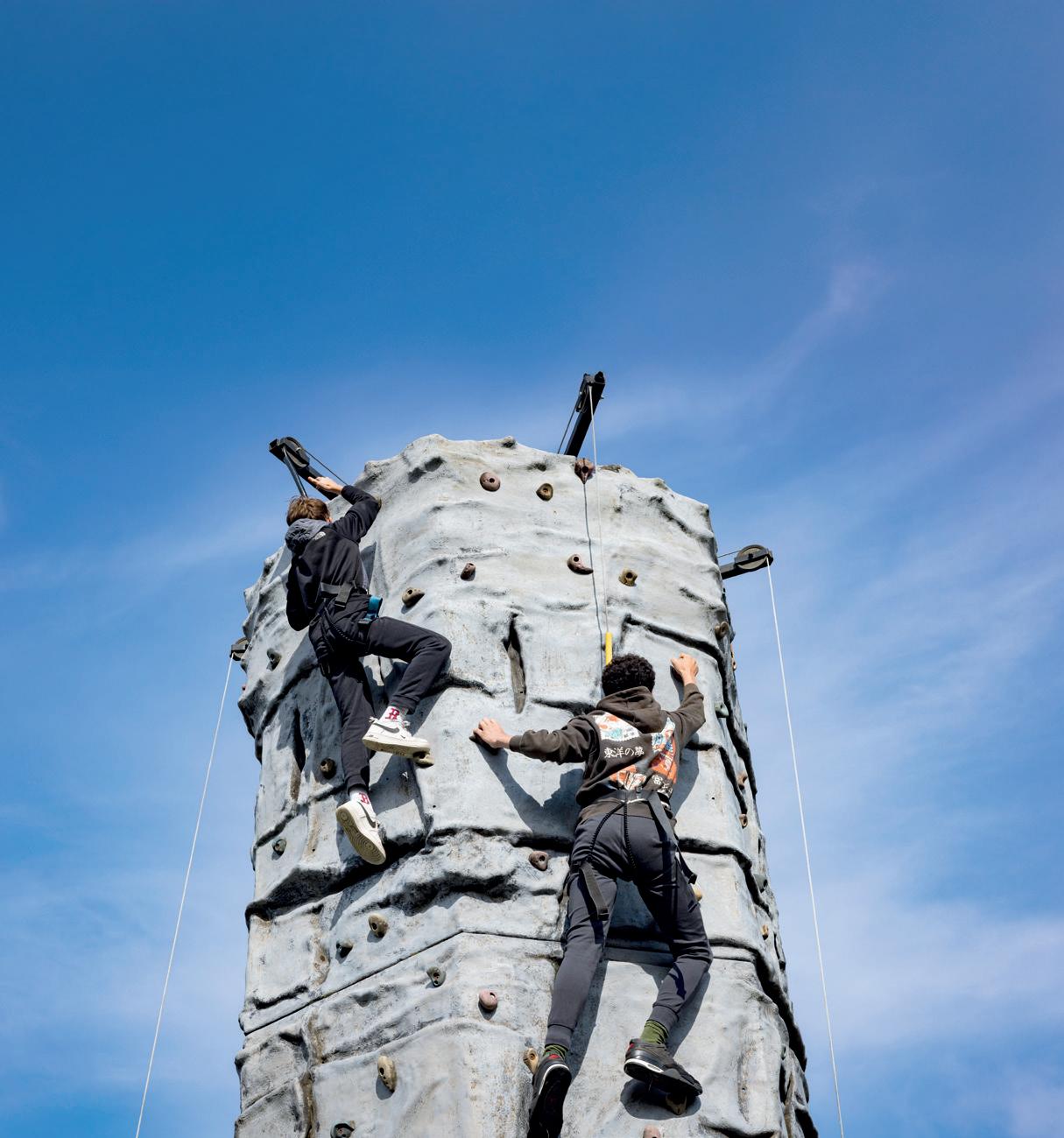
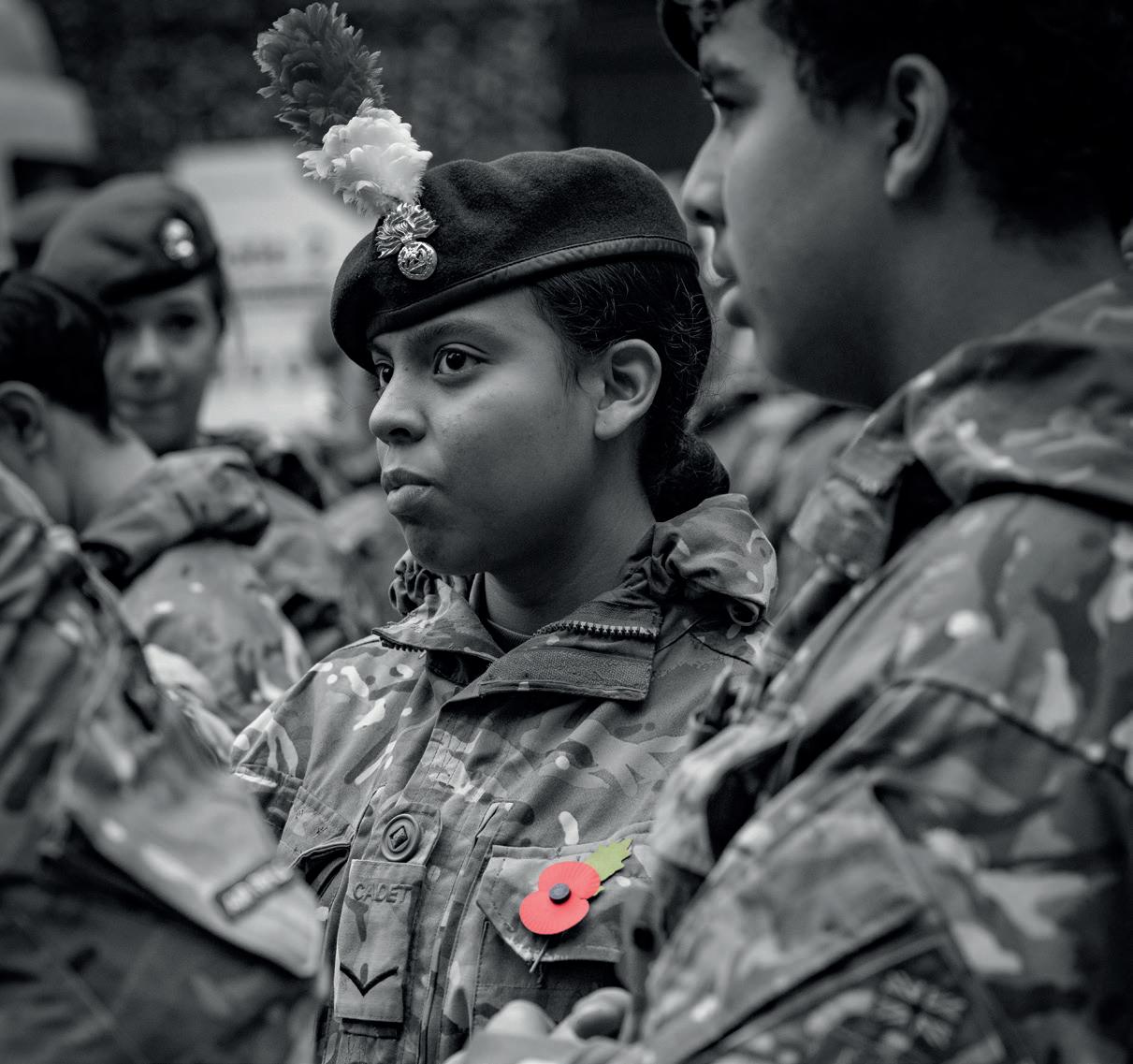
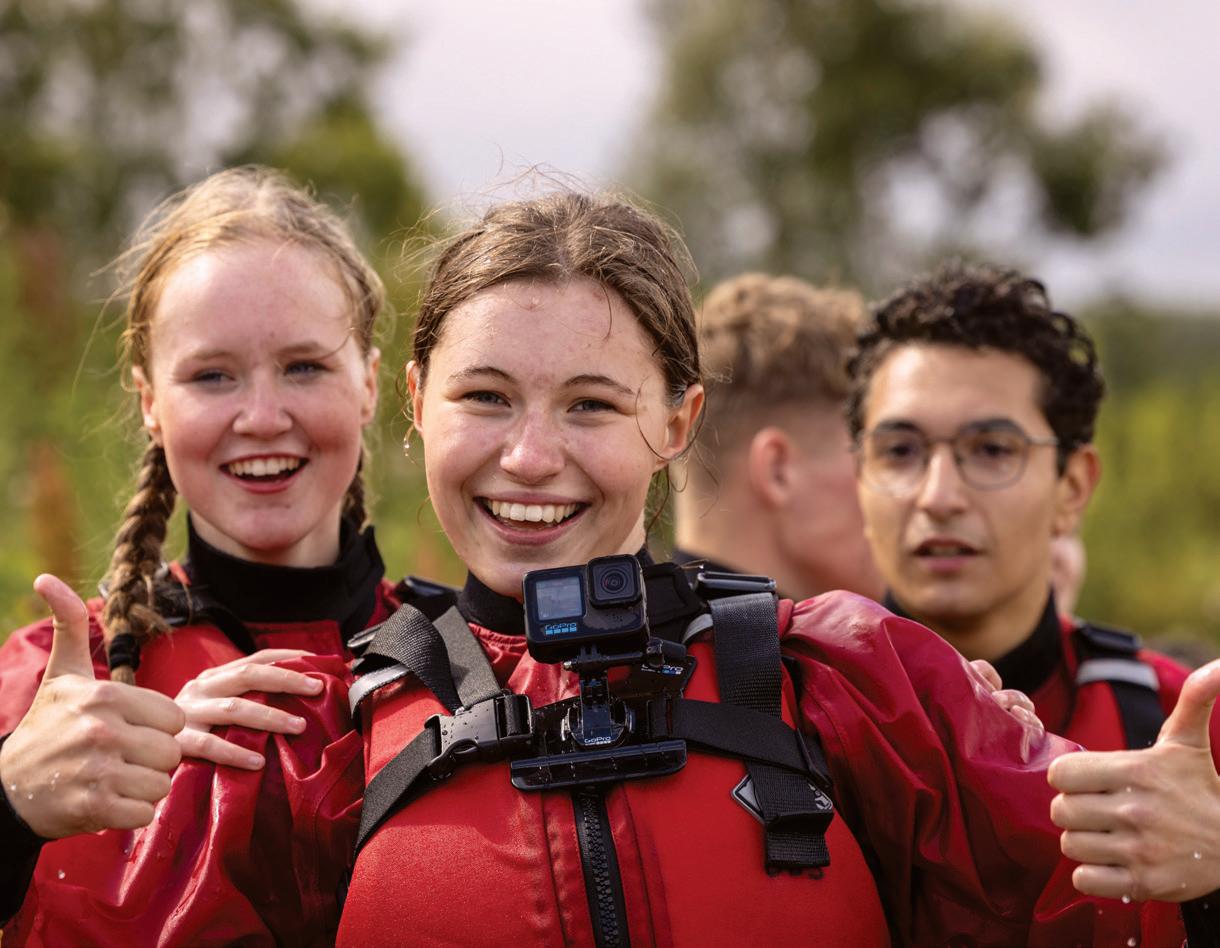
A four-year university study has revealed a positive impact on social mobility, wellbeing and career prospects for young people in the cadet forces.
How cadets and adult volunteers support their communities – from fundraising to Remembrance parades.
Discover how individual cadets and adult volunteers saved lives in 2024/5.
Ever wondered what goes on at summer camp? We've got the whole story – in pictures.
Key honours, awards and qualifications gained.
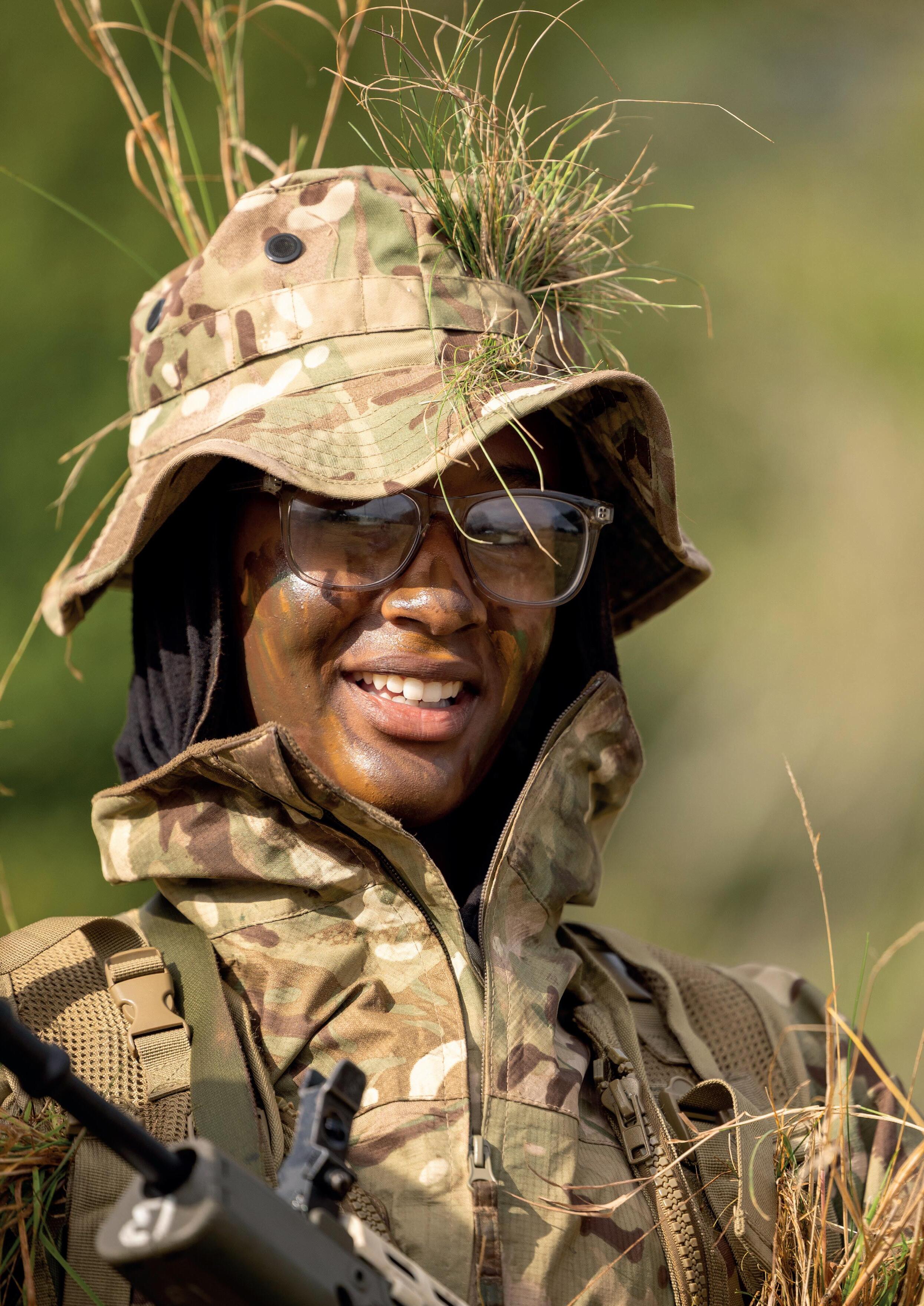
We're a youth organisation helping young people grow to be the best they can be through fun, friendship, action and adventure. In this way we enable young people to unlock their talents and shape their own futures.
The Army Cadets is one of the UK’s biggest youth organisations and the largest of the MOD-sponsored youth cadet organisations.
We provide unparalleled opportunities and unique experiences via a team of dedicated adult volunteers and permanent staff, with support from key partners.
The Army Cadets is a combination of the Army Cadet Force (ACF) and the Combined Cadet Force (CCF).
The ACF has over 1,590 units across the UK and Crown Dependencies, as well as two units in Cyprus, and is open to any young person aged 12–17 years. There are no specific school requirements to join.
The Combined Cadet Force (CCF) is found within schools and is for the pupils of that school. There are CCF contingents in 449 schools across the UK. ARMY CADET FORCE (ACF)
CADETS IN NUMBERS
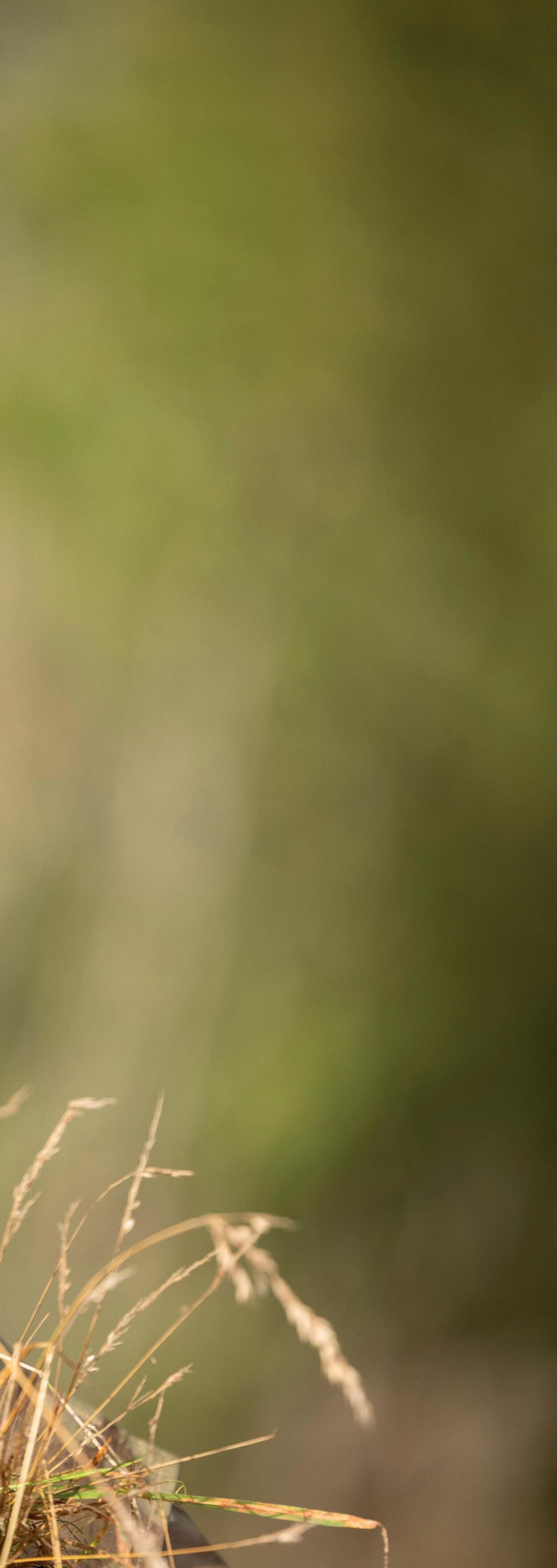
We're fortunate to have some inspiring individuals playing key roles in our organisation, including our National Ambassadors Jordan Wylie MBE and Sally Orange MBE, and National Honorary Colonel Lorraine Kelly CBE.
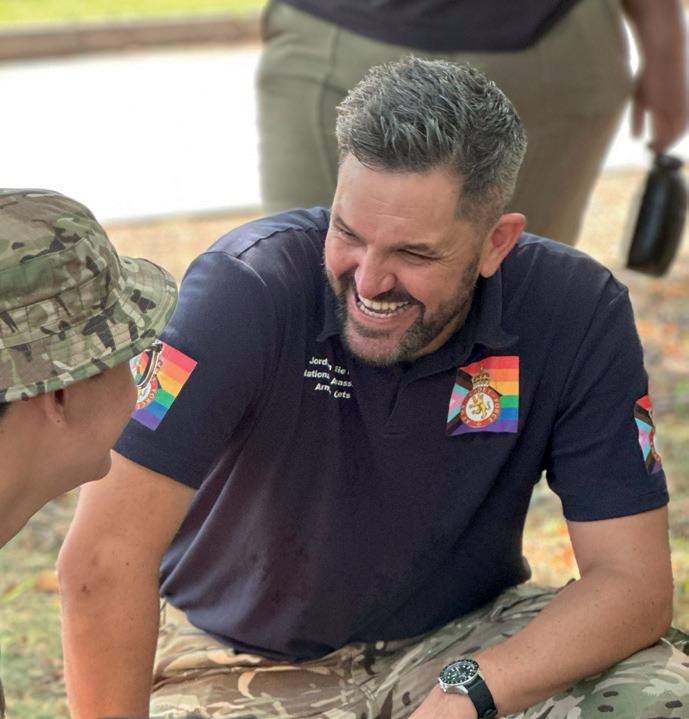


Our aim is to inspire young people to achieve success in life with a spirit of service to the King, country and the local community, and to help them become good citizens.
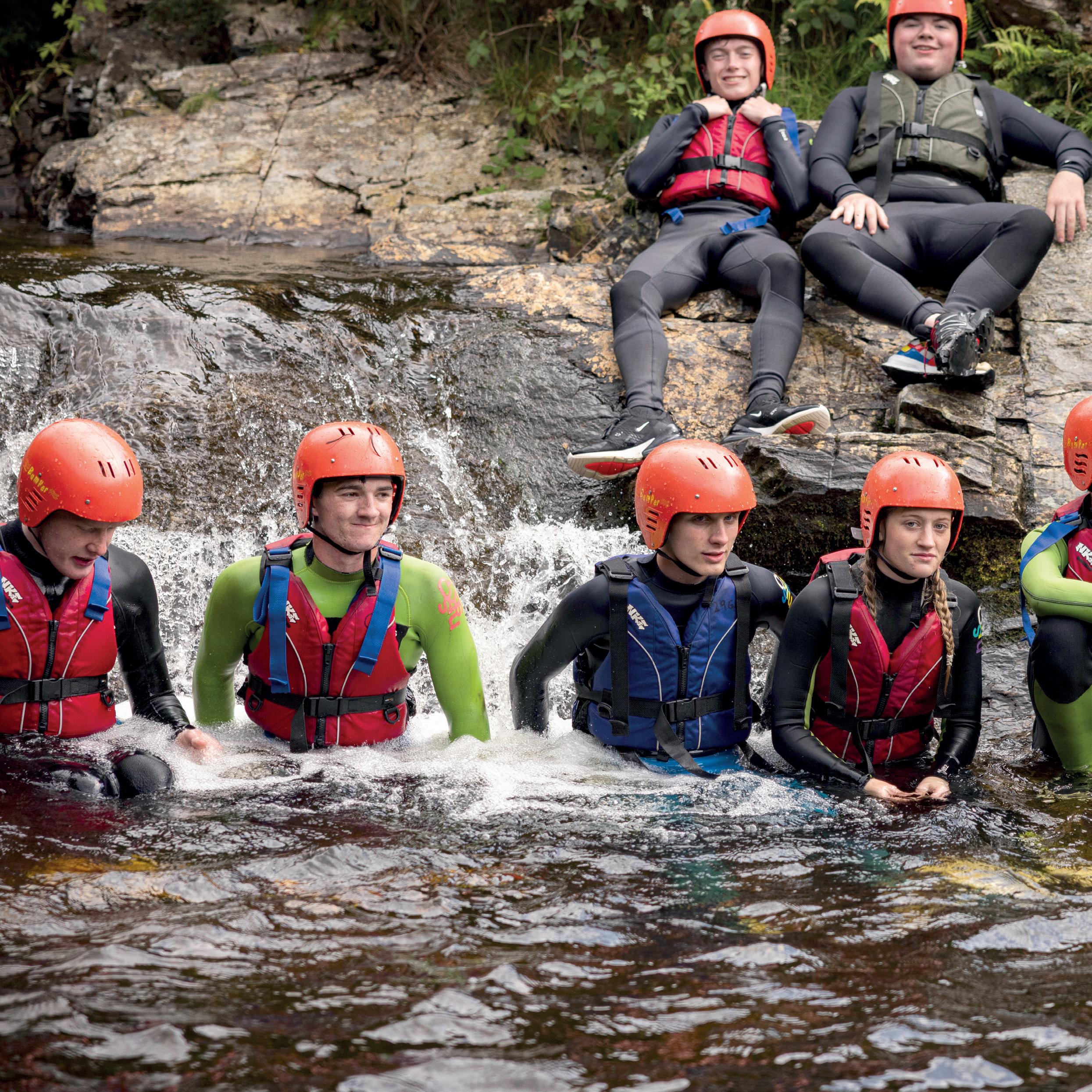
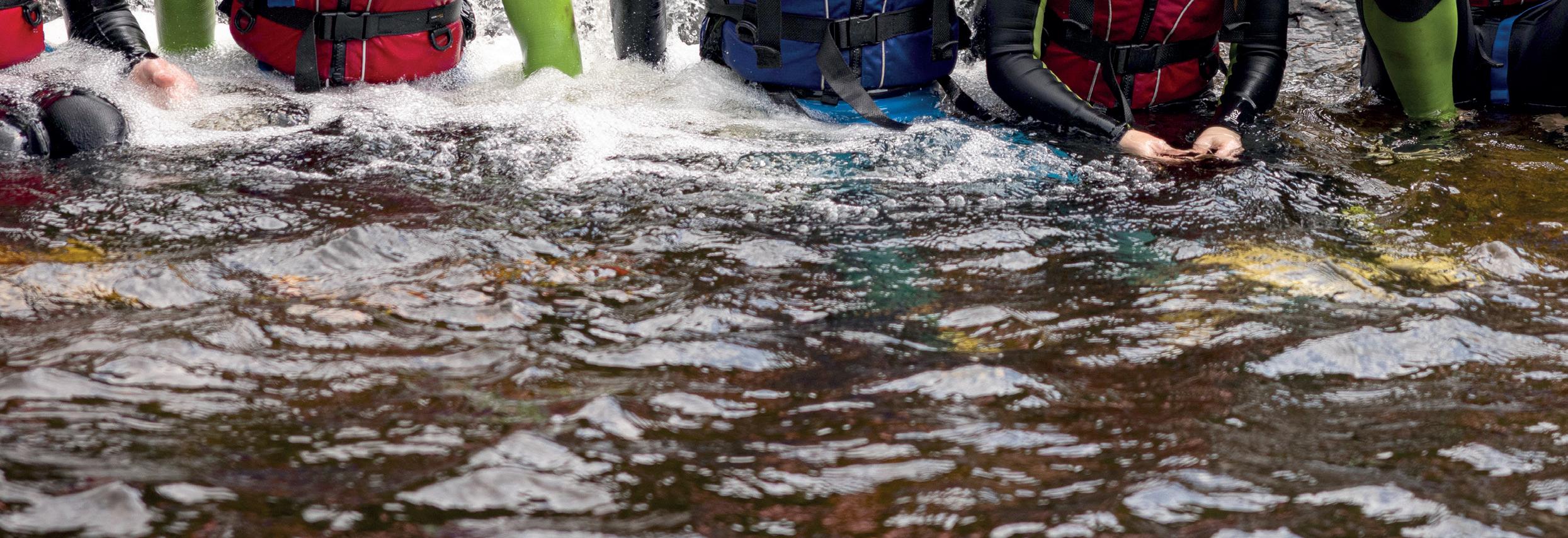
1Providing progressive cadet training, often of a challenging and exciting nature, to foster confidence, self-reliance, initiative, loyalty and a sense of service to others.
2 Encouraging the development of personal skills, of practical leadership and the ability to work successfully as a member of a team.
3 Stimulating an interest in the Army and its achievements, skills and values.
4 Advising and supporting those considering a career in the services or the armed forces.
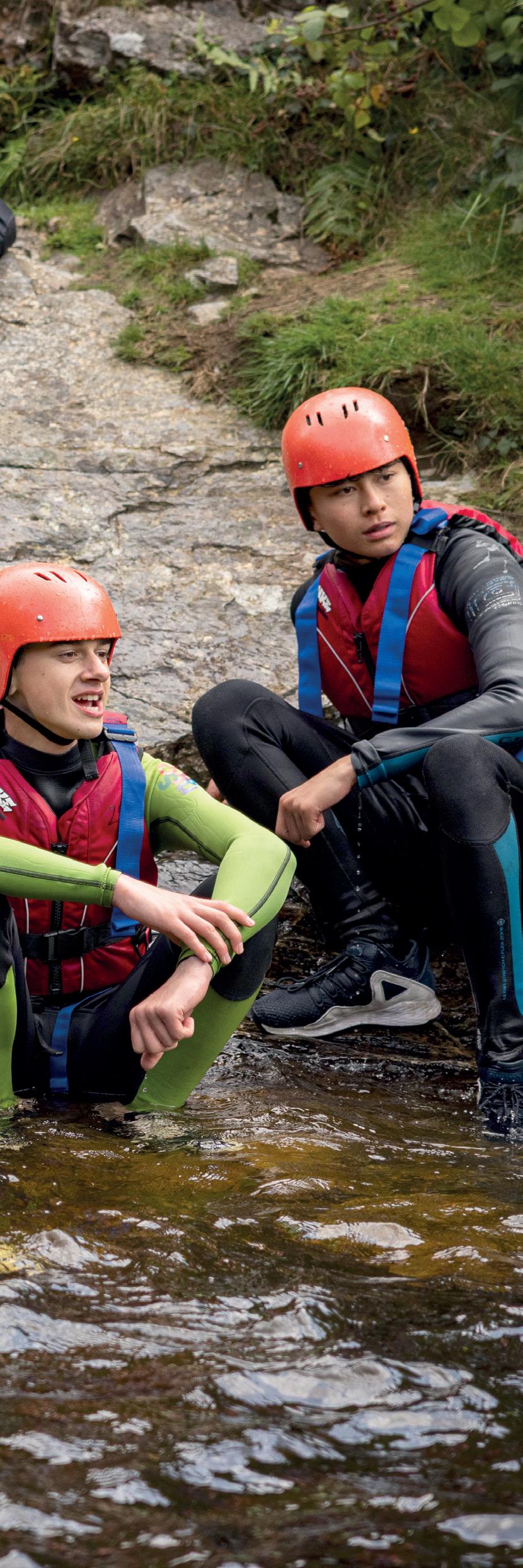
Courage is both physical and moral. Physical courage is what enables us to motivate ourselves and others when the activity or the environment is hard or demanding, such as hiking across Dartmoor as part of a Ten Tors team.
Moral courage is having the strength and confidence to do what is right even when it might make us unpopular, such as standing up to bullying. It is also the courage to insist on maintaining the highest standards of behaviour. Both physical and moral courage are equally important, and showing courage in all forms earns respect and fosters trust.
Discipline helps us all to work effectively as part of a team. It isn’t just about being told off for doing something wrong; it’s about having the self-control to not do the wrong thing and the self-confidence and courage to stand up to those who do.
Self-discipline includes the ability to make the time to polish our boots, iron our uniform and be smart on parade, no matter what other distractions are around us.
Discipline helps build our team so everyone is trusted to do the task well. Good discipline means we all do the right thing – even when it's difficult.
Loyalty is what keeps teams together. In the Army Cadets that team could be our detachment, county, section, contingent or any other team we are part of, such as an expedition group, overseas exchange or sports team.
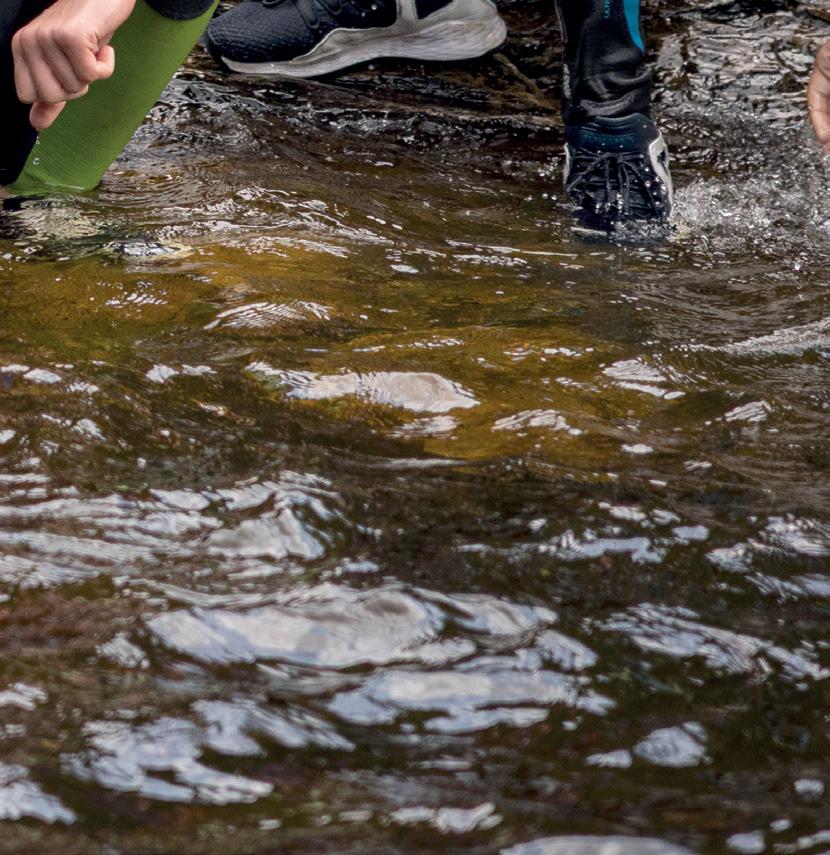
When we work together in a team we achieve so much more. However, loyalty must only support positive behaviours and actions. Loyalty to a team should never allow poor behaviours or the wrong thing to be done. Letting others stray from our values is not being loyal to the team.
Respect for others means we treat them as we’d like to be treated.
The Army Cadets is a very varied and mixed team, and we do not discriminate against anyone because of their gender or because they have a different ethnic background, religion or sexual orientation from us.
We recognise the value everyone brings to the team and that they all have different viewpoints and ways to contribute. We must be kind and respect everyone, as teams that embrace everyone's uniqueness are stronger.
Integrity refers to honesty and showing strong moral and ethical principles in line with the Army Cadets values and standards.
When we show integrity we build trust in ourselves and in our team, and this makes the team stronger and able to do more.
Showing integrity also helps us to do more in our communities, enabling others outside the Army Cadets to trust us. It's important that everyone, from the newest cadet to senior officers, demonstrates integrity in everything they do, otherwise trust will be eroded.
Selfless commitment is critical to good leadership and teamwork. It is about putting the needs of others ahead of our own to help everyone succeed.
We demonstrate this when we help someone with a lesson they are finding difficult, rather than going off for a break, or when we hang back with someone who is struggling on an expedition, rather than speeding on ahead. Without selfless commitment we can’t be good leaders. Remember the motto of Royal Military Academy Sandhurst, where Army officers are trained, is Serve to Lead
We offer cadets the opportunity to challenge their limits and grow by being involved in a wide range of activities. Adult volunteers also get the chance to develop valuable skills.
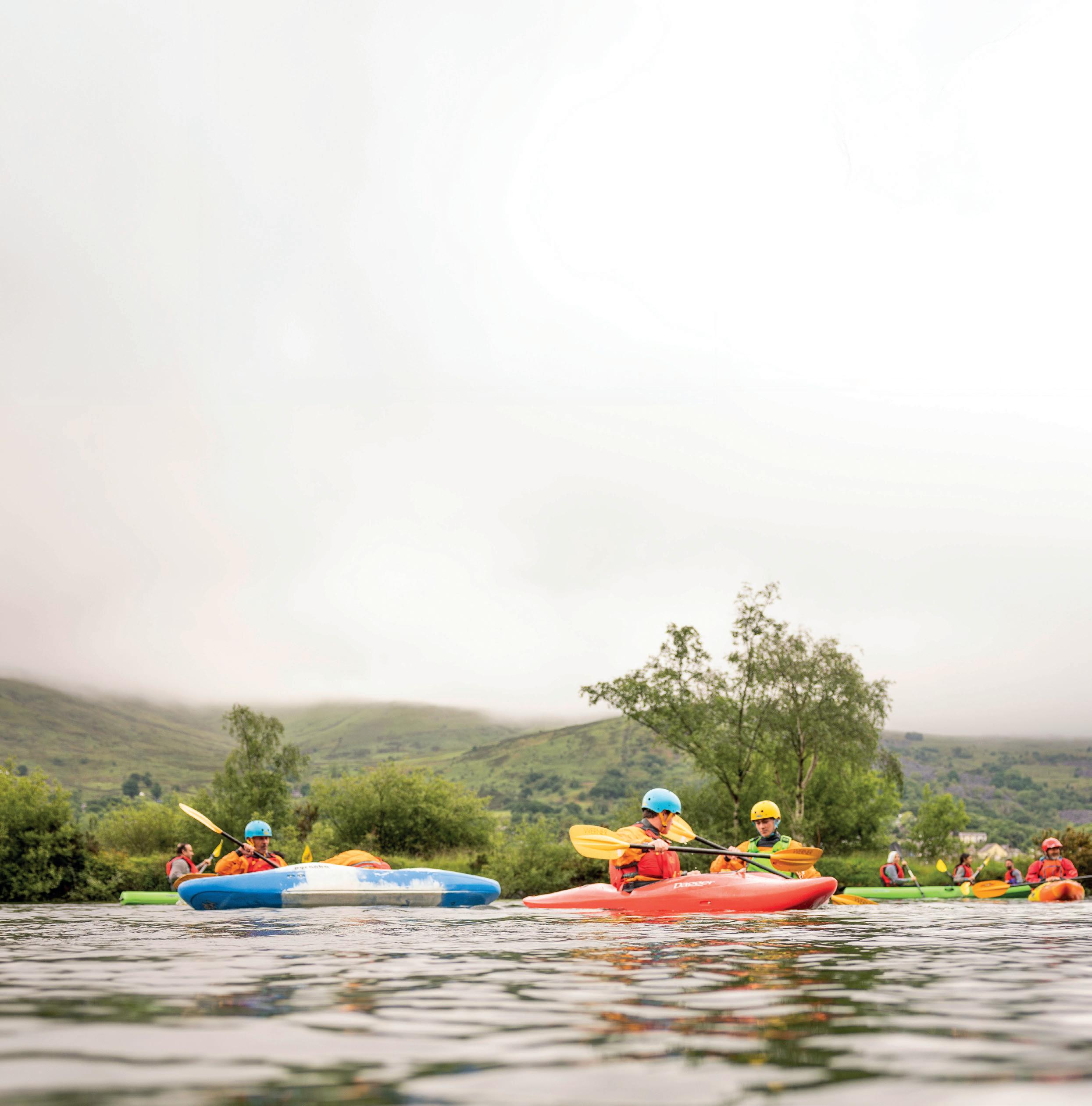
Below are just a few of the activities in which cadets can take part.
ADVENTUROUS TRAINING EXPEDITIONS
MILITARY-THEMED TRAINING
LIFE-SAVING SKILLS (FIRST AID)
TARGET SHOOTING
INTERNATIONAL EXCHANGES
THE DUKE OF EDINBURGH’S AWARD
FIELDCRAFT
PROFESSIONAL QUALIFICATIONS
PERSONAL QUALIFICATIONS
MILITARY MUSIC
PIPES + DRUMS
COMMUNITY ENGAGEMENT
CYBERSECURITY
TRIPS + TRAINING
WEEKENDS + CAMPS
STEM OPPORTUNITIES
LEADERSHIP TRAINING
We provide opportunities to play international sports against other nations while representing the UK's Army Cadets.
County, regional and national competitions are also held in a variety of sports including:
• ATHLETICS
• CROSS COUNTRY
• ARCHERY
• FOOTBALL
• RUGBY
• HOCKEY
• ORIENTEERING
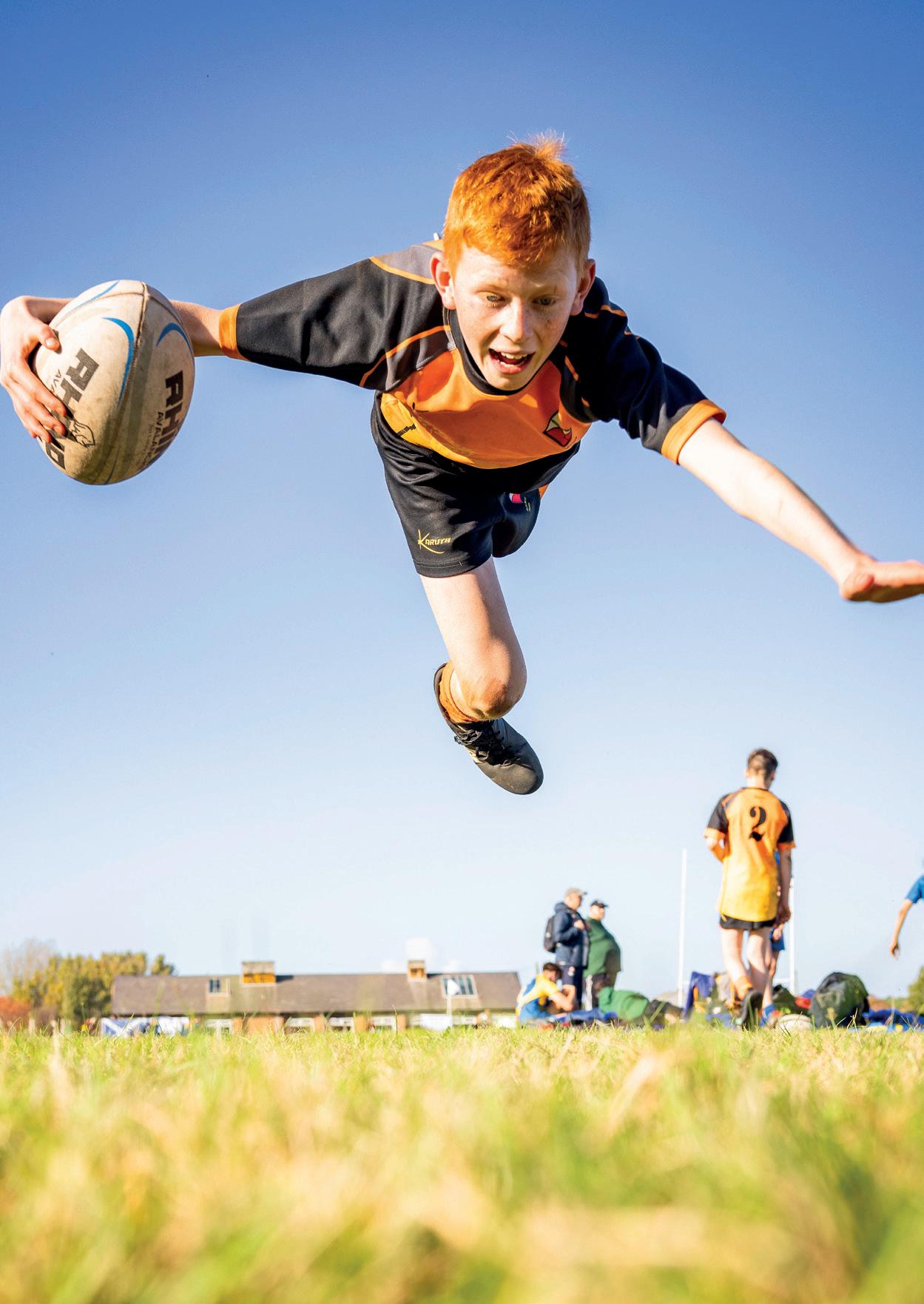
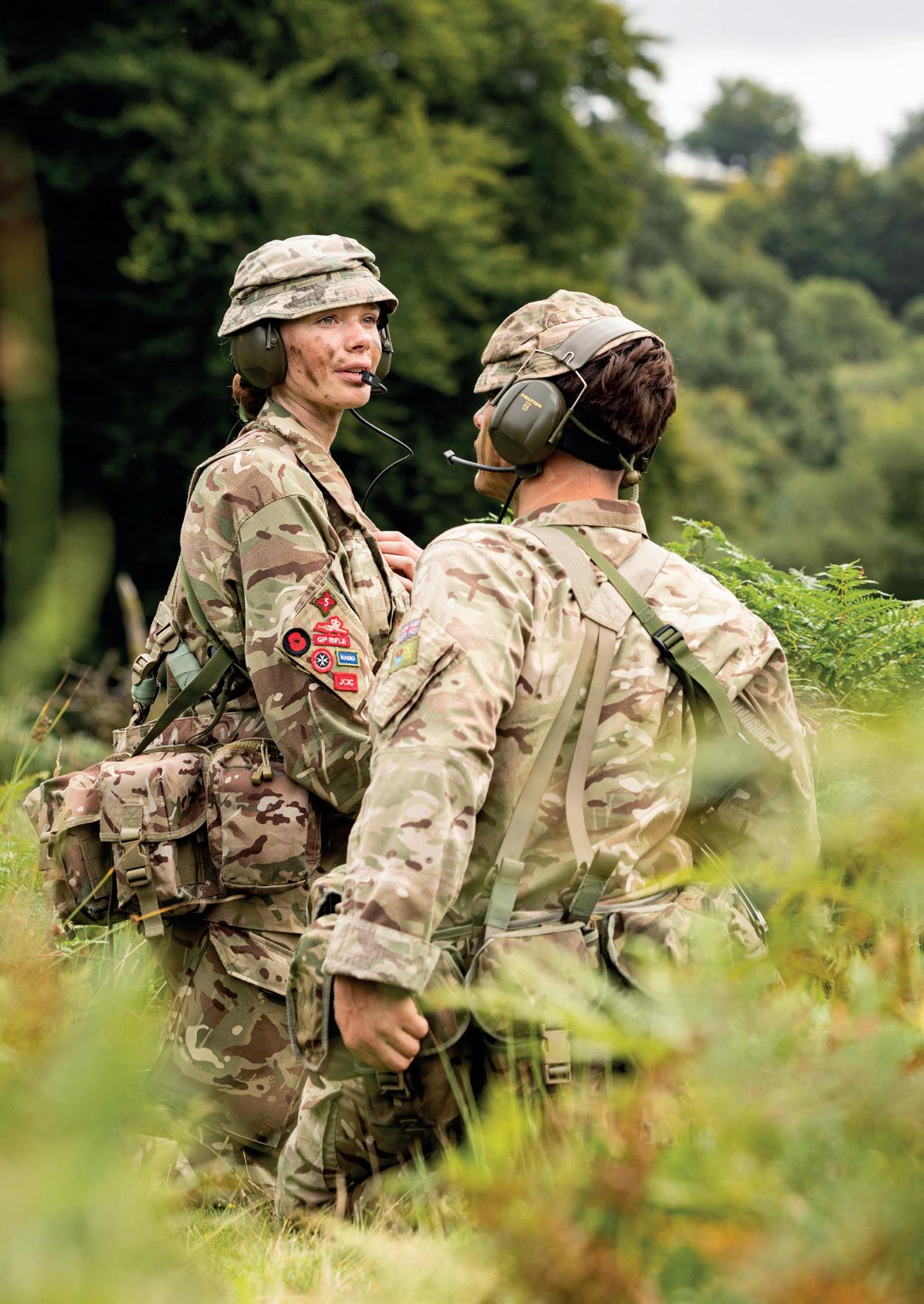
• Being sponsored by the Army means we have access to equipment, locations and training that enhances the Army Cadets experience.
• Through military-themed activities such as drill and turnout, fieldcraft, military knowledge, shooting and weapon handling, we instil maturity, discipline and problem solving and help shape future leaders.
• We push boundaries and inspire our cadets and adult volunteers to achieve things they never thought possible, while instilling core values and standards.

• Free music tuition is offered across the UK, providing a range of opportunities with Military Bands, Corps of Drums and Bugles, and Pipes and Drums.
• There are opportunities to play at prestigious locations such as Edinburgh Castle, Holyrood Palace, Disneyland and Gibraltar.
• Cadets can achieve recognised qualifications including BTEC First Diploma in Music (equivalent to a GCSE), Associated Board of the Royal Schools of Music (ABRSM) qualifications and Scottish Qualifications Authority (SQA) piping and drumming awards.
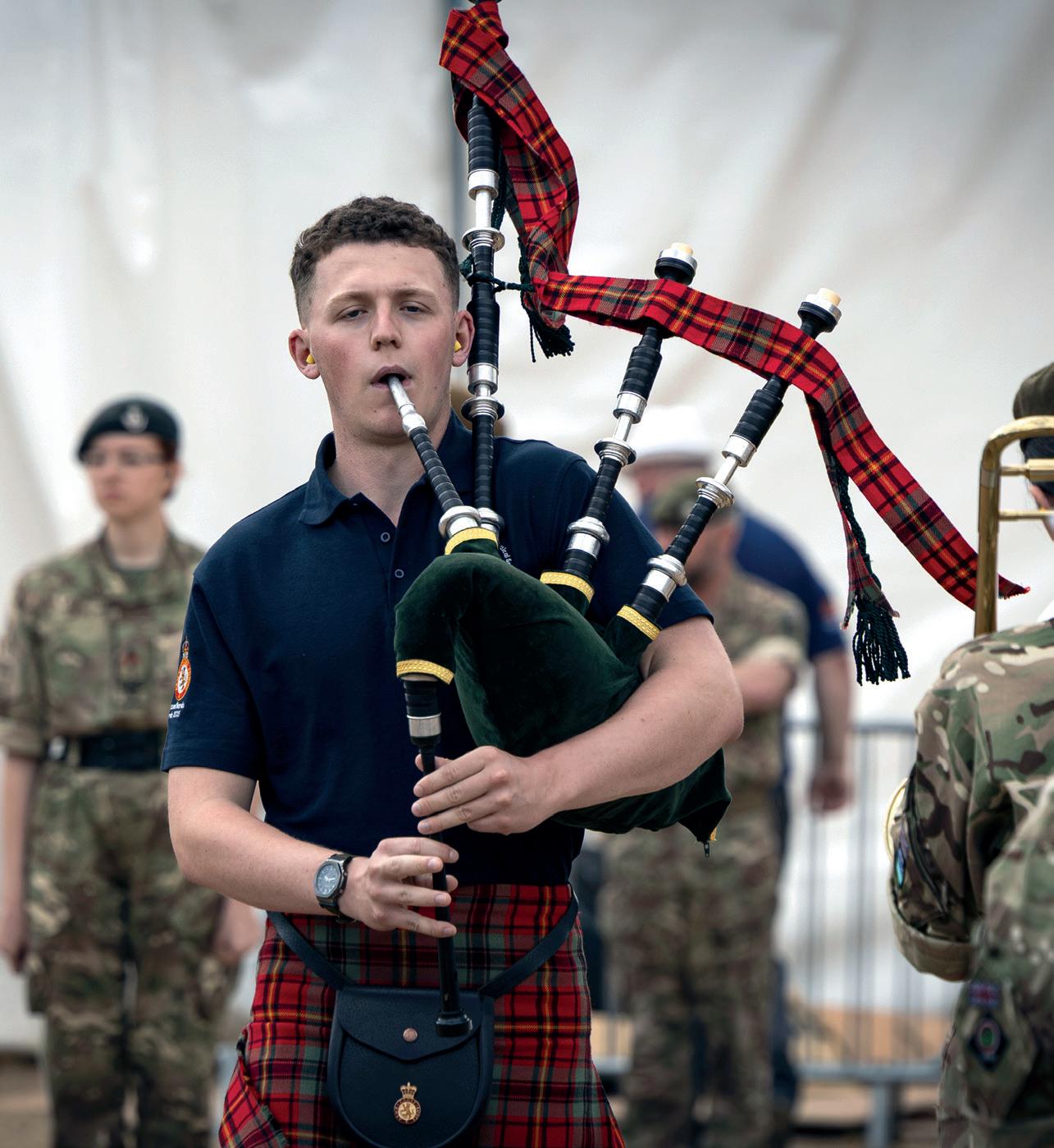
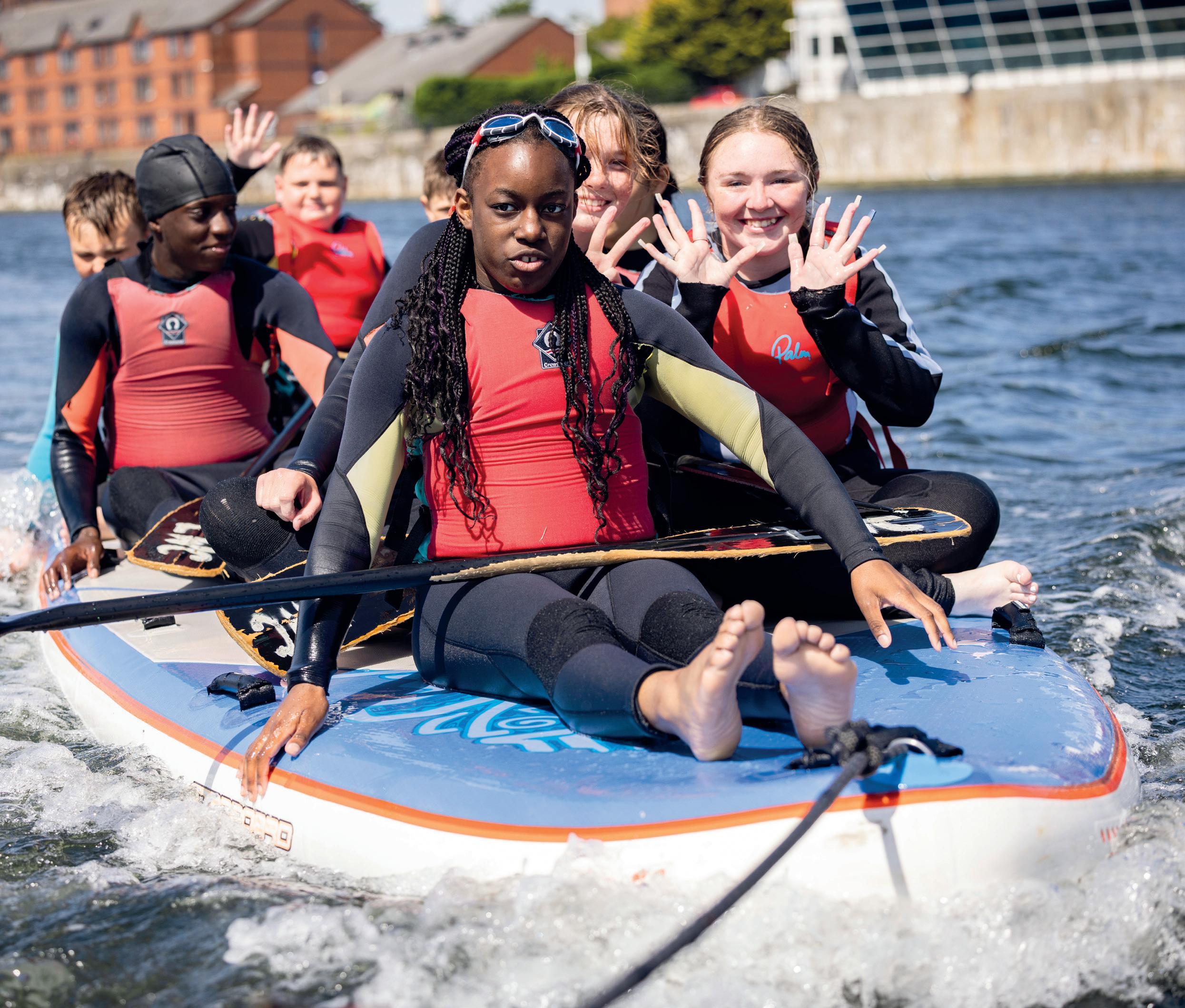
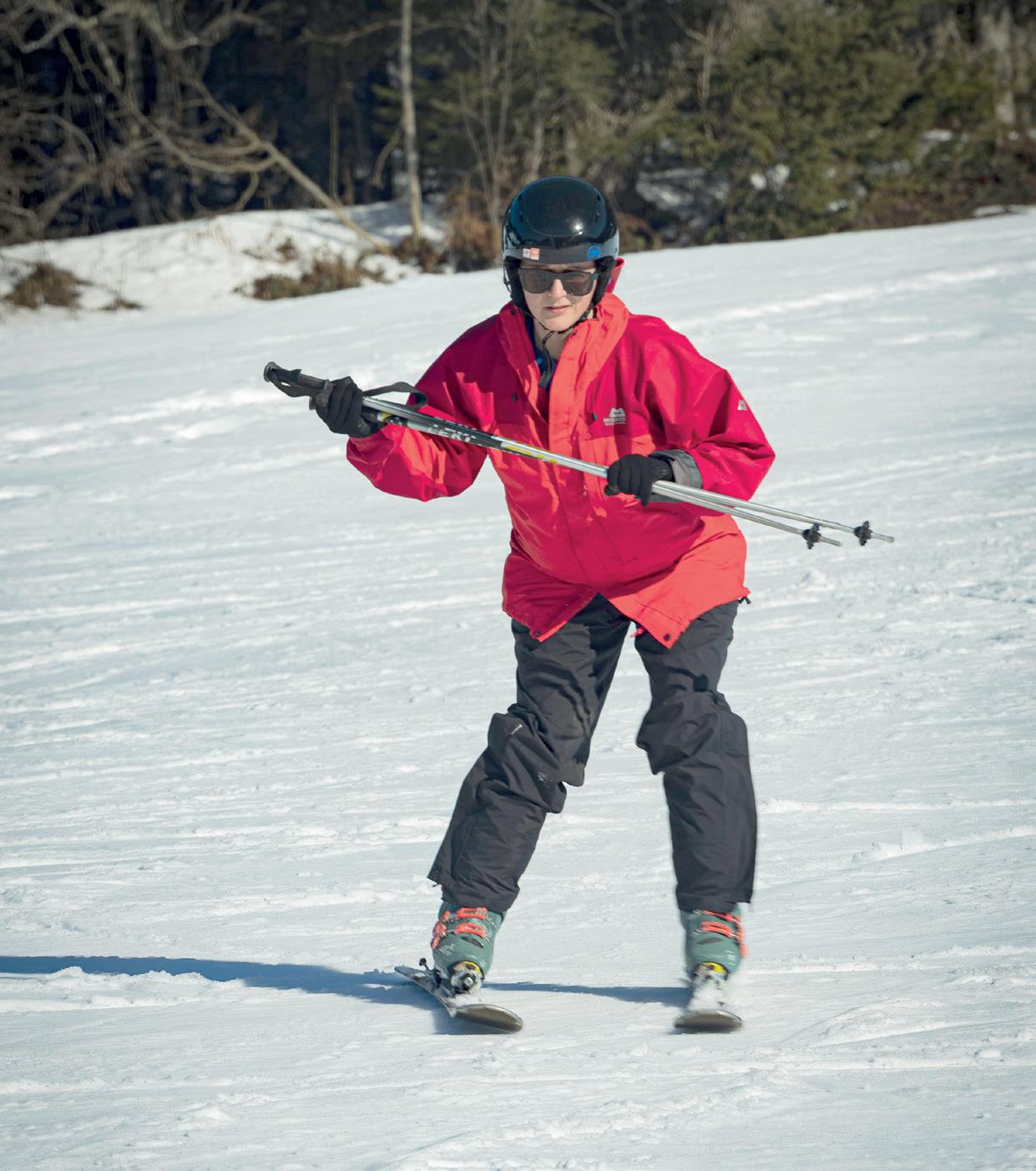
There are many adventurous training opportunities available for cadets and adult volunteers. Some provide the chance for international travel, such as ski trips in Norway and Bavaria.
We run two adventurous training centres in the UK: one in Capel Curig in Wales and another in Halton in Lancashire. Each offers a variety of training courses including:
HILL + MOORLAND LEADERS
PADDLE SPORTS
SAILING
KAYAKING
OPEN-TOPPED CANOEING
ROCK CLIMBING
SEA KAYAKING
KIT MAINTENANCE
ABSEILING
CAVING
NAVIGATION
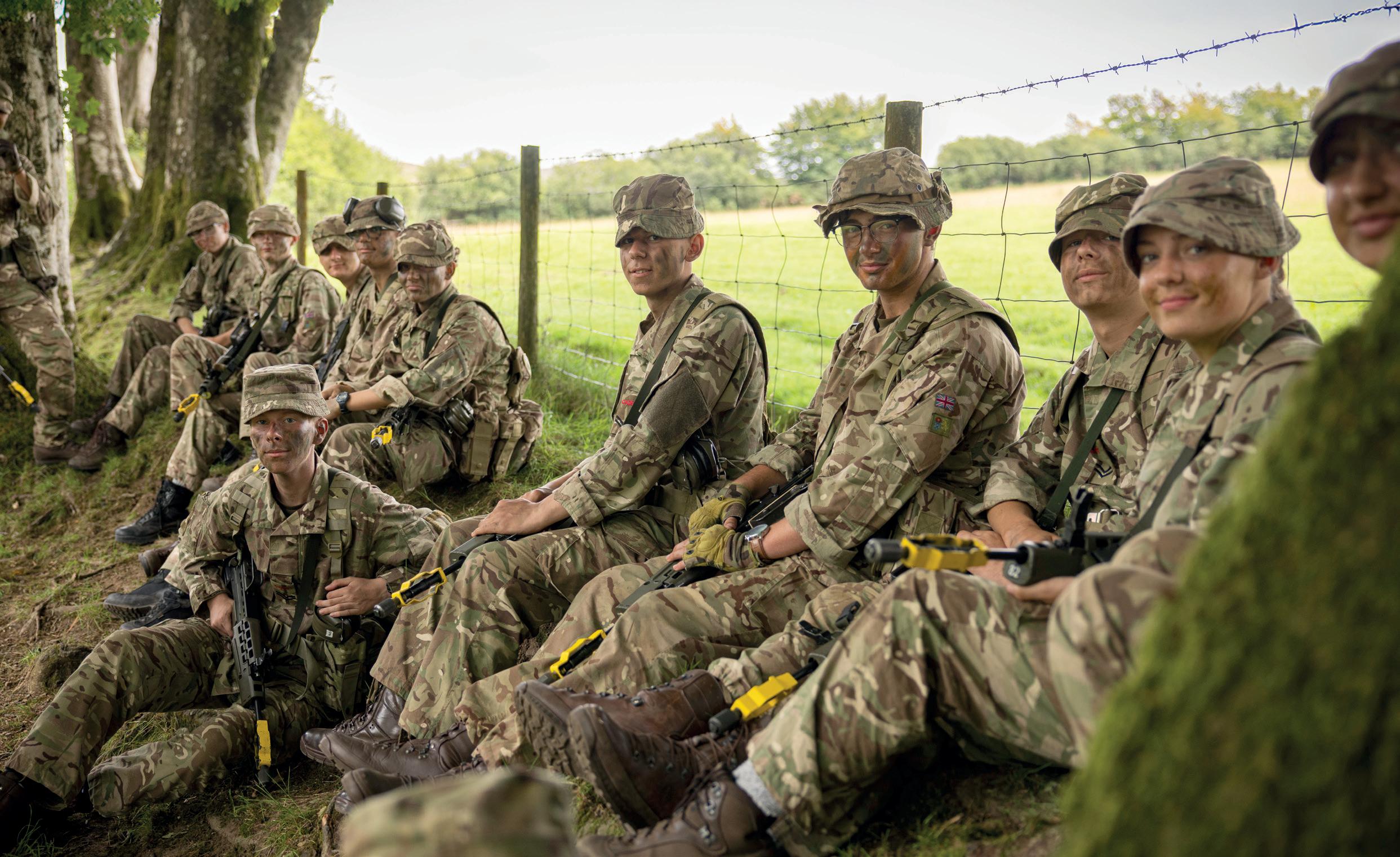
Take a walk through the history of our organisation and discover some of its key milestones.
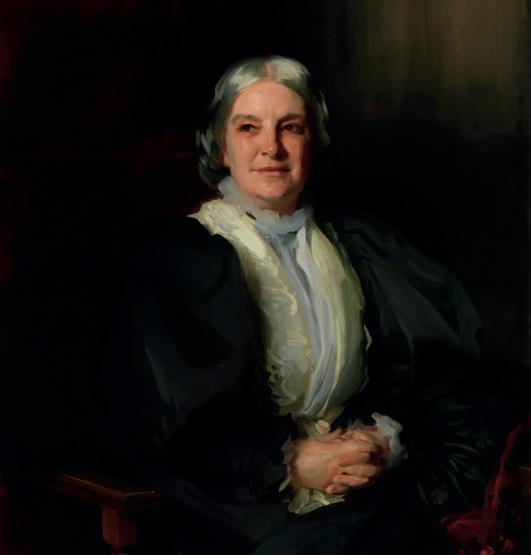
1897
A selection of cadets were positioned on The Mall for Queen Victoria's Diamond Jubilee celebrations.
1859
Forerunners of cadet forces in schools first appeared when a number of schools formed units for the defence of the UK in response to the threat of invasion by France. The threat receded but units remained and, over time, more schools formed units which evolved into the Junior Officers’ Training Corps, administered by the War Office.
Social activist Octavia Hill saw the benefit of what was happening in schools, which led to the opening of one of the first independent cadet units in Southwark, London. Other social reformers helped establish more independent cadet groups – separate from the corps attached to public schools and universities. They saw it as a way of rescuing working boys from poor living conditions.
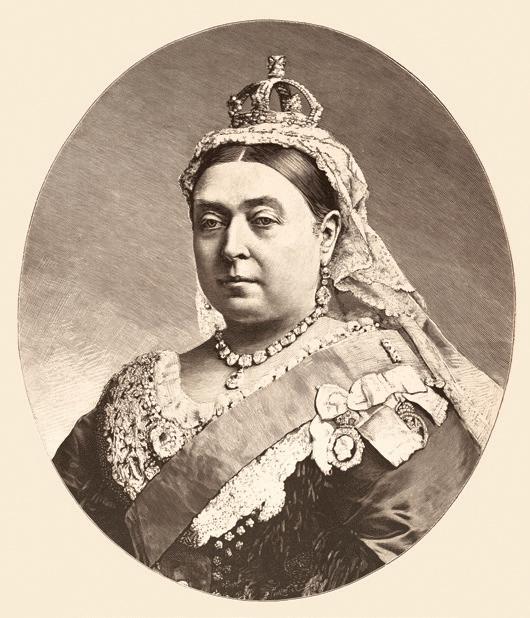
1908
Secretary of State for War Richard Burton Haldane joined the Volunteer Force with the Yeomanry to form the Territorial Force. The newly formed Territorial Force absorbed the cadets into its organisation.
1910
The shortened term 'Cadet Force' began to be used.
1939-1945
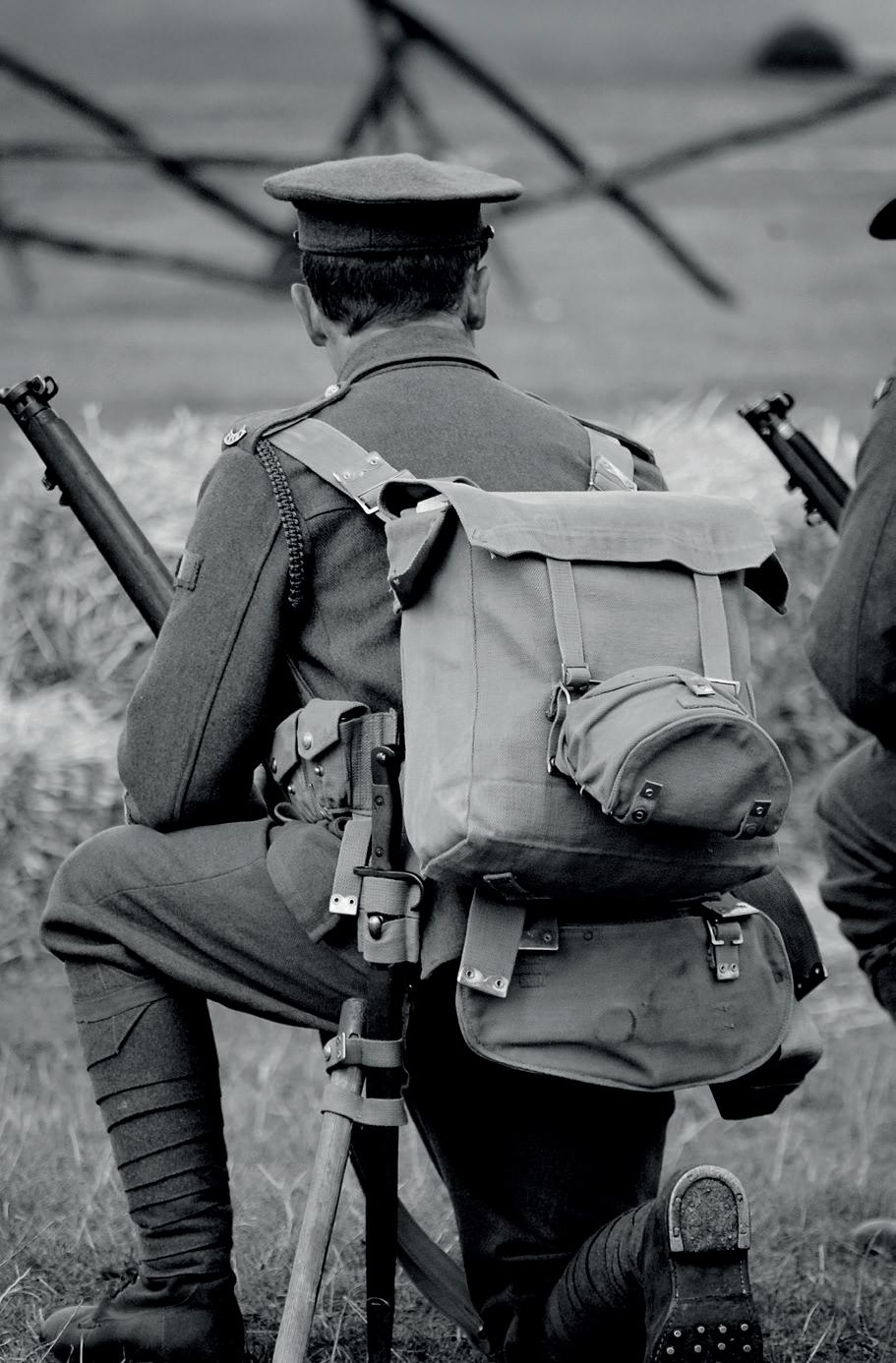
During the Second World War cadets worked with the Home Guard and Reserve units, acting as temporary instructors and supporting manoeuvres and drills. The War Office retook control of the funding and organisation of the Cadet Force, with the BNCA still in control of leisure activities such as sport and competition shooting, as well as the welfare of cadets.
1945
The BNCA was renamed the Army Cadet Force Association (ACFA).
1952
The Combined Cadet Force Association (CCFA) was established to represent all the schools with CCF units.

1953
1914
The outbreak of the First World War saw a period of expansion for the Cadet Force. Cadets were trained to meet the demands on the home front.
1930
After the First World War, the government ceased funding the Cadet Force and many branches closed. However, Field Marshal Lord Allenby and others campaigned for financial and organisational support and the British National Cadet Association (BNCA) was formed.
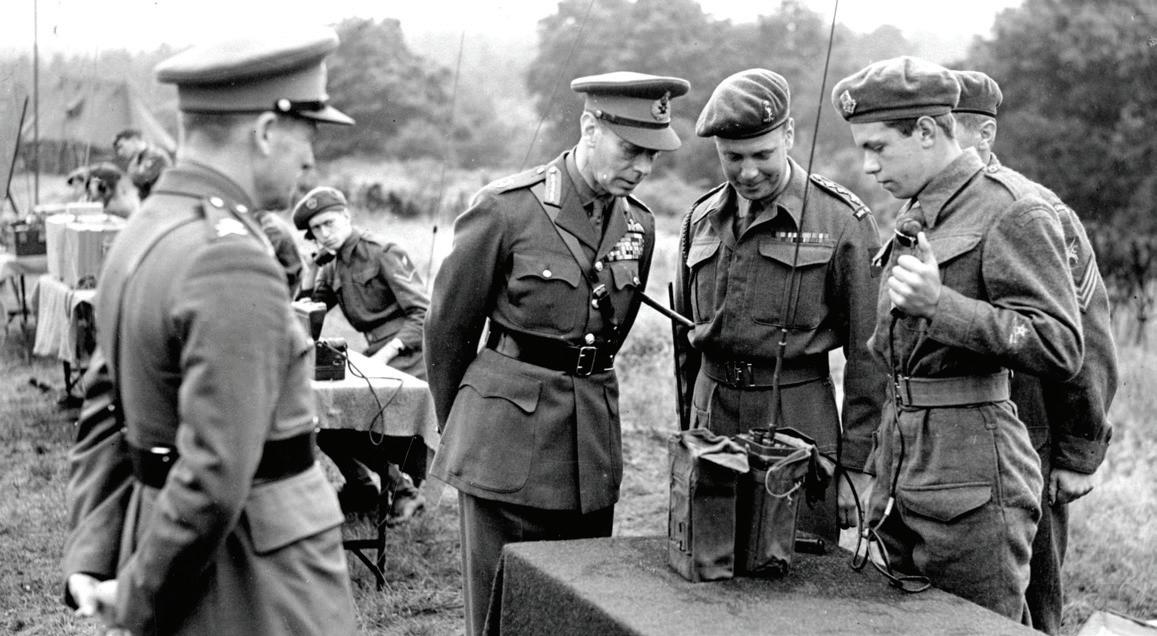
1948
Cadet units in schools combined into one organisation named the Combined Cadet Force (CCF). Contingents had one or more service sections. 247 schools joined and His Majesty King George VI became its Captain General (pictured above, inspecting the Signal Platoon of Portsmouth Grammar School CCF at Bourley Camp, Aldershot, in 1948).
Her Majesty Queen Elizabeth II became the Captain General of the CCF, and HRH Prince Philip, Duke of Edinburgh, was made Colonel-in-Chief of the ACF.
1956-57
Army cadets were among the first participants to take part in the pilot scheme for The Duke of Edinburgh's Award.
The national Cadet Training Centre, Frimley Park, opened in Surrey, increasing opportunities for cadets and adult volunteers. This is now the home of the Army Cadets.
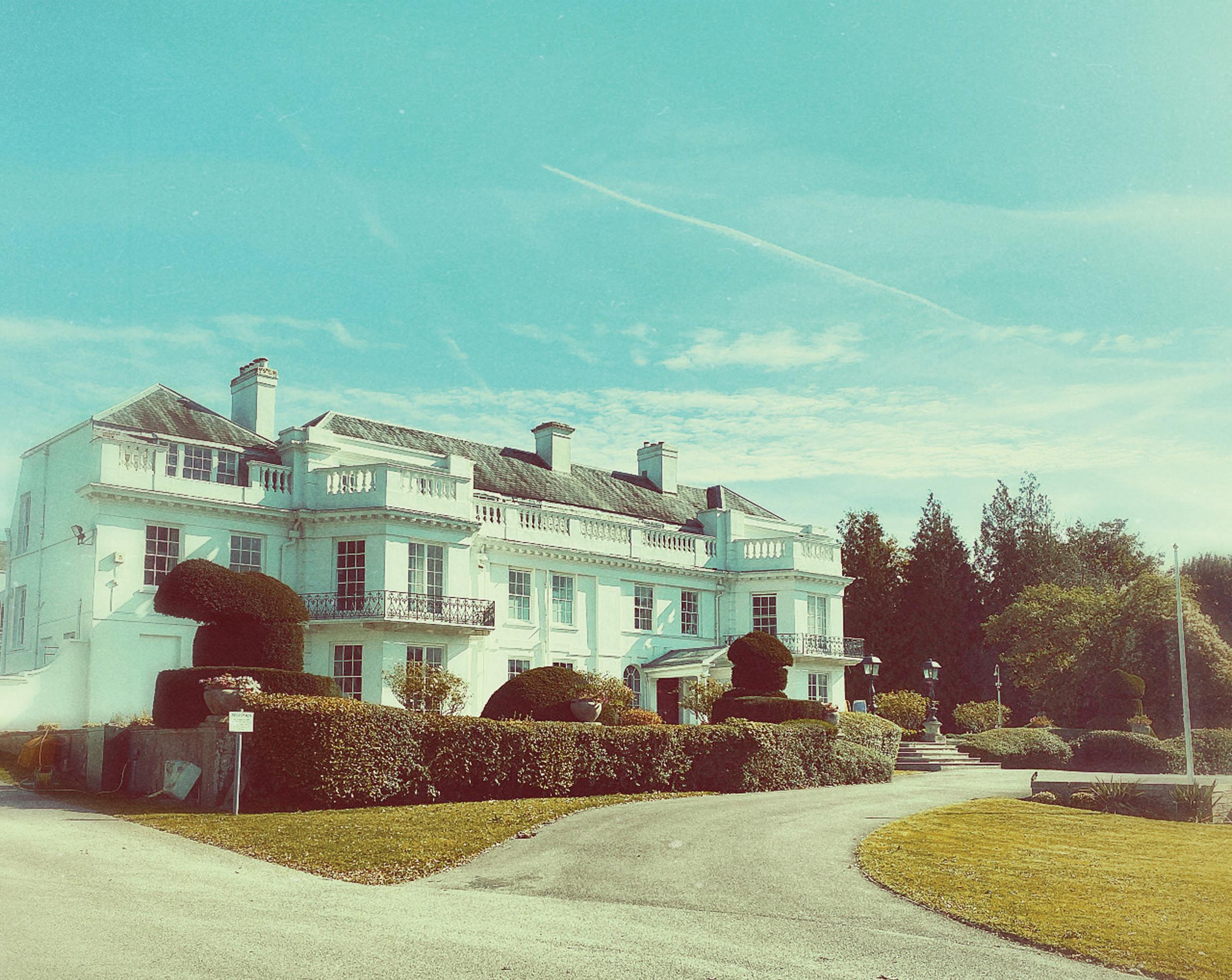
1960
Cadets celebrated their centenary with a variety of activities including the Royal Parade of the Cadet Forces at Buckingham Palace on 22 July. The chief event was the presentation of the banner to the ACF by HRH The Duke of Edinburgh at a ceremony at the Tower of London. During the year, the banner was passed from unit to unit and county to county across the UK.
After several pilot schemes, girls were officially allowed to join the ACF across the UK.
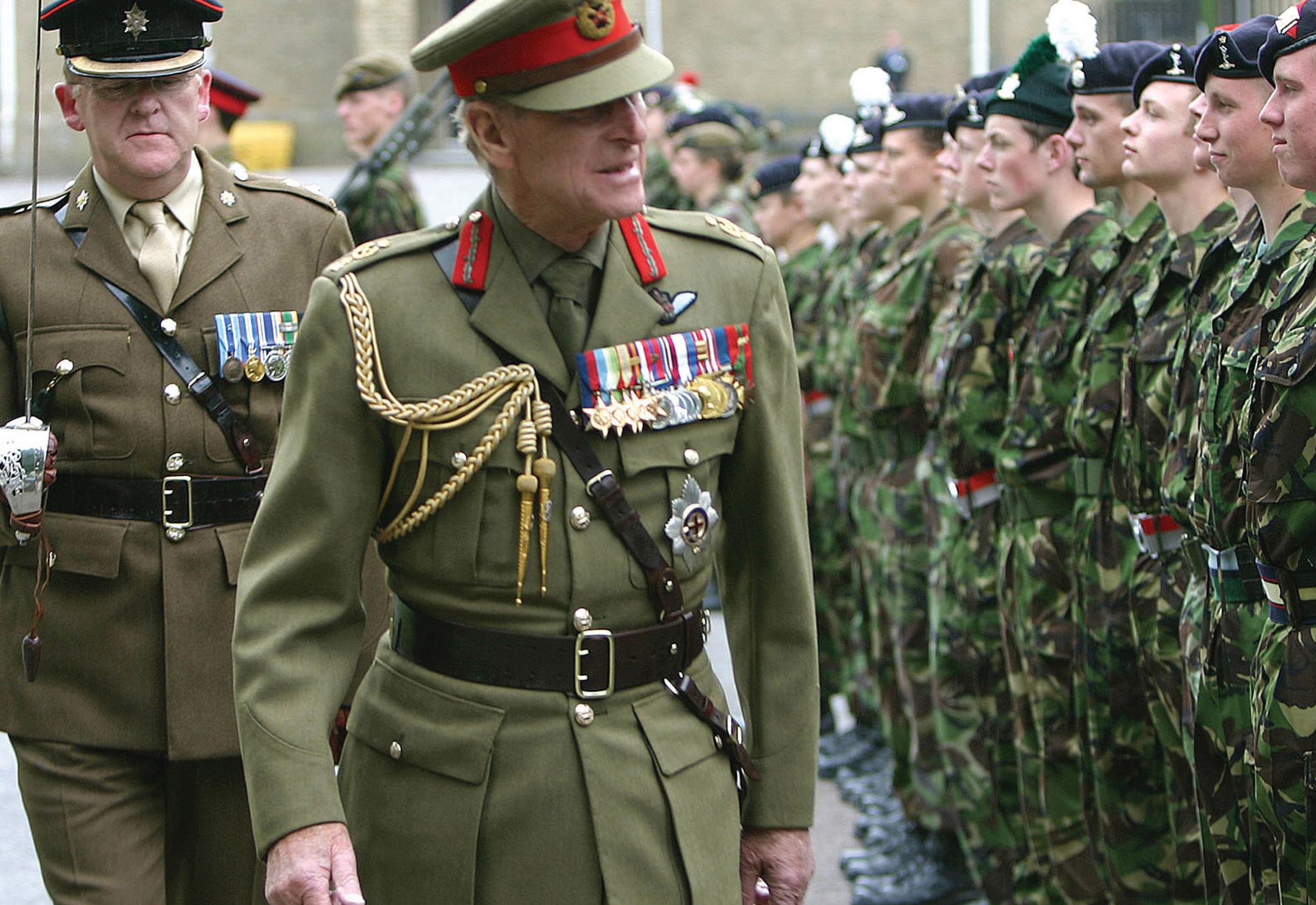
HRH The Duke of Edinburgh presented a personal banner to the ACF at the Royal Military Academy Sandhurst. The banners he presented in 1960 and 1982 are laid up in St Peter’s Church, Frimley, and the banner presented in 2005 is at CTC Frimley Park.
2008
HRH The Duke of Edinburgh’s last official engagement with the ACF as its Colonel-in-Chief was a visit to CTC Frimley Park on 17 October to mark the 50th anniversary of its foundation.
To celebrate the 150th anniversary, cadets and volunteers from all cadet forces marched down The Mall on 6 July for a Royal Review. The Prince of Wales (now the King) took the salute outside Clarence House, which was followed by a Royal Garden Party in Buckingham Palace.
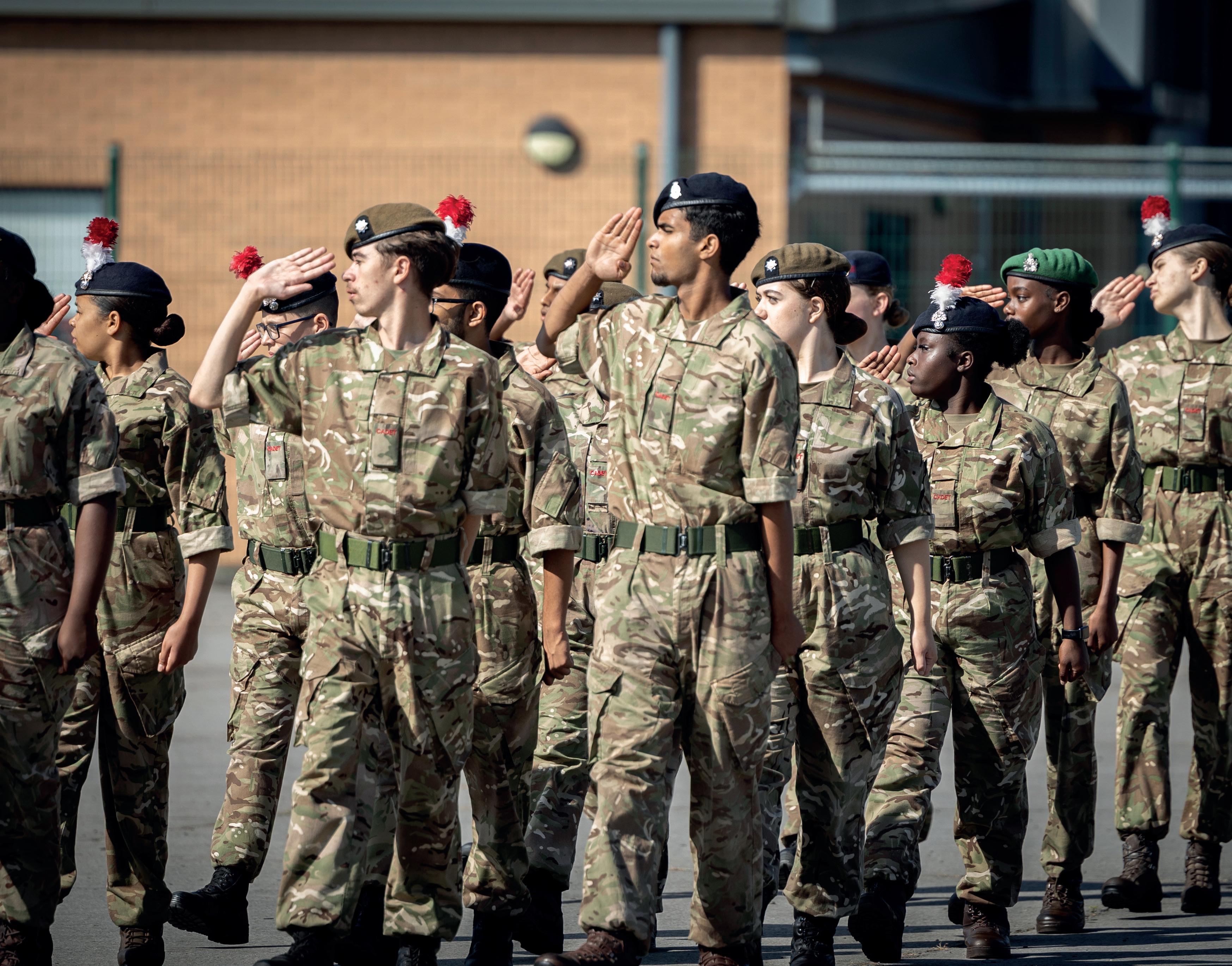
The government launched the Cadet Expansion Programme (CEP) to strengthen cadet forces in schools. The aim was to form new cadet units in English state-funded secondary schools, focusing on schools in areas of high deprivation. It was a joint programme between the Ministry of Defence and the Department for Education.

Army Cadet Force Association was rebranded as Army Cadet Charitable Trust UK (ACCT UK). Its support continues to enable all young people to access the life-changing development programmes offered by the Army Cadets.
To remain contemporary and relevant, the Army Cadets Syllabus (first introduced in 1976 and updated in 1990) was refreshed. This progressive syllabus includes testing in drill and turnout, military knowledge, skill at arms, navigation, fieldcraft, first aid, expedition training and shooting.

The Government launched its '30 by 30' campaign to increase the MOD- sponsored cadet forces by 30% by 2030.
c
The year included many exciting events for the Army Cadets, including these standout moments.
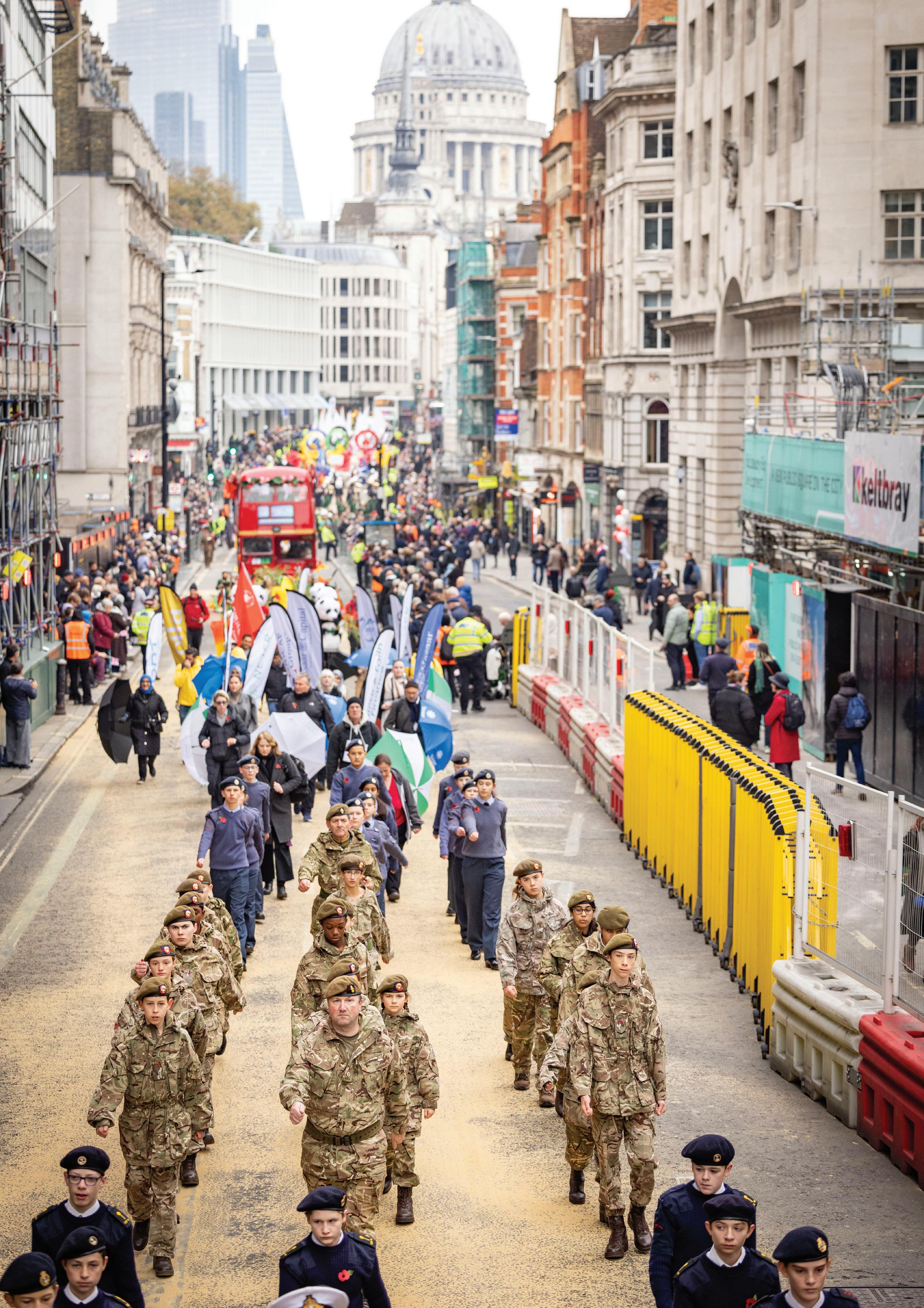
The Lord Mayor's Show in November 2024 featured a procession through London of around 7,000 people, 250 horses and 150 floats, and among them were cadets from South West London.
Maj Kaz Lorimer, OC to 13 Company, Greater London South West Sector ACF, and aide-de-camp to the Lord Mayor, said: 'To be in the parade is a once-in-a-lifetime, memory-making opportunity. I'm always super proud to see my cadets living their best lives and doing something different.'
'It was a very exciting opportunity,' agreed SSI Joe Cox, Detachment Commander, 136 Detachment, Greater London South West Sector ACF. 'It allowed us to interact with the community and represent the Army Cadets. It was an incredibly fun and eventful day.'
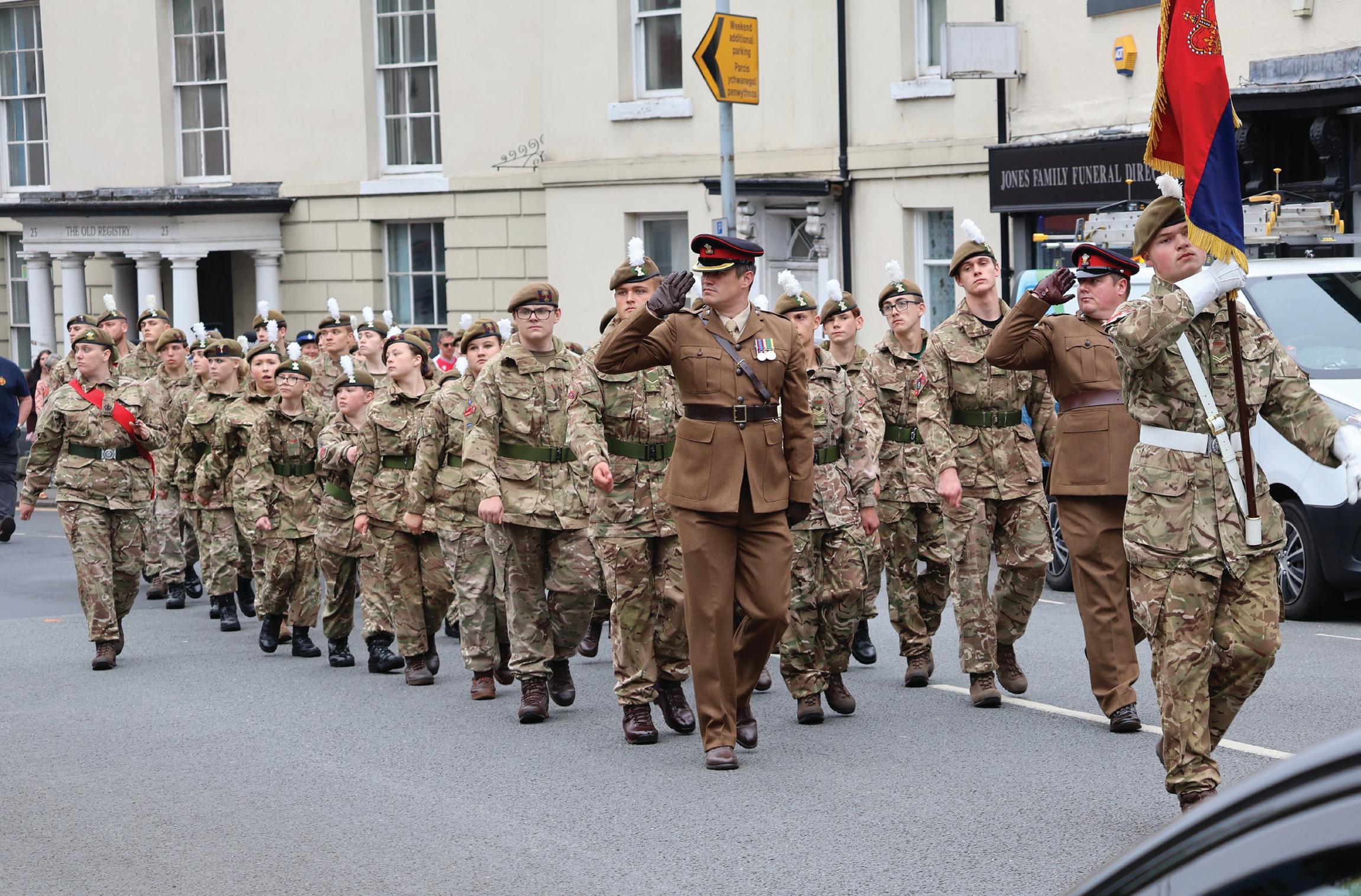
Clwyd and Gwynedd ACF cadets took part in one of the UK's oldest surviving traditional ceremonies and marched through the streets of Wrexham alongside The Royal Welsh Regiment.
The Freedom of the City of Wrexham is an honour bestowed upon The Royal Welsh, and allows them to march through the city with bayonets fixed, colours flying and drums beating.
Cadets from Cambrai Company joined members and veterans of 1st Battalion The Royal Welsh and antecedent regiments, including The Royal Welch Fusiliers, at the event in September.
The parade assembled on Library Field in Wrexham for speeches, presentations and inspections. These were followed by the march, which was led by their mascot: regimental goat Shenkin IV of the 3rd Battalion The Royal Welsh.
The event culminated in an Act of Remembrance at The Royal Welch Fusiliers Memorial and a commemorative lunch at Coleg Cambria.
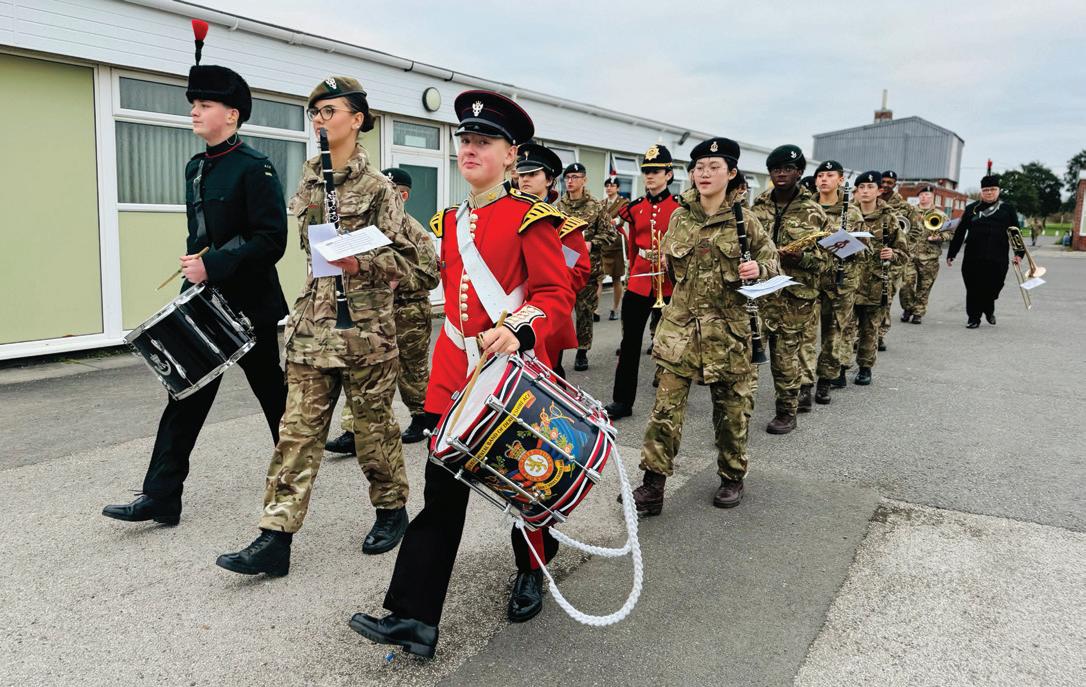
Musical cadets from across the country headed north last autumn to band together at music camps.
The annual National Tri-Service Piping and Drumming Training Camp took place at Redford Barracks in Edinburgh in October. Cadets and CFAVs progressed through star levels and gained extra-curricular qualifications.
The week rounded off with the annual Piping and Drumming Competition held at the Army School of Bagpipe Music and Highland Drumming.
'It was a great experience for all involved,' said Callum Moffat, HQ Cadets Branch, Pipes and Drums Lead.
During October half term, almost 350 cadets and CFAVs descended on Altcar Training Camp in Liverpool for a week of music training, fun and camaraderie. It was a week of achievements with 135 completed star passes, 945 individual subject passes and a new National Senior Cadet Bandmaster appointed.
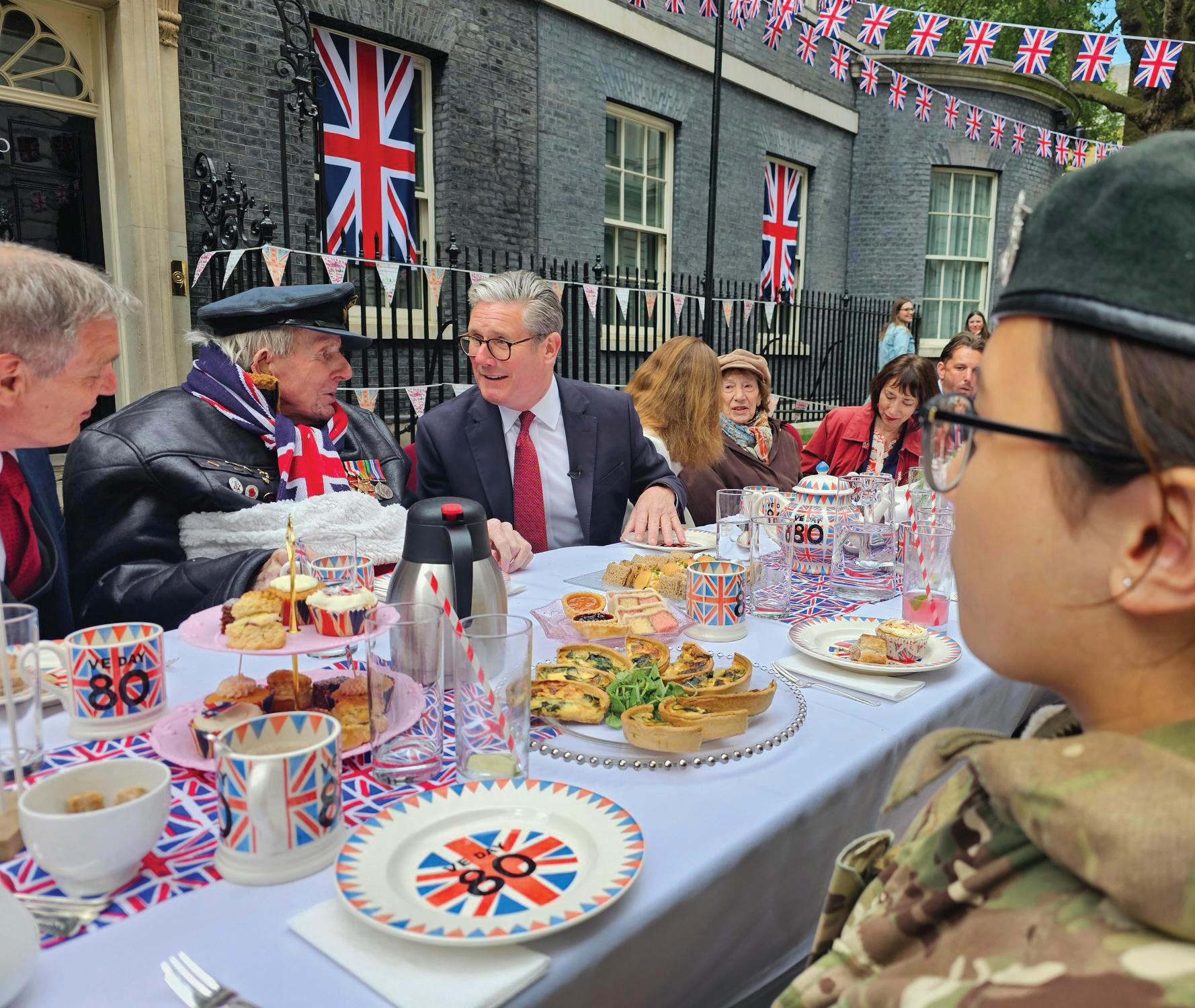
VE80 commemorations in May offered an opportunity for cadets across the UK to honour Second World War heroes.
A highlight for three cadets from 17 Platoon Whitley, Royal County of Berkshire ACF, was being served tea and cake by Prime Minister Sir Keir Starmer when they represented the Army Cadets at a street party at No 10 Downing Street.
Cdt Ruby Ledger, Cdt Cpl Phoebe Haydon and Cdt Cpl Samrachana Gurung, all age 15, mingled with veterans, service personnel, youth and community organisations, and other cadets.
‘Meeting veterans and hearing their stories was a special moment that highlighted the importance and unity of VE Day. And it’s not every day you get to meet the Prime Minister!’ said Samrachana.
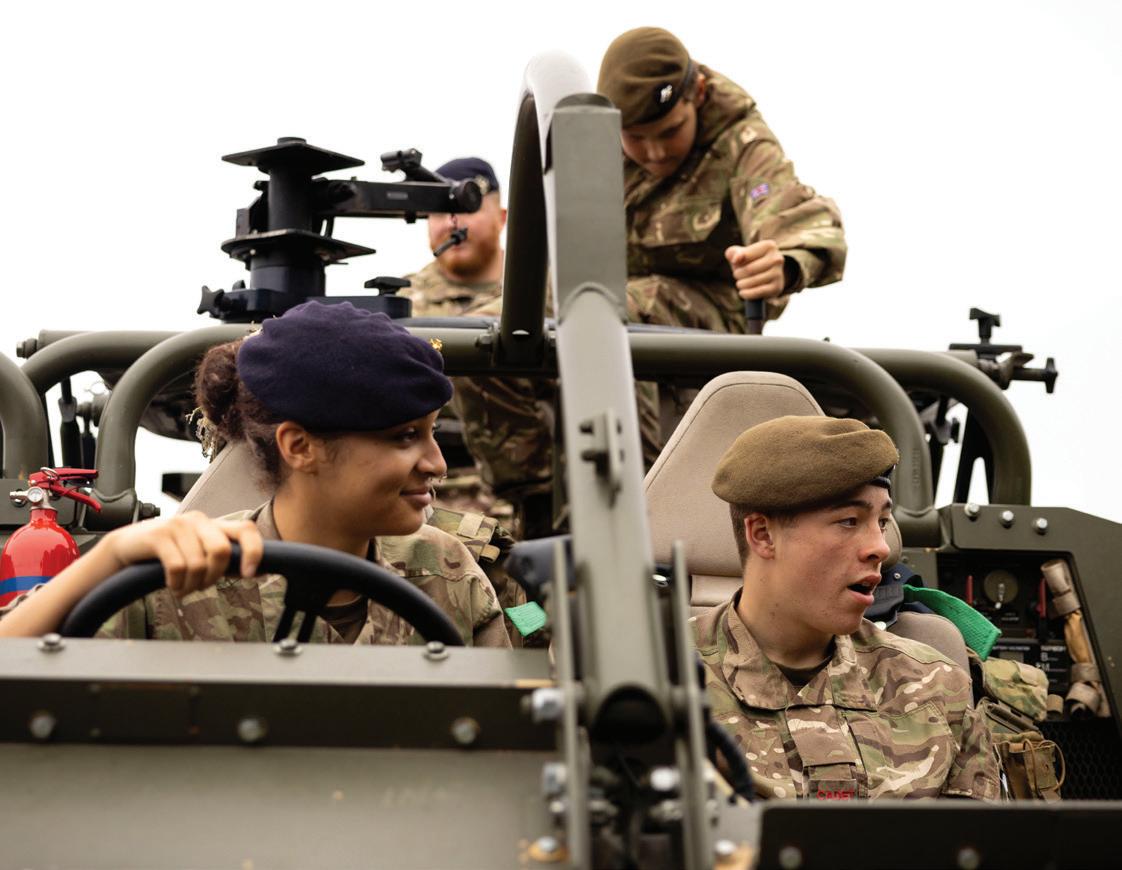
Hundreds of cadets had the chance to put their STEM (science, technology, engineering and maths) knowledge to the test in exciting real-life military scenarios during the October half-term holiday.
Ex CADET STEM CHALLENGE 24 was organised by the Royal Corps of Signals and supported by ten other Army units. Held at Westdown Camp on Salisbury Plain, the exercise was an inspiring learning experience.
Cadets tried everything from helicopter design and preparing goods for airlifting to getting hands-on with technical gear. Alistair Carns OBE, Minister for Veterans and People, was among the VIPs in attendance at this year’s cadet STEM camp visitors’ day.
The Rorke’s Drift Concert is always a rousing display of Army Cadets' musical talent and military pageantry, but this year it was especially poignant as it was the final concert of its kind, marking the end of an era.
Held at Theatr Brycheiniog in Brecon, the concert brought together 119 cadets and adult volunteers from across the UK, with participants from 15 counties, battalions and contingents taking part.
Over 25 years, the Rorke’s Drift Concert has provided cadets with opportunities for musical growth. Advanced players have had the chance to scale new musical heights as they play alongside musicians of a similar standard. It’s also been a chance for cadets to receive mentoring from Regular Army and Army Reserve bandmasters.
The Rorke's Drift Concert was about more than just music, however. SMI Kerrie Green, County Bandmaster from Gwent and Powys ACF, said: ‘It's brought together a family with a love of music who are united in a common cause: to share that enthusiasm with others.
‘The final concert was a meeting of friends, old and new. The thousands who've taken part over the years have strong memories of what it means.’
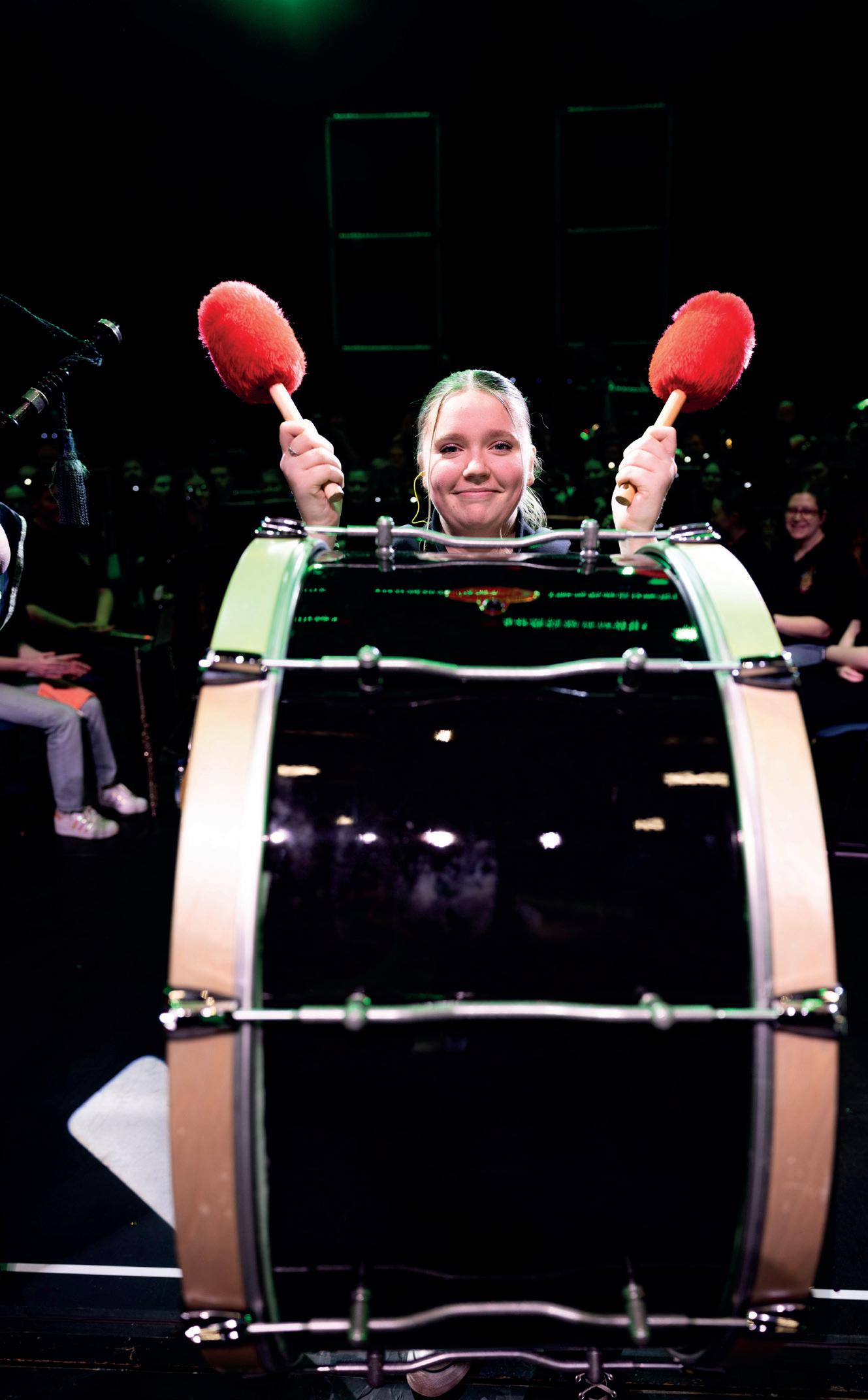
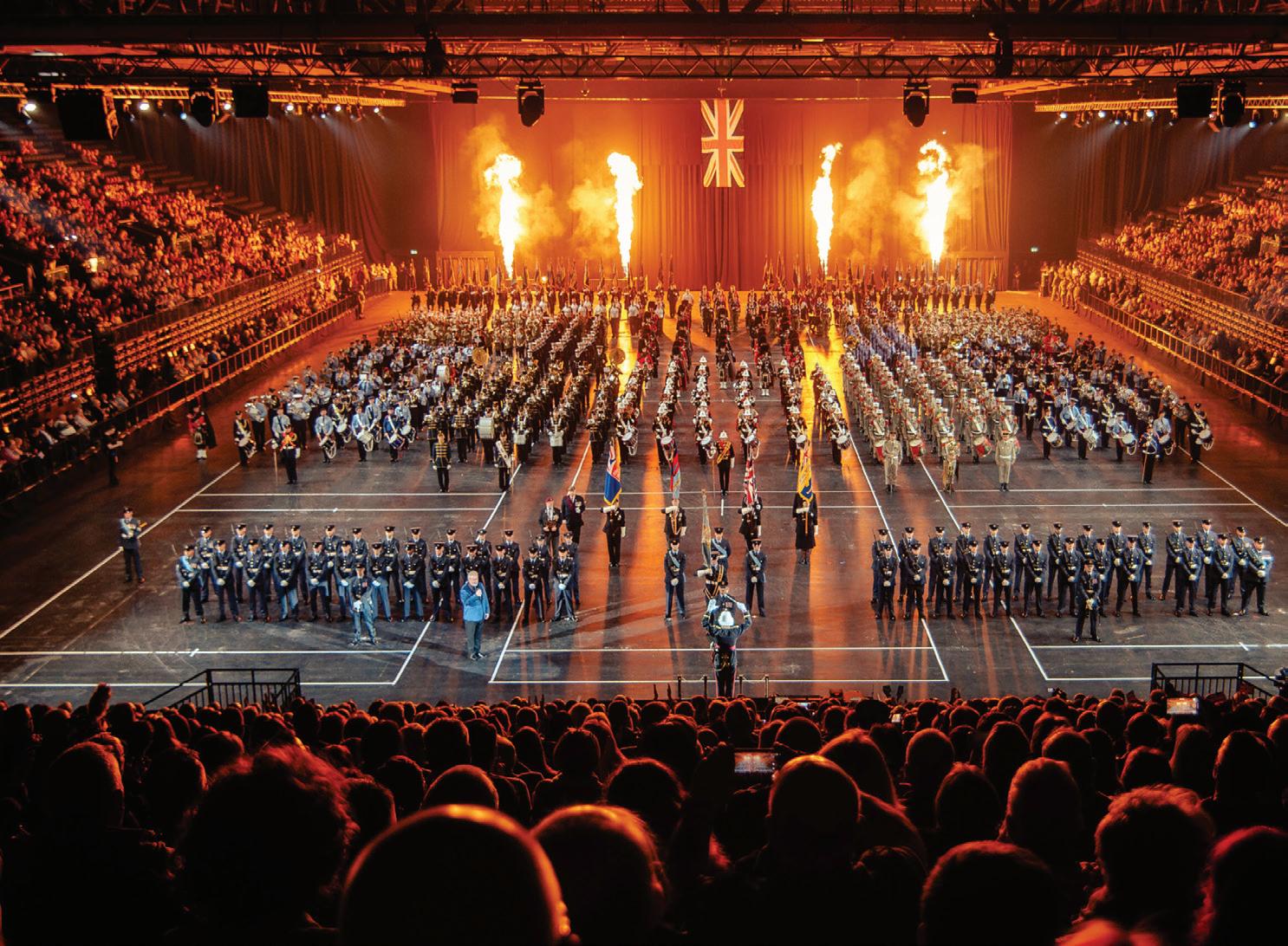
Army cadets were among those on parade at the spectacular two-day Birmingham International Tattoo in February, which attracted thousands of spectators. They were joined by cadets from the Sea Cadet Corps, the Volunteer Cadet Corps, the Air Training Corp and the Combined Cadet Force (CCF).
Britain's largest indoor military spectacle featured more than 1,000 performers, including massed marching bands, international military ensembles and vibrant displays such as the Field Gun Competition and the Parade of Massed Standards.
The cadets also had the opportunity to meet participants from across the UK, and foreign military personnel that included members of the French Foreign Legion.
From international exchanges to battlefield tours and adventurous training trips, cadets travelled widely in 2024/25. Here are a few places they visited.
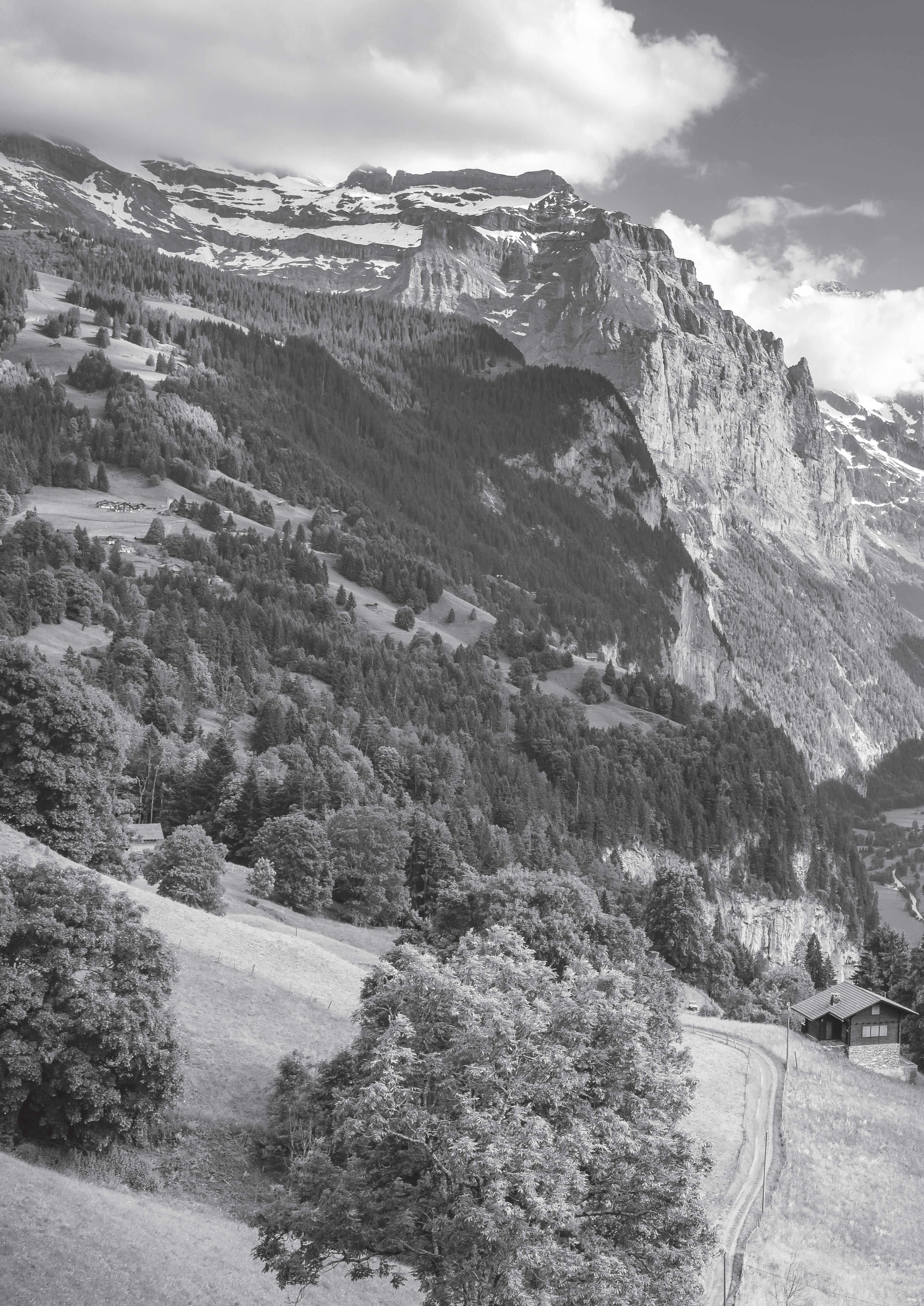



CHECK-CIRCLE GERMANY
CHECK-CIRCLE NETHERLANDS
CHECK-CIRCLE ITALY
CHECK-CIRCLE FRANCE
CHECK-CIRCLE MALTA
CHECK-CIRCLE NORWAY
CHECK-CIRCLE GIBRALTAR
CHECK-CIRCLE CYPRUS
CHECK-CIRCLE BELGIUM
CHECK-CIRCLE SPAIN
CHECK-CIRCLE SWITZERLAND
CHECK-CIRCLE HUNGARY
CHECK-CIRCLE USA
CHECK-CIRCLE INDIA
CHECK-CIRCLE TANZANIA
CHECK-CIRCLE AUSTRALIA

In October, cadets from Wales visited the Netherlands to take part in poignant 80th anniversary commemorations marking the liberation of 's-Hertogenbosch.
The cadets and CFAVs paid tribute to the soldiers of the 53rd (Welsh) Infantry Division of the British Army. Its soldiers fought to free the city in October 1944 with 146 men making the ultimate sacrifice.
The cadets stayed at a military base in Eindhoven, where they undertook intense drill practice before heading out to explore 's-Hertogenbosch ahead of the weekend of commemorations.
In a service at St John’s Cathedral in 's-Hertogenbosch, poppy crosses and memorial candles representing the fallen soldiers were carried by cadets and local scouts. There was also a parade through the city and a Remembrance ceremony – which included a flypast by the Royal Netherlands Air Force – at the war memorial honouring the Welsh soldiers, as well as a commemoration at the Uden War Cemetery on the outskirts of the city, where 103 of the 146 Welsh soldiers are buried.
The trip (which was supported by a grant from ACCT Wales) was a privilege and a humbling opportunity for the cadets to honour the legacy of the soldiers. The warm reception from local residents underscored the deep respect still held for the regiment.
The Rock of Gibraltar was the impressive backdrop to a once-in-a-lifetime opportunity for cadets from Reading to train in a completely new – and at times challenging – environment.
Cadets and CFAVs from Reading School's CCF headed to Gibraltar in August for the Ex VENTURER ROYAL. The unfamiliar climate challenged even the most experienced staff and cadets from the get-go, as they walked in the heat from the airport to their accommodation at the Devil’s Tower Camp.
With its jaw-dropping geography, fascinating military history and amazing adventurous training opportunities – including the use of the tunnels inside the Rock – Gibraltar is a favourite location for cadet camps.
The week was packed with activities, including adventurous training, sailing, fieldcraft, ranges, tri-service visits and cultural trips. Funding provided by The Ulysses Trust helped deliver the adventurous training element of the camp, including sailing, stand-up paddleboarding and rigid inflatable boat rides. This enabled all cadets who attended to achieve the Army Cadet Syllabus 1-star Adventurous Training qualification.
The cadets enjoyed increasing their skills in teamwork, leadership, resilience and confidence. 'It's noticeable how many younger cadets developed significantly during our six days in Gibraltar,' said Cdt RSM Benjamin Foster, who also paid tribute to local support from the Royal Gibraltar Regiment ACF and the Royal Navy Gibraltar Squadron.
Three cadets from Surrey ACF were selected to represent the Army Cadets at a prestigious multi-day competition in April, hosted by the Hungarian Defence Forces in partnership with the Defence Sports Association.
The International Cadet Cup tests both individual and team capabilities, with an emphasis on discipline, endurance, leadership and international cooperation. The competition promotes friendly rivalry and also strengthens bonds among the participants from across the globe.
Cdt Sgt Maj Robert Sherriff, Cdt Sgt Dylan Lockyer and Cdt Sgt Phoebe Taylor-Bishop participated in numerous events, with the main highlights being the 1,000-metre relay run, 1,000-metre Ninja Warrior obstacle course and the tactical orienteering. The laser run challenged the cadets to complete three 300-metre laps, pausing between each to fire a laser rifle from various shooting positions.
SO2 Leadership & Physical
Development Terry Hayter is hugely proud of the cadets as well as the staff who assisted the team. He said:
'This is one of the toughest sporting events on the calendar, demanding exceptional fitness, mental resilience and total commitment.'

In January, Ex VENTURER SNOW FINN 2025 provided cadets and CFAVs from the 1st and 2nd (Northern Ireland) Bn ACFs with an opportunity to develop skiing abilities while in a completely new environment.
The expedition to the Pila Aosta Valley district in Italy was designed to challenge participants both physically and mentally while building resilience, teamwork and leadership skills.
The group consisted of experienced and novice skiers, all of whom demonstrated remarkable progress thanks to the tutelage of four qualified Army ski instructors. Cadets also had the chance to visit Aosta town, where they sampled regional cuisine and took in the historical surroundings.

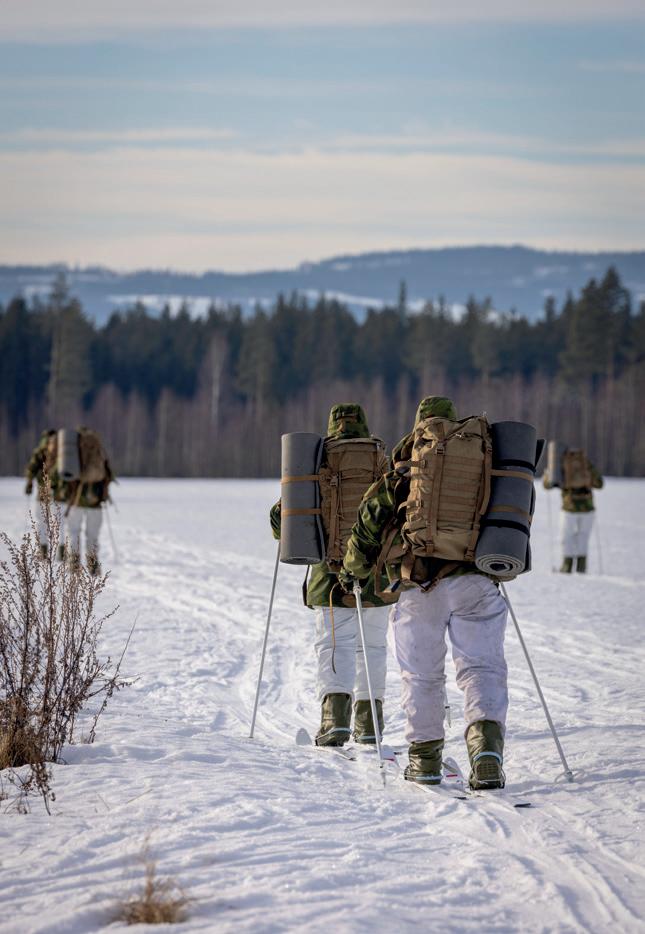
Learning survival skills in subzero temperatures, skiing across snow-covered landscapes and camping out in harsh environments were just some of the challenges that cadets from Royal County of Berkshire ACF conquered during Ex VENTURER STAG XXVI in Norway.
The bi-annual nine-day winter exchange programme between Berkshire cadets and cadets from the Norwegian Home Guard (HVO2) has been running for more than 30 years.
The exchange was centred at Haslemoen Camp, a training base to the north of Oslo where cadets learnt skill at arms (adapted for a cold-weather environment), hypothermia training and survival skills, weapon handling, navigation and cross-country skiing. The cadets also worked on their camp craft, constructing shelters and setting up fuel heaters to ensure they could endure freezing nights
Throughout the exchange, cadets also took part in activities to test their skills, teamwork and endurance, including fire-building, rope-bridge crossings, casualty-evacuation drills, signals training and navigation exercises.
Many of the cadets rekindled friendships formed last August when HV02 cadets visited Royal County of Berkshire ACF for a joint training exercise.

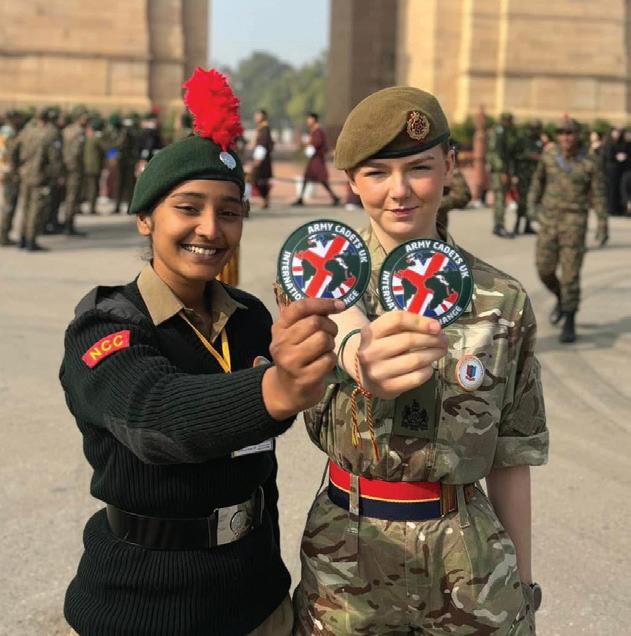
At the start of the annual Indian Youth Exchange Programme in January, UK cadets enjoyed two days’ preparation in London, visiting the High Commission of India and the Hindu temple BAPS Shri Swaminarayan Mandir, before travelling to India.
While in India, the group of 10 cadets and two CFAVs visited some of the country's landmarks, such as the Taj Mahal, and participated in social and cultural events with cadets from the National Cadet Corps (NCC) (India) .
On Republic Day, the cadets marched alongside 18 other international delegations in the National Cadet Corps Prime Minister’s Rally in India. The prestigious event showcased the unity and camaraderie among cadet forces from across the world and was a highlight of the trip.
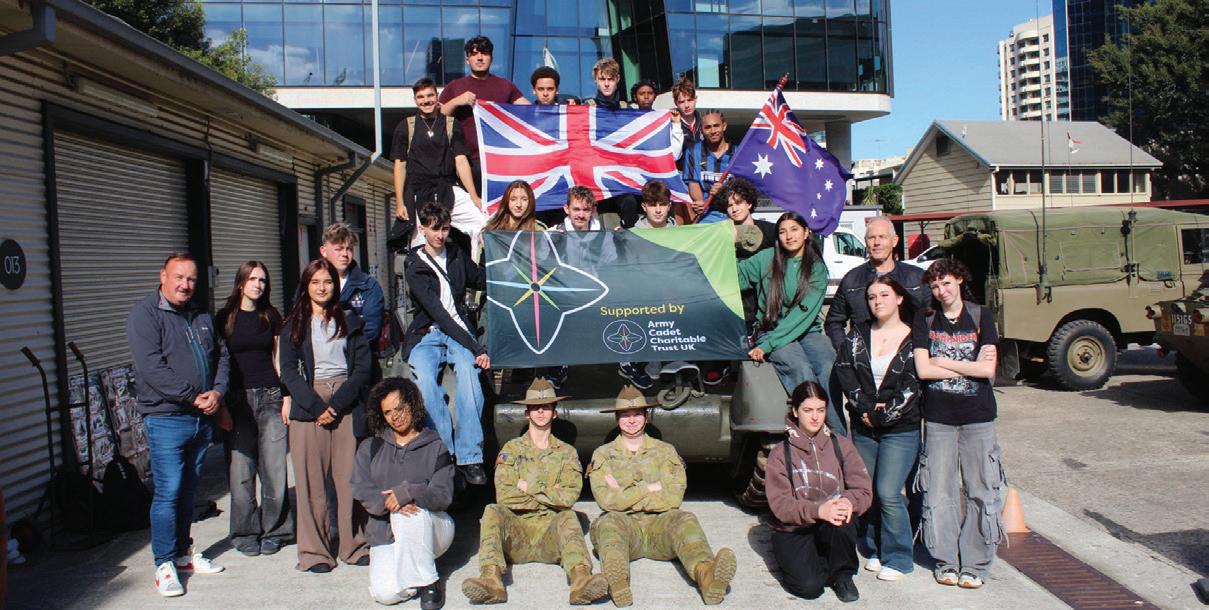
An epic adventure in Australia was enjoyed by 20 cadets and five CFAVs from Middlesex and North West London Sector ACF in July when they took part in the two week ANZUK 25 cultural exchange.
Not only did the UK cadets meet and make friends with cadets from Australia and New Zealand , but they also learnt about the deep connection built between the three nations during the First and Second World Wars, where they fought side by side.
Highlights of the trip included a visit to the barracks of the 1st/15th Royal New South Wales Lancers and its on-site museum, followed by a barbecue hosted by the exercise hosts, 203 Army Cadet Unit.
In the course of the trip, cadets enjoyed stunning Australian scenery in both Sydney and the Blue Mountains at Katoomba. They also
‘This year was a magical experience for all the cadets involved – who now share memories that'll bond them for life’
Lt Amy Brown, County Media Officer, Durham ACF, who took part in the trip
visited the site of the Japanese POW breakout at Cowra, took part in the Last Post service at the Australian War Memorial in Canberra, which surrounds the Pool of Reflection, and spent three nights at RMC Duntroon (Australia's equivalent of RMA Sandhurst). There were also visits to other Australian cadet units at Wagga Wagga and Marrangaroo.
Cdt LCpl Hagiu said: 'The trip provided me with a plethora of unforgettable memories, great enjoyment, a great amount of knowledge about Australia and a number of lifelong friendships.'
The exchange was part of the ANZUK Initiative, a partnership between Middlesex and NW London sector, 22 Bn Australian Army Cadets and the New Zealand Cadet Corps.
In August, eight cadets and nine CFAVs from Cambridgeshire ACF travelled to Tanzania to conquer Mount Kilimanjaro. At 5,895m, it is the highest mountain in Africa and the highest freestanding mountain in the world.
‘We approached the summit during the night,’ said Cdt Cpl Tristan Enderle of Chesterton Detachment. ‘The temperature was well below freezing with a wind so strong it whipped your face. It was the hardest thing I have faced. The view from the top was surreal and looking down over Africa was an unforgettable sight.’
During the nine-day trek, the group also spent two days at Kilimanjaro Orphanage Centre, a dedicated haven for vulnerable and orphaned children in Tanzania.
‘It made me realise we take a lot of things for granted in our country and other people don’t have what we do,’ said Cdt Cpl Jake Graham of Cambourne Detachment. ‘Local people were really happy to see us and very welcoming. It opened my eyes.’
Commandant Col Lesley Deacon expressed her gratitude to Maj Colin Wells, Staff Officer of Cambridgeshire ACF for his work behind the scenes to make the expedition so successful.
‘Without his hard work, determination, planning and organisation, the trip would not have happened,’ she said.
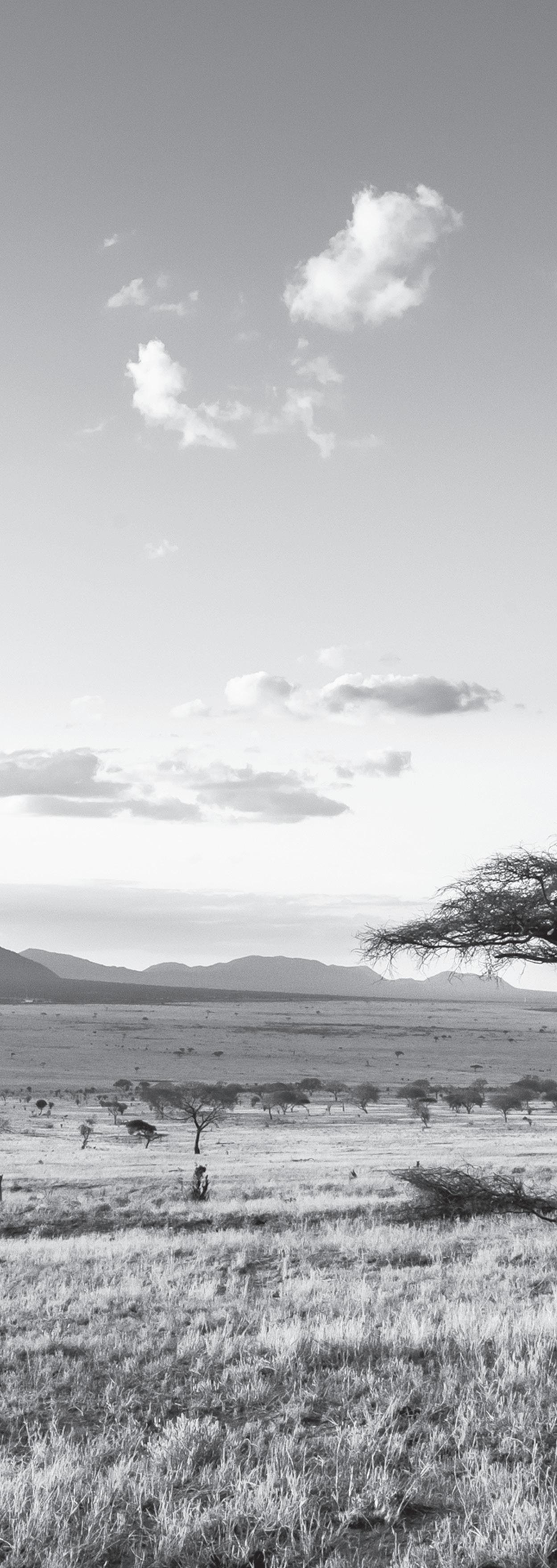
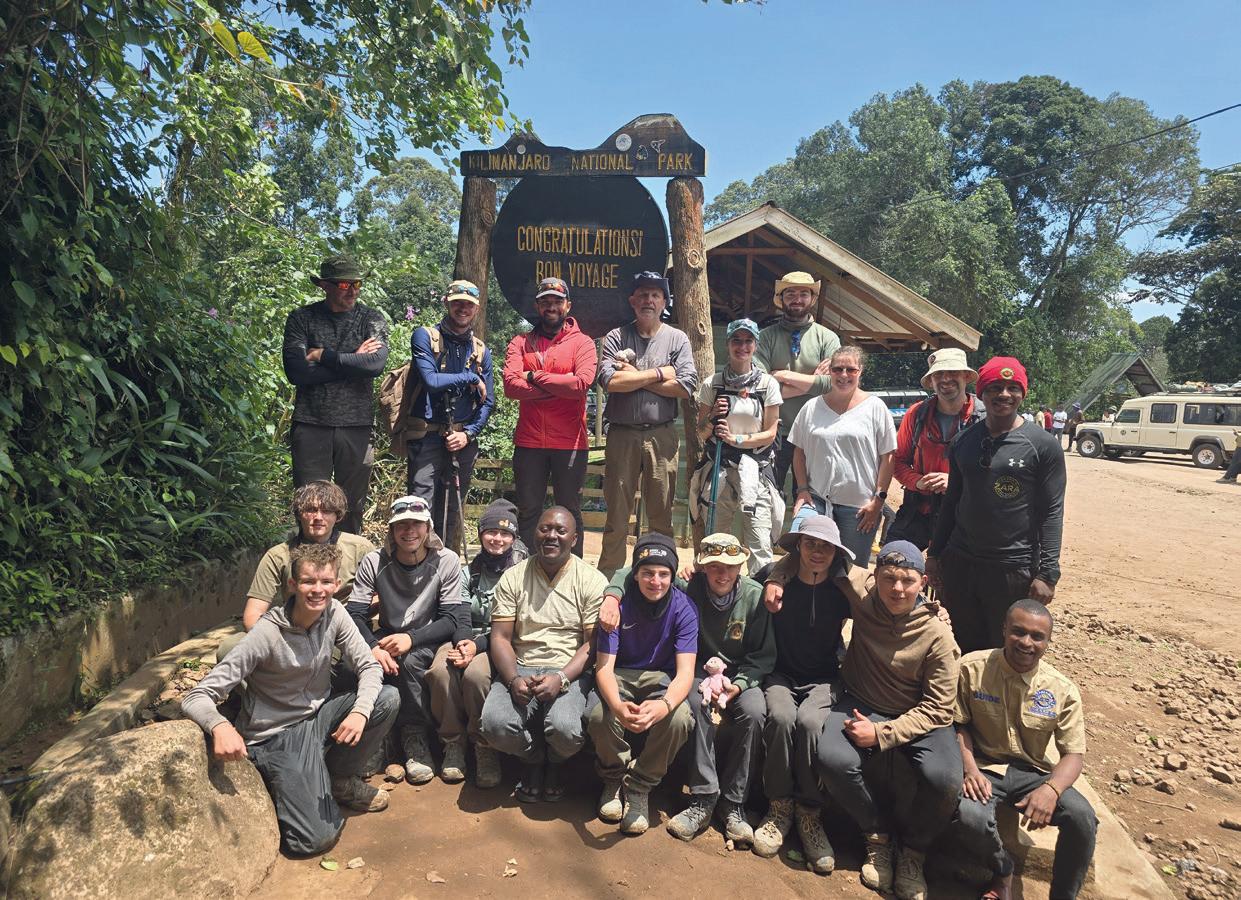
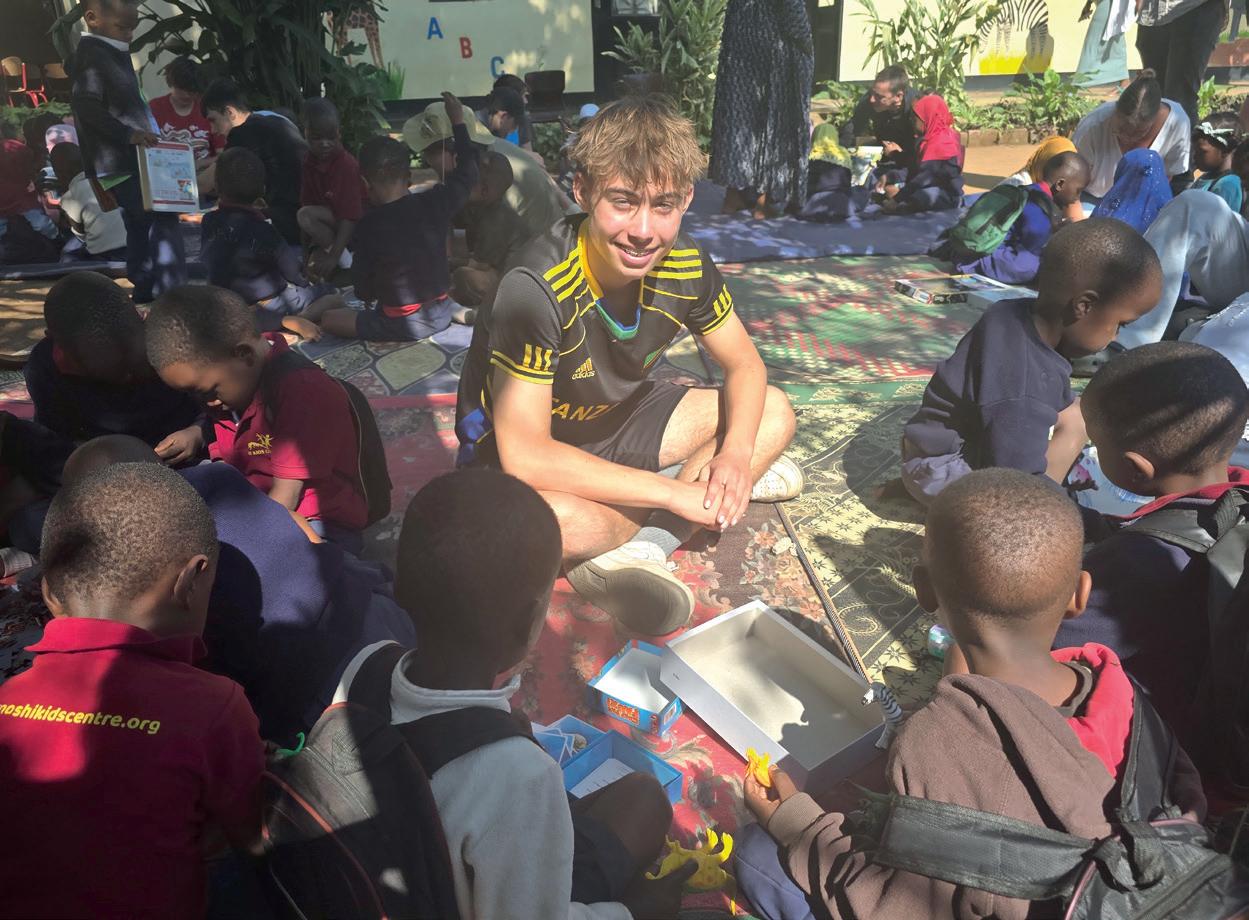
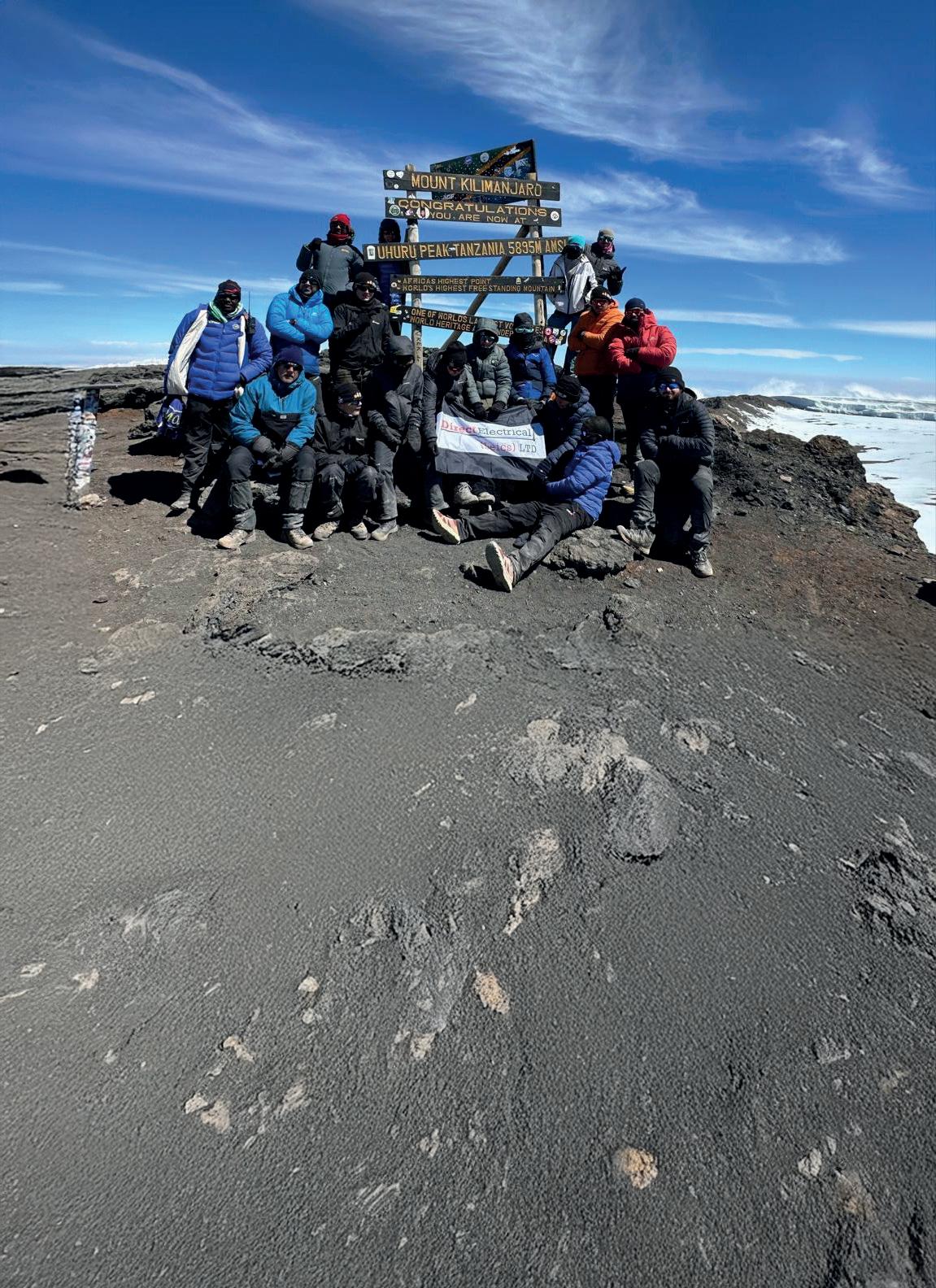
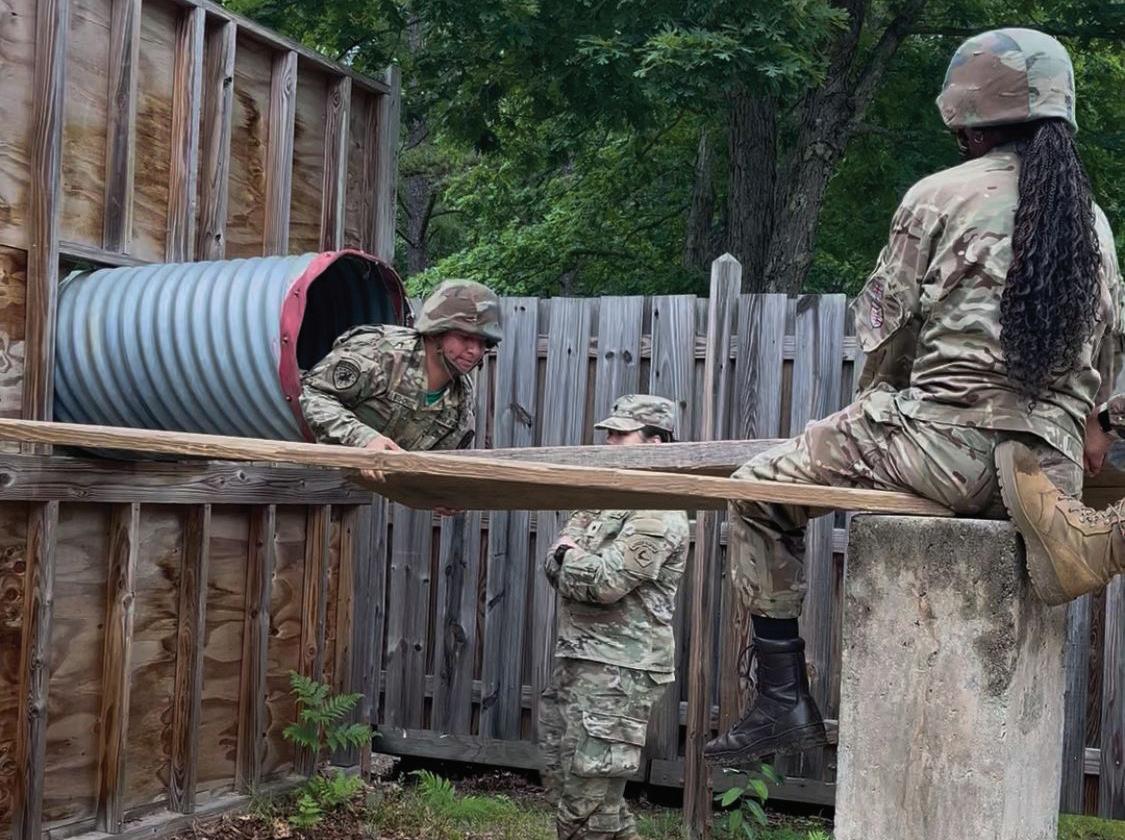
CCF cadets from the Midlands crossed the Atlantic in June to meet cadets from across the USA for a week of historical reflection, military skills development and adventures with new friends.
Tile Cross Academy Cadet Expansion Programme (CEP) section, Solihull School CCF, headed to the USA to attend the Junior Cadet Leadership Challenge (JCLC).
Before attending JCLC at Fort Devens US Army Reserve Training Centre, the party of ten cadets and three CFAVs enjoyed a weekend in Boston, visiting the Bunker Hill memorial, Castle Island state park and Quincy Market. The trip coincided with the anniversary of the Battle of Bunker Hill, the first major battle of the Revolutionary War, and the cadets took part in the spectacular commemorative Bunker Hill Parade in Charlestown (similar to the Lord Mayor's Show) which had 250,000 spectators.
A yellow American school bus took the party to Fort Devens, where cadets were joined by 300 cadets from different schools, states and countries. The three-day training programme consisted of aquatics (kayaking, canoeing, floatation packs) and leadership at the nearby Mirror Lake; civilian marksmanship (air rifle shooting) and a staff ride (battlefield tour with ceremonial marching and memorial wreath-laying on the graves of British soldiers) in Minute Man National Park; and abseiling and leadership reaction course (command tasks) on the range complex.
A final ‘formation’ was held on the Thursday night, during which the UK contingent marched with the Union Flag alongside a representative group of cadets who made presentations of plaques to the camp commander. The rest of the evening was spent signing shirts and saying tearful farewells.
Camp wrapped up on Friday morning and the UK contingent were hosted at East Boston High School before returning to the UK. Cdt Freya MacLennan said: ‘It was an unforgettable experience – I’m so glad I got to chance to go.’
Maj Neil Mackintosh, Tile Cross Academy CEP section, Solihull School CCF, added: ‘The cadets made huge progress in their personal development, principally by overcoming the social challenges of having to mix with complete strangers at Fort Devens. I was very proud of them.’
The event was run by the Commonwealth of Massachusetts Army League (COMAL) for high school Junior Reserve Officer Training Corps (JROTC) cadets from 19 schools across New England.
‘It was an unforgettable experience – I'm so glad I got the chance to go’
Cdt Freya MacLennan, Tile Cross Academy CEP section, Solihull School CCF

The Pipes and Drums of Black Watch Battalion ACF seized a fantastic opportunity to take part in the one of the largest and oldest military music events in the USA.
The Estes Park International Tattoo in Colorado took place at 8,000ft above sea level in the Rocky Mountains in September. The location offered cadets breathtaking views and up-close encounters with local wildlife, including regular visits from elk.
A week of rigorous rehearsals culminated in a series of performances from Friday to Sunday, themed around the 80th anniversary of D-Day. The trip also included a visit to Estes Park Elementary School, where the cadets performed for the students and introduced them to their instruments.
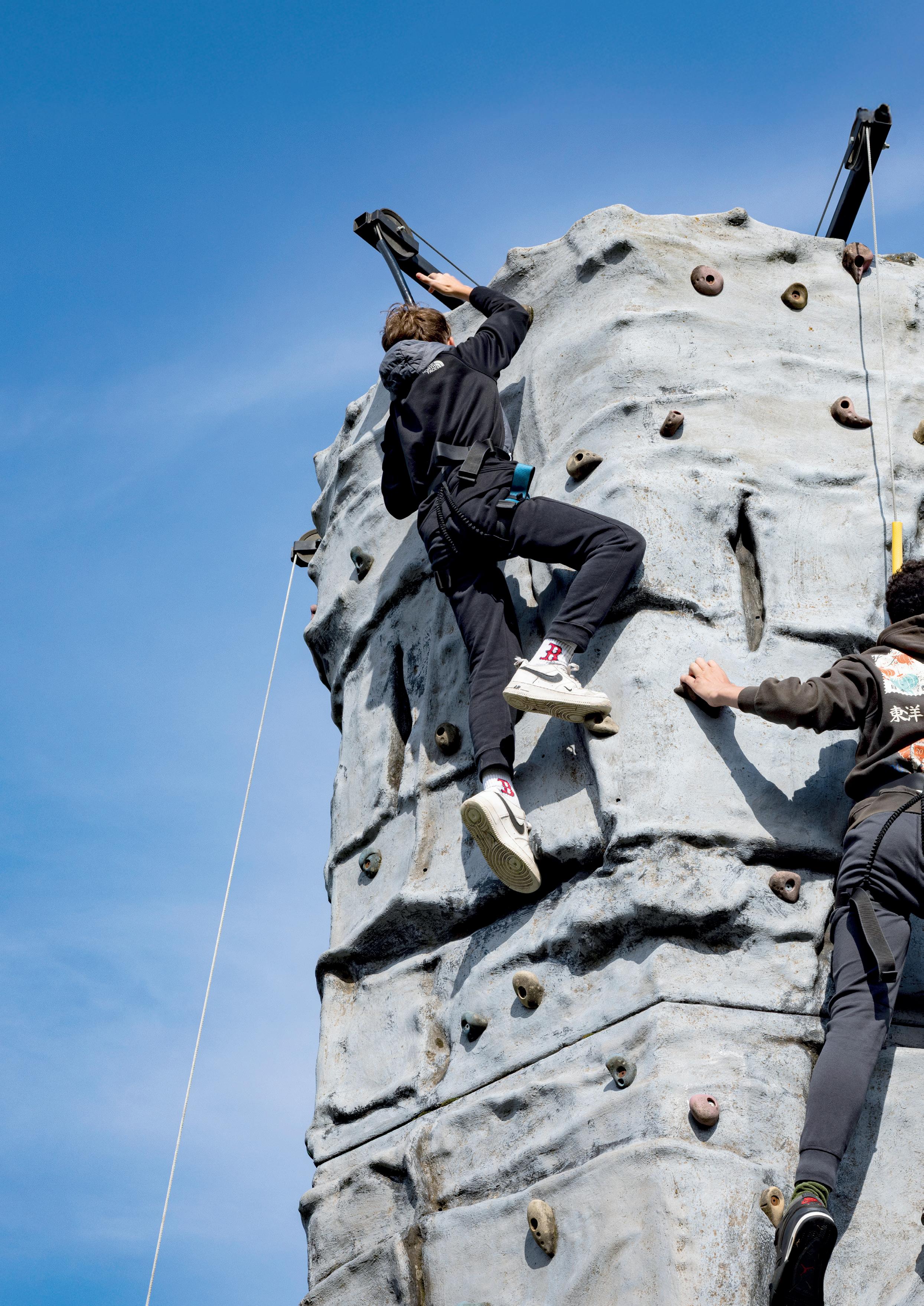
Two studies from the University of Northampton reveal an amazing impact on social mobility and career prospects for young people who belong to the cadet forces.

Being a member of the cadet forces has a significant positive impact on young people and improves their employment, career prospects and social mobility, according to independent research.
The first study, What is the social impact and return on investment resulting from expenditure on the Cadet Forces in the UK?, was carried out by the University of Northampton between 2016 and 2020.
The report, on behalf of the Ministry of Defence (MOD) and the Cadet Vocational College, was commissioned by the Combined Cadet Force Association.
Professor Simon Denny, Institute for Social Innovation and Impact at the University of Northampton, said: ‘Our research has concluded that the cadet forces provide structured challenge, discipline, training, education and, importantly, fun.
'Cadets and their adult volunteer instructors gain new skills and qualifications which increase their education and employment opportunities.’
One key finding of the research was that participation in the cadet forces had significant positive impacts on young people, particularly those suffering economic and other disadvantages.
The findings related to the concept of self-efficacy, associated with improved motivation and performance at school (see Table 1 on page 33). The report noted that even moderate improvements in GCSE attainment could lead to significant increases in economic benefits to society.
The research team commended the important work being carried out by adult volunteers to help children from economically disadvantaged backgrounds attain the same levels of self-efficacy as their more affluent peers – which also benefits the UK taxpayer.
As a result of developing and deploying key attributes, young people experience a number of positive outcomes, including:
+ Improved social mobility
+ More effective education (a direct consequence of improved attendance and behaviour)
+ Improved mental and physical wellbeing
+ Enhanced employability
+ Reduced vulnerability/increased resilience
Calculations using 2019 figures indicate that young people in cadet forces produce a return on investment of around £95m per annum (pa), comprising:
£ Reduction in GP visits (approx .value £502,000 pa)
£ Reduction in use of mental health services (approx. value £681,000 pa)
£ Lifetime private benefits from their increased likelihood of attending further education (FE) or higher education (HE) of around £70,300,000
£ Lifetime public benefits in increased tax receipts from their increased likelihood of attending FE/HE of around £23,400,000
‘The positive impacts on social mobility are, frankly, amazing’
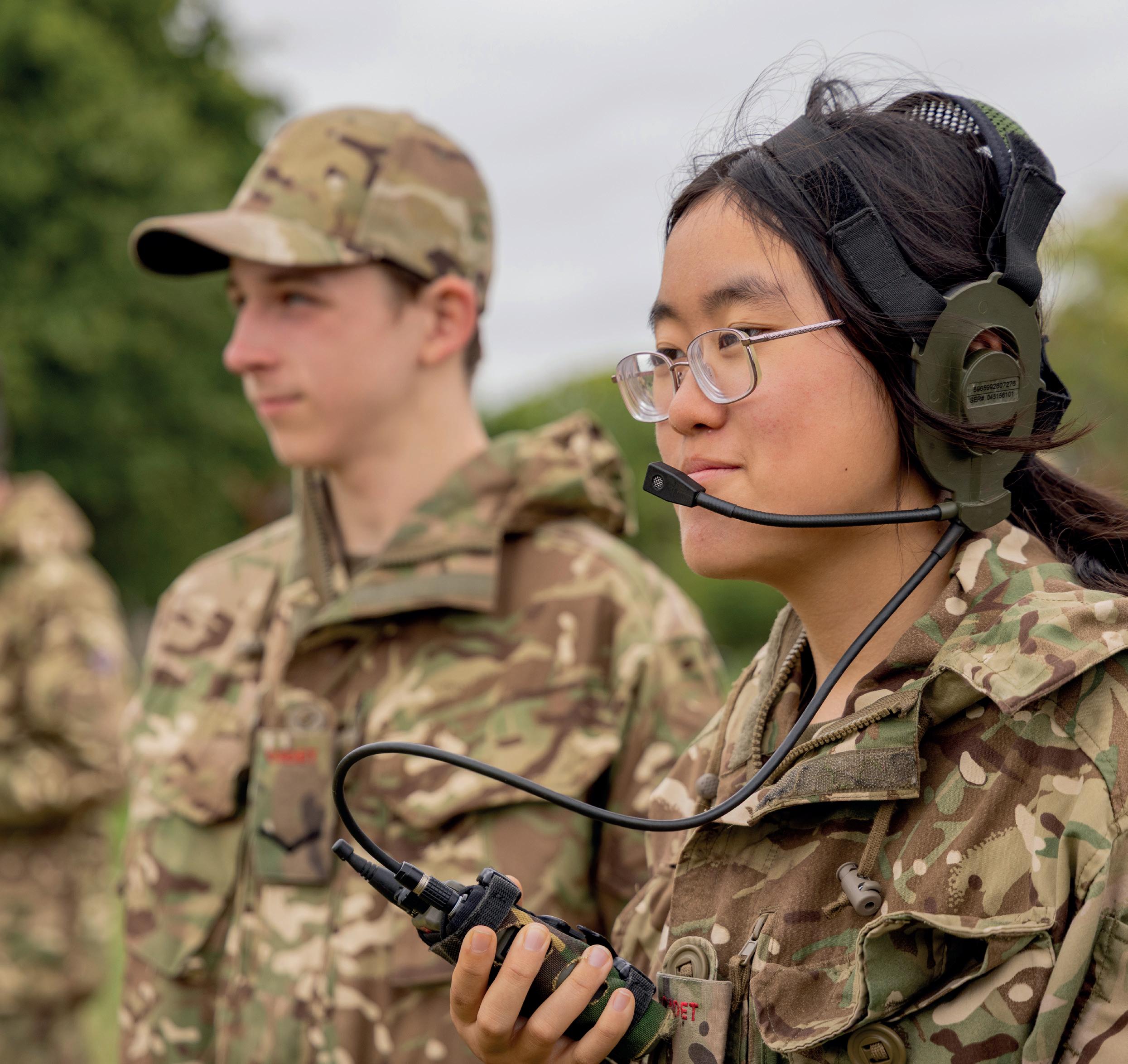
The report also noted that being able to study for and gain vocational awards through the Cadet Vocational College (CVC) and the Scottish Qualifications Authority (SQA) was an integral part of the cadet-force experience. CVC and SQA provide vocational qualifications to members of uniformed UK youth groups and their adult-volunteer instructors.
The vocational qualifications offered provide formal and accredited recognition of skills such as teamwork, leadership, management and self-reliance – all competences employers say they look for in staff.
In addition, the report mentioned the CyberFirst programme, which was launched in September 2018 by the Secretary of State for Defence. It aims to equip up to 2,000 cadets a year with the skills and expertise to help them become future leaders in the emerging cybersecurity sector.
The programme gives cadets the opportunity to learn how to protect systems connected to the internet from cyber attacks. The initiative, the first of its kind in a NATO state, recognises the role the cadet forces play in developing employable young people by equipping them with new and sought-after skills.
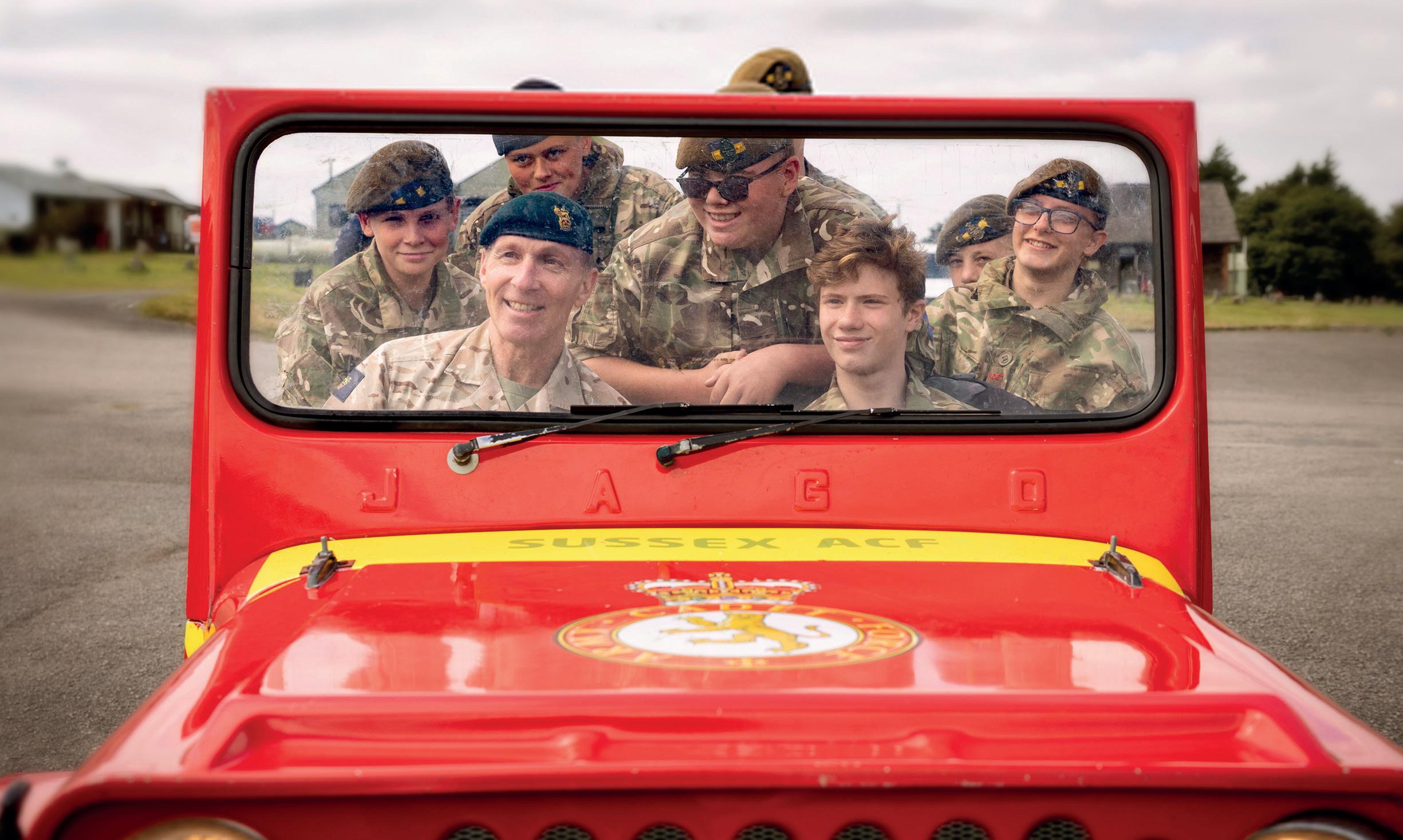
The report found that cadet forces develop a number of attributes in young people who have been cadets for at least 12 months.
The ability to communicate clearly, to diverse audiences, through formal and informal presentations and in discussions and interviews.
The ability to lead a group of people to achieve an objective. This skill includes the ability to plan and to communicate that plan, as well as being able to control, motivate and drive a team to succeed.
The ability to keep going, even when things go wrong or the situation is challenging.
The ability to work as a member of a team, sharing views and helping others, while being able to take instructions and orders from the team leader.
Using social skills, including different behaviours, to achieve positive outcomes.
The understanding that people are not the same, and the ability to accept diversity and work with the different talents that people have.
The personal confidence to utilise key skills in different situations and with different people.
‘Participation in the cadet forces improves the health and wellbeing of cadets’
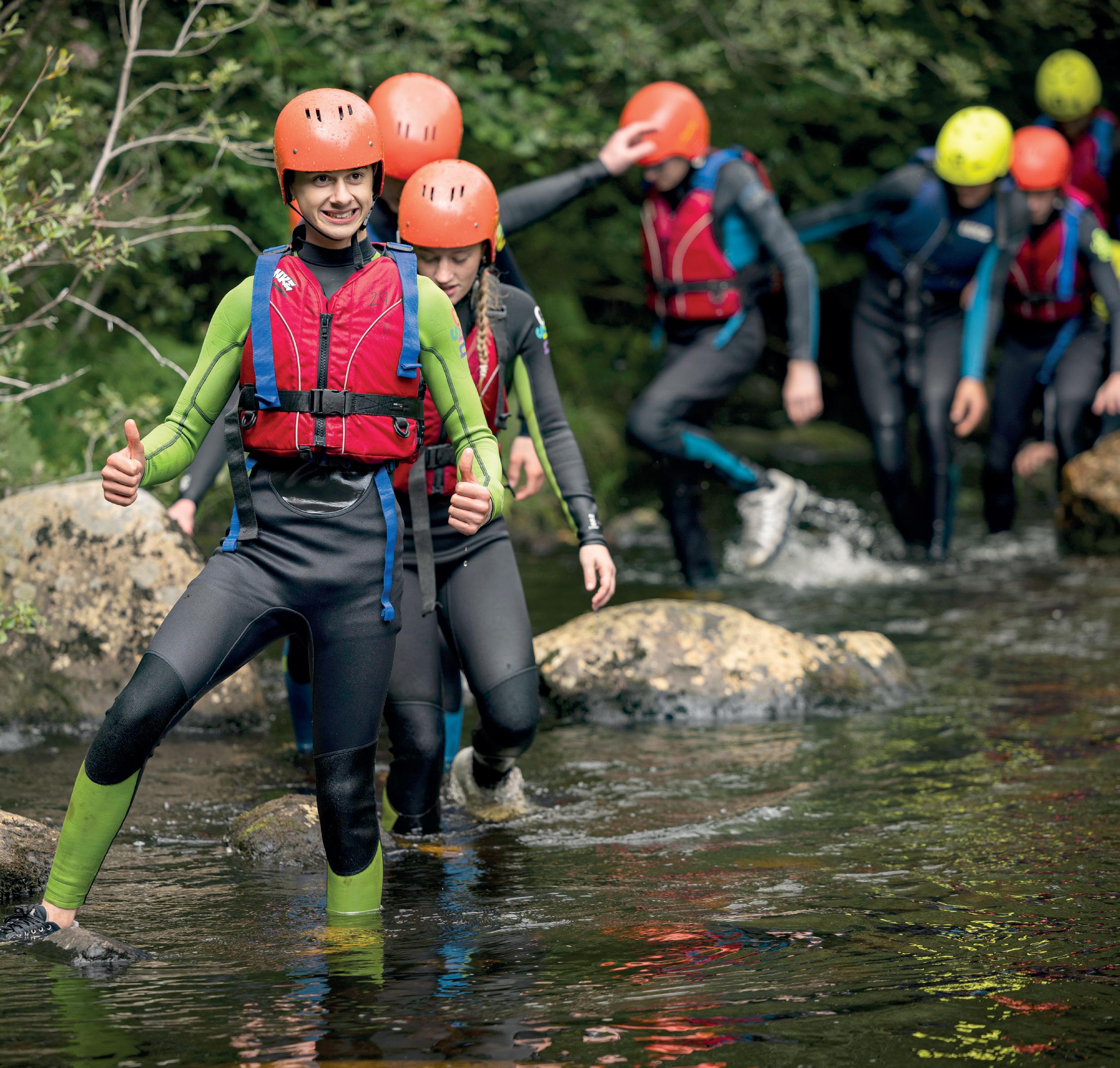
The report also found participation in the cadet forces improves the health and wellbeing of cadets which, alongside a higher probability of attending higher or further education, can result in an annual return on investment of around £95m.
In addition, it found that expenditure on the cadet forces is an excellent way to support community cohesion and inclusion.
Overall, the report outlined a significant return on investment from the cadet forces, with the cadet experience offering potentially life-changing opportunities for career progression and vocational qualifications. It also increased career prospects for those who may not hold traditional educational qualifications.
'The positive impacts on social mobility are, frankly, amazing,' said Professor Denny. 'The cadet forces represent a very good use of taxpayers' money.'
People with a strong sense of self-efficacy
• View challenging problems as tasks to be mastered
• Develop a deeper interest in the activities in which they participate
• Form a stronger sense of commitment to their interests and activities
• Recover quickly from setbacks and disappointments
with a weak sense of self-efficacy
• Quickly lose confidence in personal abilities Table 1:
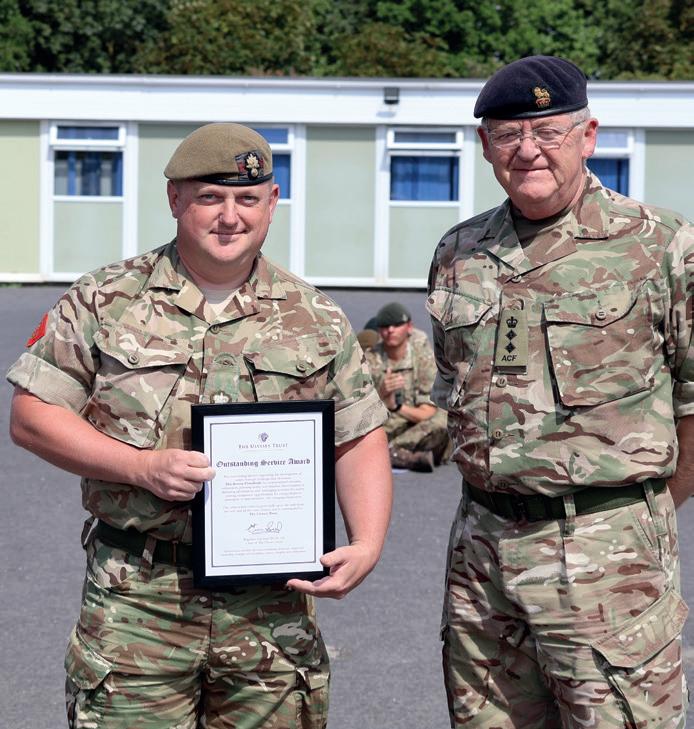
• Qualifications
• Teamwork, leadership, mentoring
• Increased opportunities at work
• Better mental wellbeing
• Enjoyment and fulfilment
• Support to the community
• Avoid challenging tasks
• Believe that difficult tasks and situations are beyond their capabilities
• Focus on personal failings and negative outcomes
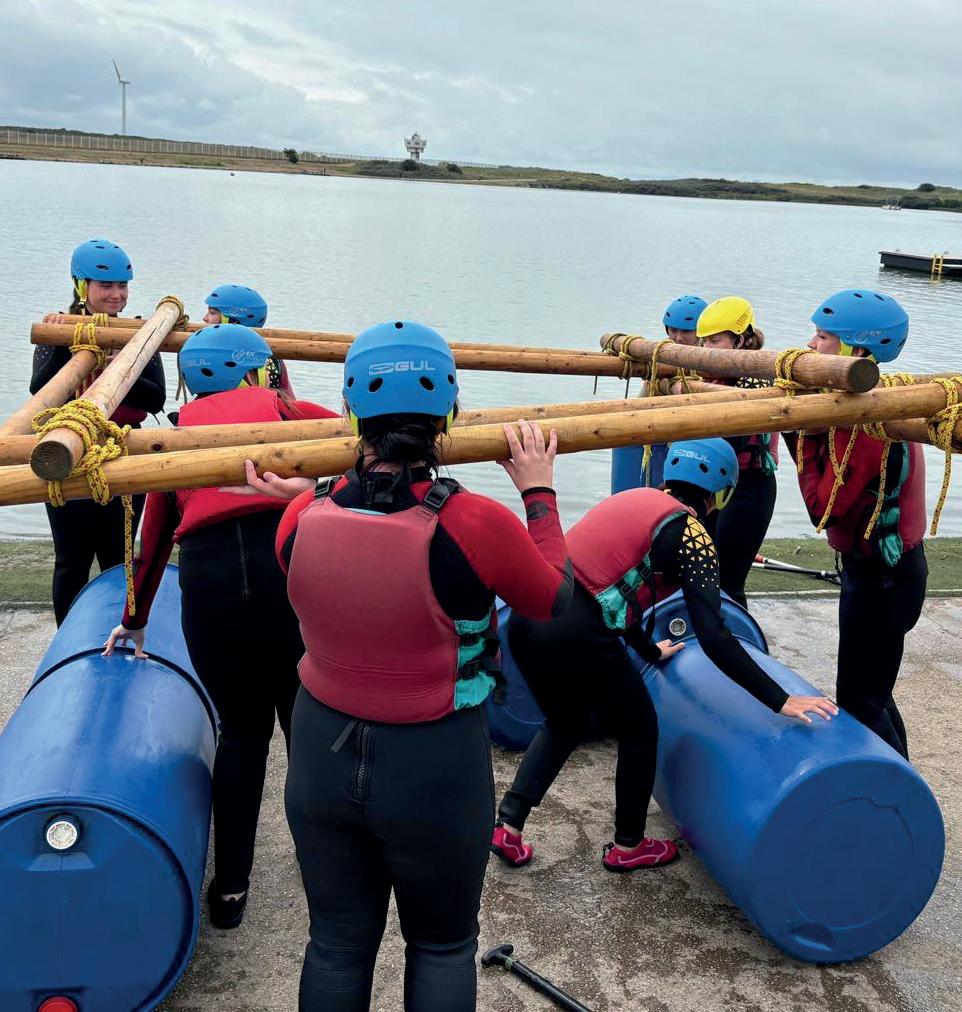
• Increased school attendance
• Reduction in number of GP visits
• Reduction in use of mental health services
• Increased likelihood of attending FE/HE
• Increased potential lifetime earnings
• Increased tax receipts
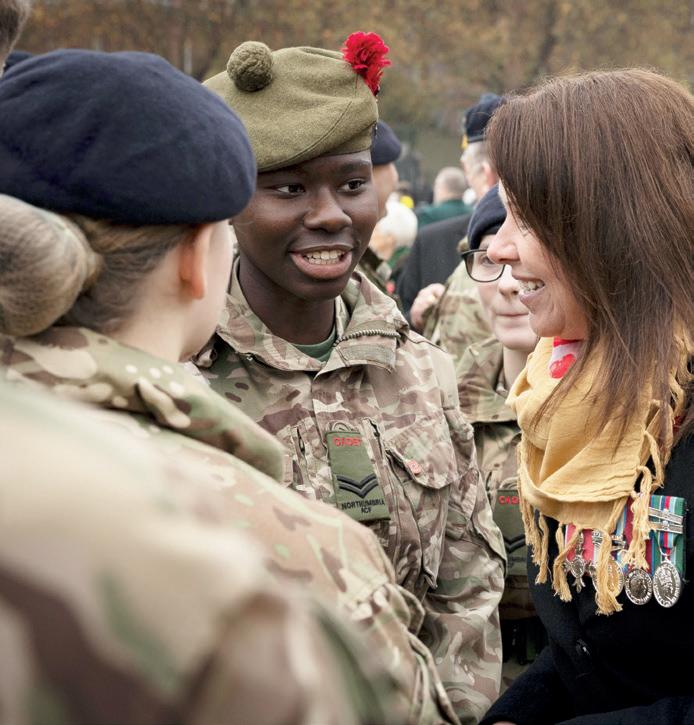
• Located in every UK constituency
• CFAVs/cadets are in education, employment or are employers and are in the community wearing uniform
The second study, The Impact and Value of School-Based Cadet Forces in the UK, was commissioned by the Ministry of Defence and the Combined Cadet Force Association (CCFA).
The study, carried out by the University of Northampton, found that school pupils who join the Combined Cadet Force (CCF) experience a boost in academic achievement, confidence and behaviour, resilience and school attendance.
Professor Simon Denny, leader of the University of Northampton research team, said: ‘The findings of this report build on previous research done into the value that a school-based Cadets detachment provides to children, teachers and adult volunteers, and the outcomes of a school.
‘There is very clear evidence that the Cadets experience positively influences behaviour, attendance and attainment, and greatly increases access to further and higher education, as well as significantly improving employability.
'The Combined Cadet Force (CCF) provides children with a broad range of experiences which are not available through traditional education, and these experiences create a sound foundation for later life.’
The report found that supporting communities and social mobility was a cornerstone of the cadet forces' ethos. Today, around 60 per cent of cadet forces are based in state schools –historically, they were mainly in independent schools.
However, since 2012, the Cadet Expansion Programme (CEP) has prioritised schools in deprived areas, places likely to be affected by multi-generational unemployment, gang crime and knife crime. The programme has provided tangible benefits to pupils from varied ethnic and socio-economic backgrounds.
By belonging to school-based cadet forces, pupils from underprivileged backgrounds have been able to acquire
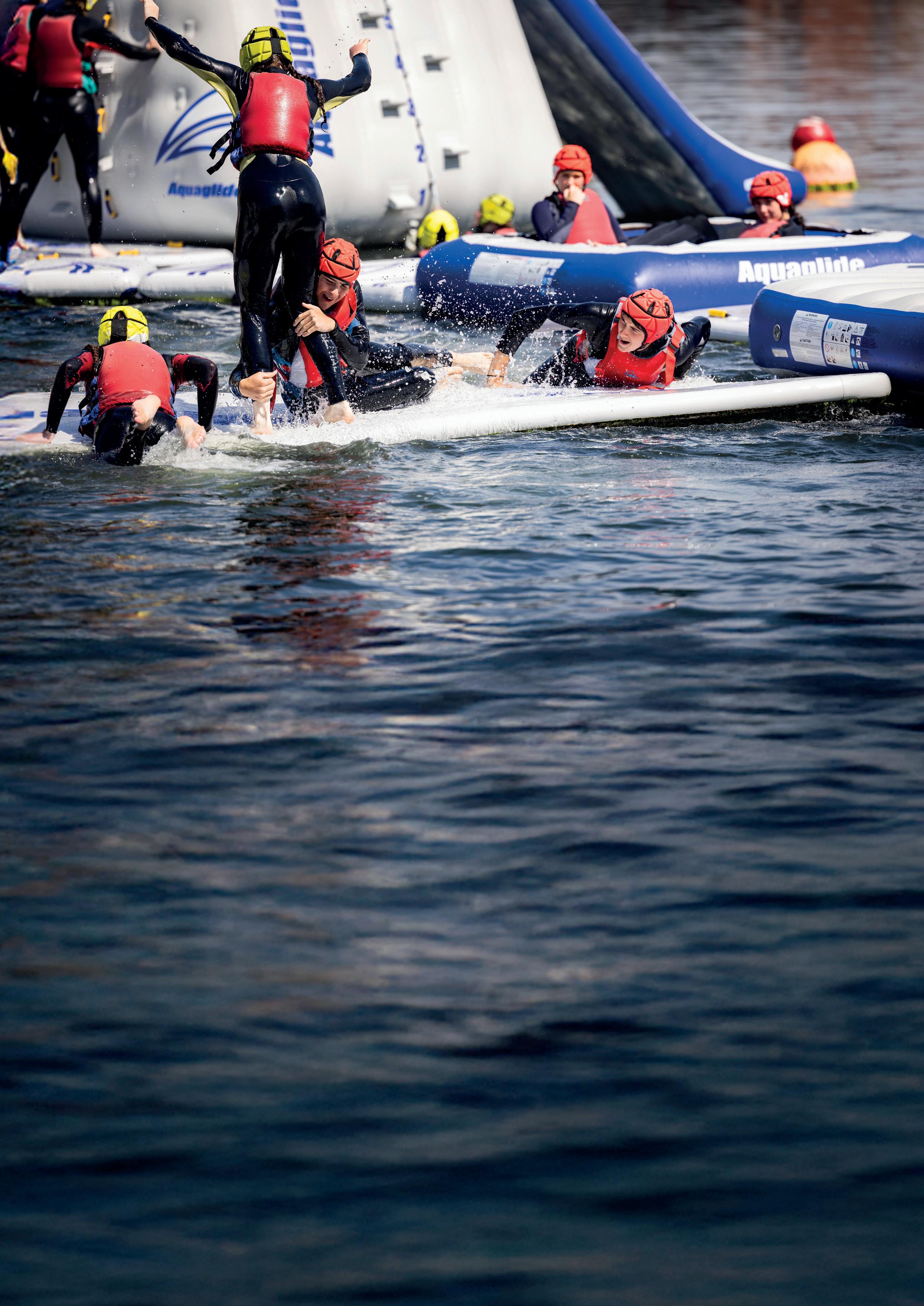
more transferable skills and opportunities. This ‘levelling up in action’ helps them compete with children from more affluent backgrounds.
In interviews, the research team heard numerous examples of how being a member of the CCF had transformed pupils' behaviour. These benefits were not just limited to cadets: headteachers reported that improved behaviour extended throughout the school.
Cadet forces in schools were praised for providing challenging and fun opportunities which develop self-confidence and leadership skills in young people. Taking part in these activities also improved the likelihood of pupils going on to attend higher or further education, and their employability prospects.
The report noted how CCF contingents provide cadets with a progressive syllabus that includes skill awards (such as badges for first aid or communication) and promotions alongside vocational qualifications from the Cadet Vocational College.
By using peer mentoring to achieve these qualifications, the CCF helps pupils develop the qualities required to navigate and build social relationships, develop problem-solving skills and engage in education.
With the cost of one persistently absent child being around £2,166 annually, the report also found school-based cadet forces have the potential to save over £1.1m of the education budget through just one cadet per school increasing their attendance. The CCF has such a positive impact, it is being used in some schools as part of their strategy to tackle exclusion.
Minister for Veterans and People Alistair Carns said: 'Not only does the cadet force impact those involved first-hand, but also the nation as a whole. If every year the Cadets experience helps just one per cent of cadets change their life outcomes so they are in employment, education or training, the annual cost of the cadet forces is covered.
'In terms of health and wellbeing alone, participation in the cadet forces produces an annual return on investment in the region of £120m each year. Additionally, each year it is estimated that the lifetime value of vocational qualifications gained by the most disadvantaged cadets is well over £130m.
'Adult volunteers, too, see significant benefits from supporting the cadet forces. They can gain qualifications that can generate a total increase in potential lifetime earnings of around £50m. These units could not run without the dedication of adult volunteers – including teachers and the wider school community – who deliver the Cadets experience. For that, we are all grateful.'
The CCF adds enrichment, it helps build character, resilience, practical skills and camaraderie; it adds to the educational experience. Importantly, every member of school staff that was interviewed made the point that the CCF is accessible to all –the non-sporting, the non-musical – anyone can join, and it's all encompassing with intellectual, physical and social content.
Participation in camps, expeditions and adventure training that cadets in the CCF undertake have been found to produce physical, psychological and social benefits in young people, increasing their resilience, self-esteem and reducing incidence of depression (Warburton et al. 2006).
School-based staff were complimentary about the CCF’s ability to create opportunities for students to gain qualifications, with cadets provided with opportunities to engage in Duke of Edinburgh's Awards, BTECs, and first aid programmes, to cite just a few. These qualifications opportunities, with some accredited and others viewed favourably by universities and employers, place cadets in a good position when applying for employment or further education post-school.
IN THE RESEARCH, SCHOOLS REPORTED 77.7% Improved behaviour 66.6%
74.9%
Improved attendance

Improved academic attainment
Proven to boost wellbeing, with 91.6% of headteachers reporting a positive impact
98.9% of headteachers found an improvement in cadet resilience
83.3% of headteachers stated that the Army Cadets positively impacts outcomes of the school
Since the Department for Education and the Ministry of Defence launched the CEP in 2012, there are now 449 schools across the UK with contingents. 449
Discover some of the ways Army cadets engaged with their communities during the past year.
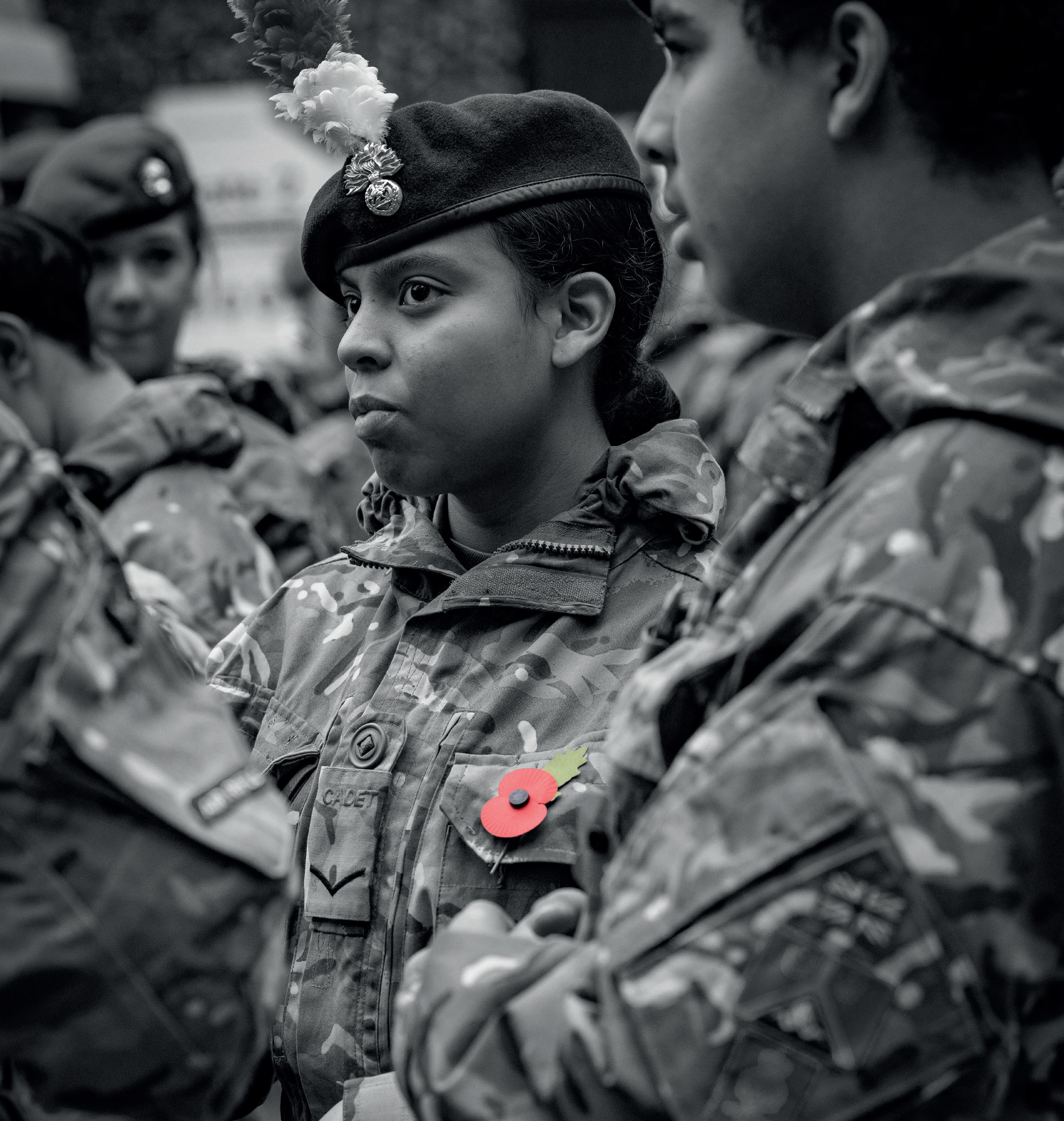
Cadets and adult volunteers from every detachment across the UK joined thousands at Remembrance events, services and parades. Here is a snapshot of just some of them.
In the North, these included the Stalybridge Remembrance Day service in Manchester, where cadets and staff took part in the parade and laid wreaths on behalf of Greater Manchester ACF and Stalybridge Detachment, No 2 (Kohima) Company.
In the East, members of Cambridgeshire ACF joined Col Mark Knight MBE, Deputy Lord-Lieutenant of Cambridgeshire, and Steve Barclay MP, along with hundreds of others who gathered at Wisbech War Memorial.
Northumbria ACF represented the Army Cadets in London during Remembrance weekend, which included supporting the Royal British Legion’s Festival of Remembrance at the Royal Albert Hall and marching alongside several thousand personnel
past the Cenotaph. They then returned to Horse Guards and provided an eyes-right to HRH The Prince of Wales, who received the salute.
In the South West, cadets from Cornwall ACF took part in a parade, service and wreath-laying ceremony at Newquay War Memorial.
Remembrance parades and events also took place across Scotland and were attended by cadets from 1st Battalion Highlanders ACF, Black Watch Battalion ACF, West Lowland Battalion ACF, Glasgow and Lanarkshire Battalion ACF, Lothian and Borders Battalion ACF, Angus and Dundee Battalion ACF and Argyll and Sutherland Highlanders Battalion ACF.
Members of Welsh ACFs attended events across Wales, including Clwyd and Gwynedd ACF who were present in Bangor, Pwllheli, Colwyn Bay and Conwy. 1st and 2nd (Northern Ireland) Battalion ACFs were also well represented at Remembrance events.
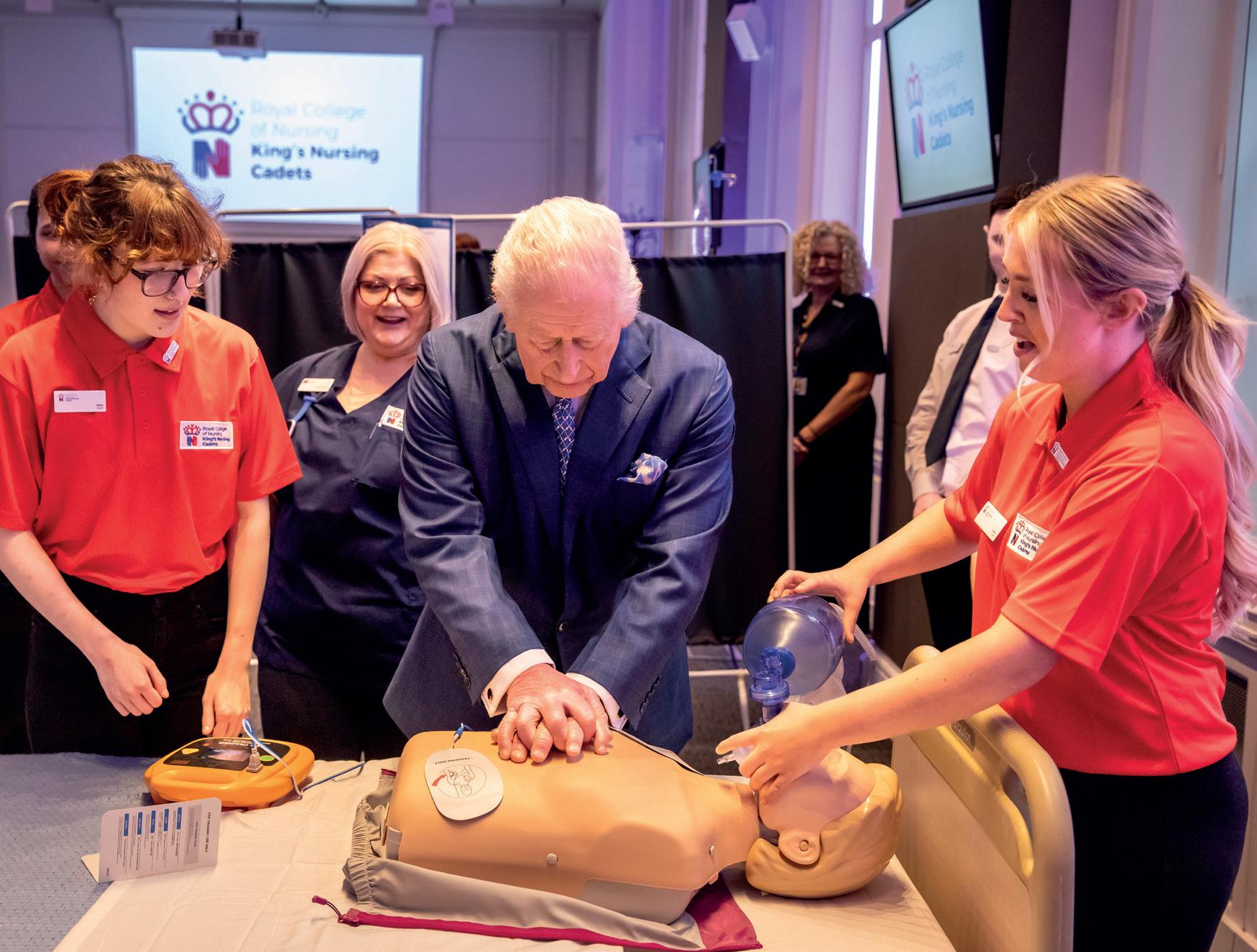
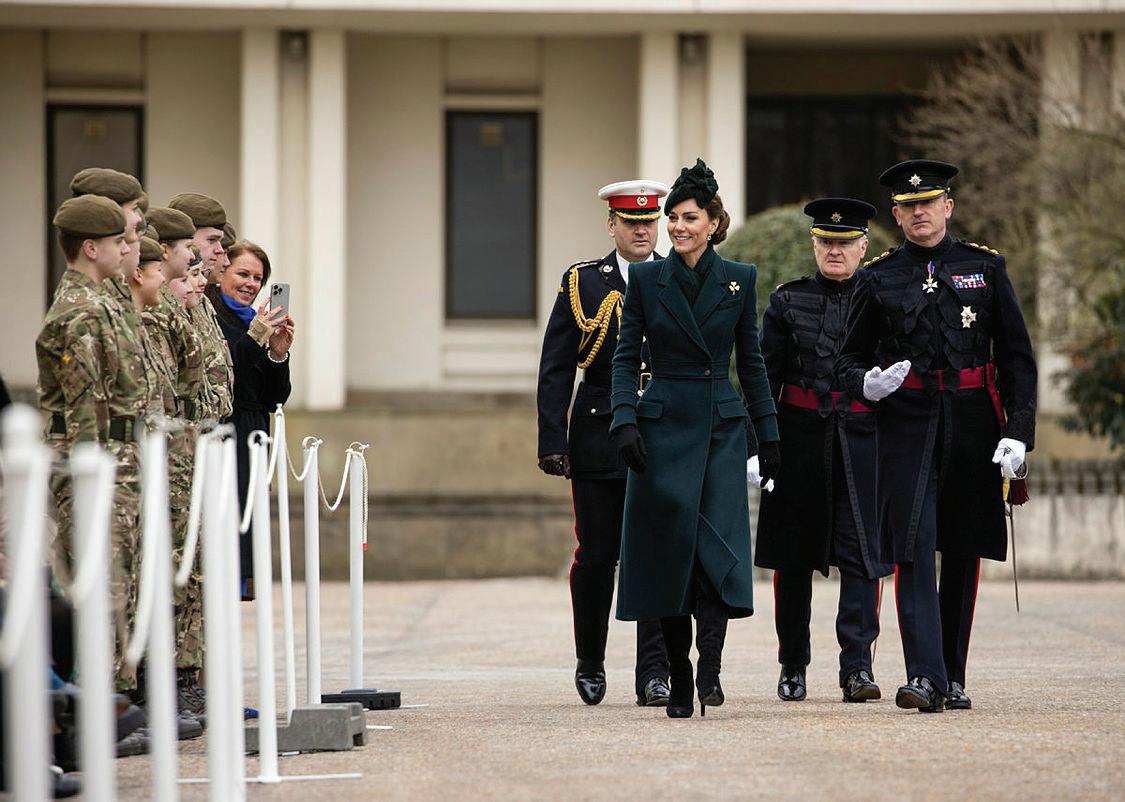
Ex KILKEEL SHAMROCK 2025 saw 12 cadets and two CFAVs from Kilkeel High School CCF in Northern Ireland delve deeper into the history and traditions of their sponsor unit, the Irish Guards, during a long weekend in March.
On the Friday, they visited the Royal Hospital Chelsea – home to British Army veterans – and Wellington Barracks, where they watched rehearsals for the St Patrick’s Day parade. The next day, the cadets took in the Natural History Museum and Imperial
His Majesty King Charles III refreshed his first aid skills and practised resuscitating a dummy patient under the watchful eye of two Army cadets during a visit to the Royal College of Nursing (RCN) in London.
Cdt Mia Alami and Cdt Sgt Evie Papademederiou from Essex ACF were part of a group of nursing cadets who demonstrated CPR to the King.
The first-aid refresher was part of a celebration of the RCN King's Nursing Cadets scheme, an initiative that helps young people develop their skills and supports them towards a career in nursing.
During the event, the King met the scheme’s 999th and 1,000th participants: 16-year-old twin brothers Cdt Cpl Jefferson Rigby and Cdt Cpl Harrison Rigby from Essex ACF.
The initiative (formerly called the RCN Prince of Wales' Nursing Cadets) was launched in 2019 but has been relaunched as the RCN King's Nursing Cadets scheme.
War Museum and met cadets from Greater London South West Sector ACF for a wellbeing awareness event.
On Black Sunday (the annual Regimental Day of Remembrance when serving and former Irish Guardsmen pay tribute to those killed and injured in service), the cadets witnessed the poignant Drumhead service before the St Patrick’s Day parade. As Colonel of the Irish Guards, HRH The Princess of Wales presented officers with baskets of shamrock and raised a glass of Guinness in the junior ranks club. Each cadet was presented with a sprig of shamrock and a soft drink for the toast.
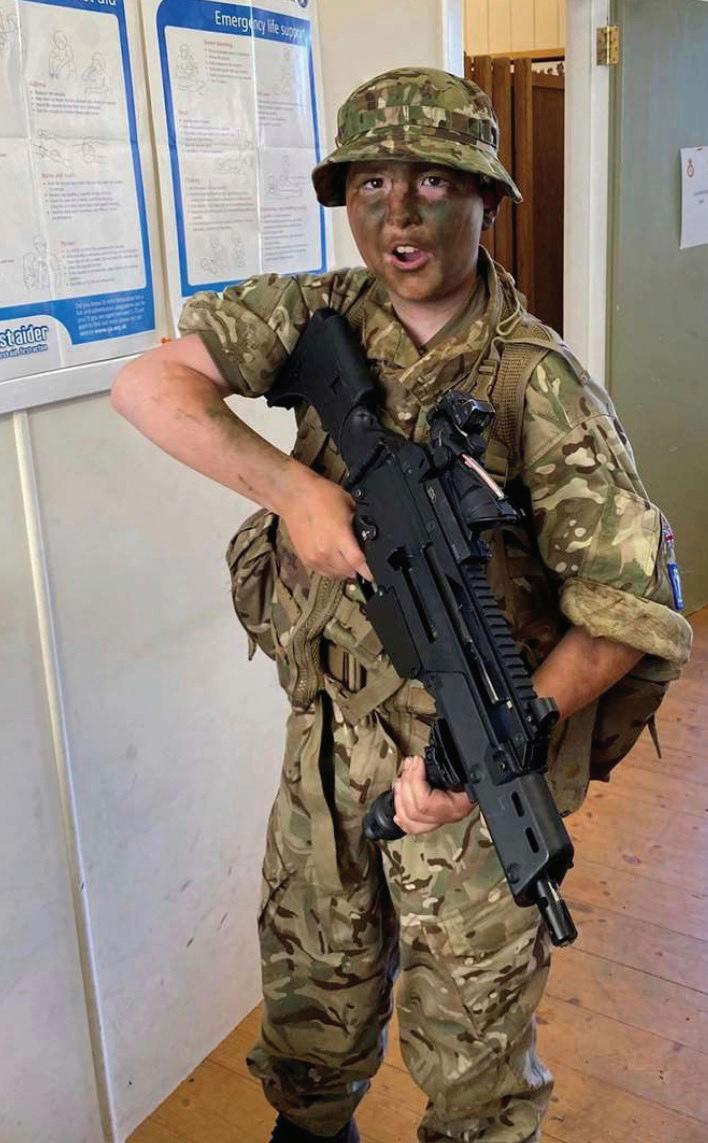
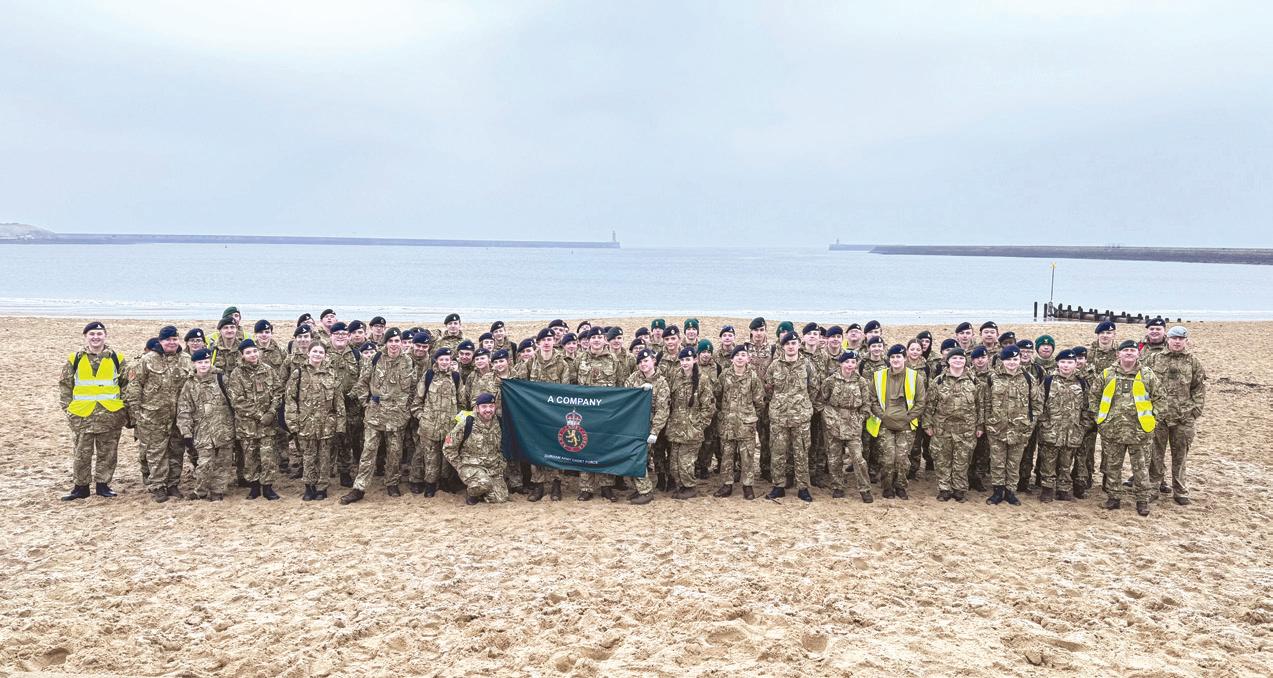
Army cadets who were involved in the coronation of King Charles III and Queen Camilla have been awarded the prestigious Coronation Medal.
Brigadier Gary McDade, Deputy Commander Cadets, said: ‘These medals acknowledge the invaluable contribution all Army cadets make in helping Defence connect with society.’
Cadets from Bristol and Channel Islands ACF, Warwickshire and West Midlands (South Sector) ACF, and St Benedict's School CCF were among those presented with medals by Alistair Carns, Minister for Veterans and People, on 7 April.
In the depths of December, 801 people stepped up for the Walking Home challenge and raised over £95,000 for military veterans charity Walking With The Wounded (WWTW). Among them were eight Cadets teams, who walked across various regions of the UK, including a team created by LCpl Murray Harrold, age 13, (pictured) of Ross and Caithness Company, 1st Battalion The Highlanders ACF.
'Veterans gave their tomorrow for our today, so I think it's important we support them to show thanks for their sacrifices,' said Murray, who signed up and led cadets and CFAVs from Wick, Thurso and Halkirk Detachments.
Each team member aimed to walk as many miles as they could between the launch of the Walking Home campaign and Christmas. Together, they raised over £3,000, of which £1,200 was raised by Murray.
Braving cold and windy conditions, 77 dedicated cadets and 14 CFAVs from A Company, Durham ACF, recently completed a 12-mile sponsored coastal walk from Jarrow Detachment in South Tyneside to Seaburn Detachment in Sunderland.
They raised an impressive £2,103, which will be used to provide additional equipment and enhance the Army Cadets experience across various A Company Detachments.
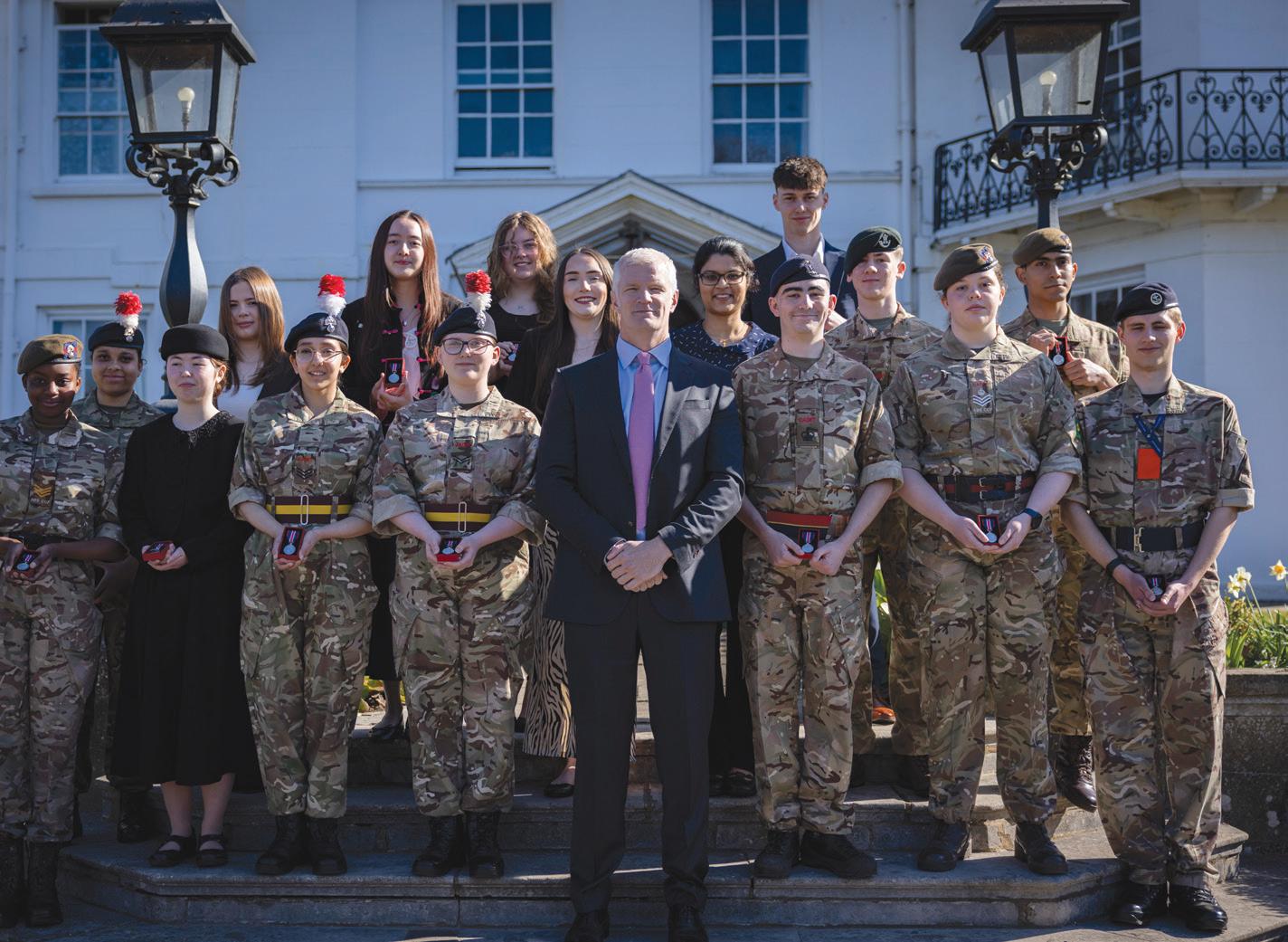
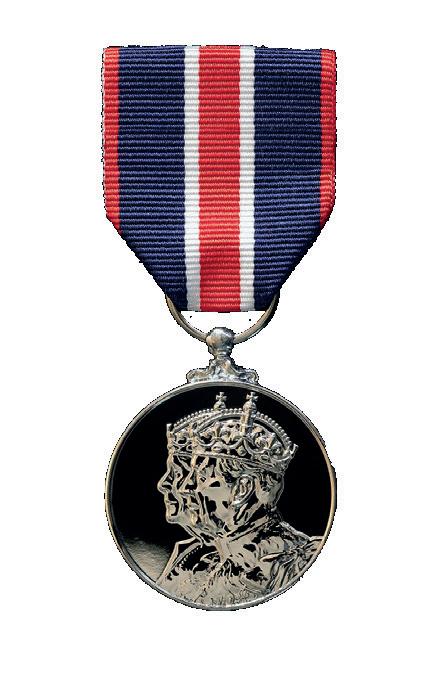
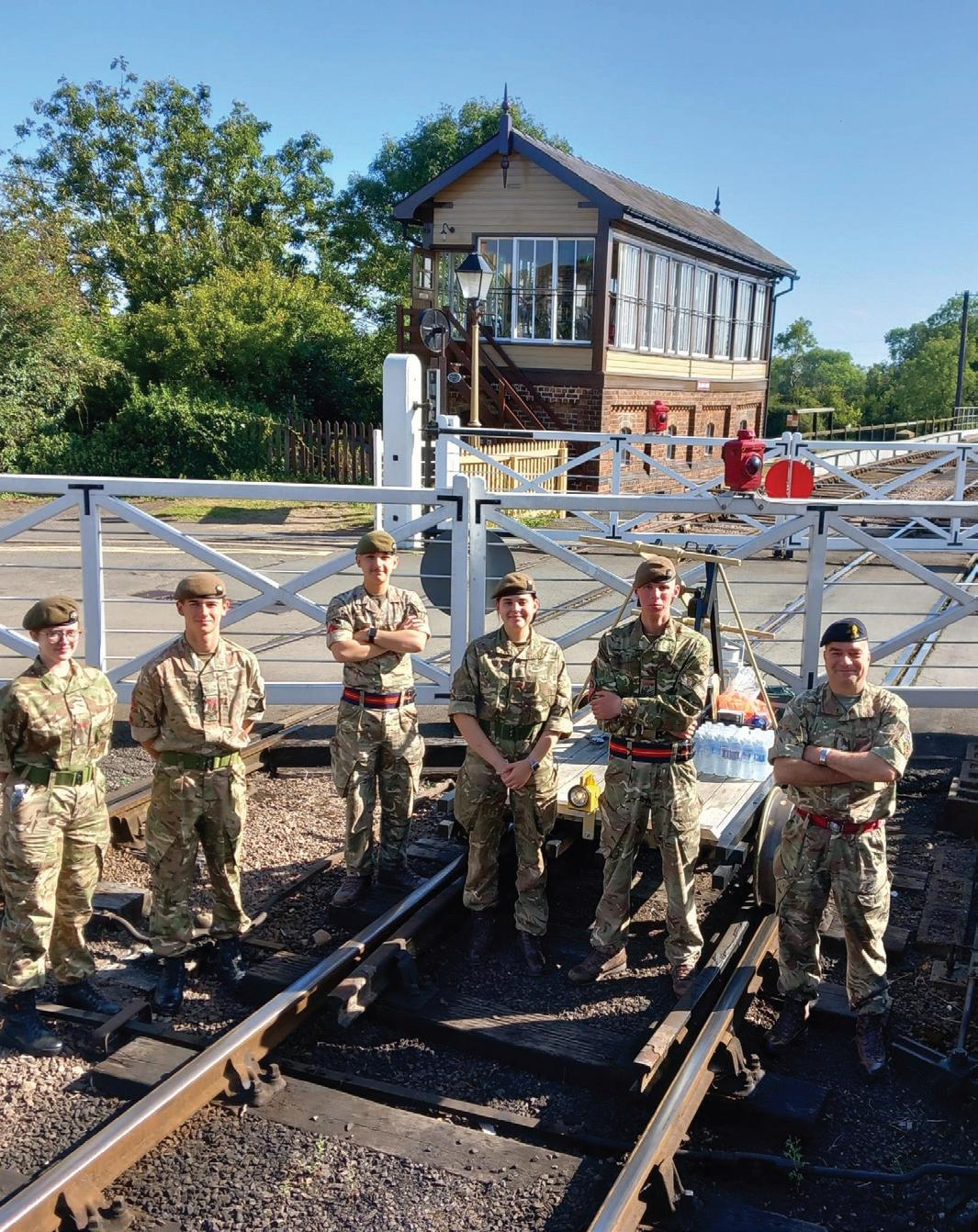
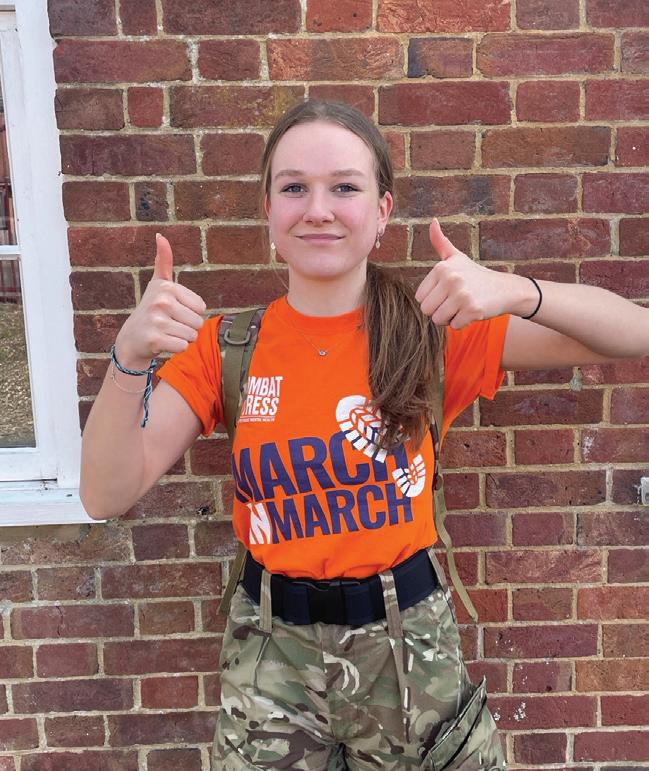
Cadets from the Thomas Hardye School CCF in Dorset strode out for charity in spring, when they took part in a ten-mile fundraising walk. The 'March in March' raises funds for Combat Stress, a charity that offers mental health support to military veterans.
Some 30 cadets and seven staff trekked around Dorchester and raised £7,750, with lead fundraiser Cdt Sgt Jessica Rose (pictured) raising nearly £800.
Cadets across the country joined the 2024 Cadet Challenge to raise money for the Army Cadet Charitable Trust (ACCT) UK.
Cadet Challenge fundraising goes towards the ACCT UK Grants programme to subsidise trips and activities, supply equipment and make sure opportunities are accessible for all cadets. Ways to raise funds include bake sales, supermarket collections, abseiling, mountain climbing, running, swimming and bike riding.
The winners of the 2024 Cadet Challenge, which was supported by HORIBA MIRA, were:
Cadet winner Cdt Jensen Hayes, Wiltshire ACF, who took part in a head shave and opted to raise funds rather than receive birthday presents.
CFAV winner Maj Joe Martin, Devon ACF, who ran the London marathon at the age of 64 and raised over £3,000.
Group winner Lincolnshire ACF, who raised over £12,500 through a range of fundraisers, one of which involved Skegness Detachment manually operating a pump carriage along 15km of Nene Valley railway track (pictured).
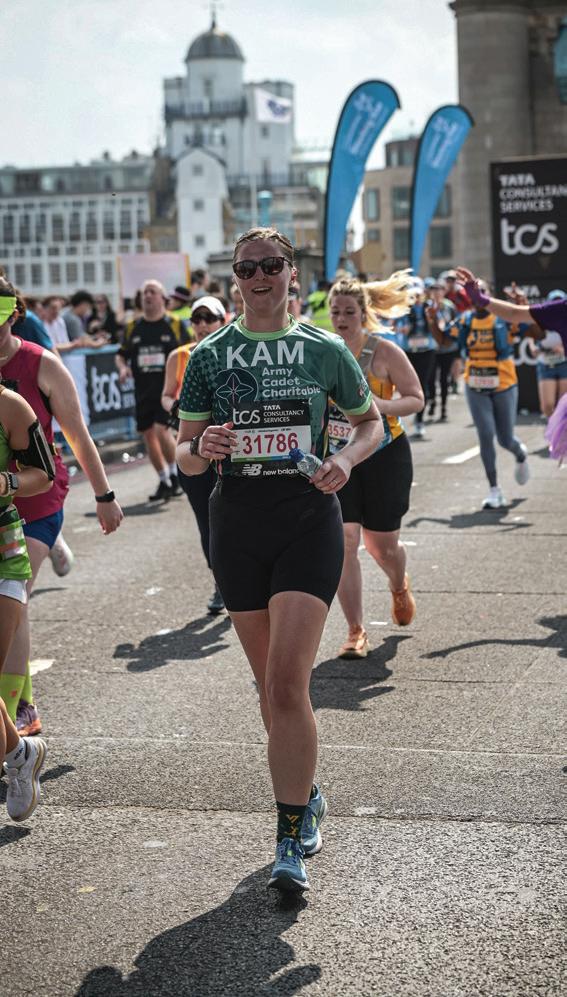
2Lt Kamila Clarke (pictured) completed the London Marathon in April. She finished with a time of just under seven hours and raised over £500 for ACCT UK. Ex-cadet Kamila is a CFAV with Ilfracombe Detachment, Devon ACF.
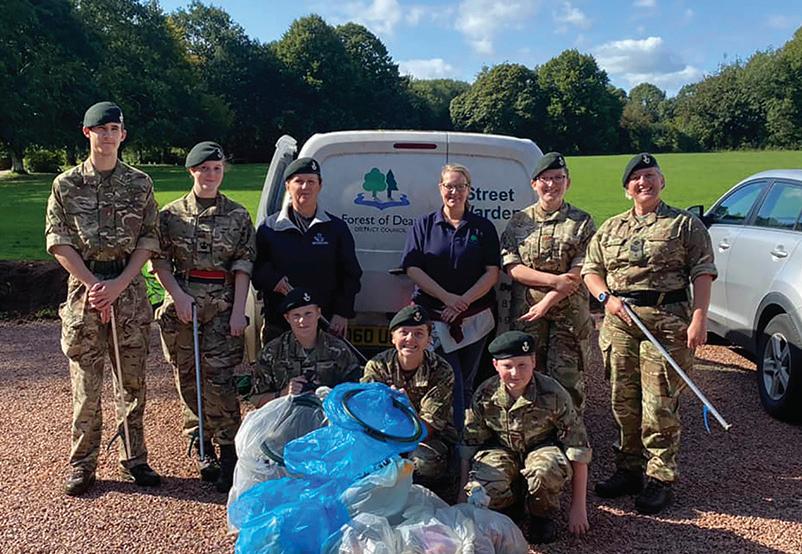
Coleford Platoon, Gloucestershire ACF, has been honoured with the Forest of Dean Youth Environmental Award. The award encourages young people to expand their boundaries and consider their role in global citizenship, climate change, wildlife biodiversity and healthy living.
Cadets and CFAVs took part in activities that included creating a recycling station and bird feeders for their Cadet Garden, a trip to a beaver enclosure and a donation to the National Trust for tree planting.
They also visited a windfarm, supported an open day at a hedgehog sanctuary, engaged in a fungi identification project and planted a wildflower patch.
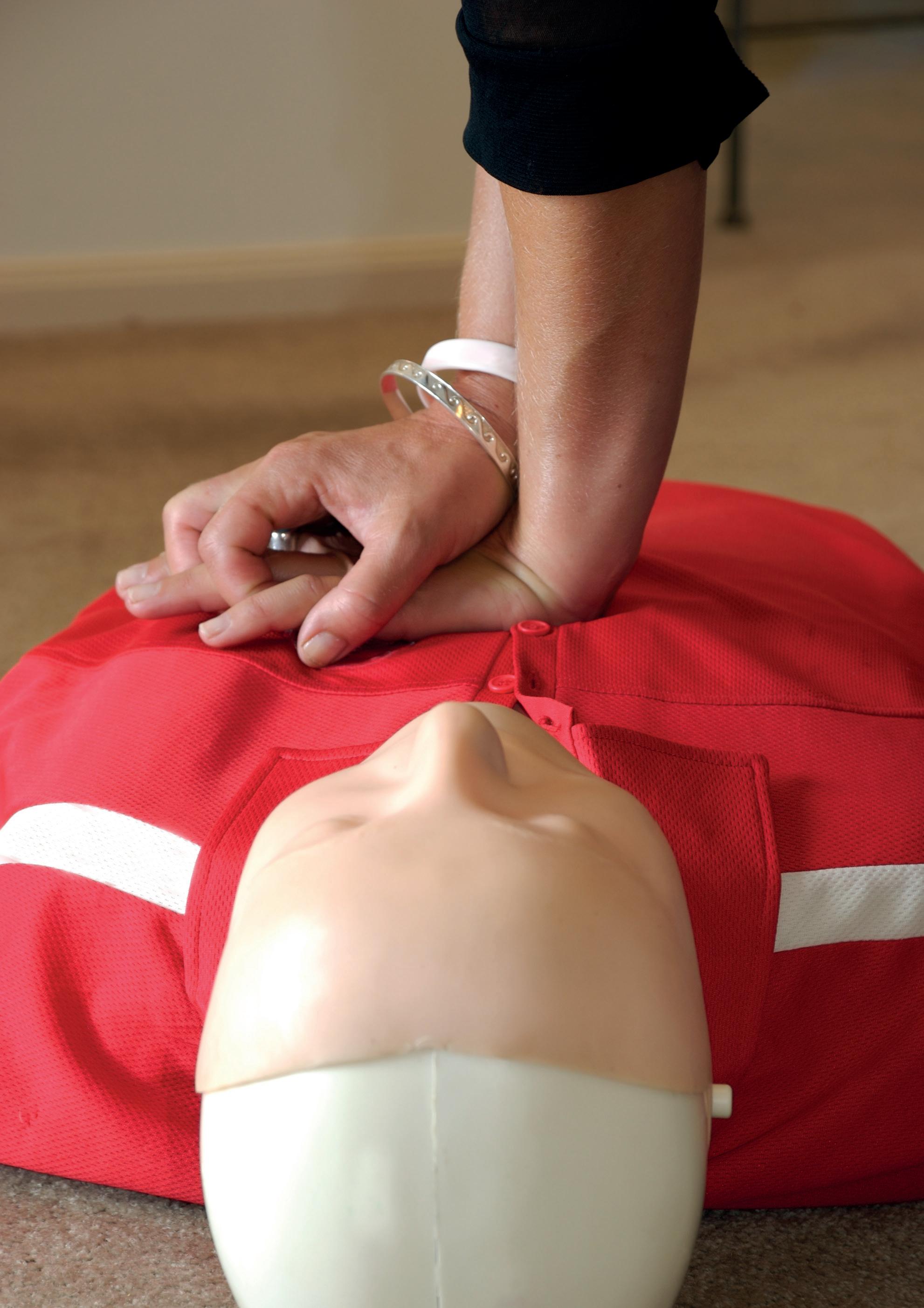
Cadets receive training in life-saving first aid skills which, sometimes, get put to the test in serious real-life situations.
Here is a small snapshot of more than 130 cadets and adult volunteers who have applied their first aid skills to real-life emergency situations – and been recognised through award nominations.
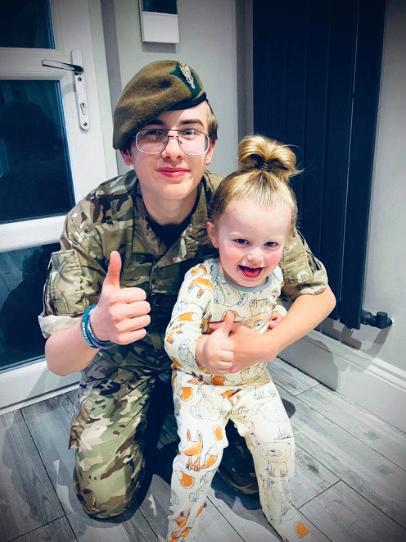
1Cdt LCpl Lewis Butler, aged 15, from Derbyshire ACF, saved the life of his two-year-old brother, using first aid skills gained in the Army Cadets.
Lewis and his family were enjoying their evening meal when Lewis' two-year-old brother, Lyndon, went silent, red in the face and began to shake. He was choking on a piece of food lodged in his throat.
Lyndon's parents were initially at a loss as to how to help their son but, thankfully, Lewis' training had taught him how to remain calm and take control of an emergency.
Lewis jumped into action without a second thought. He supported Lyndon's chest, tilted him forward and began administering upward blows to his back. His mum attempted to assist by trying to induce vomiting but Lewis quickly stopped her, knowing that would worsen the situation.
‘I was just unbelievably proud of Lewis and grateful to those who taught my son life-saving skills’
After five back blows, Lyndon ejected the food and was able to draw breath again. Relieved, Lewis and his family shared hugs and tears over what could have been a life-changing incident.
Reflecting on the ordeal, Lewis and Lyndon's mum, Natasha Smith, said: 'We were all so relieved, it was unreal. I was just unbelievably proud of Lewis and grateful to those who taught my son life-saving skills. I messaged his detachment commander SMI Julie Smith to express my gratitude. It has definitely made me think about learning these skills myself.'
A statement from Derbyshire ACF said: 'Cdt LCpl Butler, you are undoubtedly a hero to Lyndon and the confidence you displayed during such a scary event is inspiring!'
Award: ACCT UK National Praiseworthy Action Certificate
2Cdt Sgt Joshua Bond, aged 17, from Cumbria ACF was on his way back from an Army Cadets event when the bus he was travelling in braked sharply, throwing a man and a woman to the floor. They were badly injured with lacerations, head injuries, bruising and spinal fractures.
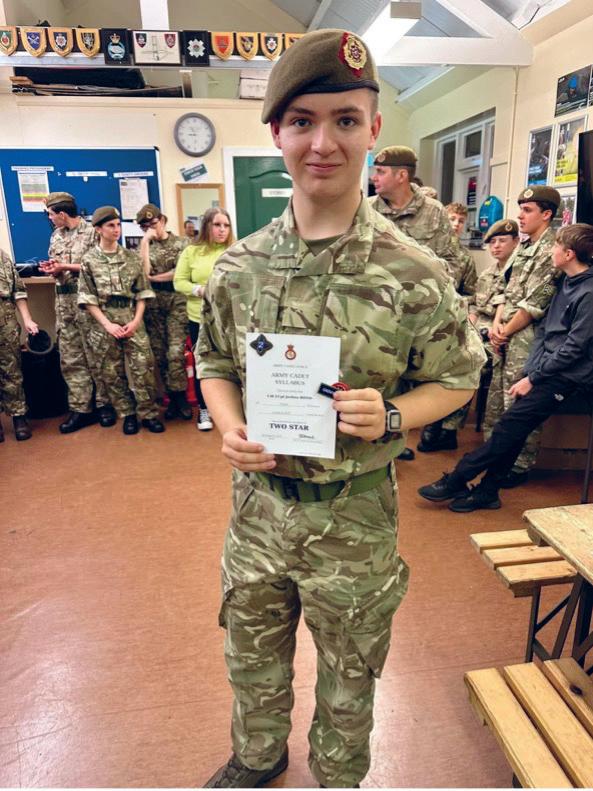
Joshua went to the aid of the casualties, applied pressure to stop the bleeding and ensured they remained still to avoid further injury. An ambulance was called but, realising time was of the essence, Joshua asked the bus driver to take the couple to hospital. He stayed with the casualties, continuing to treat their injuries until he was able to hand over to paramedics at the hospital.
For this act of heroism, Joshua earned the ACCT UK Meritorious Action Certificate. However, it is not the first time he has displayed award-winning courage.
Last year, he saw an elderly man trip and fall into a gatepost, causing a head wound. He applied pressure to the wound before dressing it. As there were no ambulances available, Joshua's mum drove them to the hospital while he continued to assess the casualty. Once there, he handed the man over to the medical team. These actions were recognised with the ACCT UK National Praiseworthy Action Certificate.
Brigadier Gary McDade sent Joshua a hand-written letter, which said: 'I have recently been made aware of you having been awarded your second certificate from ACCT UK for outstanding actions in response to situations you've found yourself in. On two occasions, you've stepped up, taken control of stressful situations and made a real difference. You are an outstanding example of all that is good about the Army Cadets, and I'm very pleased that you've been appropriately recognised.'
Award: ACCT UK National Meritorious Action Certificate
Cdt Charlotte Cameron‑Hay (above, left), aged 16, of Glasgow and Lanarkshire Bn ACF didn't hesitate to go to the aid of a woman who she witnessed being hit by a motorbike as she crossed a road.
Charlotte and an off-duty paramedic ensured the casualty was in a safe place, comfortable and that her airway was clear. The cadet remained calm while phoning for an ambulance and communicated clearly with the 999 operative. She then continued to assist at the scene by looking after the woman's daughter and granddaughter who had also witnessed the distressing event. The relatives communicated how grateful they were for her actions, care and support.
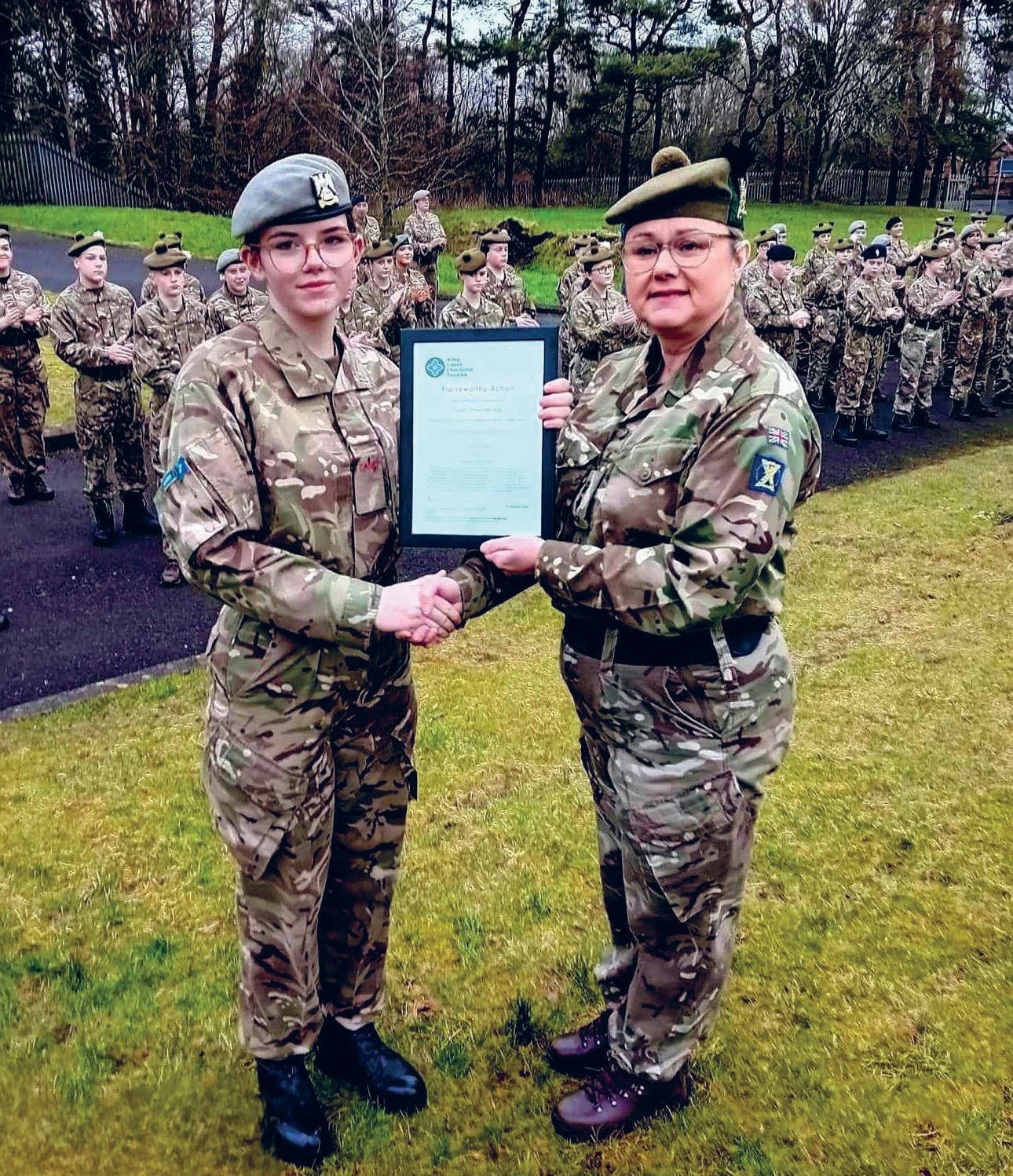
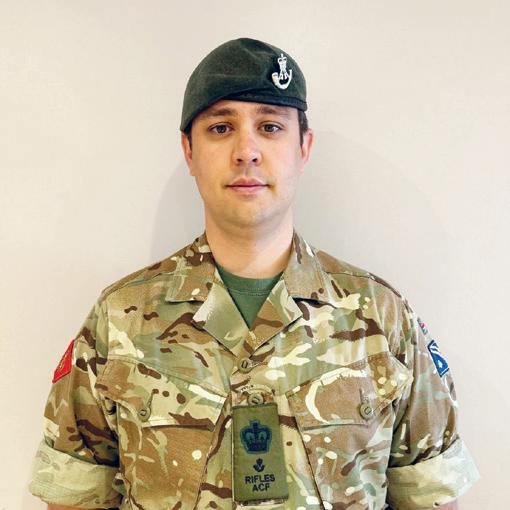
Award: Scottish First Aid Award 2025
Award: ACCT UK National Praiseworthy Action Certificate
4
Cdt LCpl Amelia Adams (right), aged 16, of Glasgow and Lanarkshire Bn ACF was in Motherwell town centre when she came across a man sitting on the ground whose unwell appearance gave her cause for concern.
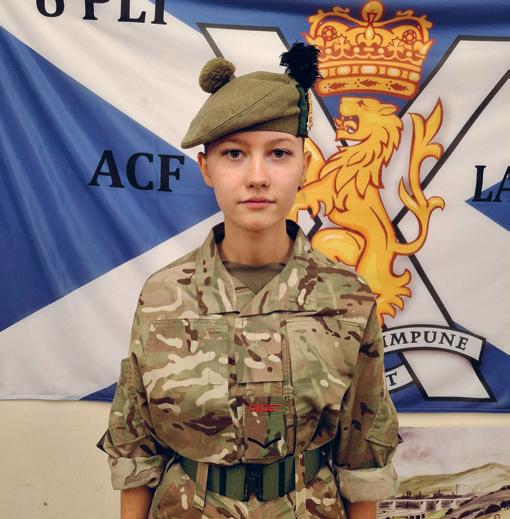
She asked him about his symptoms and ascertained he had a pain in the chest, pain while breathing and a history of heart problems. Suspecting he may be experiencing a heart attack, she placed him in the 'W' position. On establishing that the man had aspirin on him, she also helped him take the medication.
She then asked a passerby to call 999 for an ambulance and calmly waited with the casualty, all the while offering reassurance and continuing to observe his symptoms.
When the ambulance crew arrived, she passed on relevant information about his symptoms, his disclosure about his heart condition and that he had self-medicated with aspirin.
Award: ACCT UK National Praiseworthy Action Certificate
5On the very day that SMI Conor McLennan (left) from Oxfordshire ACF completed his First Aid at Work course with the Army Cadets, he was faced with an emergency scenario in which he put his new skills into practice.
That evening, SMI McLennan was at a restaurant in Banbury when he noticed a commotion at another table. He went to offer assistance and ascertained that an elderly woman had been choking for more than five minutes and that a member of staff was in the process of calling for an ambulance.
When the woman rapidly deteriorated and became unconscious, SMI McLennan established she was in cardiac arrest and commenced cardiopulmonary resuscitation (CPR). He also communicated the change in situation to the staff member calling for the ambulance. While performing CPR, he asked the staff if there was an AED (automated external defibrillator) nearby. Unfortunately, there wasn't.
When a paramedic arrived a couple of minutes later, he recognised that SMI McLennan was carrying out effective CPR and, without interrupting his rhythm, was able to attach a defibrillator to the woman and manage her airway obstruction. A police officer then arrived and was able to take over the CPR from SMI McLennan.
By that time, the restaurant had been cleared by staff but SMI McLennan noticed the casualty's partner sitting alone at a table. He reassured the man until a member of the emergency services took over.
After the incident, he reflected how the training he'd received prepared him to recognise a medical emergency and gave him the confidence to step in and deliver life-saving treatment.
Award: Royal Humane Resuscitation Certificate
Award: ACCT UK National Meritorious Action Certificate
Cdt Aimee Williams of Dyfed and Glamorgan ACF showed extraordinary courage and life-saving actions during a family emergency abroad.
While on holiday in Alicante last summer, Aimee's mother collapsed with a seizure that was the result of a sudden brain aneurysm. Drawing on her Army Cadets first aid training, Aimee remained calm under immense pressure and administered first aid. She then ran down 16 flights of stairs to summon help and give directions to emergency services.
When she returned, she ensured her mother's airway was clear while monitoring her breathing and pulse. Along with her mother's partner, she was able to place her mother in the recovery position, which proved critical when she began vomiting. Aimee's quick thinking and composure ensured her mother's survival until the ambulance arrived.
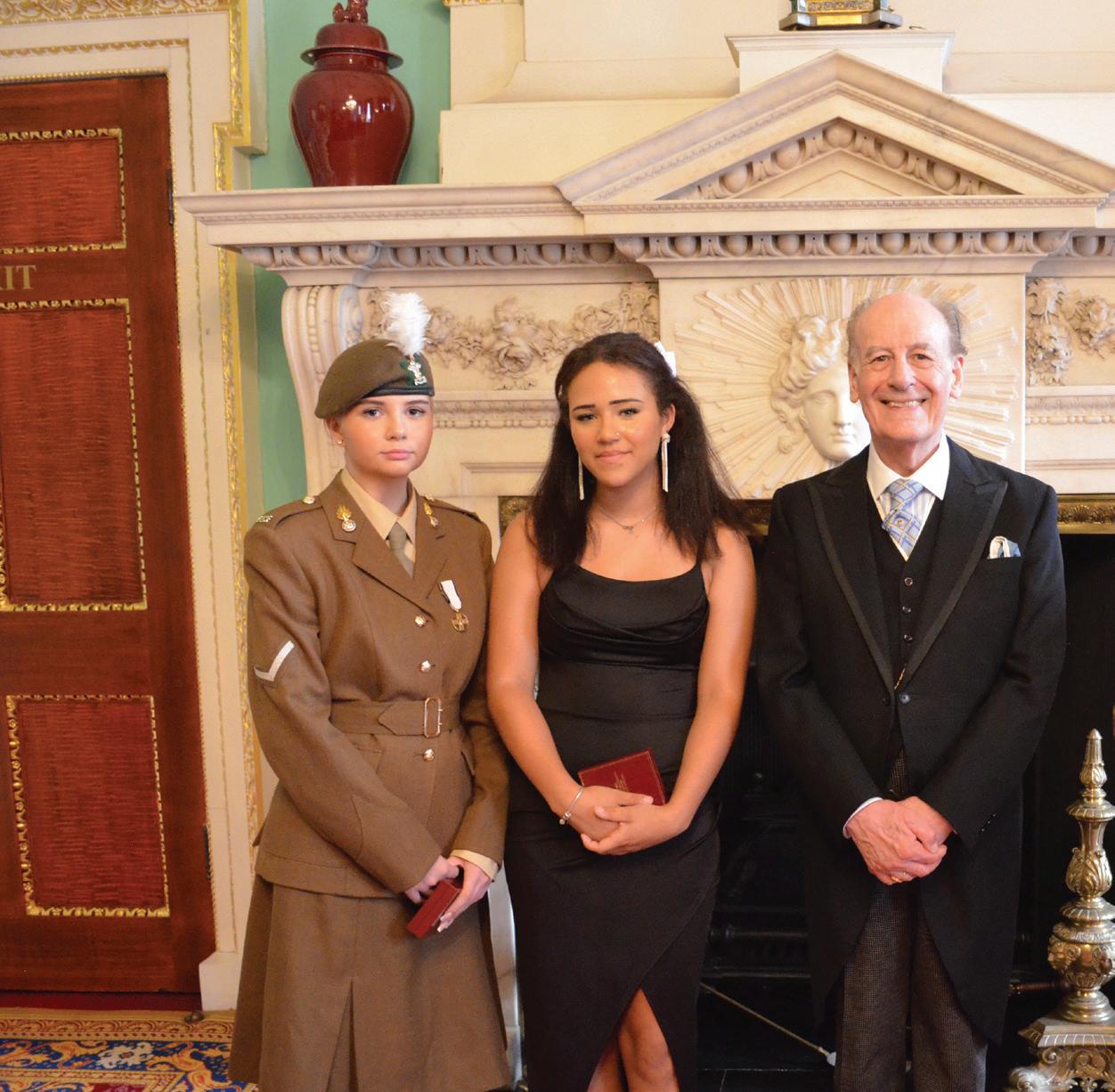
‘Her actions have made a profound difference and exemplify the spirit of the Army Cadets’
Her courage did not end there, however. Faced with her mother's urgent hospital bills and need for life-saving surgery, Aimee coordinated emergency funds from the UK. On returning home, she launched a fundraising campaign which raised over £22,900. Her efforts covered vital medical expenses, specialist equipment and ongoing support for her mother's recovery.
Despite challenges, Aimee has continued to attend her unit, participate in training weekends and support her peers, demonstrating resilience and determination. Her mother is now recovering at home thanks to Aimee's actions and the support she has rallied.
ACCT UK Chief Executive Murdo Urquhart, said: 'Aimee's story is one of bravery, compassion, love and leadership in the face of adversity. She is a role model to her detachment, her family and the wider community. We are immensely proud of her and inspired by her example. Her actions have made a profound difference and exemplify the spirit of the Army Cadets.'
Award: League of Mercy's Distinguished Community Service Medal for Cadets
Award: ACCT UK National Praiseworthy Action Certificate
7Cdt LCpl Holly Carr of Surrey ACF was at a party when she noticed an 11-year-old boy had become gravely unwell. Drawing on her first aid training, Holly quickly recognised the signs of alcohol poisoning.
The boy fell unconscious, so Holly placed him in the recovery position and instructed a friend to call 999. When others refused to help, Holly took charge and made the emergency call herself.
Despite being told by the ambulance service that no one was available to dispatch, Holly remained calm and vigilant. She continued to monitor the boy and, when he stopped breathing and began to gurgle, acted without hesitation. She called 999 again and immediately started CPR. She continued to give life-saving compressions until the ambulance crew arrived and took over. Thanks to her quick thinking, skill and courage under pressure, the boy made a full recovery.
ACCT UK Chief Executive Murdo Urquhart, said: 'What makes Holly's actions even more remarkable is that, in a room of around 20 people, she was the only one to step forward and take responsibility. Her confidence, composure and courage to act in a crisis truly embody the values of the Army Cadets. Her bravery is an inspiration to us all and a powerful reminder of the importance of first aid training and the difference one person can make.'
Award: League of Mercy's Distinguished Community Service Medal for Cadets
Award: ACCT UK National Praiseworthy Action Certificate
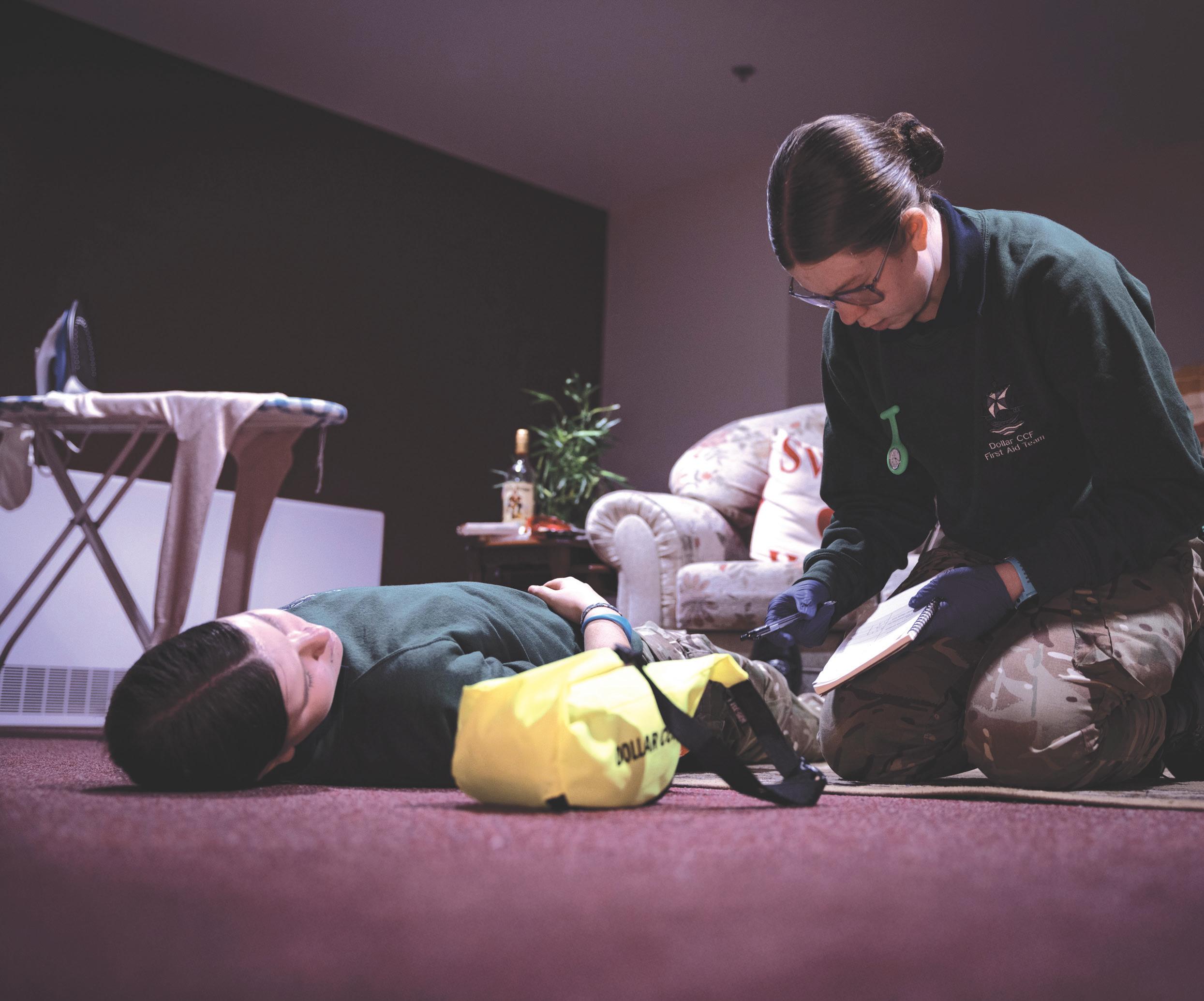
1,218
7,436
4,247
712
1,995
369
1,134
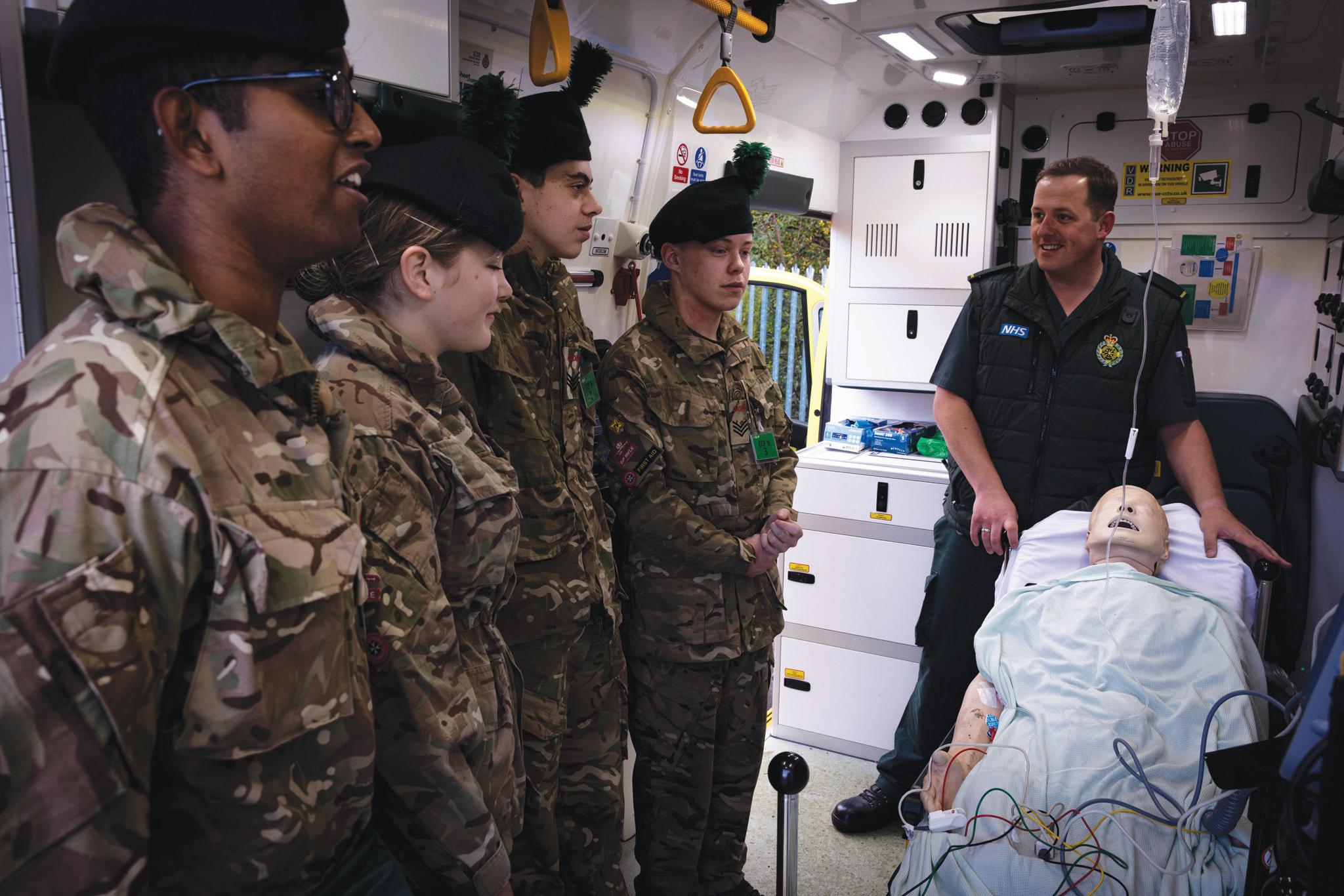
The 2024 National and Inter-Services First Aid Competitions were held on 15–17 November at Greater Manchester Fire and Rescue Service Training Centre in Bury. Cadets challenged with a range of medical conditions and accidents including diabetes, anaphylaxis, poisoning, asthma, seizures, burns and scalds.
Saturday 16 November saw the first aiders battle it out to establish the best ACF and CCF teams in the National First Aid Competition. There were competitions in both the cadet and young adult categories, with all members of each team having to demonstrate their abilities in communication, first aid skills and teamwork while navigating scenarios involving sick and injured casualties. As well as the team tests, each team member was individually assessed on treating a casualty.
'The National First Aid Competition is the accumulation of 12 months of training,' said Lt Col Amanda Stevens, National First Aid Advisor for the Army Cadets (pictured, right). 'It’s an opportunity for the best first aiders from across the UK to come together and compete at the highest standard.
'The scenarios used in the competition are designed to mirror realistic situations cadets might find themselves in. Cadets need underpinning knowledge, teamwork skills, good communication skills and the confidence to be able to perform well in their team tests. Ultimately, it helps them when performing first aid in real life, too.'
The top two teams from each category in the National First Aid Competition qualified for Sunday’s Inter-Services First Aid Competition. The team test simulated a newsagent being held at gunpoint, with a resulting gunshot wound, broken leg and head injury
treated by teams from the Army Cadet Force, Combined Cadet Force, Sea Cadet Corps and Police Cadets.
Cadets from Dorset ACF and Dollar Academy CCF tied with 273 out of a possible 320 points. However, Dorset ACF were the ultimate victors with the highest individual team scores. Dulwich School CCF came in third with a very respectable 269 points.
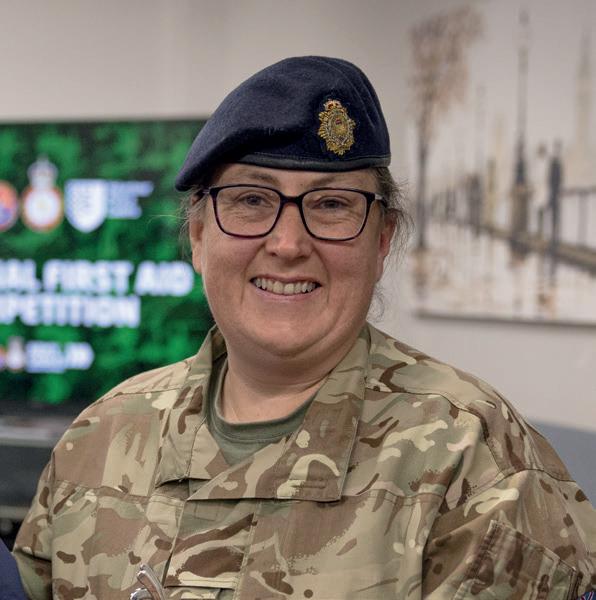
The young adults of Dulwich School CCF came first in their category with 197 points, and Durham ACF placed second with 192 points. The young adults of the Sea Cadet Corps also made the podium with Southern Area SCC scoring 182 out of a possible 240 points.
'First aid is the only subject within the syllabus that can directly save a person’s life,' said Lt Col Stevens. 'Every week we see examples of cadets using the life-saving skills they’ve been taught in the Army Cadets in their everyday lives.'
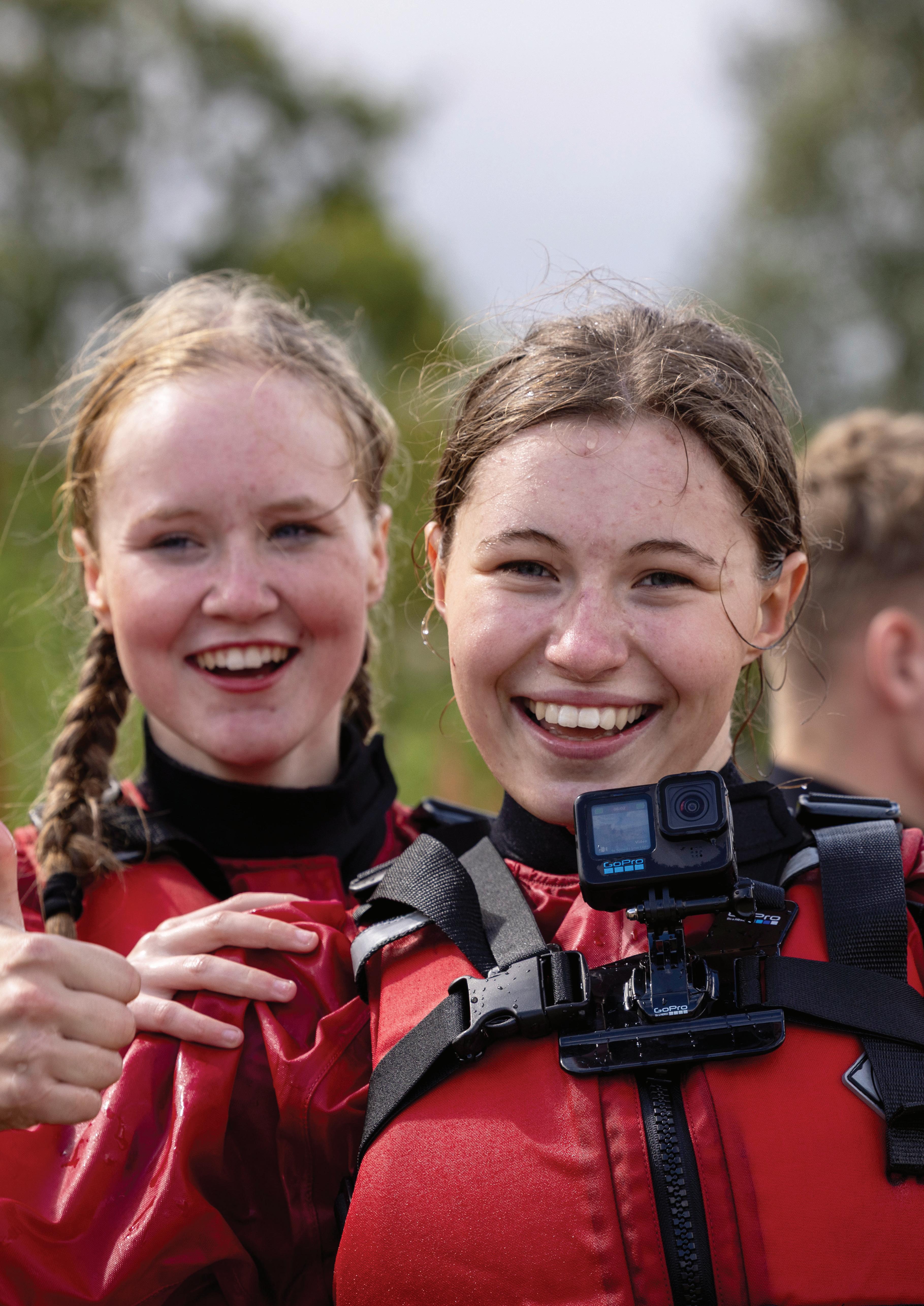
This year, 17,910 cadets and 5,264 CFAVs from across the UK spent time at summer camps, gaining a wide variety of new experiences. For some, it was their first time away from home, while for others it was their first time spent outside a city environment. And, as you can see from the photos, everyone had a great time!
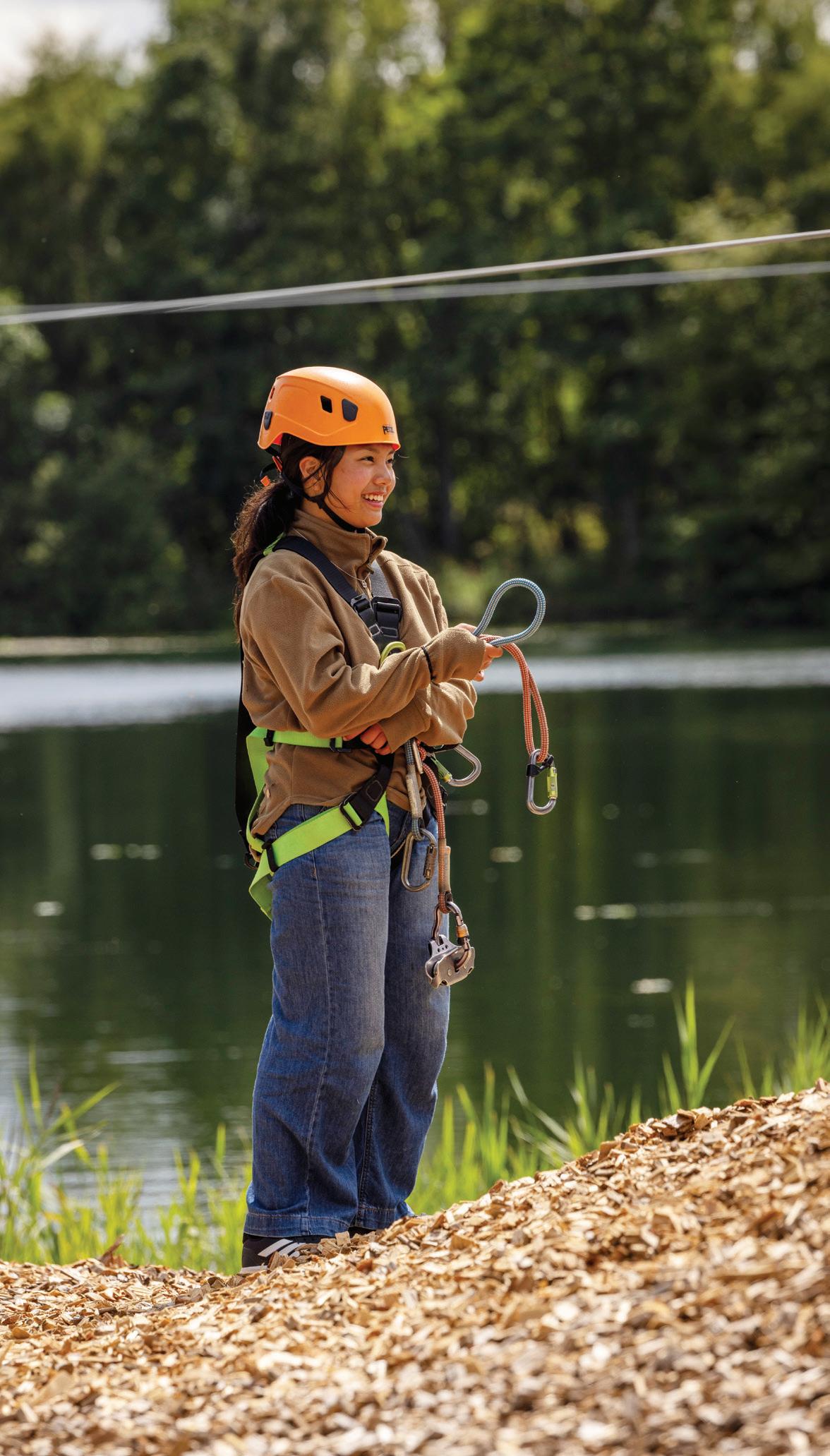
Summer camp is about making new friends, being challenged by trying new things and having fun while learning in the care of adult volunteers.
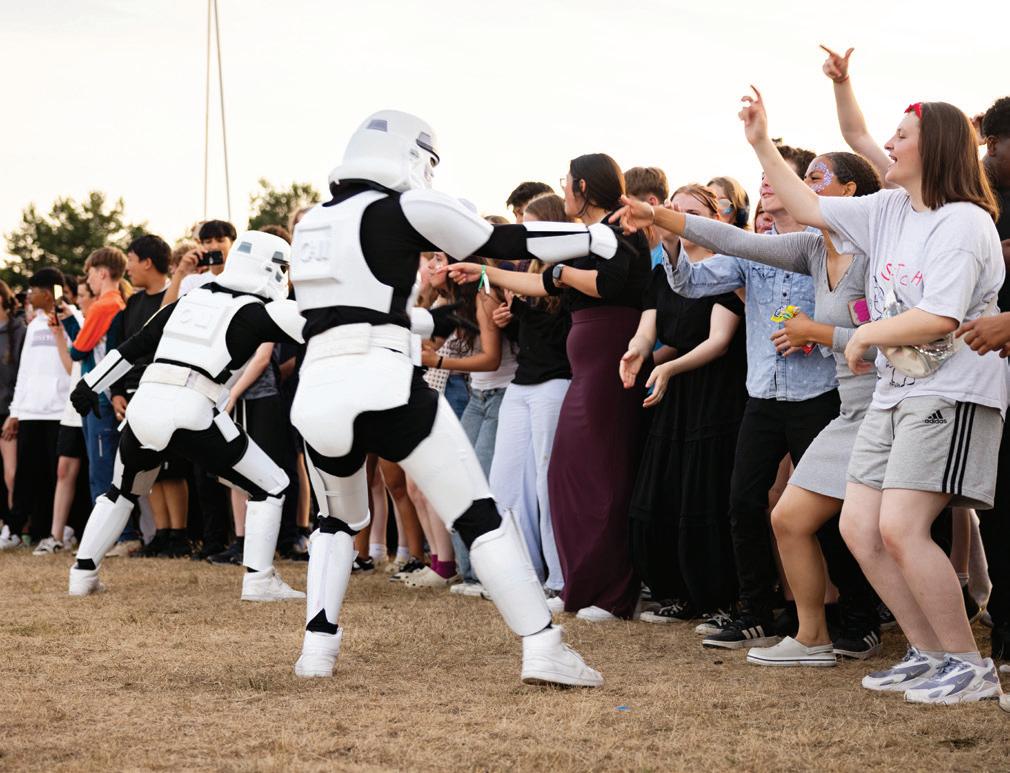
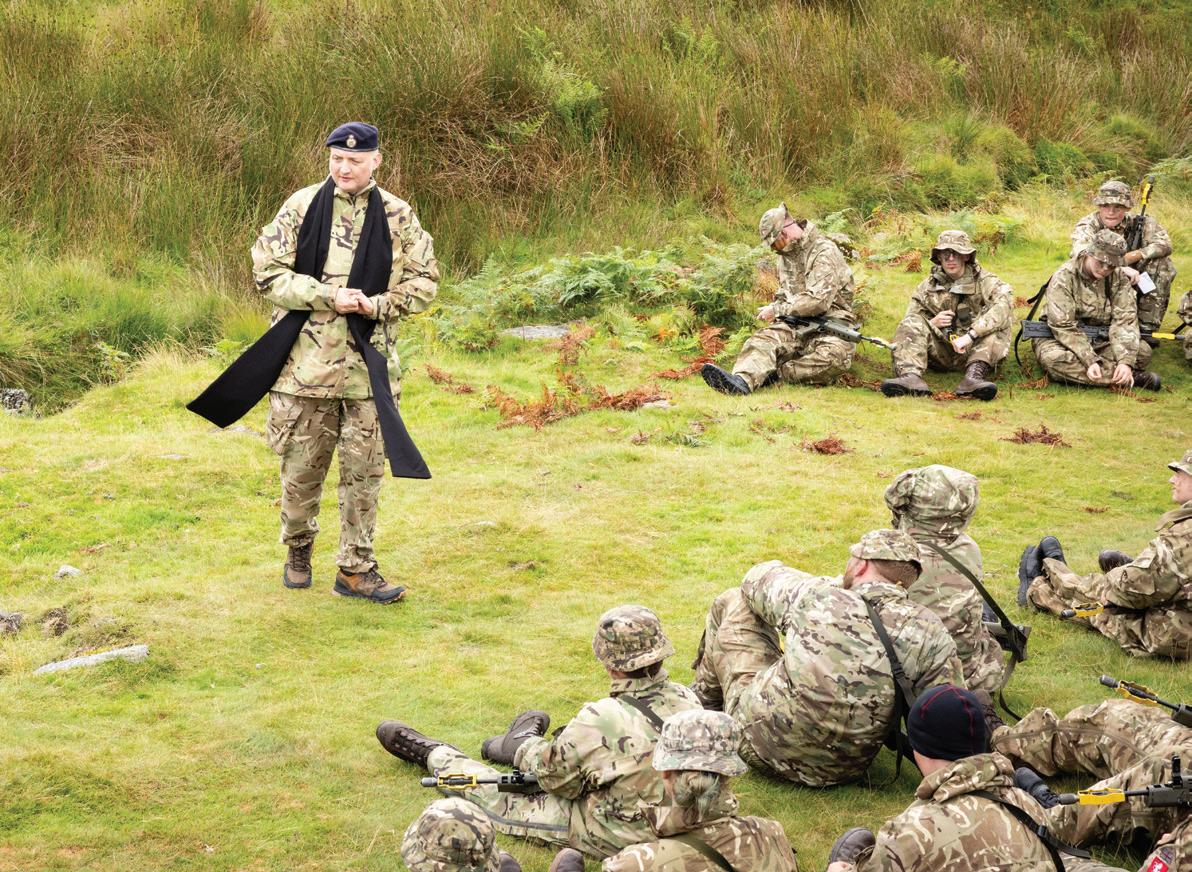
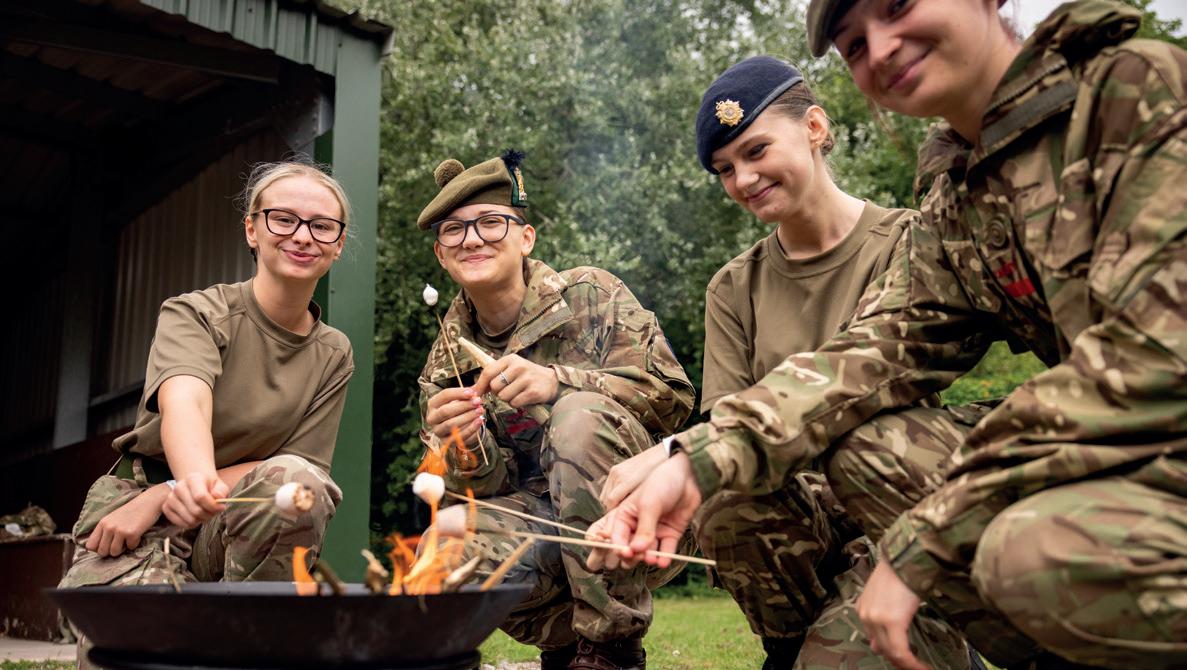
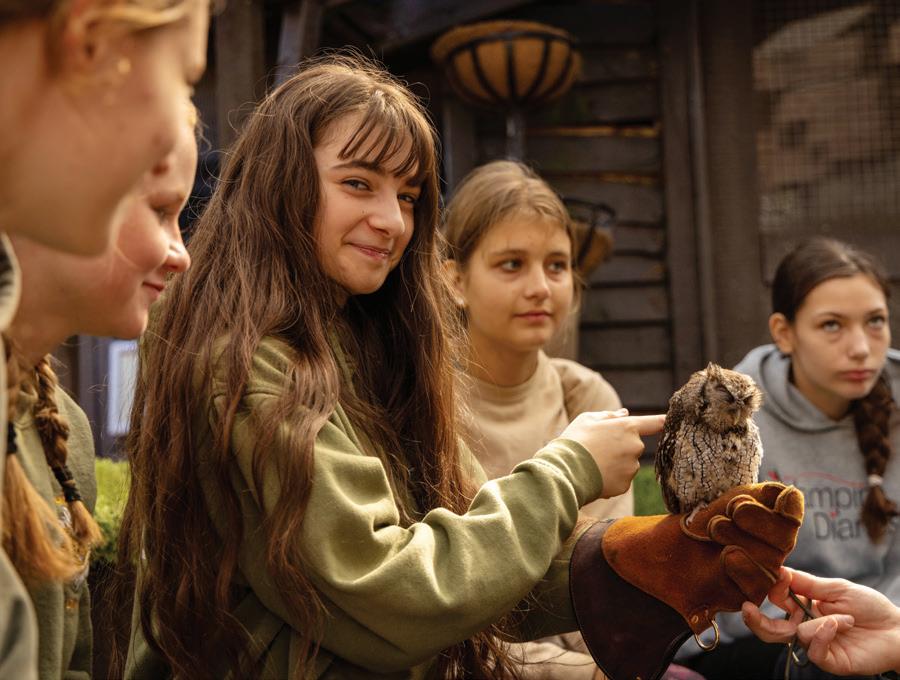
Climbing, sailing, paddleboarding, coasteering, horse riding and kayaking are just a few of the adventurous activities cadets took part in this summer.
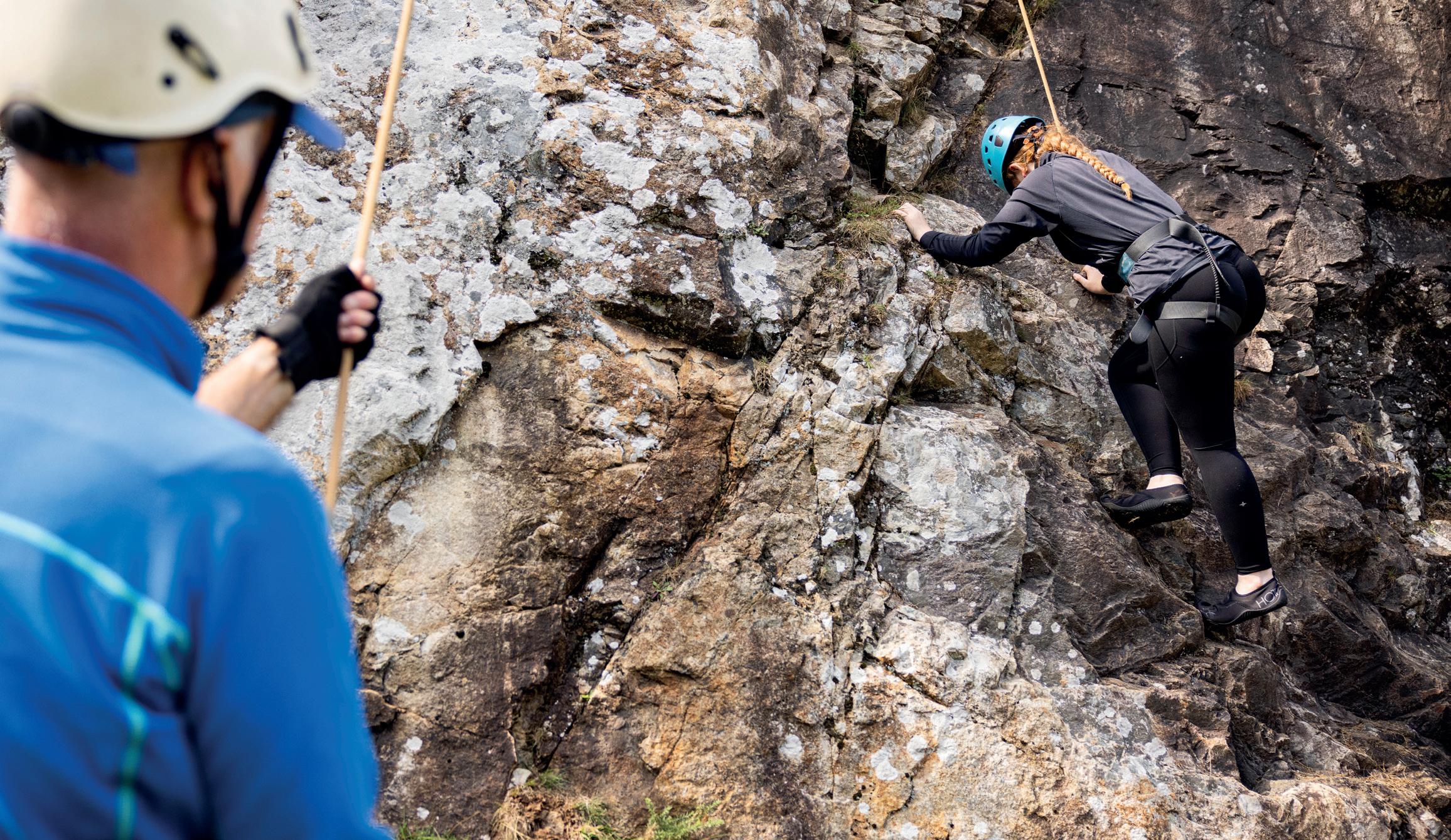
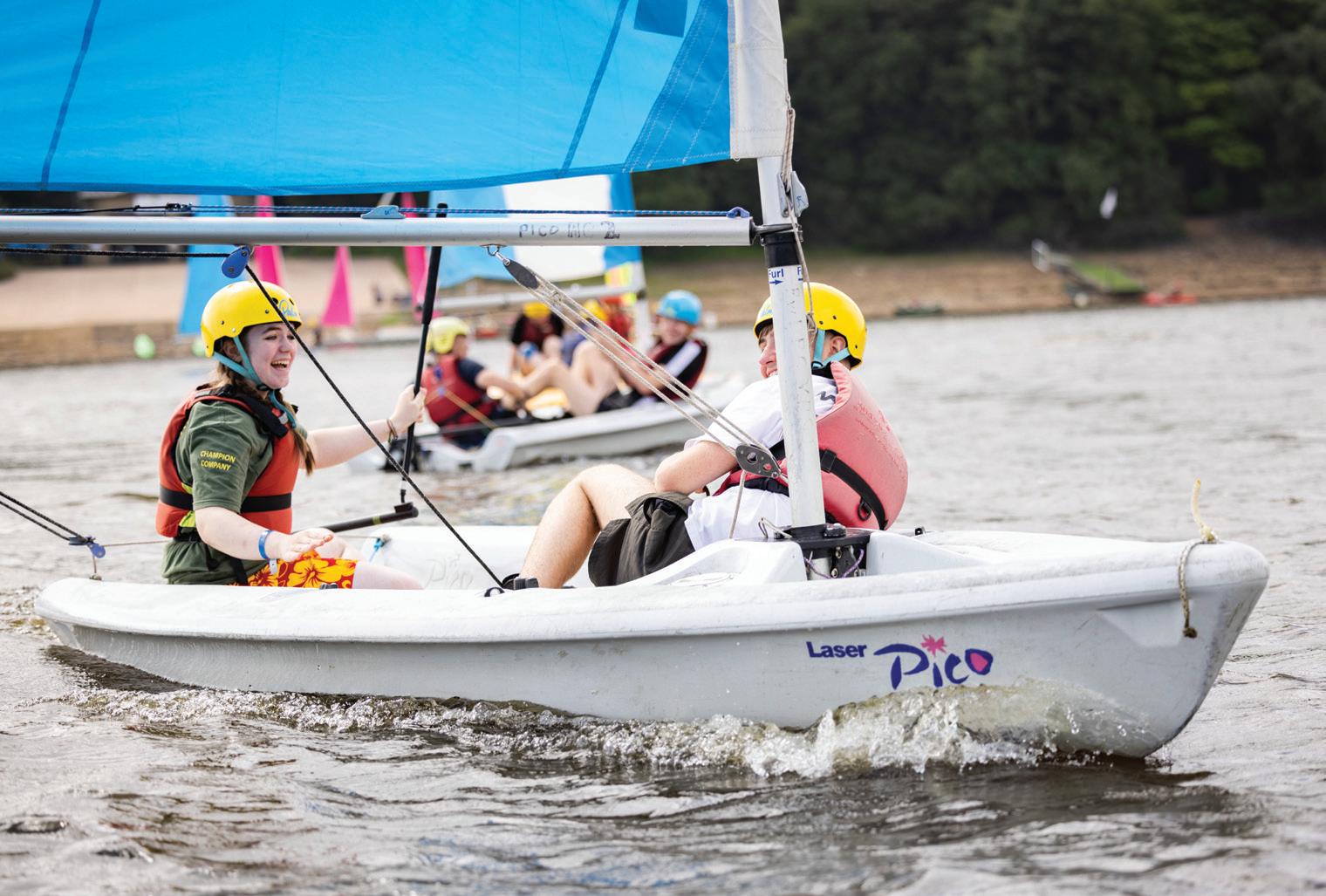
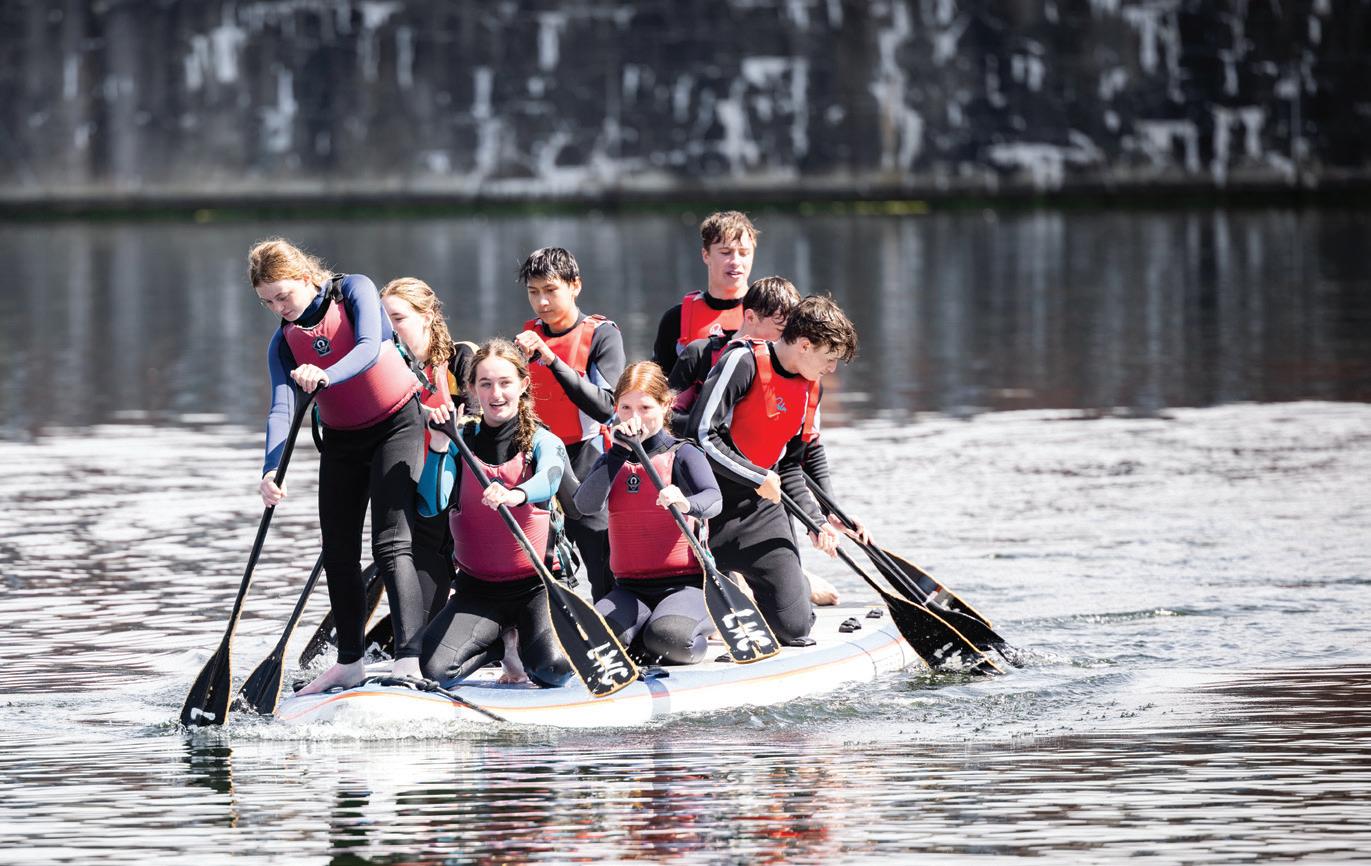
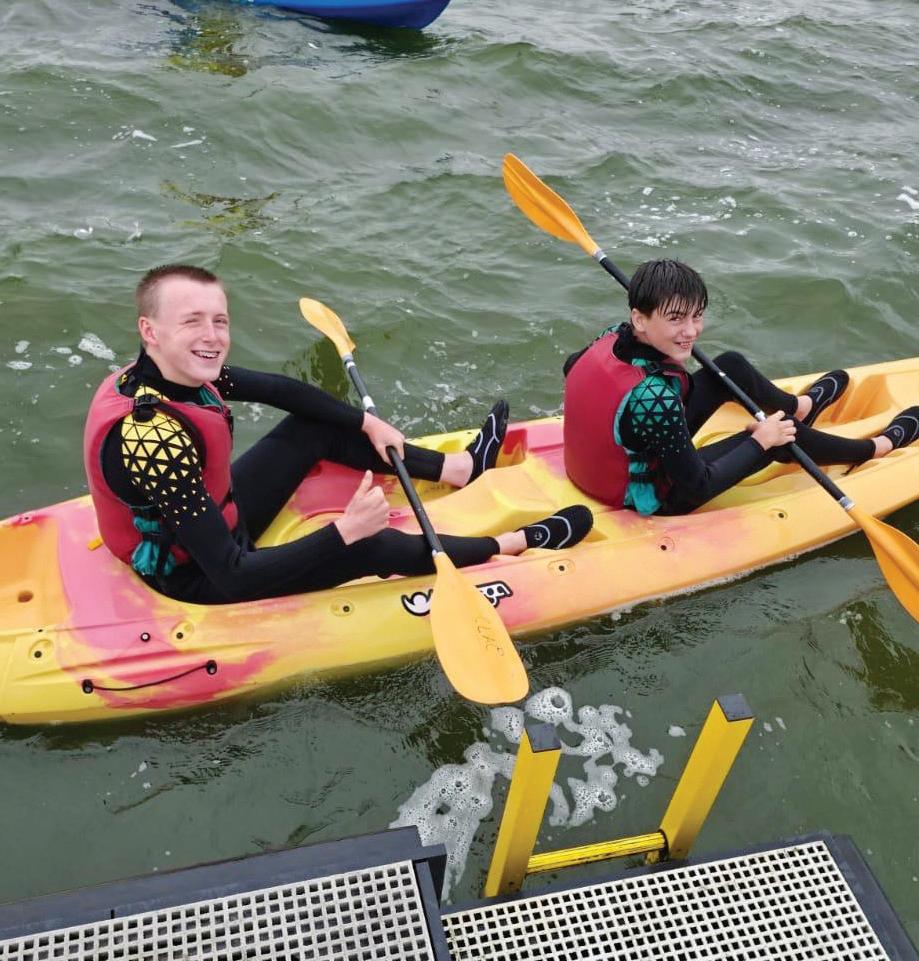
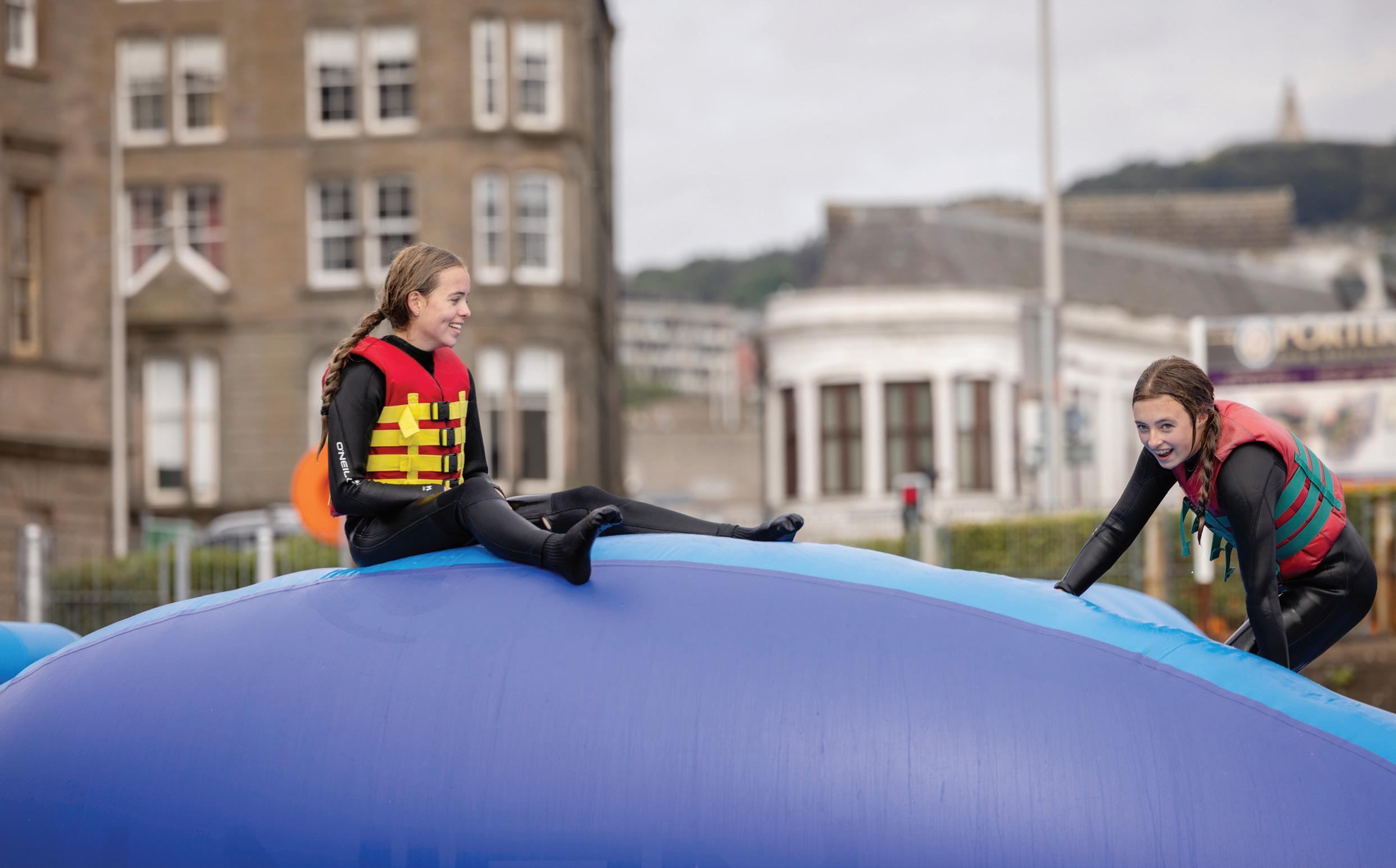
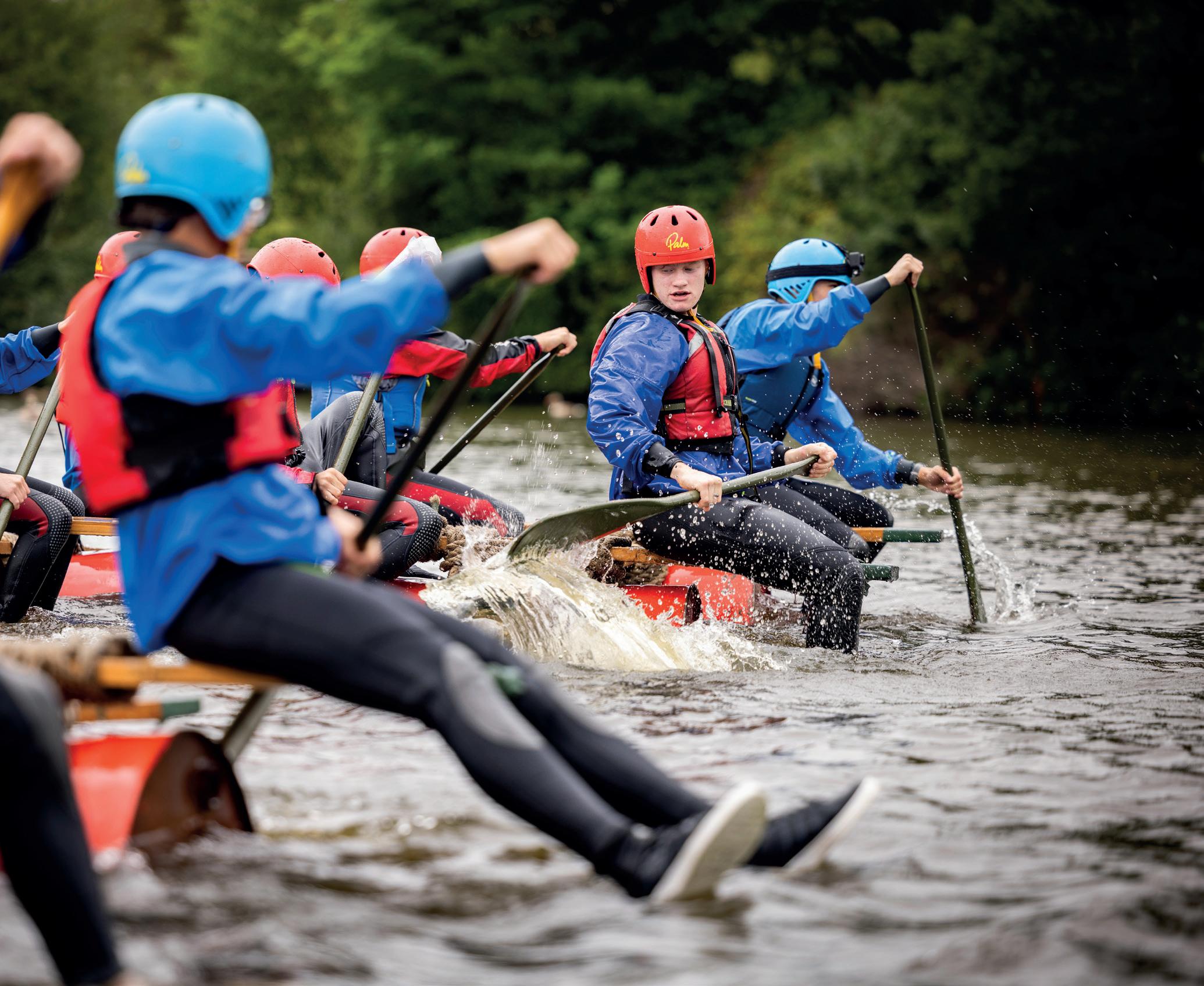

Cadets were put through their paces and polished their drill skills at camps across the UK.
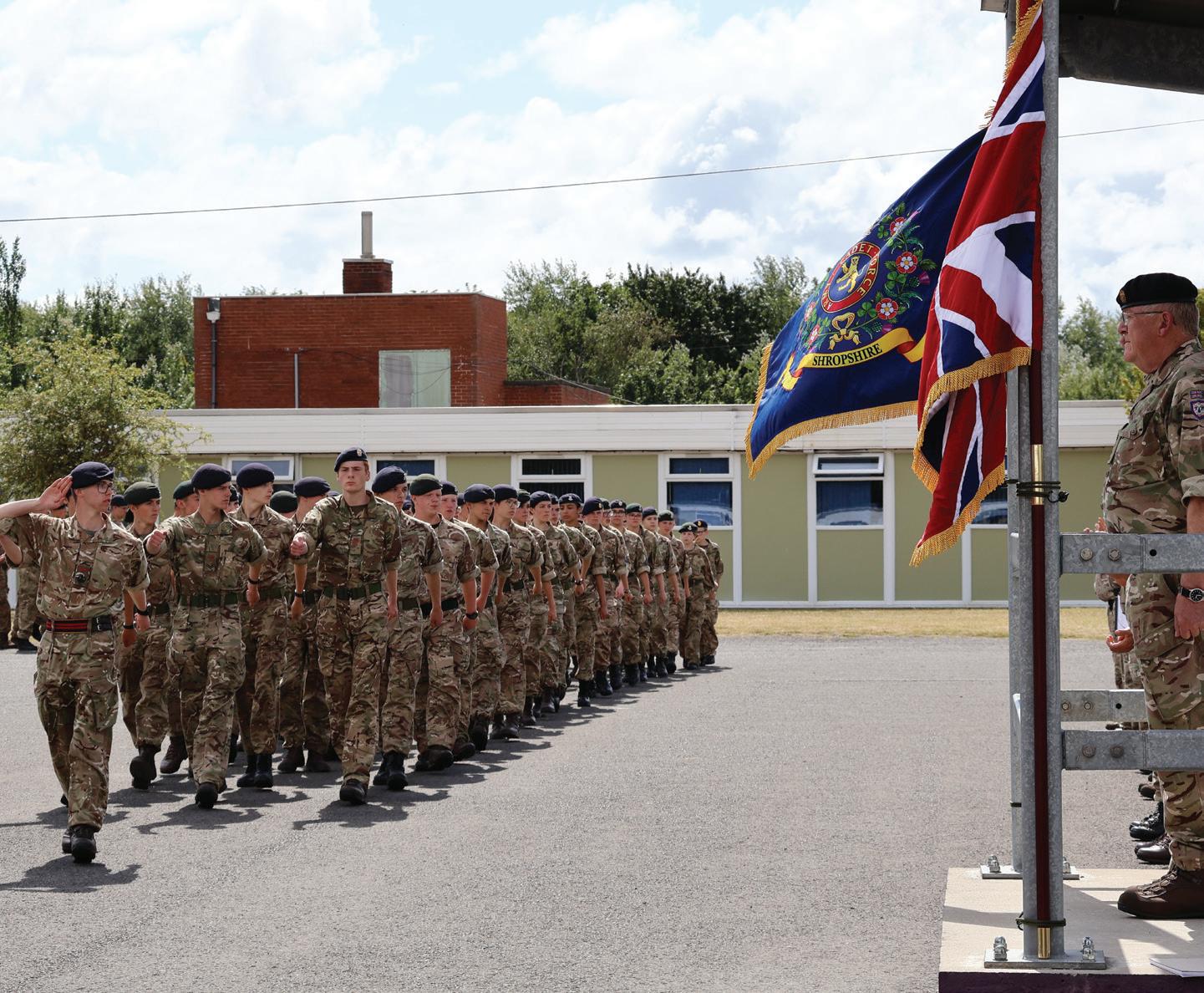
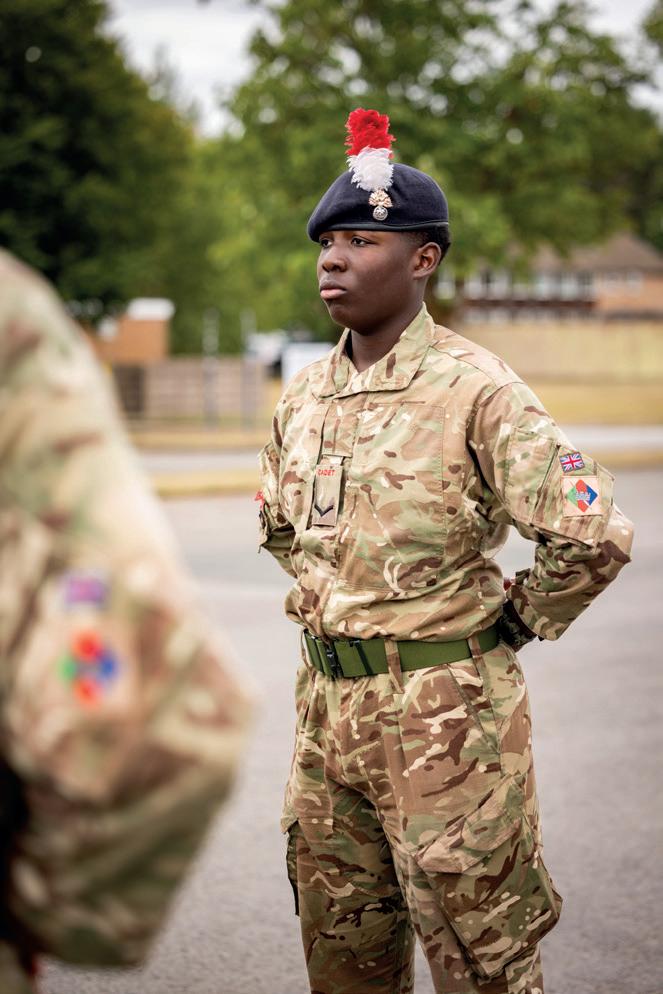
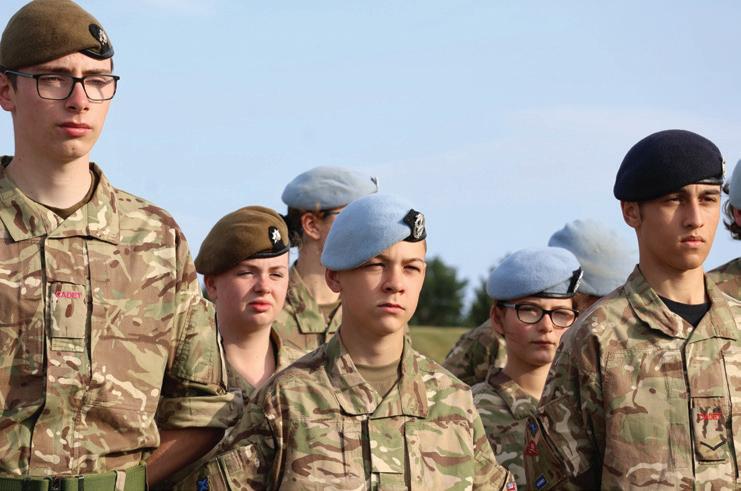
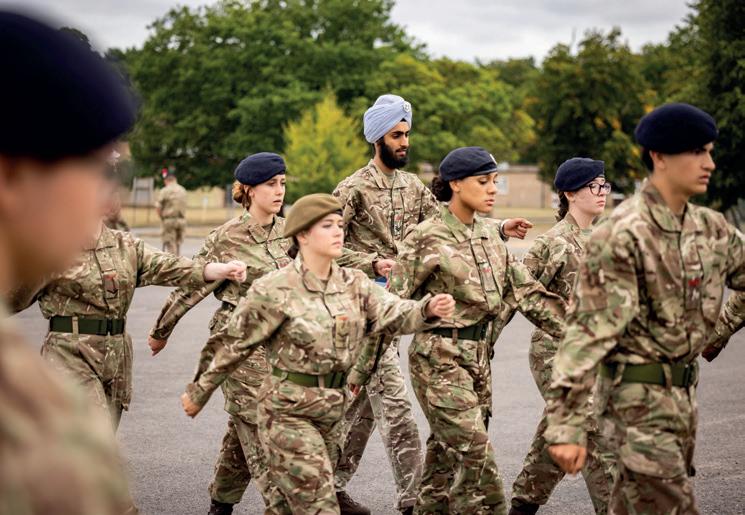
Shooting is one of the highlights of summer camp, and cadets developed their skills with the help of qualified instructors.
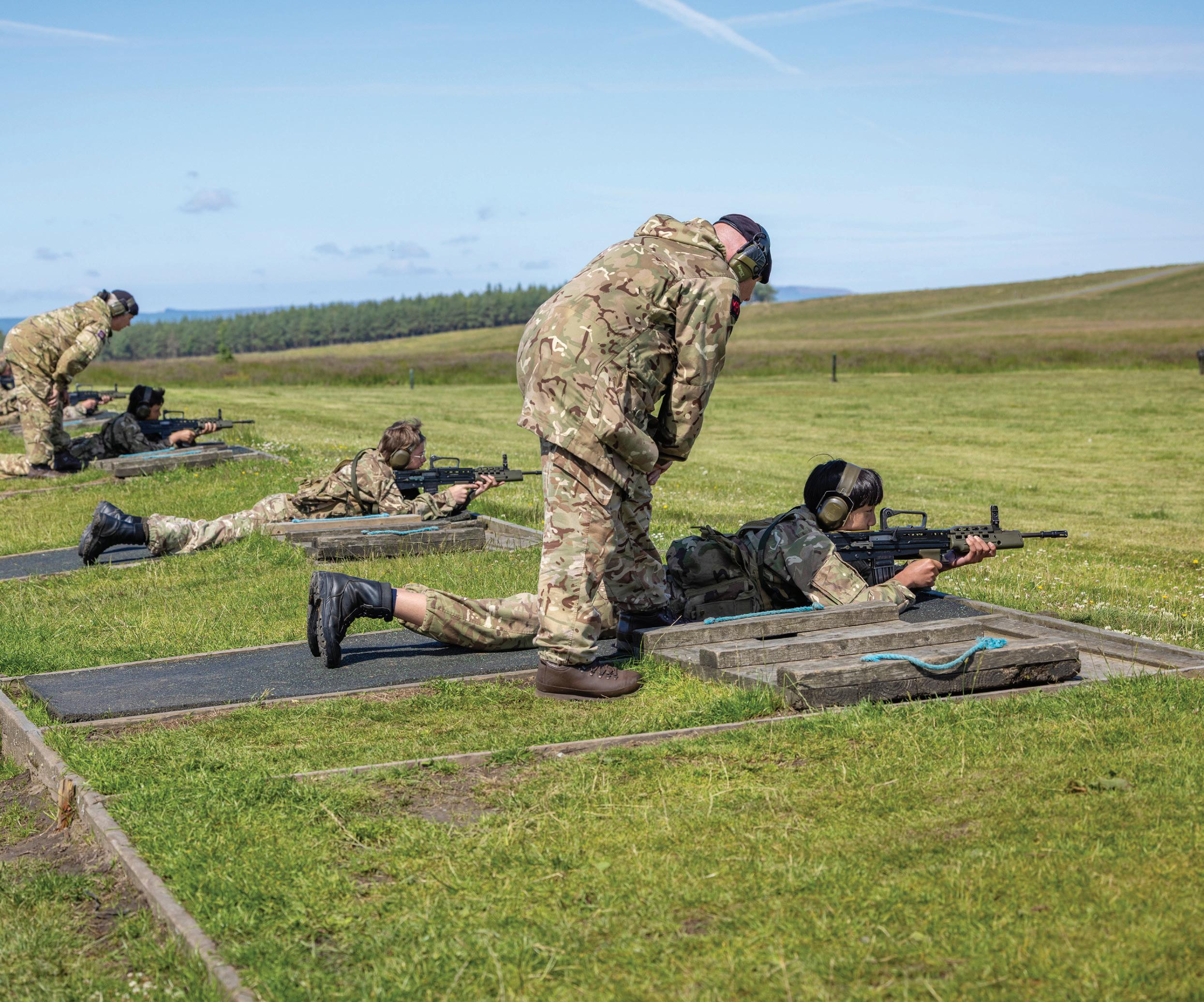
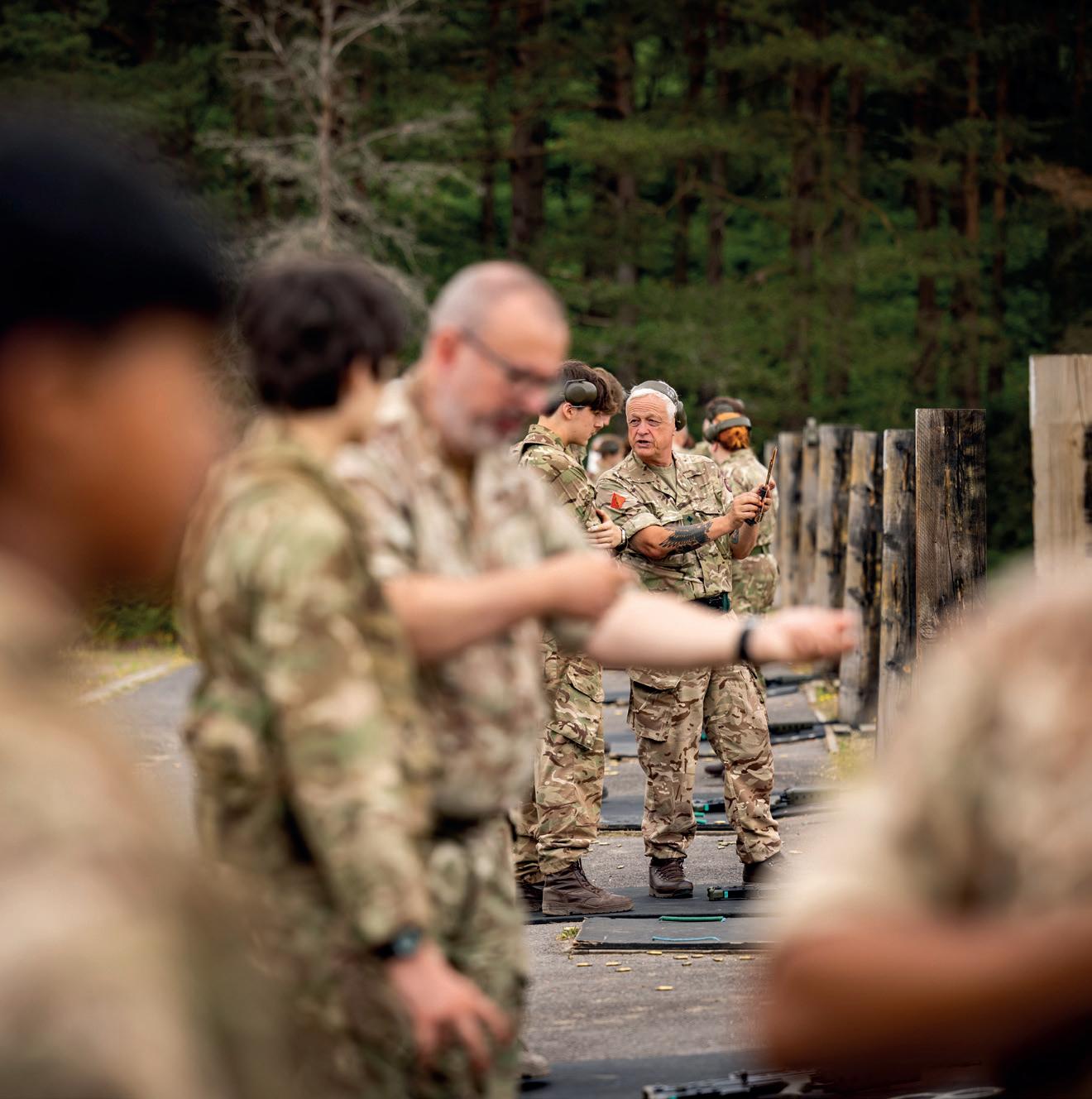
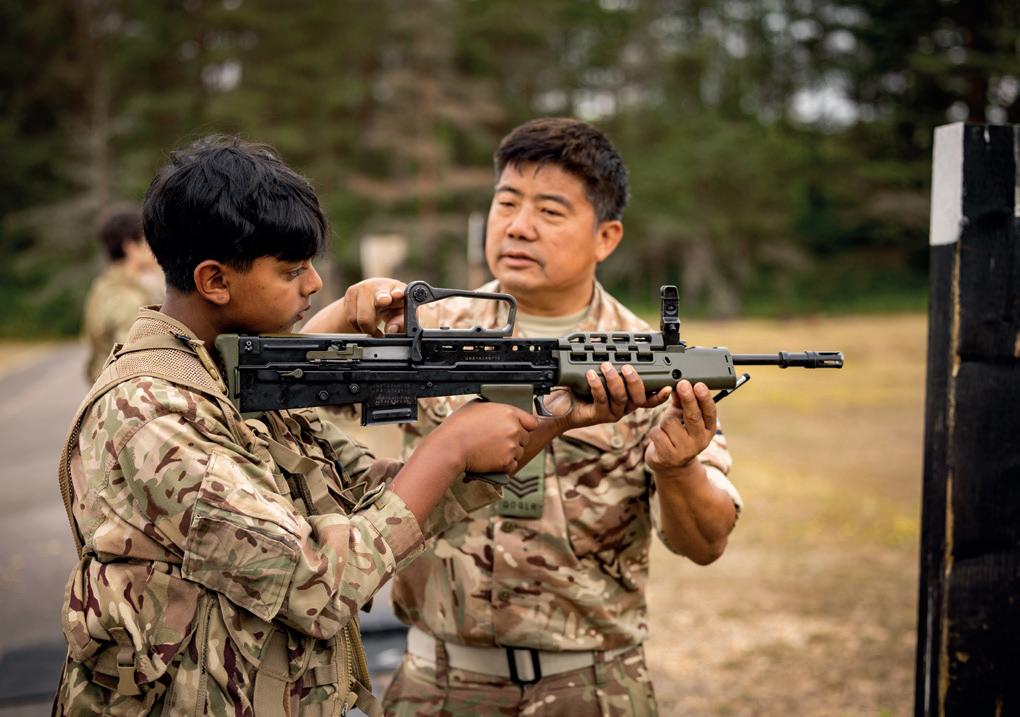
Summer camp is a great place to develop command skills by taking part in activities as diverse as TIBUA, obstacle courses, and communications and information systems training.
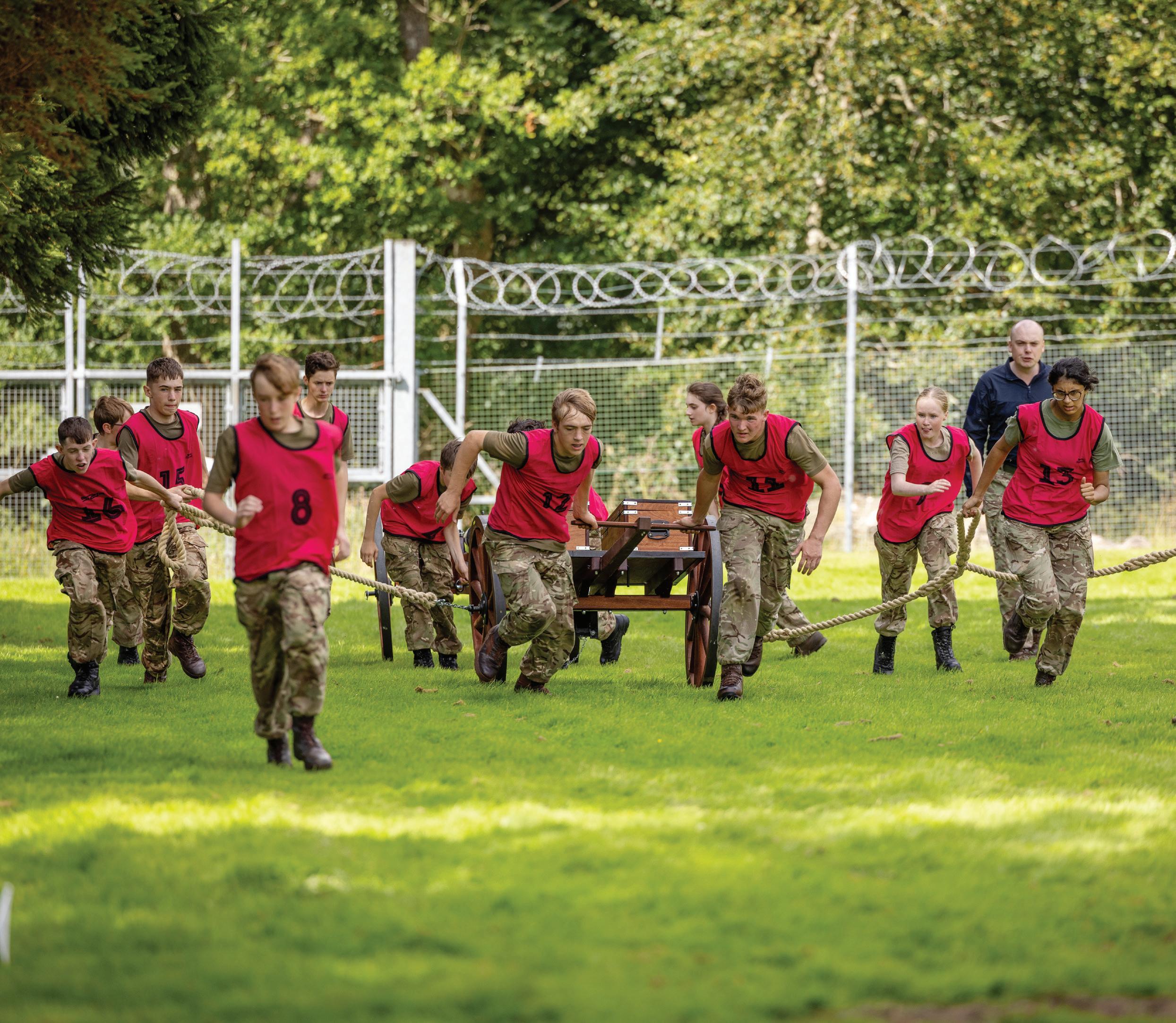
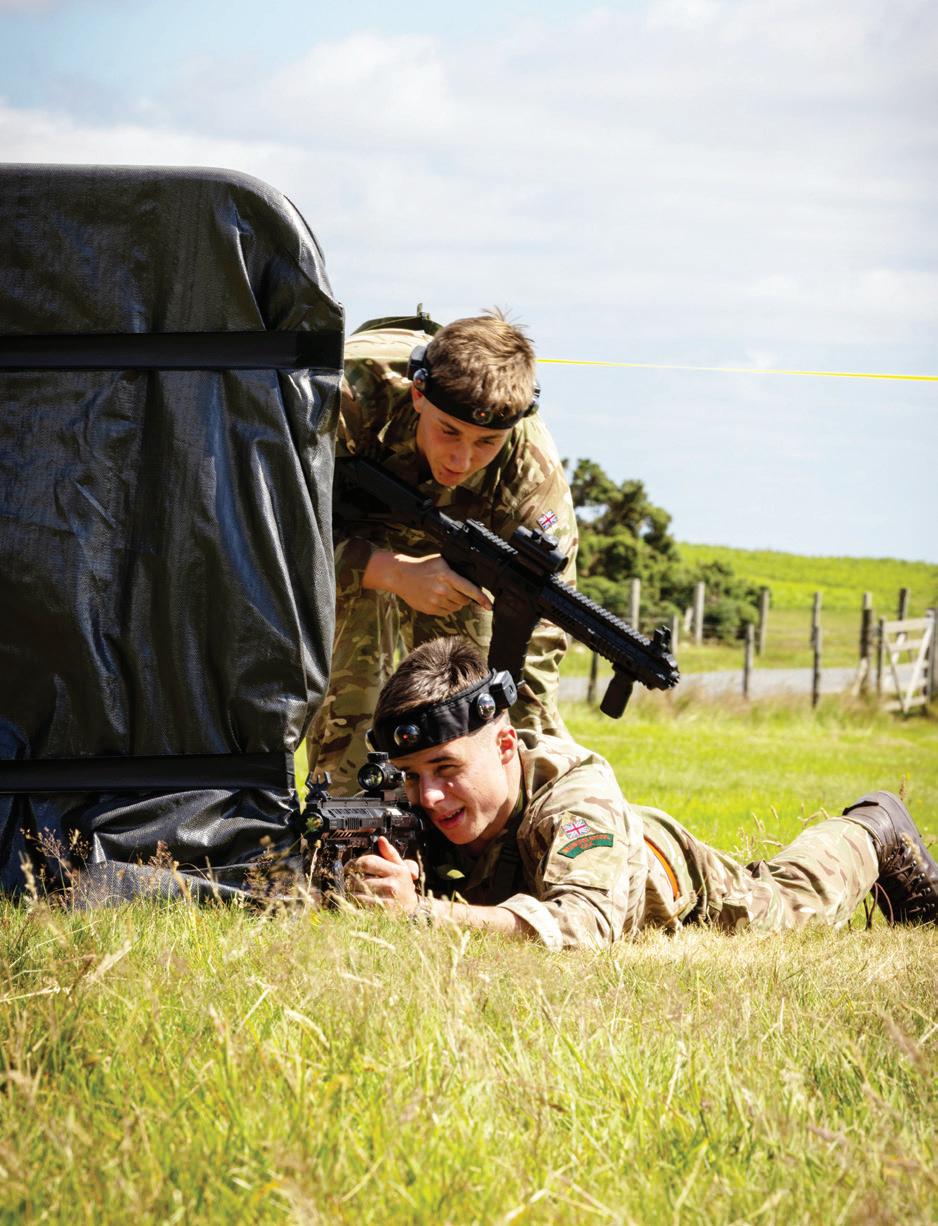
and
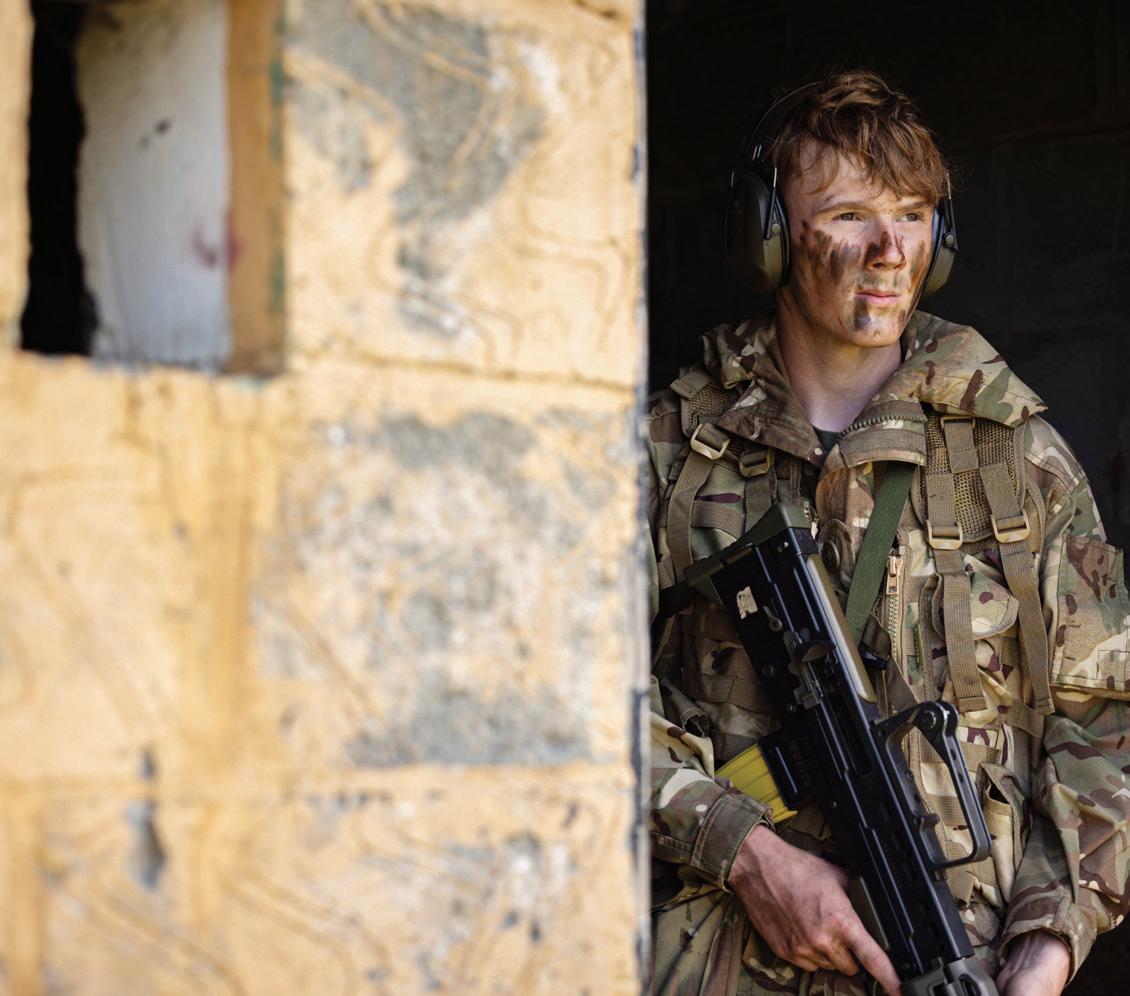
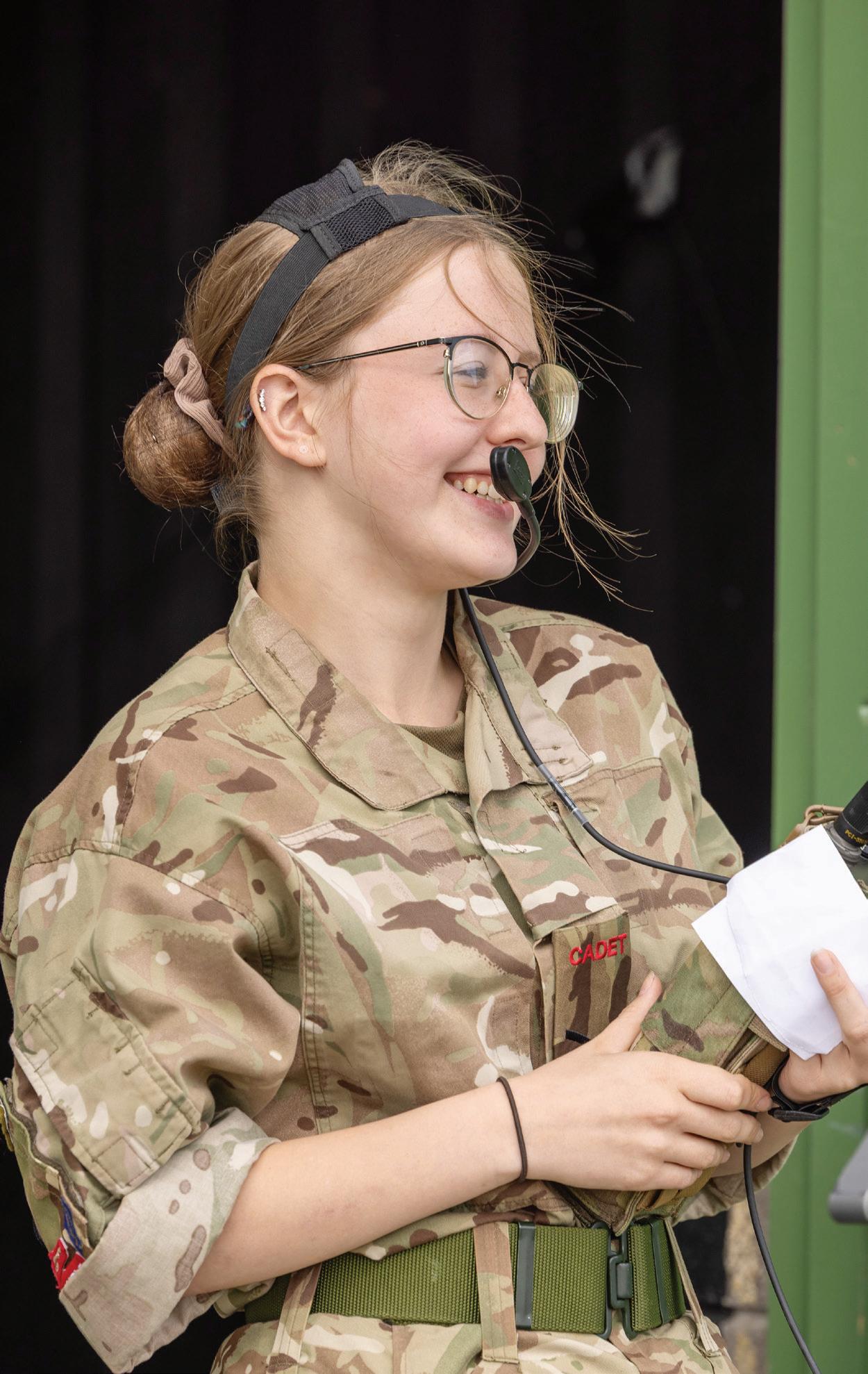
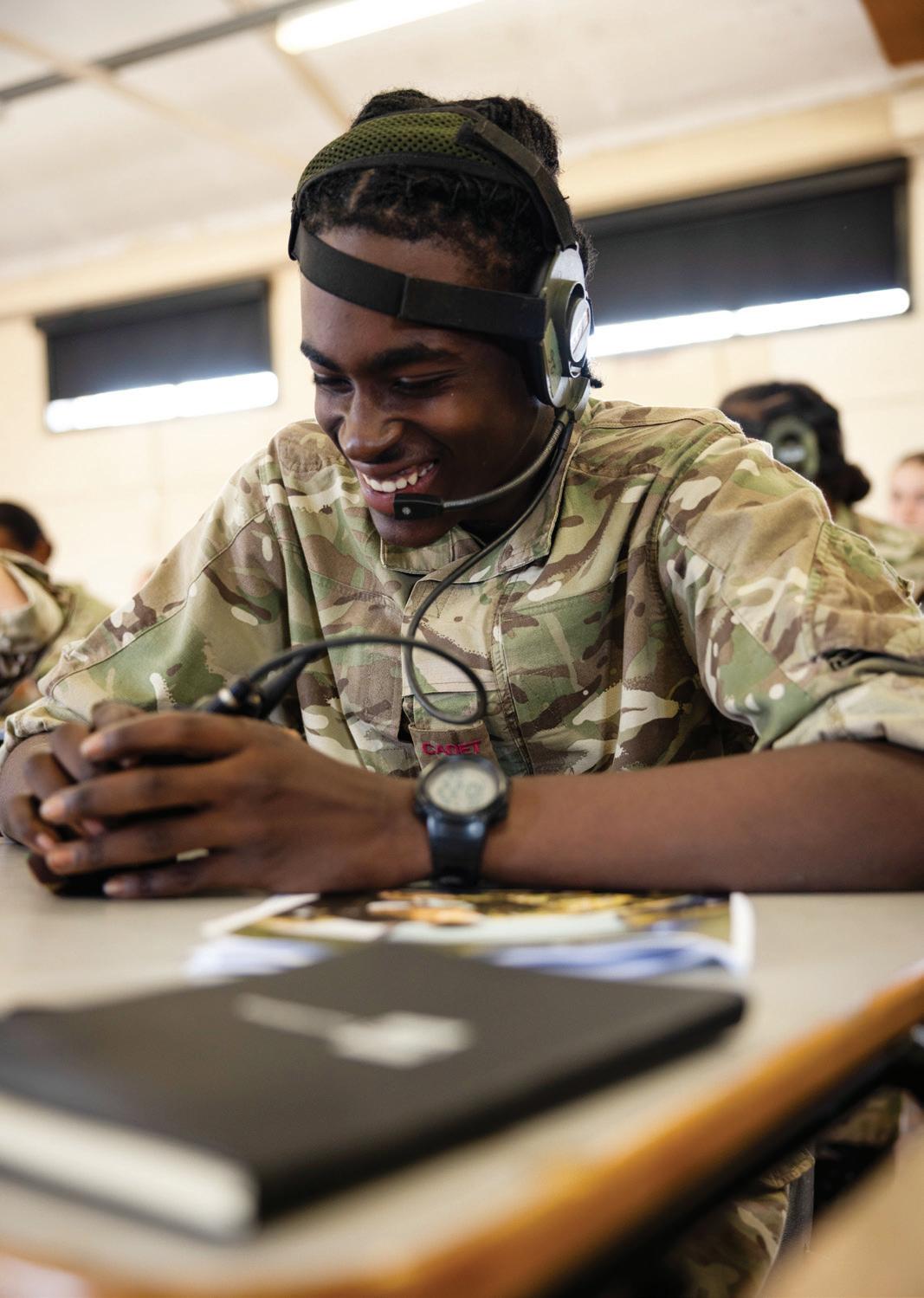
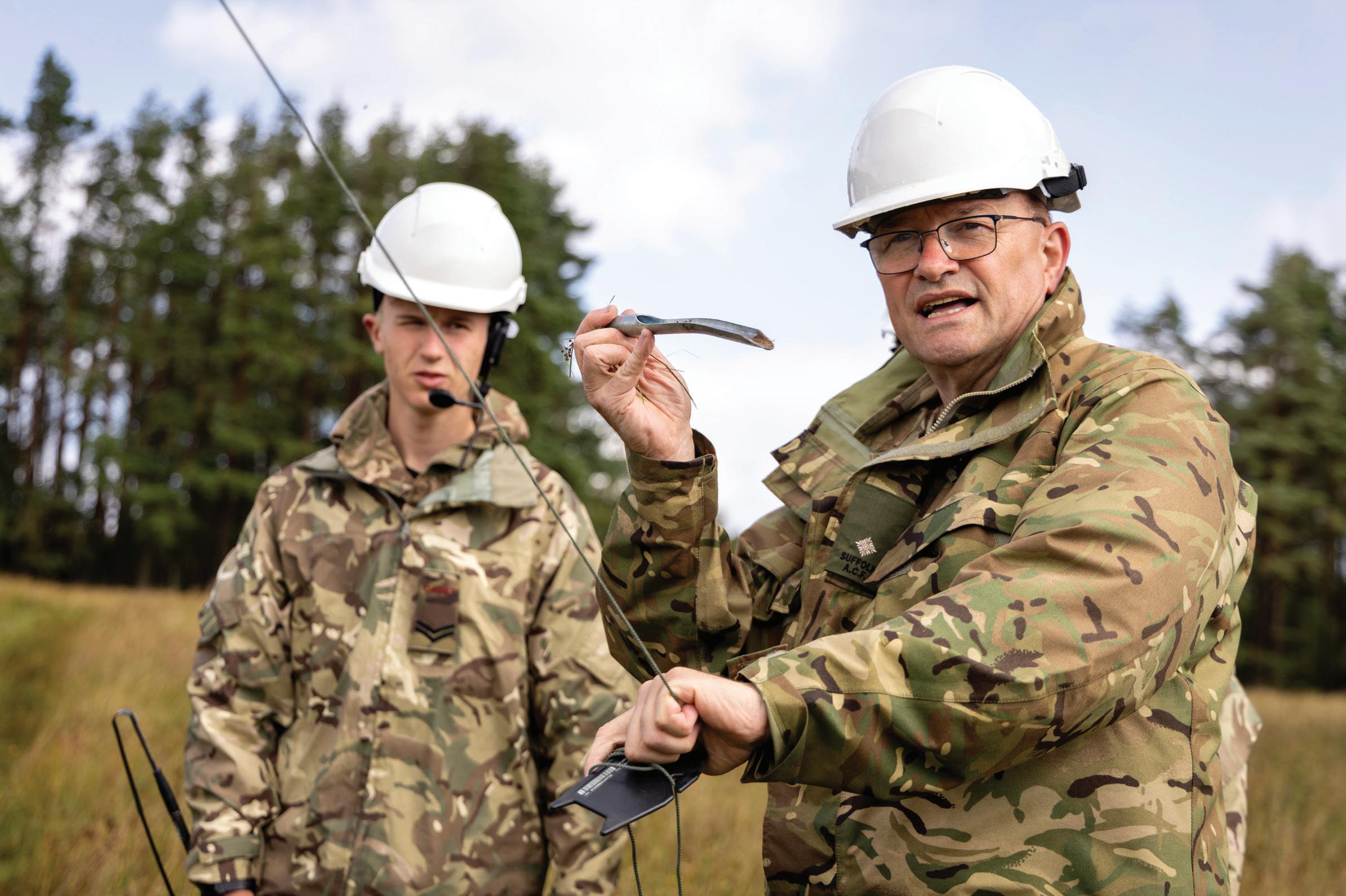
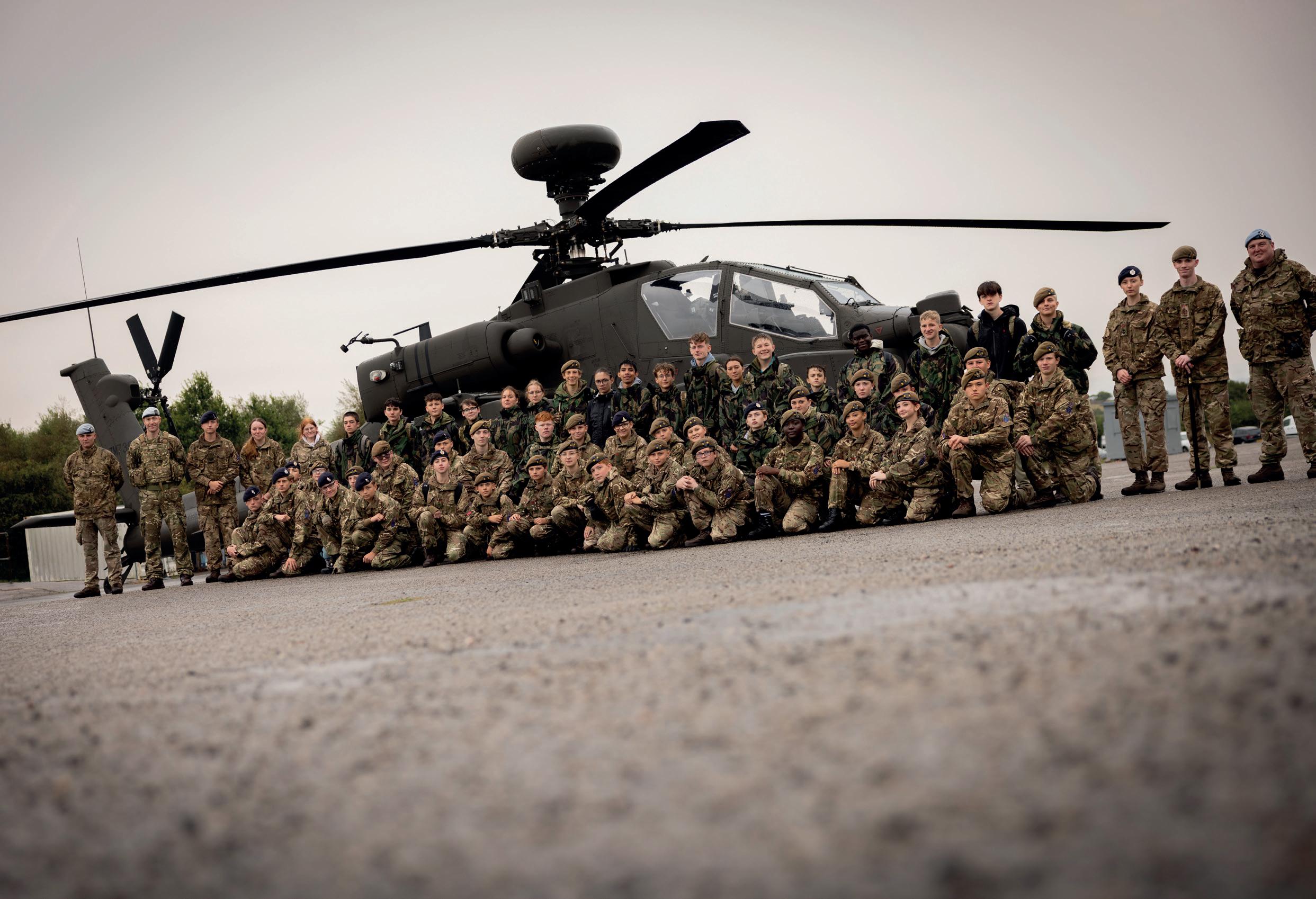
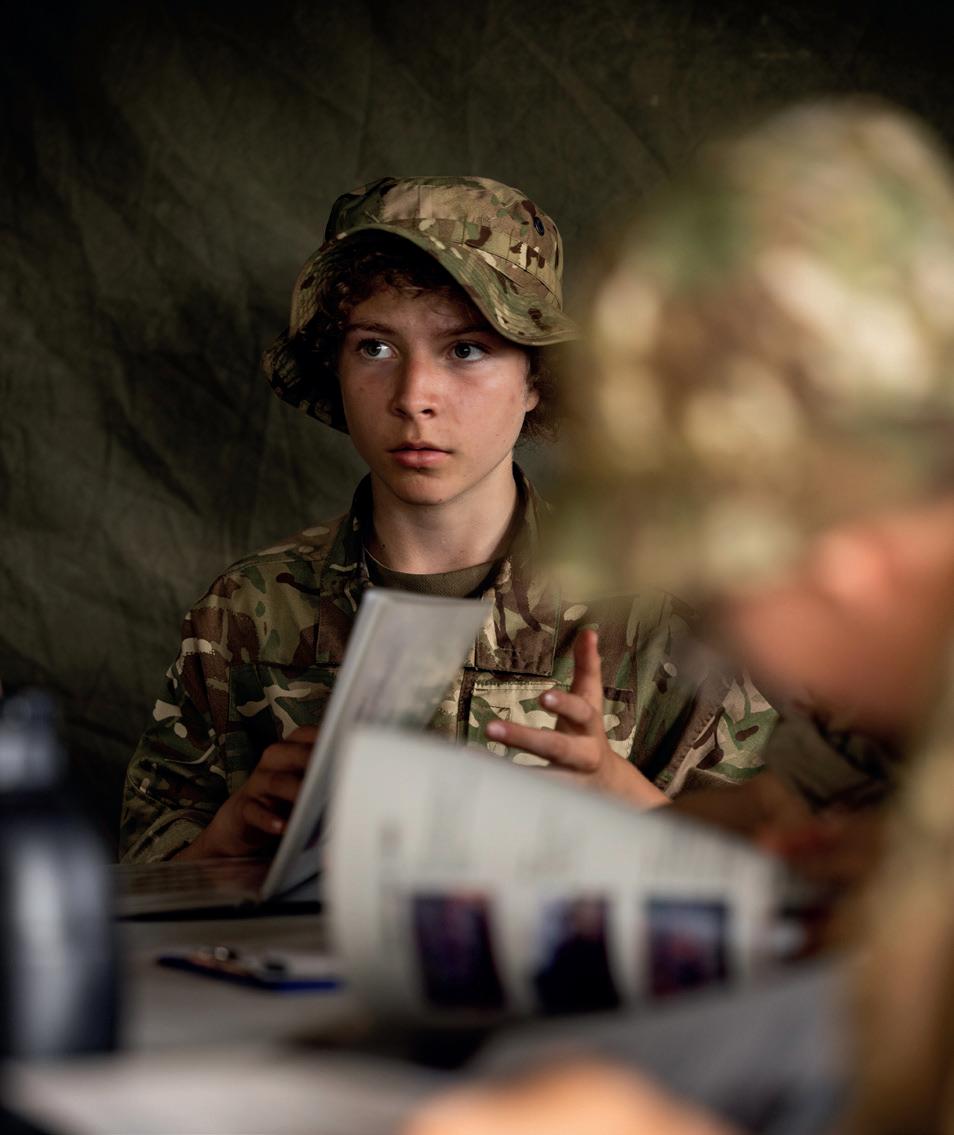
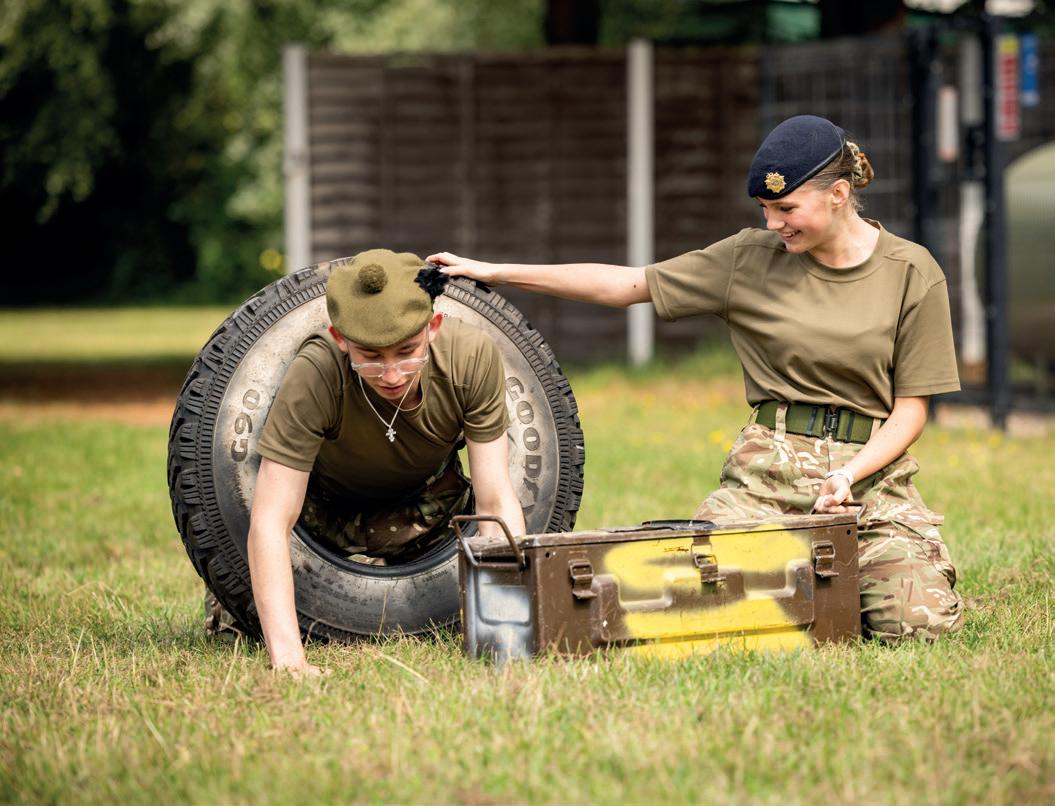
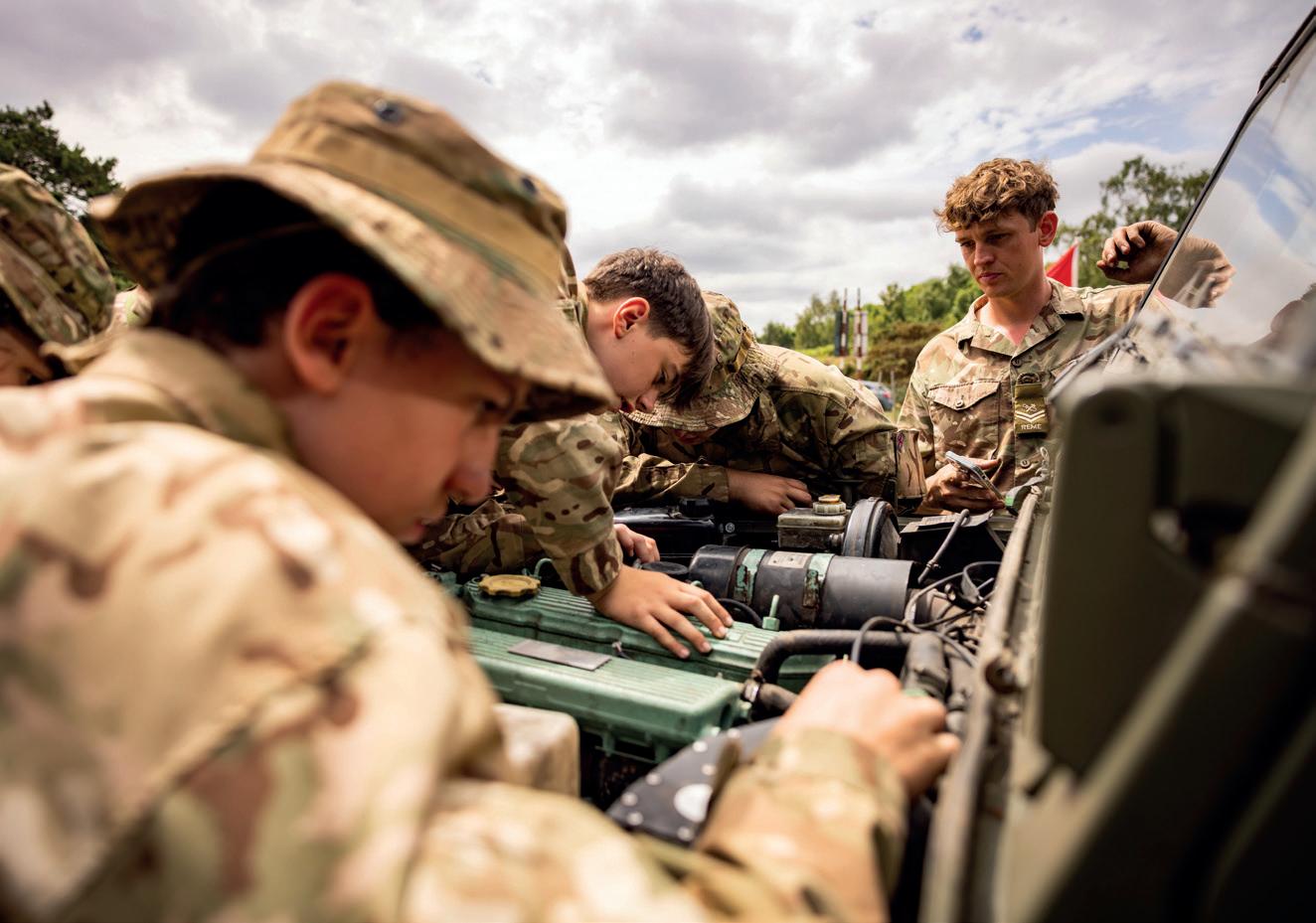
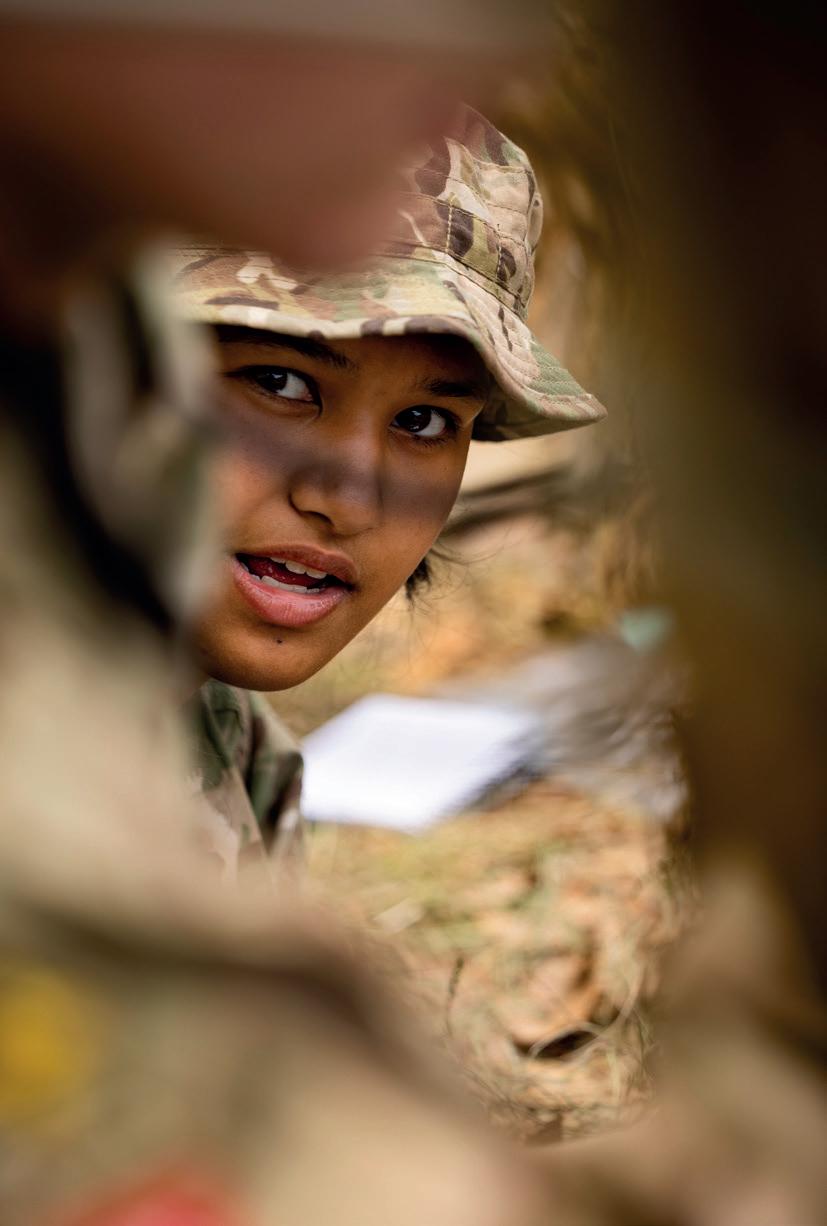
Ready, aim, release!


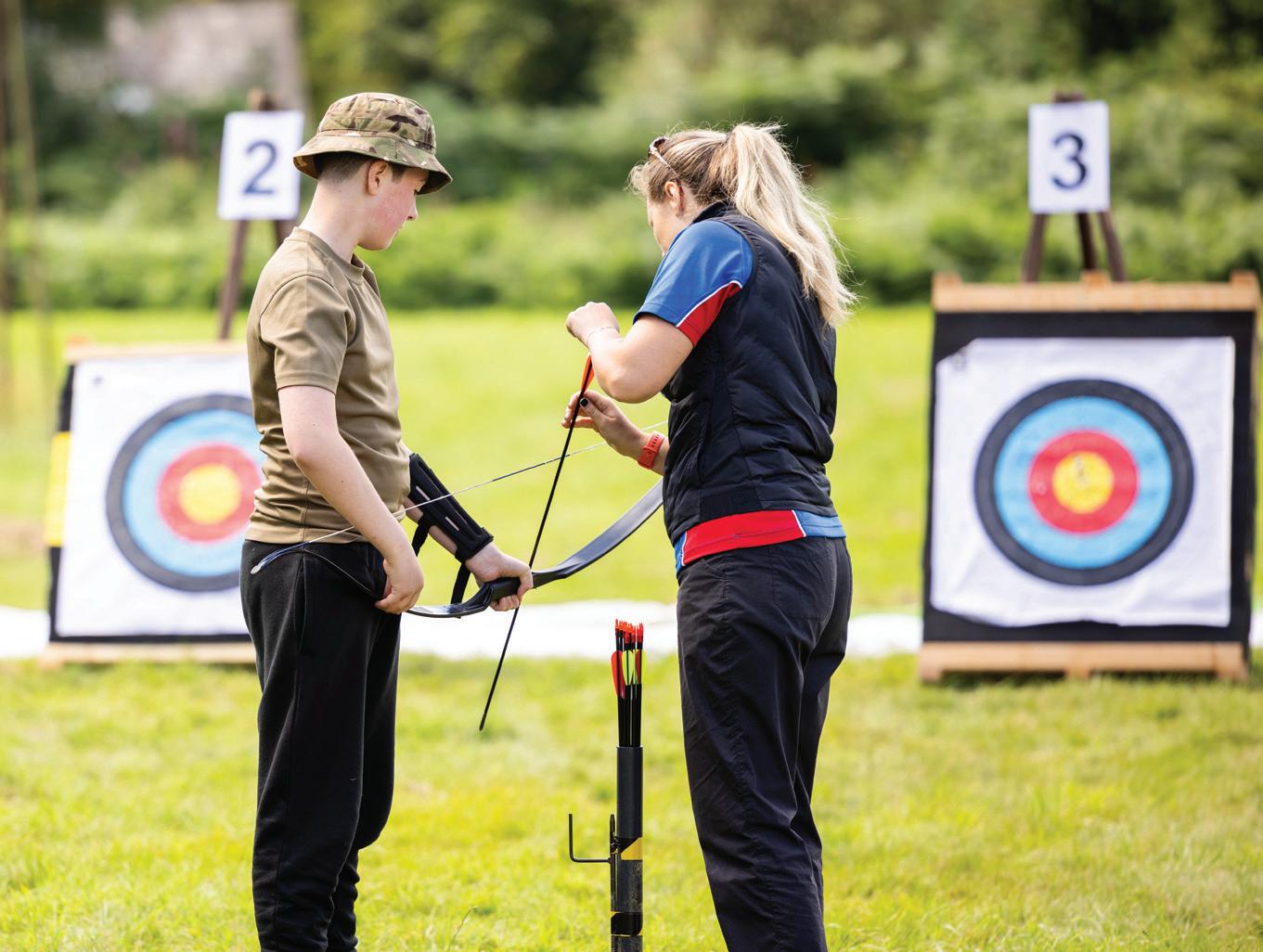
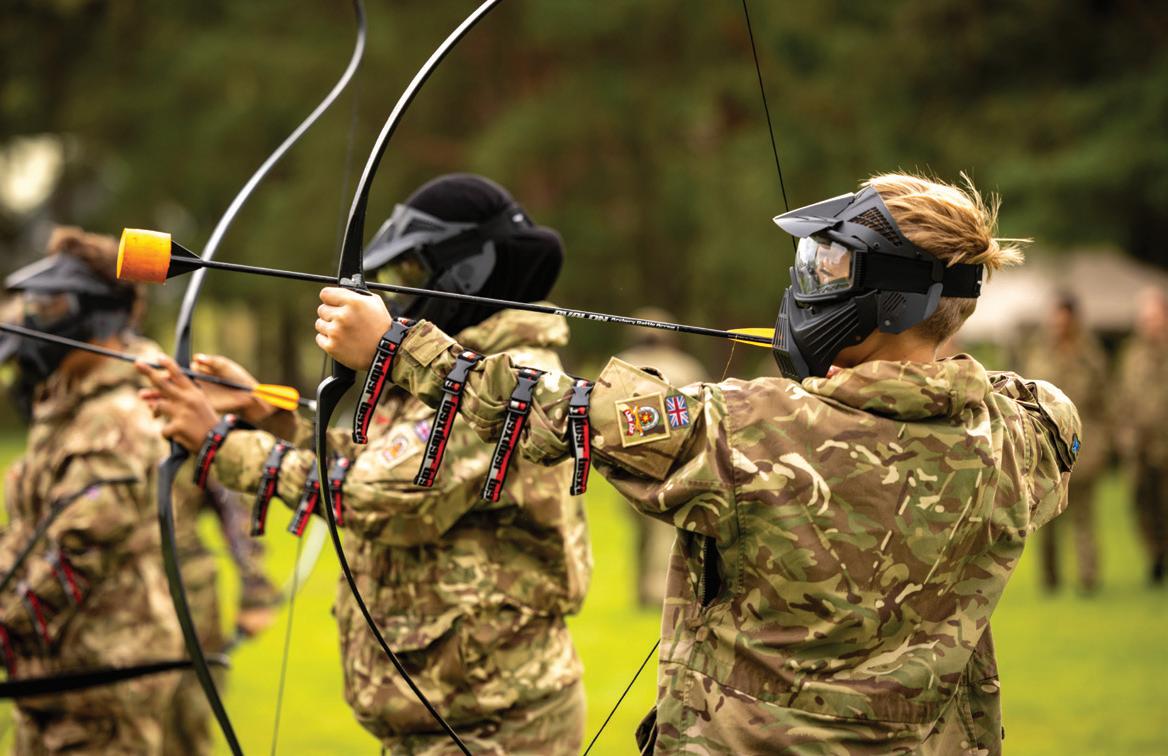
Cam-creamed and ready for action, cadets undertook a variety of exciting fieldcraft activities at camp.
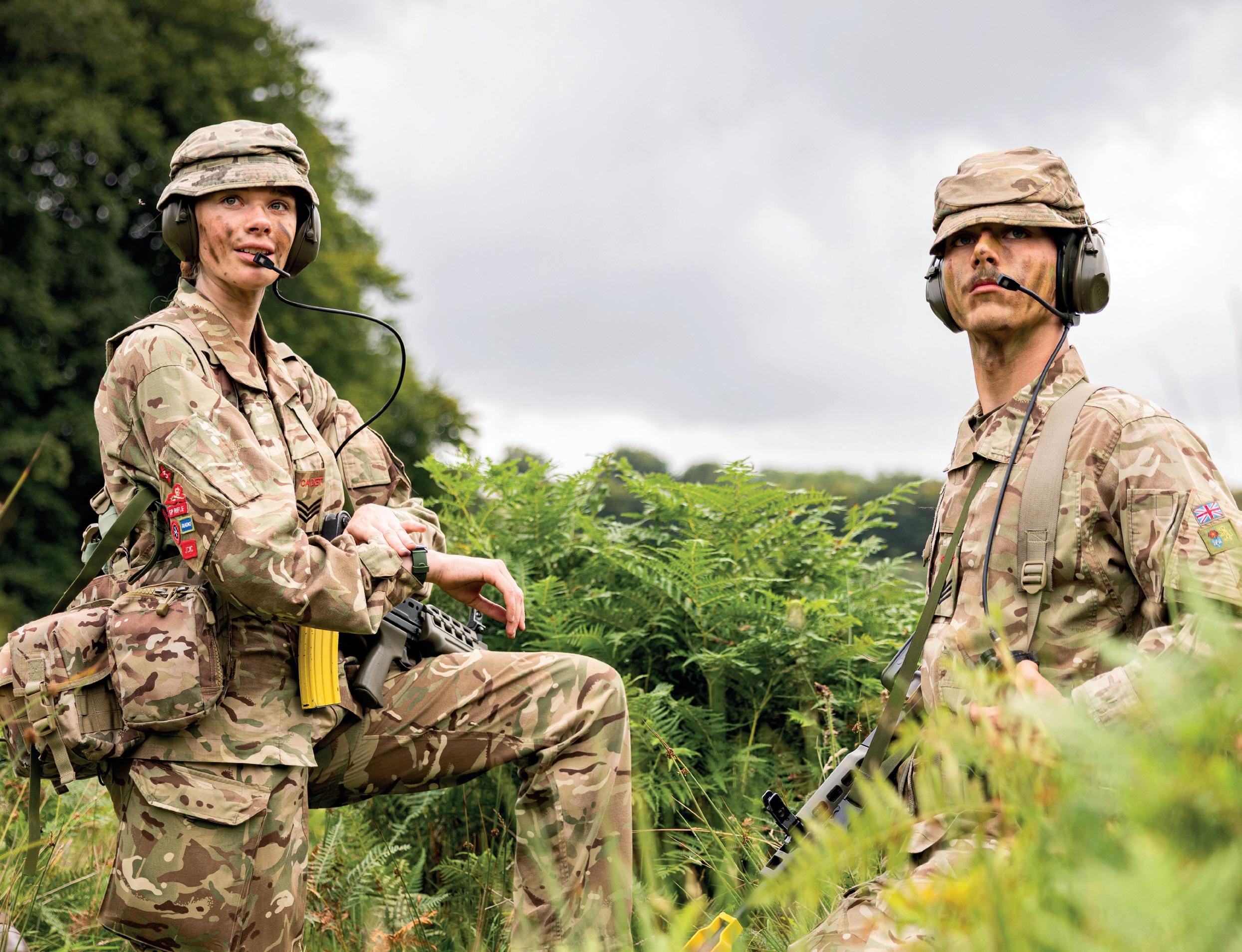
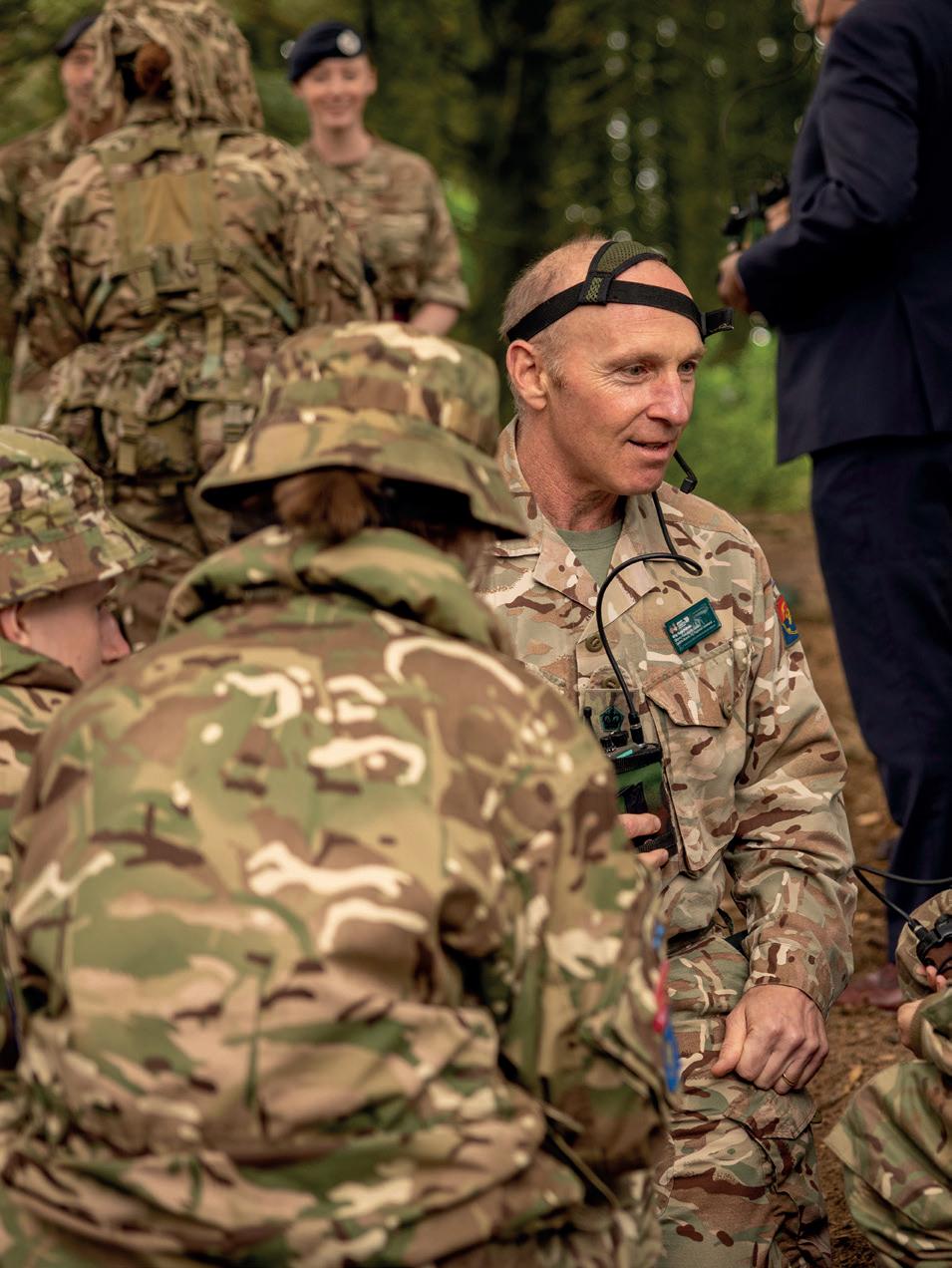
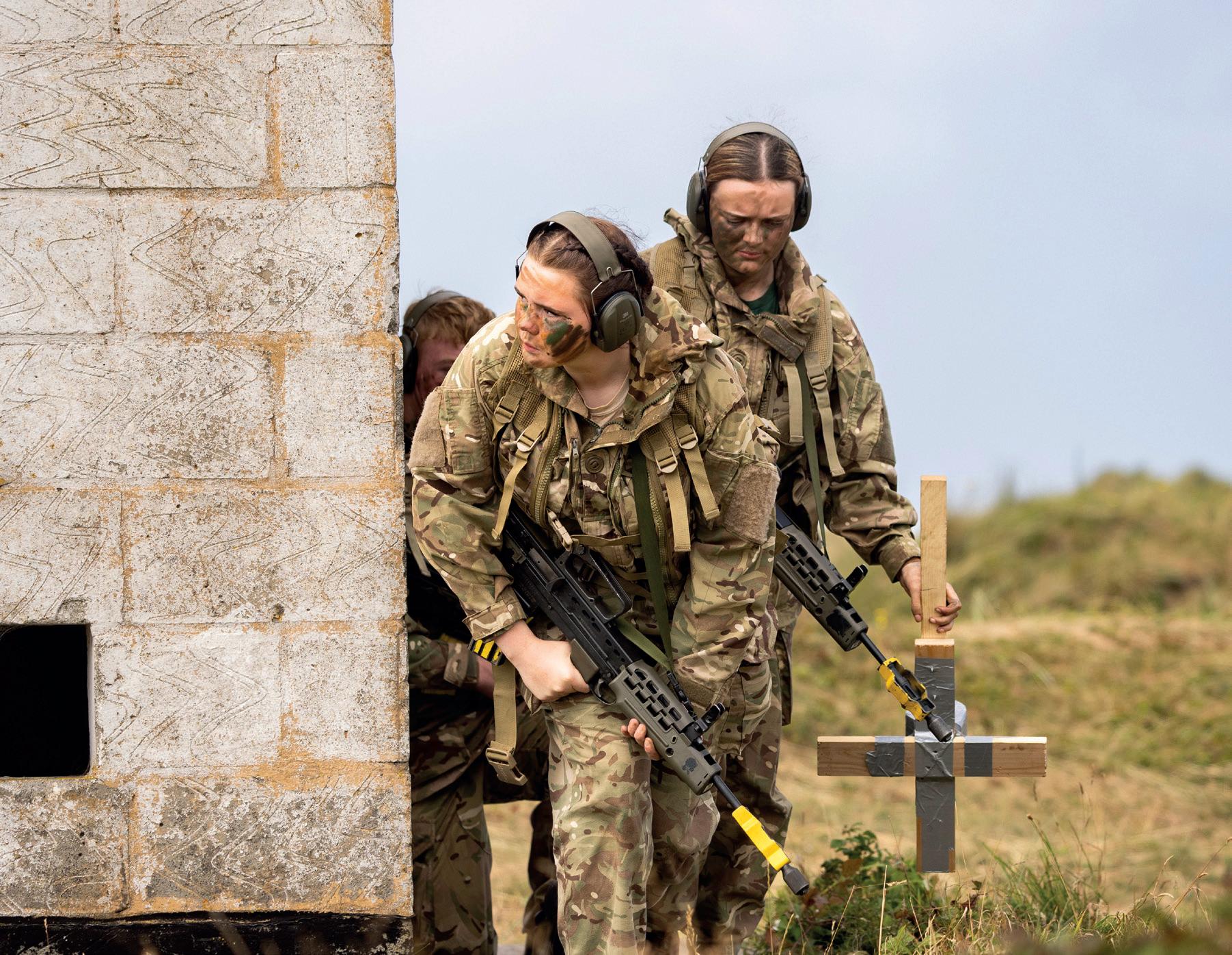
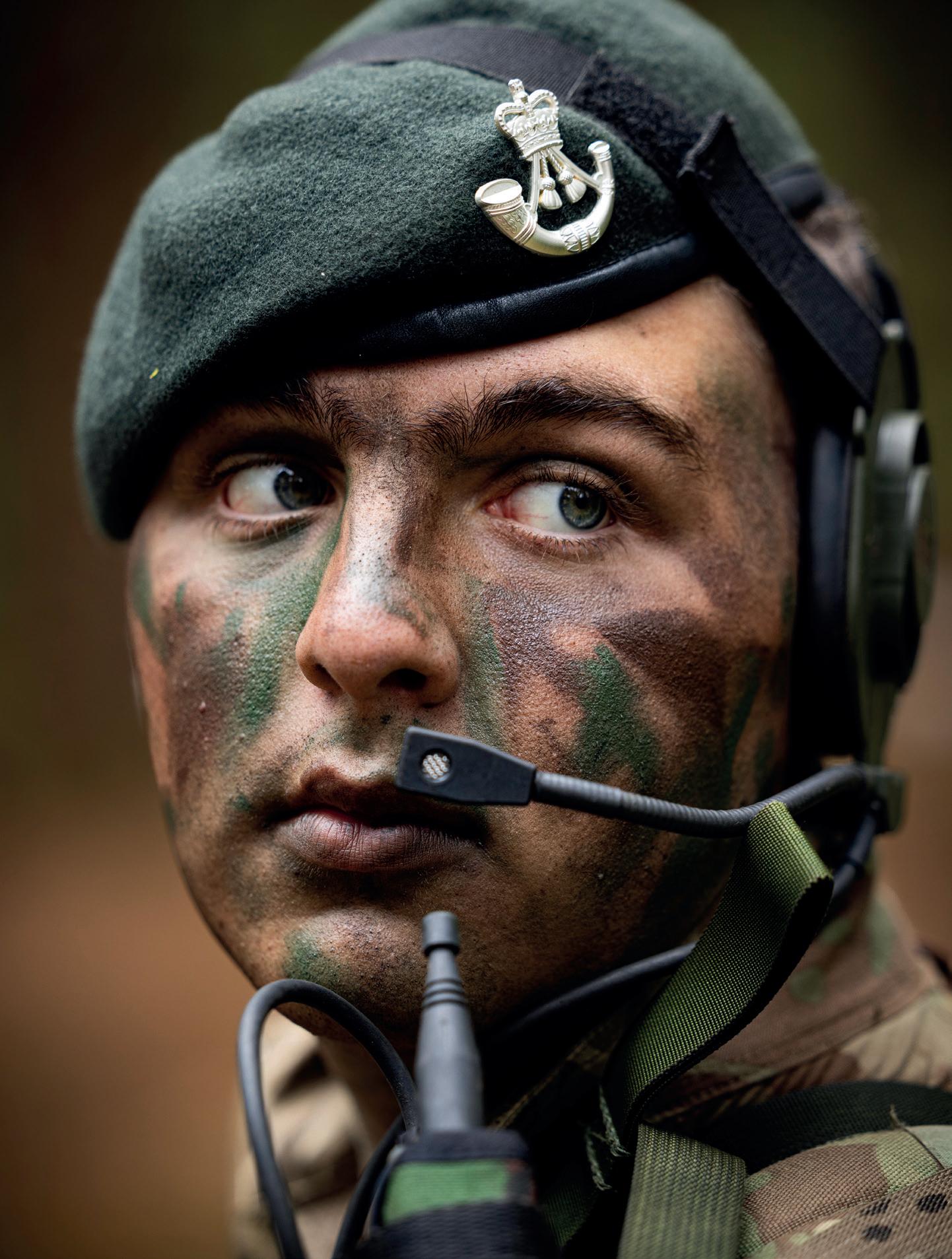
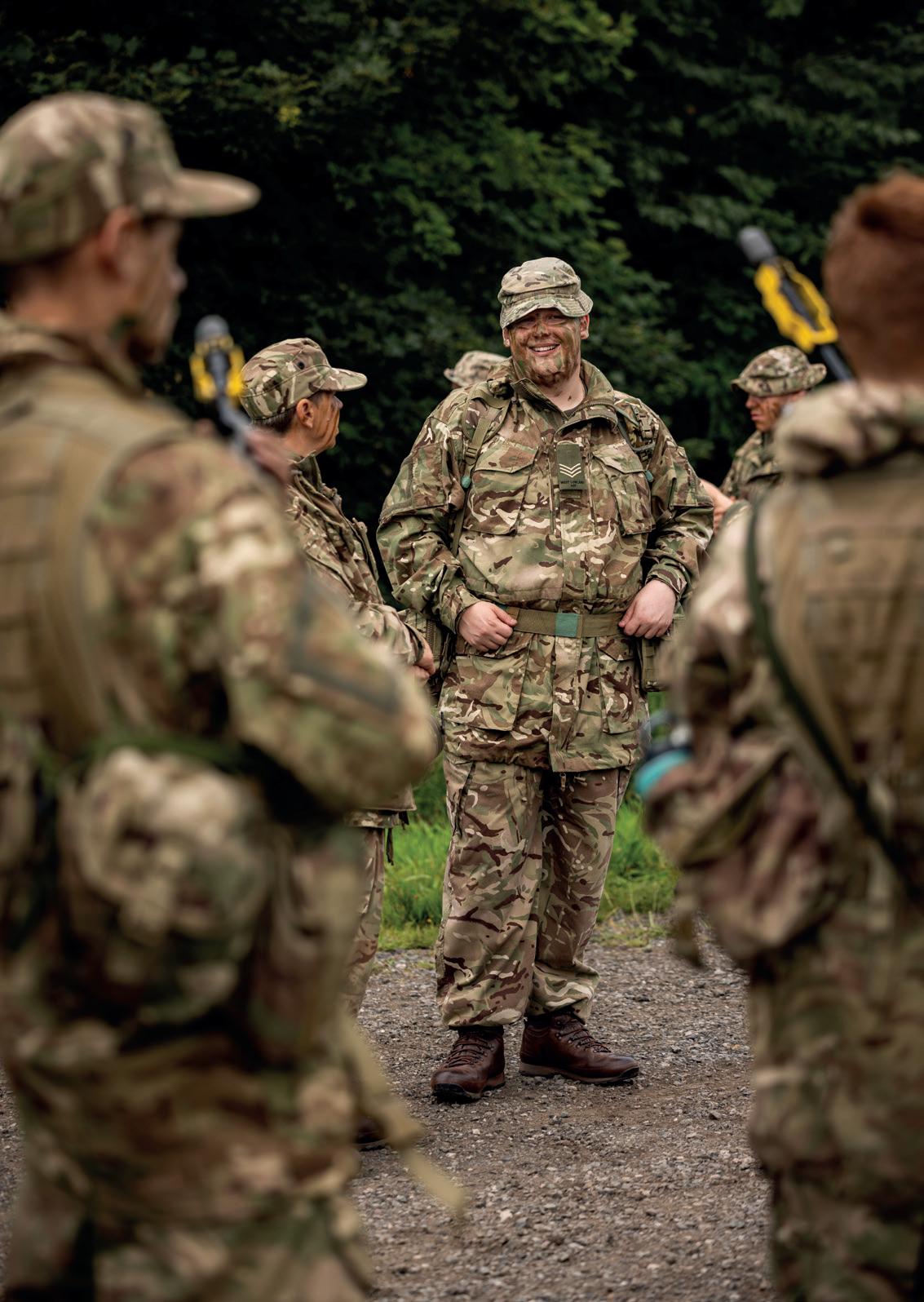
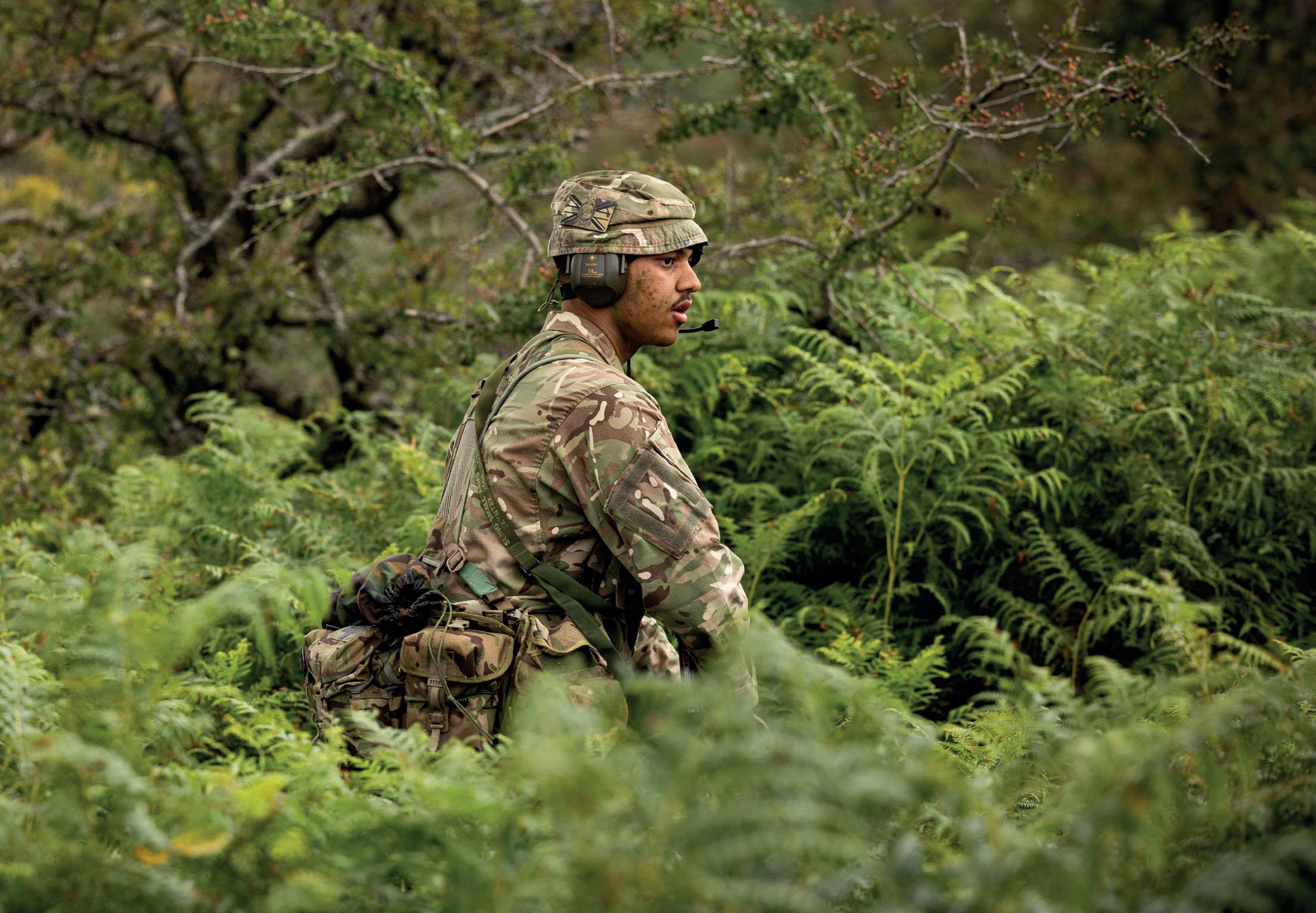
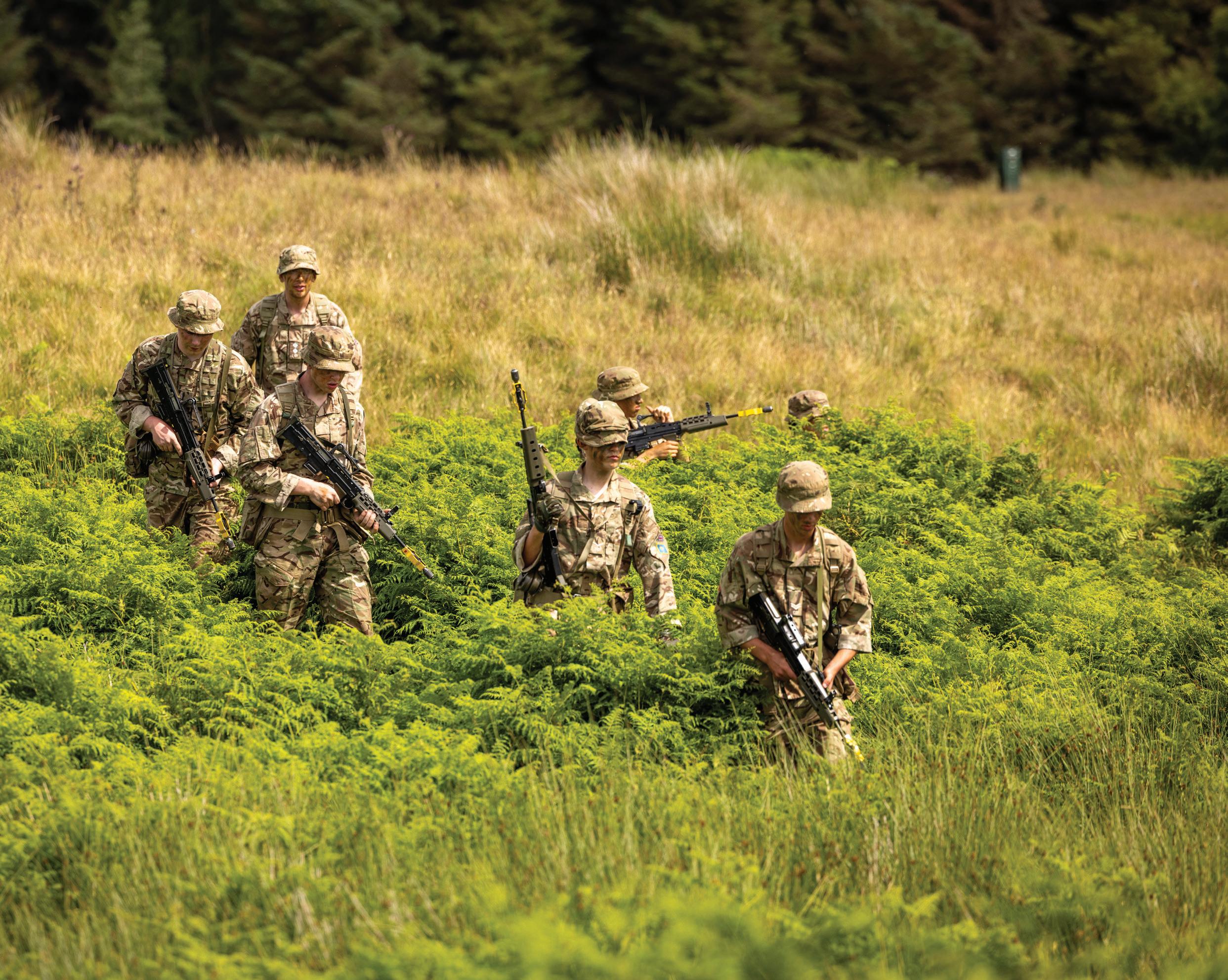

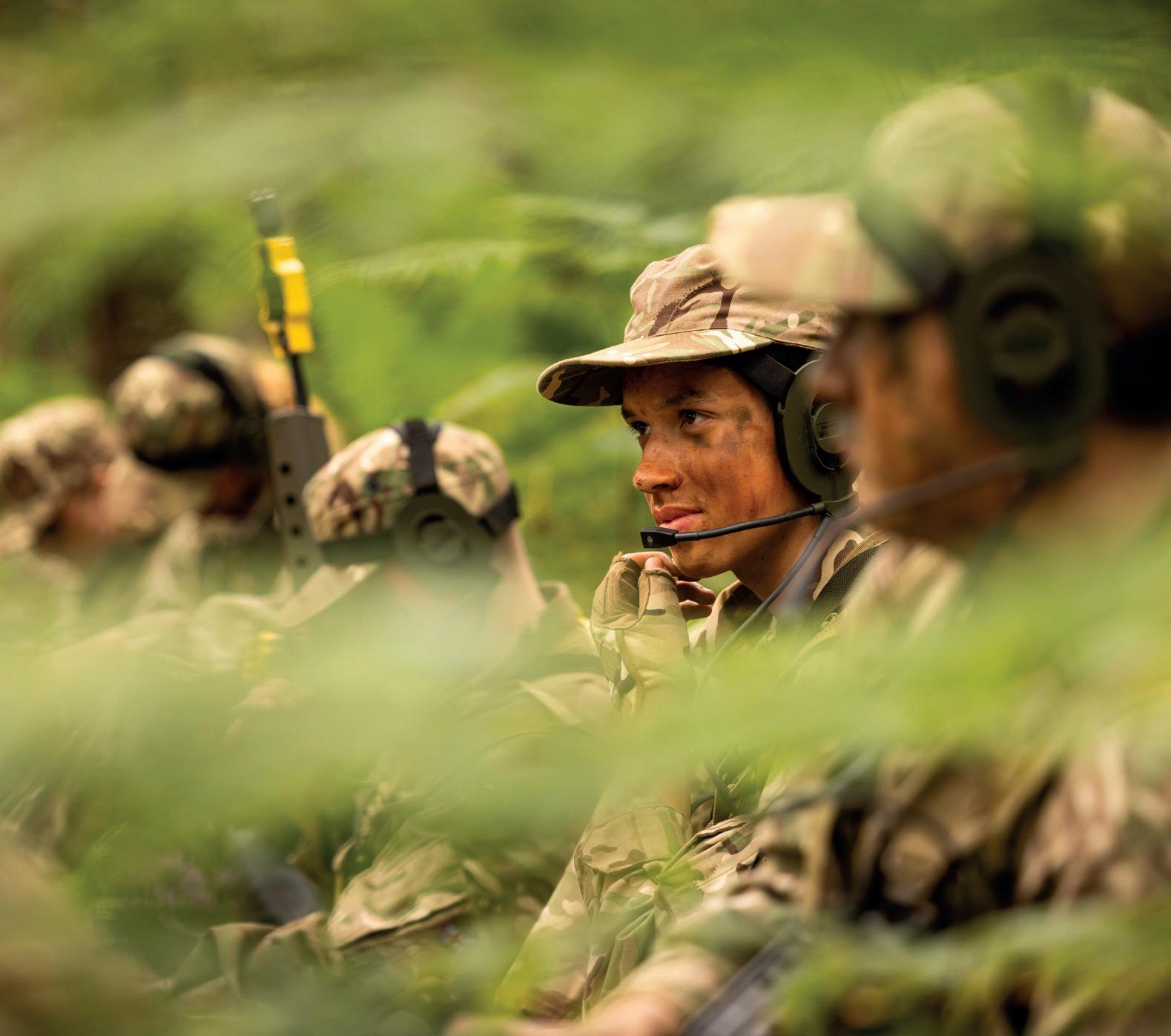
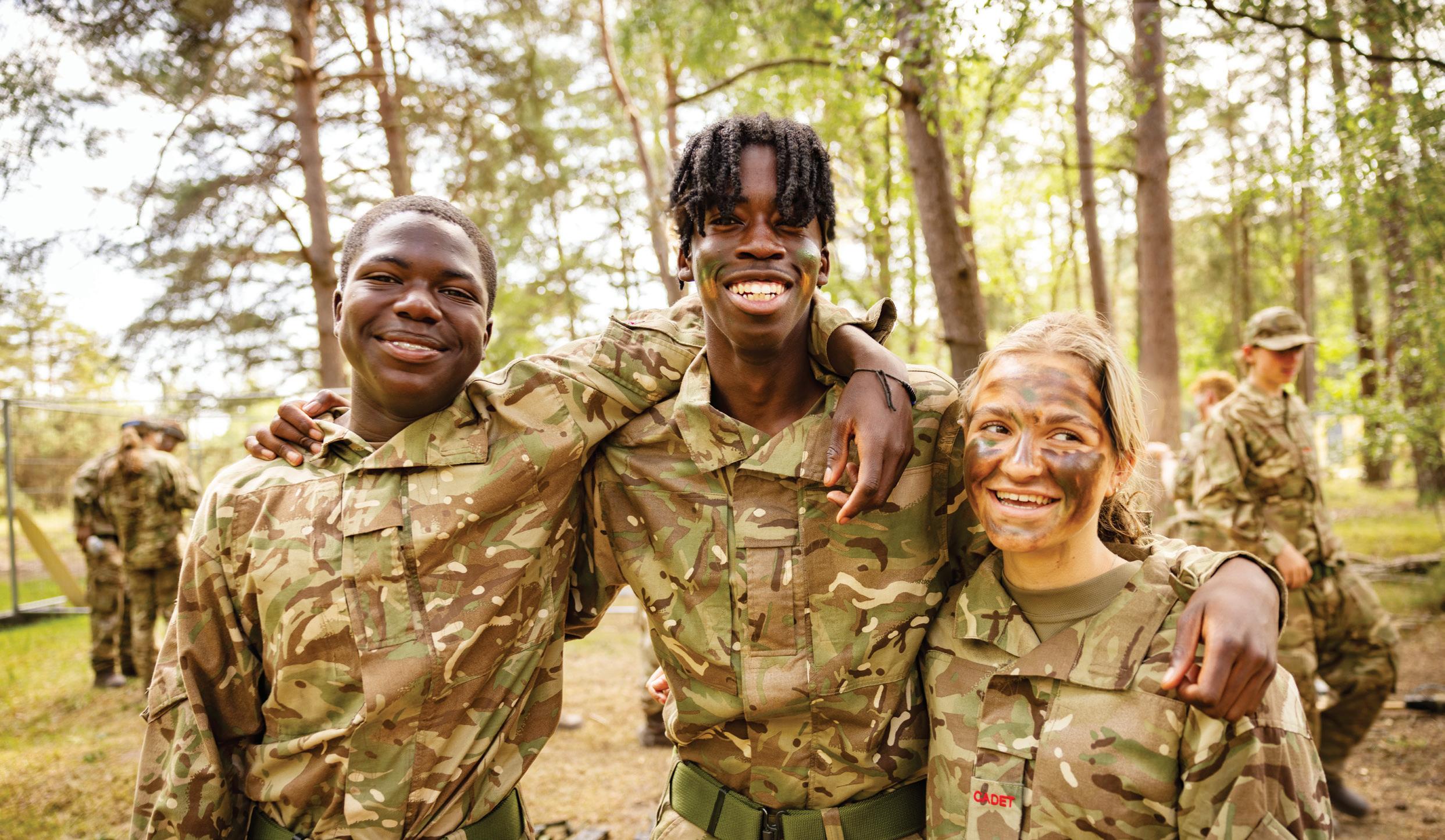
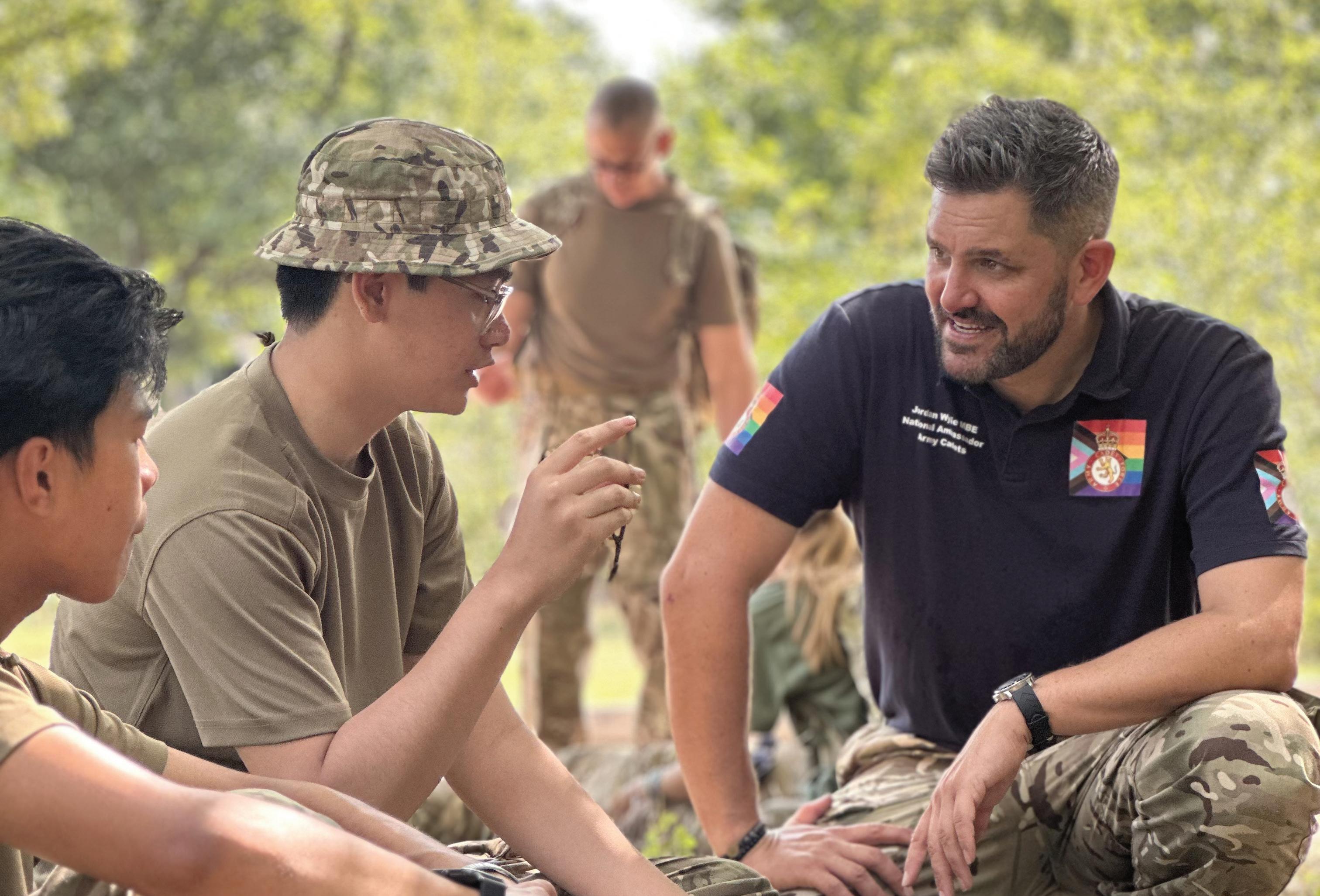
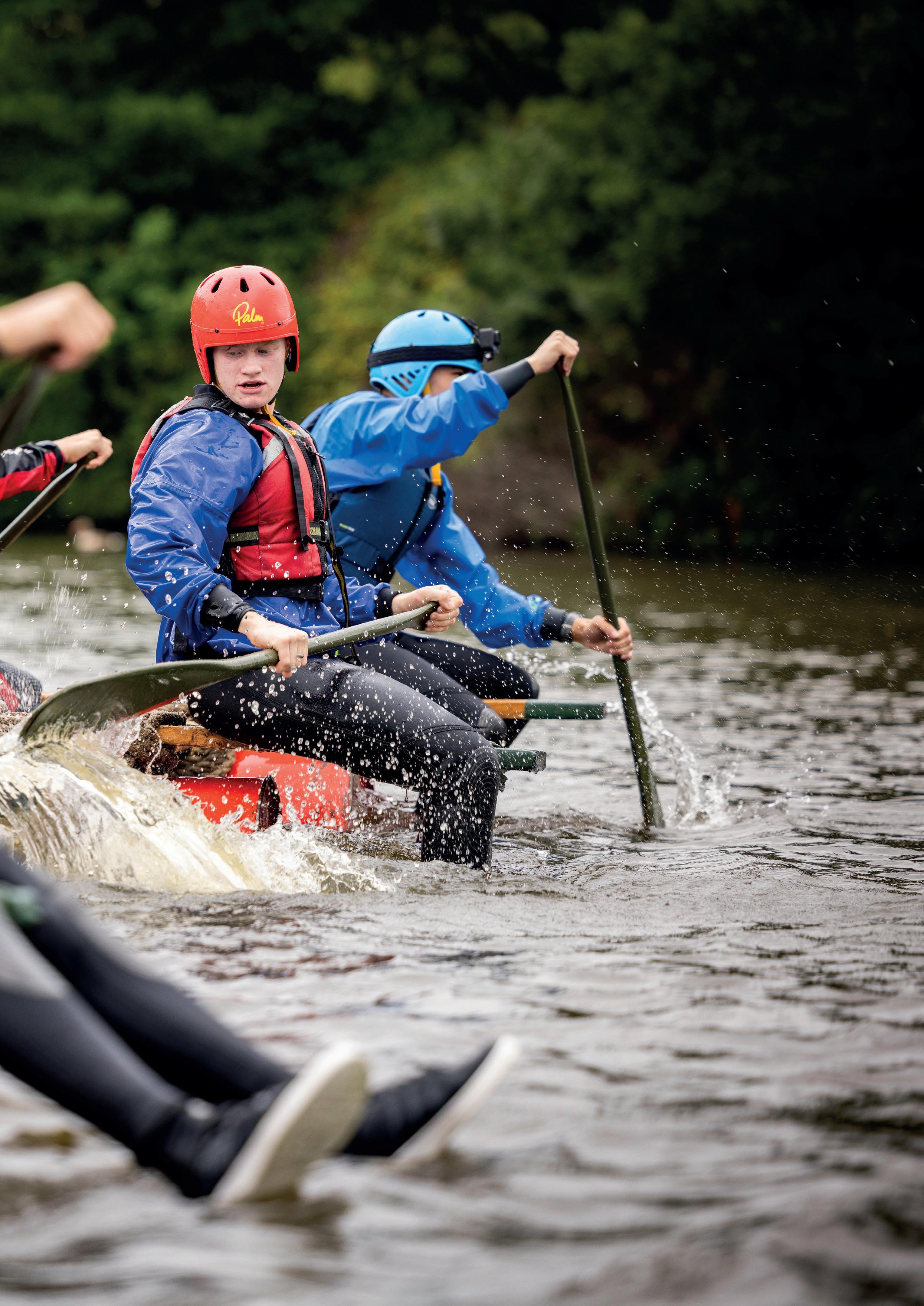
A snapshot of the many recent awards, qualifications and medals achieved by members of the Army Cadets.
Cadet Centre for Adventurous Training (CCAT) has trained a total of 612 cadets and CFAVs between September 2024 and September 2025. These include:
77 Rock climbing skills and instructor awards
118 Hill walking and mountaineering skills and leader awards
250 Paddlesport skills and instructor/ leader awards
6 Caving skills awards
84 Overseas expeditions
121 Mountain bike skills, leader, and maintenance awards
30 Skiing skills and leader awards
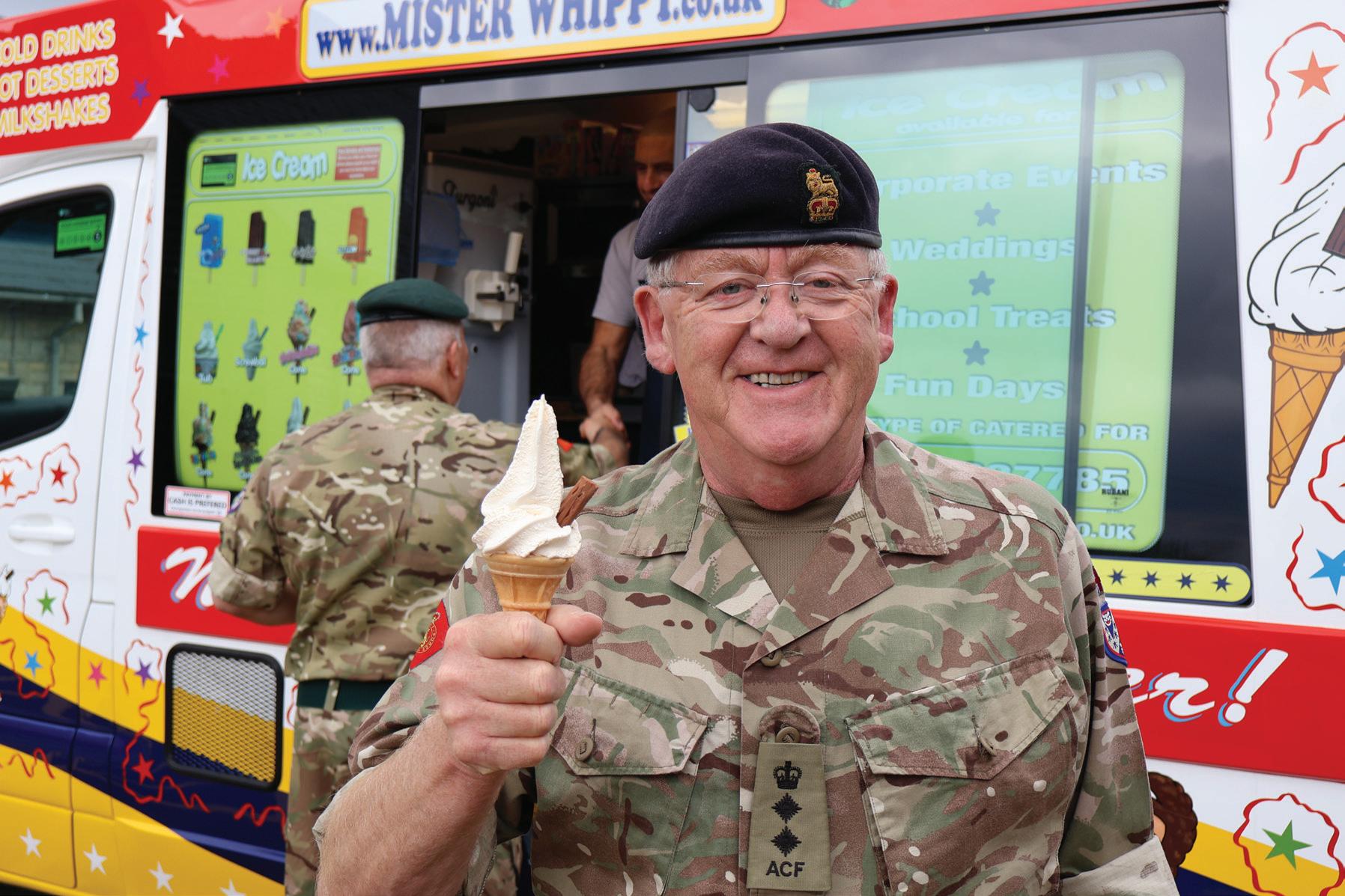
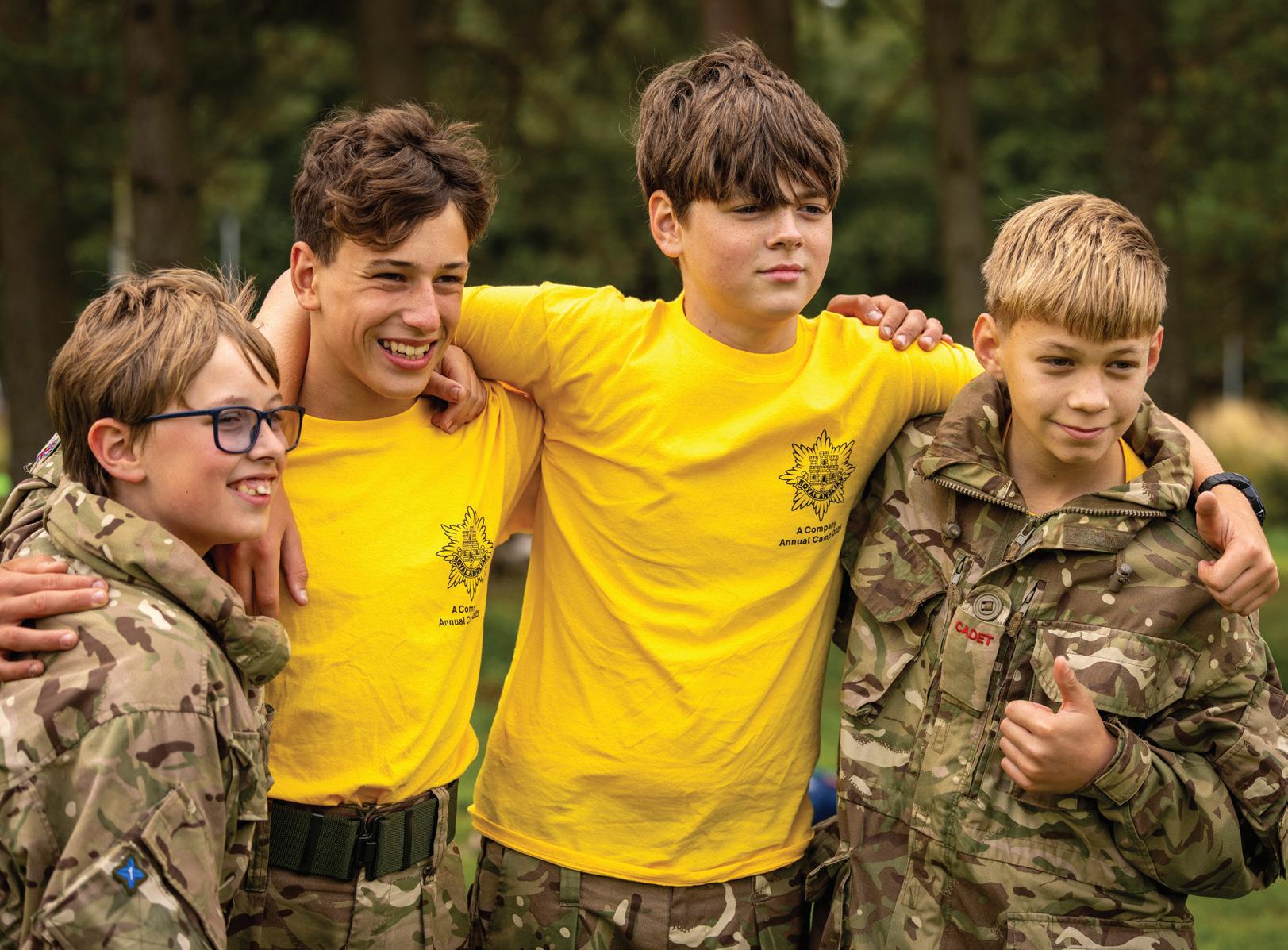
1,565 Vocational qualifications
1,510 cadets
adults

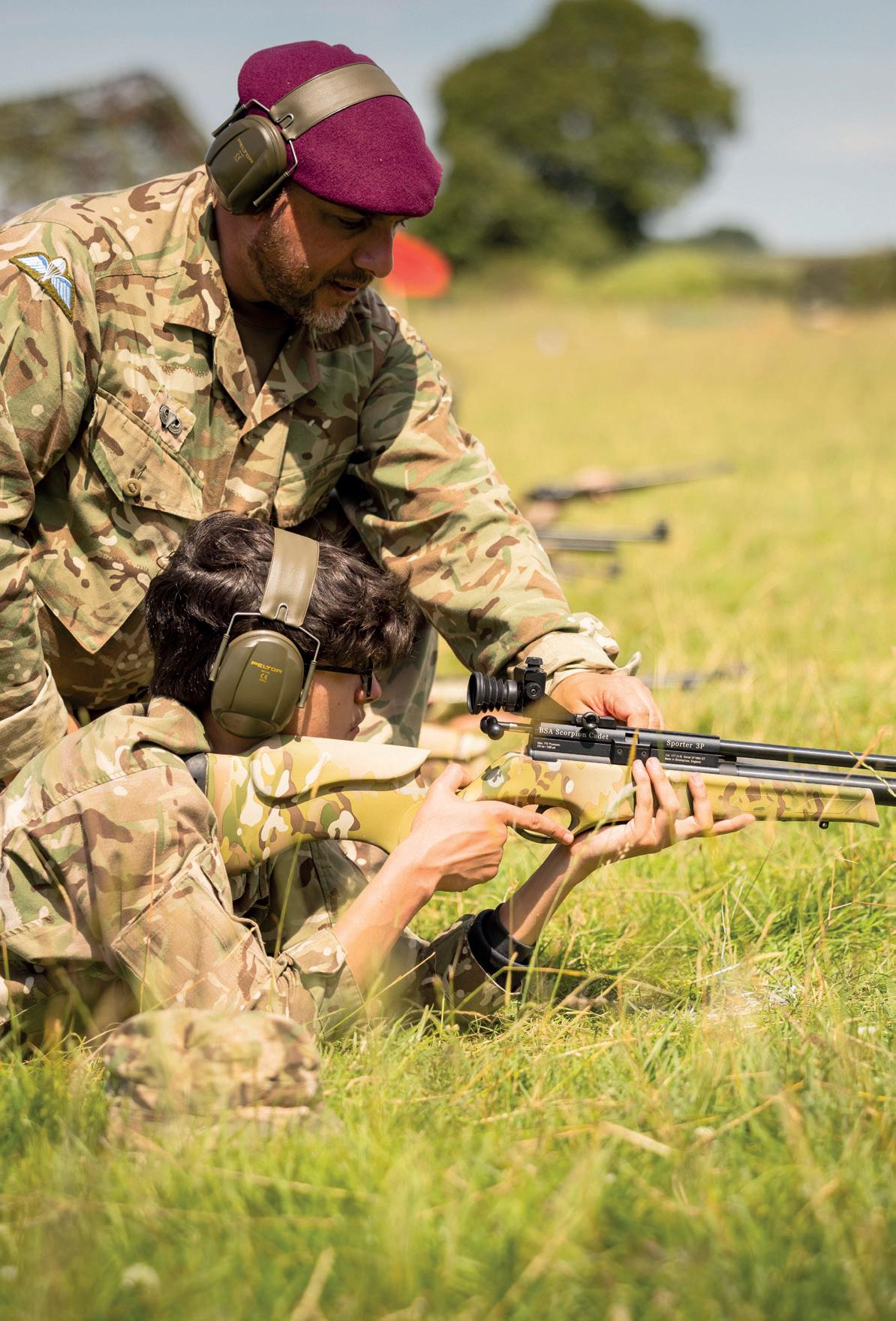
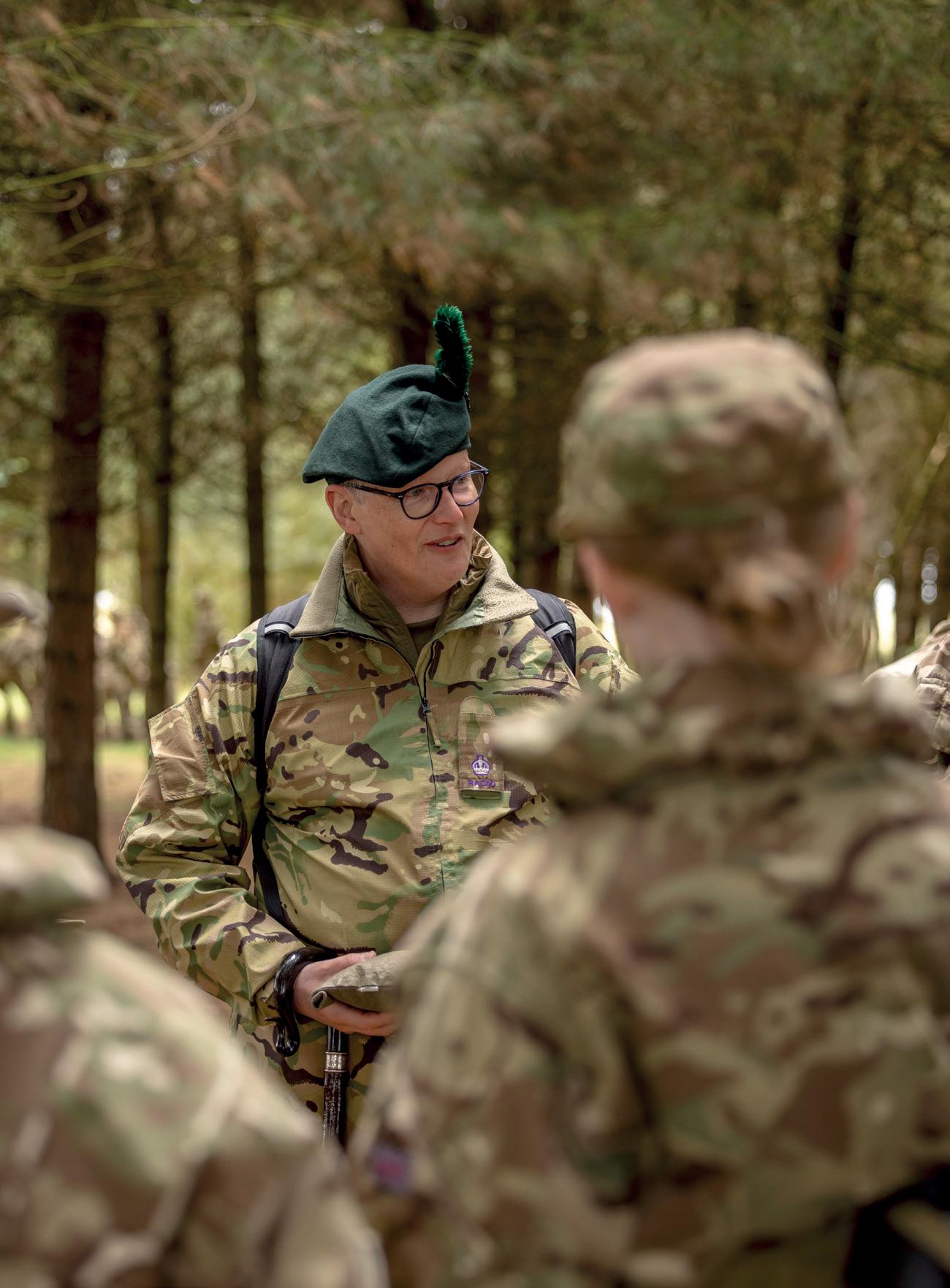
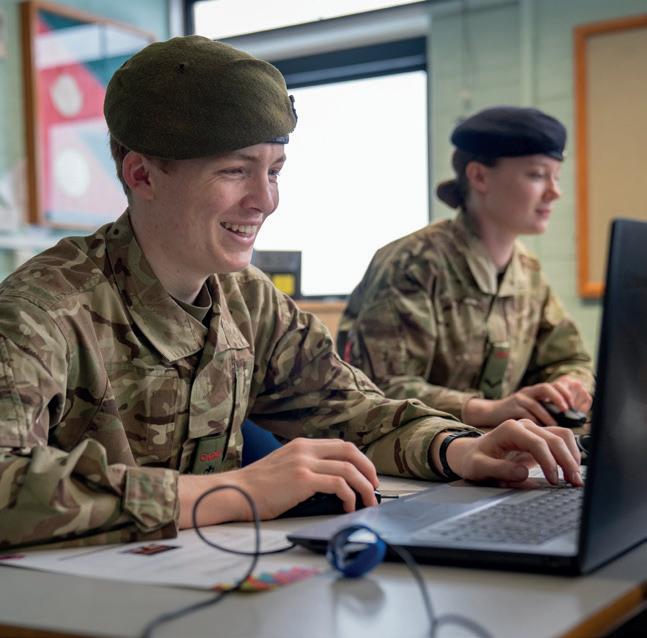
93 GOLD Achieved by cadets
412 SILVER
1,465 BRONZE
Achieved by adult volunteers
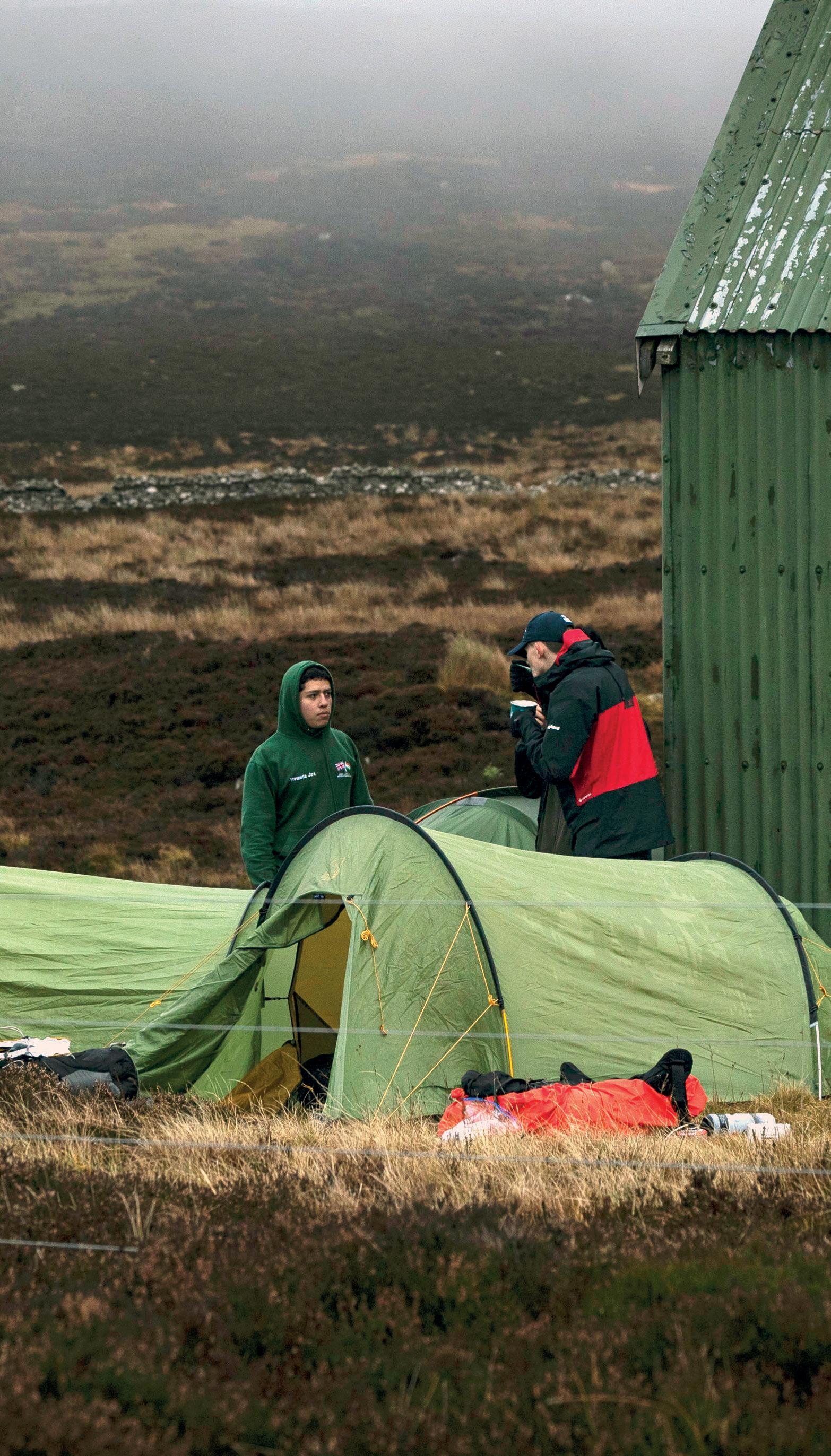
The Cadet Forces Medal is awarded to commissioned officers and noncommissioned adult instructors in recognition of long and efficient service. Clasps are issued for every six additional years.
A total of 191 Cadet Force Medals were awarded between September 2024 and September 2025, plus the following clasps.
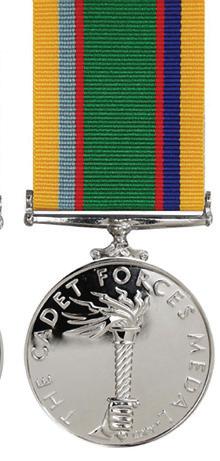
22
3 18
4 5 CLASP 5

40 CLASP 2
105 CLASP 1
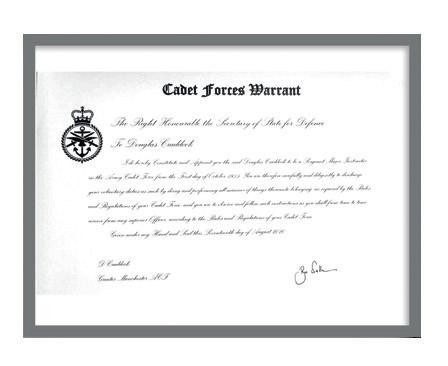
The Cadet Forces Warrant is an award given to adult volunteers who are promoted to the rank of sergeant major instructor (SMI). It was introduced in August 2020 to recognise the value the Ministry of Defence places on senior non-commissioned CFAVs. The warrant also acknowledges the effort and achievement required to reach this rank. The warrant is intended to be a tangible recognition for CFAVs to keep during and after their time with the cadet forces.
* 107 individuals became eligible to receive Cadet Force Warrants between 1 September 2024 and 1 September 2025.

